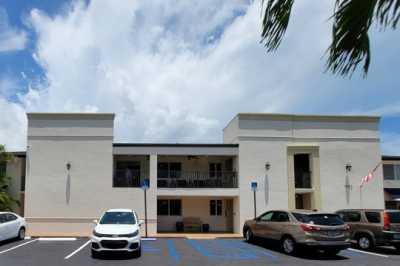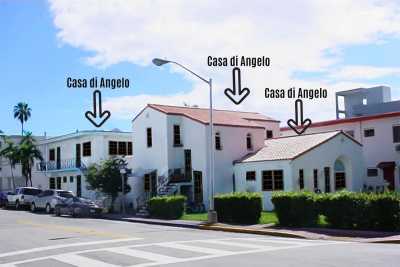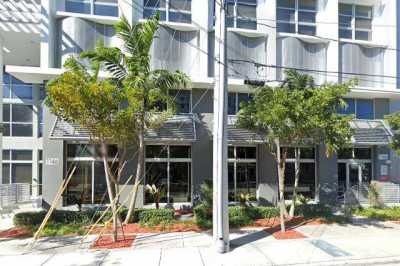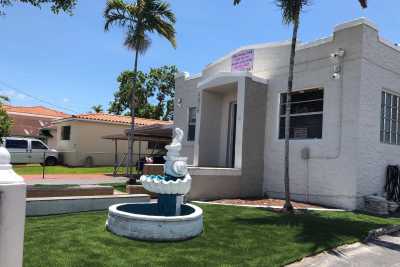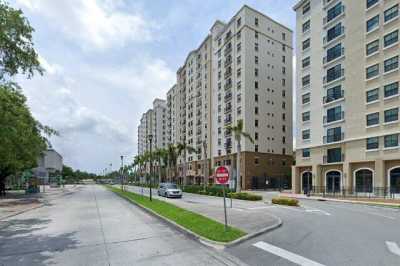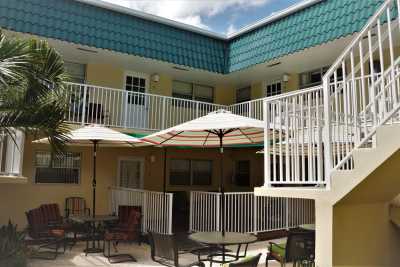https://hydra.qa.aplaceformom.com/graphql
2devne7t7k73
3OF1COSKcrLwhTfjY9AhbCTw3dkAPdSf
5
/image/web-lighthouse/qa/Best-Of-2026-small-badge.png?t=default
desktop
senior-apartments
Miami
miami
Florida
florida
FL
Cities
210.31692
DestinationHeader
Destination Page
SEO
true
true
false
false
7
4
3
0
2
11
1
0
true
1351280
33189
true
2
14
0
false
1441032
33140
true
0
0
0
false
1379459
33136
false
71039
10148
3
normal
[{"id":"1351280","slug":"cutler-bay-village-1351280","name":"Cutler Bay Village","awards":[],"recommendedScoreV2":11002,"isCustomer":true,"hasDescription":true,"imageCount":1,"videoCount":0,"floorPlanCount":0,"hasReview":true,"promotionsExpiring":false,"promotionsTotal":0,"promotionsType":[],"scheduleTourAvailable":false,"location":{"lat":25.57058334,"lng":-80.36104584},"isHomeCareOnly":false},{"id":"1441032","slug":"casa-di-angelo-friendship-suites-1441032","name":"Casa di Angelo Friendship Suites","awards":[],"recommendedScoreV2":10015,"isCustomer":true,"hasDescription":false,"imageCount":14,"videoCount":0,"floorPlanCount":0,"hasReview":false,"promotionsExpiring":false,"promotionsTotal":0,"promotionsType":[],"scheduleTourAvailable":false,"location":{"lat":25.815316,"lng":-80.13071},"isHomeCareOnly":false},{"id":"1379459","slug":"washington-square-apartments-1379459","name":"Washington Square Apartments","awards":[],"recommendedScoreV2":10001,"isCustomer":false,"hasDescription":false,"imageCount":0,"videoCount":0,"floorPlanCount":0,"hasReview":false,"promotionsExpiring":false,"promotionsTotal":0,"promotionsType":[],"scheduleTourAvailable":false,"location":{"lat":25.785062789916992,"lng":-80.20799255371094},"isHomeCareOnly":false},{"id":"1352005","slug":"little-havana-living-llc-1352005","name":"Little Havana Living, LLC","awards":[],"recommendedScoreV2":10007,"isCustomer":true,"hasDescription":false,"imageCount":6,"videoCount":0,"floorPlanCount":0,"hasReview":false,"promotionsExpiring":false,"promotionsTotal":0,"promotionsType":[],"scheduleTourAvailable":false,"location":{"lat":25.77763748,"lng":-80.2286911},"isHomeCareOnly":false},{"id":"1354195","slug":"brownsville-transit-village-1354195","name":"Brownsville Transit Village","awards":[],"recommendedScoreV2":10001,"isCustomer":false,"hasDescription":true,"imageCount":0,"videoCount":0,"floorPlanCount":0,"hasReview":false,"promotionsExpiring":false,"promotionsTotal":0,"promotionsType":[],"scheduleTourAvailable":false,"location":{"lat":25.822219848632812,"lng":-80.24169158935547},"isHomeCareOnly":false},{"id":"48880","slug":"villa-rio-vista-48880","name":"Villa Rio Vista","awards":[],"recommendedScoreV2":10012,"isCustomer":true,"hasDescription":true,"imageCount":11,"videoCount":0,"floorPlanCount":0,"hasReview":false,"promotionsExpiring":false,"promotionsTotal":0,"promotionsType":[],"scheduleTourAvailable":false,"location":{"lat":26.10902023,"lng":-80.13636017},"isHomeCareOnly":false},{"id":"1382918","slug":"praxis-of-deerfield-beach-1382918","name":"Praxis of Deerfield Beach","awards":[],"recommendedScoreV2":10001,"isCustomer":false,"hasDescription":true,"imageCount":0,"videoCount":0,"floorPlanCount":0,"hasReview":false,"promotionsExpiring":false,"promotionsTotal":0,"promotionsType":[],"scheduleTourAvailable":false,"location":{"lat":26.29805374145508,"lng":-80.11930084228516},"isHomeCareOnly":false}]
50
50
33136
Miami-Dade County
-80.21020000000009,25.7839
2026
DESTINATION_PAGE
DESTINATION_PAGE
universalSearch.cca45021023074196d08.js
SENIOR_APARTMENTS
{"city":[],"state":[],"national":[],"years":[]}
destinationBelowTheFold.cca45021023074196d08.js
false
false
“My Senior Living Advisor was fantastic. He sat and listened to what we needed and wanted, and within 90 minutes a place was already calling to set up a virtual tour.”
- Joy Harper
fantastic virtual tour
{"wpSlug":"destination-page-inline","form":{"analytics":{"formId":"top-lead-form-challenger","formType":"long","moduleId":"Destination Page Top Lead Form Challenger v1.0","sourceId":38,"subSourceId":6257,"channel2":"SEO","pageType":"Destination Page","formVersionId":1,"formVersionDate":"12/18/2024","lastBulkUpdateTime":1757625000,"ranDisclaimerUpdates":true},"canonicalUrl":"Destination Page | A Place For Mom","commonData":{"thankYouShort":{"title":"Thanks, {{firstName}}","titleHtml":"One of our expert Senior Living Advisors will be reaching out to support your search.","paragraphs":["Your personalized listings are below."],"image":"/image/web-lighthouse/prod/SLA-IN-17991.jpg","searchLinkText":"See my listings","searchLinkUrl":"#top-of-community-list"},"thankYou":{"titleHtml":"Thanks, {{firstName}}</br>Based on your selections we recommend you speak with a Senior Living Advisor <br/>","image":"/image/web-lighthouse/prod/progressive-v1-thankyou.jpg","listSection":{"list":["We will reach out as soon as possible during normal business hours below","Need to talk to someone right away? Call us at {{apfmPhoneNumber}}","Our service is 100% free of charge to you and your family as we are paid by the communities in our network"]},"searchLinkText":"Show me listings near {{city}}"},"formBlock":{"disclaimer":"<p>By sharing your contact information, you agree to our <a target=\"_blank\" href=\"/terms-of-use\">Terms of Use</a> and <a target=\"_blank\" href=\"/privacy\">Privacy Policy</a>. You also consent to receive texts and calls from us and our community customers, including telemarketing and/or advertising, even if your number is on a Do Not Call list. Outreach may be during quiet hours under all applicable laws, auto-dialed, or may use pre-recorded or artificial voice. Your consent is not a condition to using our service. Msg and Data Rates may apply. Msg frequency varies. Text HELP for Help. Text STOP for Stop.</p>"},"thankYouAddOn":{"image":"/image/web-lighthouse/prod/ty-sla.jpg","title":"Hi, {{firstName}}","paragraph":"Thanks for contacting us; We are calling you now to understand your situation better","countdownText":"Our call will arrive within: <span>00:10</span>","avatarText":"Get insight from a local","quote":"“I love having the knowledge to empower and educate families, so they are confident in their long term care decisions.” - Keri, Senior Living Advisor","searchLinkText":"Show me my listings"}},"description":"Destination Page | A Place For Mom","dynamicHeadlines":{"locationCurrentlyLivingQuestion":{"headline":{"MOTHER":"Where is Mom living?","FATHER":"Where is Dad living?","SELF":"Where are you living?","SPOUSE":"Where is your spouse living?","OTHER_RELATIVE":"Where is this person living?"}},"wheelchairPropelQuestion":{"headline":{"MOTHER":"Can Mom propel her wheelchair on her own?","FATHER":"Can Dad propel his wheelchair on his own?","SELF":"Can you propel your wheelchair on your own?","SPOUSE":"Can your spouse propel their wheelchair on their own?","OTHER_RELATIVE":"Can this person propel their wheelchair on their own?"}},"wheelchairTransferQuestion":{"headline":{"MOTHER":"Can Mom transfer from her wheelchair to a bed or couch on her own?","FATHER":"Can Dad transfer from his wheelchair to a bed or couch on his own?","SELF":"Can you transfer from your wheelchair to a bed or couch on your own?","SPOUSE":"Can your spouse transfer from their wheelchair to a bed or couch on their own?","OTHER_RELATIVE":"Can this person transfer from their wheelchair to a bed or couch on their own?"}},"assistanceQuestion":{"headline":{"MOTHER":"Does Mom need help with the following?","FATHER":"Does Dad need help with the following?","SELF":"Do you need help with the following?","SPOUSE":"Does your spouse need help with the following?","OTHER_RELATIVE":"Does this person need help with the following?"}},"behaviorsExperiencedQuestion":{"headline":{"MOTHER":"Has Mom experienced any of the following behaviors related to memory loss?","FATHER":"Has Dad experienced any of the following behaviors related to memory loss?","SELF":"Have you experienced any of the following behaviors related to memory loss?","SPOUSE":"Has your spouse experienced any of the following behaviors related to memory loss?","OTHER_RELATIVE":"Has this person experienced any of the following behaviors related to memory loss?"}},"financialResourcesQuestion":{"headline":{"MOTHER":"How does Mom plan to pay for senior living?","FATHER":"How does Dad plan to pay for senior living?","SELF":"How do you plan to pay for senior living?","SPOUSE":"How does your spouse plan to pay for senior living?","OTHER_RELATIVE":"How do you or this person plan to pay for senior living?"}},"veteranQuestion":{"headline":{"MOTHER":"Is Mom or her spouse a wartime Veteran?","FATHER":"Is Dad or his spouse a wartime Veteran?","SELF":"Are you or your spouse a wartime Veteran?","SPOUSE":"Are you or your spouse a wartime Veteran?","OTHER_RELATIVE":"Is this person or their spouse a wartime Veteran?"}},"resident1AgeQuestion":{"headline":{"MOTHER":"How old is Mom?","FATHER":"How old is Dad?","SELF":"How old are you?","SPOUSE":"How old is your spouse?","OTHER_RELATIVE":"How old is this person?"}},"getAroundQuestion":{"headline":{"MOTHER":"How is Mom getting around?","FATHER":"How is Dad getting around?","SELF":"How are you getting around?","SPOUSE":"How is your spouse getting around?","OTHER_RELATIVE":"How is this person getting around?"}},"resident1NameQuestion":{"headline":{"MOTHER":"What is Mom’s name?","FATHER":"What is Dad’s name?","SPOUSE":"What is your spouse’s name?","OTHER_RELATIVE":"What is this person’s name?"},"inputPlaceholders":{"resident1FirstName":{"MOTHER":"Mom's first name","FATHER":"Dad's first name","SPOUSE":"Spouse's first name","OTHER_RELATIVE":"Person's first name"},"resident1LastName":{"MOTHER":"Mom's last name","FATHER":"Dad's last name","SPOUSE":"Spouse's last name","OTHER_RELATIVE":"Person's last name"}},"list":{"MOTHER":["We won’t contact your mother"],"FATHER":["We won’t contact your father"],"SPOUSE":["We won’t contact your spouse"],"OTHER_RELATIVE":["We won’t contact this person"]},"tip":{"MOTHER":"We need Mom’s name for our records. We will not contact your Mom.","FATHER":"We need Dad's name for our records. We will not contact your Dad.","SPOUSE":"We need your spouse's name for our records. We will not contact your spouse.","OTHER_RELATIVE":"We need this person's name for our records. We will not contact this person."}},"resident1AmenitiesQuestion":{"headline":{"MOTHER":"What would Mom like in a community?","FATHER":"What would Dad like in a community?","SELF":"What would you like in a community?","SPOUSE":"What would your spouse like in a community?","OTHER_RELATIVE":"What would this person like in a community?"}},"notesQuestion":{"headline":{"MOTHER":"What else is important to Mom? <span class=\"fw-normal\">(optional)</span>","FATHER":"What else is important to Dad? <span class=\"fw-normal\">(optional)</span>","SELF":"What else is important to you? <span class=\"fw-normal\">(optional)</span>","SPOUSE":"What else is important to your spouse? <span class=\"fw-normal\">(optional)</span>","OTHER_RELATIVE":"What else is important to this person? <span class=\"fw-normal\">(optional)</span>"}}},"phases":[{"name":"Phase One","key":"phase_1","theme":"SEOProg","plugins":[{"name":"locationInquiryFields","on":"relationToResidentQuestion","pluginData":{}},{"name":"leadFormCompleted","on":"relationToResidentQuestion","pluginData":{"tyStepName":"thankYou"}},{"name":"getNextPhaseData","on":"moveDateRangeQuestion","pluginData":{"cmsSlug":"destination-page-inline","phaseToLoad":"phase_2","shouldBeCalledOnce":true}}],"steps":[{"figmaStep":"null","name":"relationToResidentQuestion","qualtricsName":"relationToResidentQuestion","component":"SelectSingleColTwoDestinationSlimFirstStep","controller":"SelectSingleController","progressBarType":"default","on":{"ANY_VALUE":"moveDateRangeQuestion"},"componentData":{"saveToStorage":true,"header":"Answer a few questions to get personalized results","title":"Who are you searching for?","options":[{"inquiryField":["relationToResident","relationshipToResidentDetail"],"label":"Spouse","value":["SPOUSE","SPOUSE"]},{"inquiryField":["relationToResident","relationshipToResidentDetail"],"label":"Myself","value":["SELF","SELF"]},{"inquiryField":["relationToResident","relationshipToResidentDetail"],"label":"Mom","value":["MOTHER","MOTHER"]},{"inquiryField":["relationToResident","relationshipToResidentDetail"],"label":"Dad","value":["FATHER","FATHER"]},{"inquiryField":["relationToResident","relationshipToResidentDetail"],"label":"Someone else","value":["OTHER_RELATIVE","OTHER_RELATIVE"]}],"hideProgressBar":true,"hideBackButton":true},"analytics":{"headerText":"{{title}}","questionType":"Who","formStepType":"question","question":"{{title}}"}},{"figmaStep":"null","name":"moveDateRangeQuestion","qualtricsName":"moveDateRangeQuestion","component":"SelectSingleColTwoDestinationSlimStep","controller":"SelectSingleController","progressBarType":"default","on":{"_0_DAYS":"lookingReasonQuestion","_30_DAYS":"lookingReasonQuestion","_60_DAYS":"lookingReasonQuestion","MORE_THAN_90":"lookingReasonQuestion"},"componentData":{"saveToStorage":true,"title":"How quickly do you need to find an option?","options":[{"inquiryField":["moveDateRange"],"label":"ASAP","value":["_0_DAYS"]},{"inquiryField":["moveDateRange"],"label":"Within 30 days","value":["_30_DAYS"]},{"inquiryField":["moveDateRange"],"label":"Within 60 days","value":["_60_DAYS"]},{"inquiryField":["moveDateRange"],"label":"No rush","value":["MORE_THAN_90"]}]},"analytics":{"headerText":"{{title}}","questionType":"Urgency","formStepType":"question","question":"{{title}}"}},{"figmaStep":"null","name":"lookingReasonQuestion","qualtricsName":"lookingReasonQuestion","component":"SelectSingleColTwoDestinationSlimStep","controller":"SelectSingleController","progressBarType":"default","on":{"DISCHARGE_HOSPITAL_REHAB":"budgetQuestion","OTHER":"budgetQuestion"},"componentData":{"saveToStorage":true,"title":"Is dementia or a hospital/rehab stay prompting your search?","options":[{"inquiryField":["lookingReason"],"label":"Yes","value":["DISCHARGE_HOSPITAL_REHAB"]},{"inquiryField":["lookingReason"],"label":"No","value":["OTHER"]}]},"analytics":{"headerText":"{{title}}","questionType":"Reason","formStepType":"question","question":"{{title}}"}},{"figmaStep":"null","name":"budgetQuestion","qualtricsName":"budgetQuestion","component":"SelectSingleColTwoDestinationSlimStep","controller":"SelectSingleController","progressBarType":"default","on":{"ANY_VALUE":"formBlock"},"componentData":{"saveToStorage":true,"title":"Would you estimate the monthly budget above or below $1,500?","options":[{"inquiryField":["budgetMin","budgetMax"],"label":"Above","value":["2001","2000"]},{"inquiryField":["budgetMin","budgetMax"],"label":"Below","value":["1","1999"]}]},"analytics":{"headerText":"{{title}}","questionType":"Budget Qualifier","formStepType":"question","question":"{{title}}","buttonText":"{{buttonAction.label}}"}},{"figmaStep":null,"name":"thankYou","qualtricsName":"thankYou","component":"ThankYouShort","controller":"ThankYouShortController","componentData":{"showBusinessHours":false,"keepStepVisible":true,"hideProgressBar":true},"analytics":{"headerText":"{{title}}","questionType":"Off-ramp inquiry response error","formStepType":"4 text fields","question":"{{title}}","buttonText":"{{buttonAction.label}}"}}]}],"progress":{"relationToResidentQuestion":0,"moveDateRangeQuestion":50,"lookingReasonQuestion":75,"budgetQuestion":100,"formBlock":null,"thankYouInquiryResponseError":null,"startPhase3":56.52,"offRampTalkToAnAdvisor":8.7,"locationInputQuestion":13.04,"locationCurrentlyLivingQuestion":17.39,"resident1AmenitiesQuestion":21.74,"notesQuestion":26.09,"resident1AgeQuestion":30.43,"resident1NameQuestion":34.78,"getAroundQuestion":39.13,"assistanceQuestion":43.48,"behaviorsExperiencedQuestion":47.83,"eligibilityBreakTwo":52.17,"thankYouOffRampNoResidentName":null,"thankYouOfframpNoCommunities":null,"thankYouOffRampTimerExpired":null,"tempStateFastCarAnswers":null,"secondFinancialResourcesQuestion":60.87,"veteranQuestion":65.22,"budgetRangeQuestion":69.57,"thankYouBudgetRangeQuestionOfframp":null,"eligibilityBreakThree":73.91,"thankYouEligibilityThreeOffRamp":null,"startPhase4":78.26,"is2fAuthOptInQuestion":82.61,"emailConfirmation":82.61,"twoFactorAuthEmailCodeQuestion":86.96,"twoFactorAuthEmailCodeWithoutBackButtonQuestion":86.96,"twoFactorAuthPhoneCodeQuestion":86.96,"thankYouOfframpNoCode":null,"stateDisclosure":91.3,"viewResults":95.65,"thankYouInquiryUpdateOnOffRampSpeakToAnAdvisorFirst":null,"eligibilityBreakFour":100,"communities":null},"title":"Destination Page | A Place For Mom"}}
{"wpSlug":"destination-page-short-form","form":{"analytics":{"formType":"short","sourceId":38,"subSourceId":6257,"channel2":"SEO","pageType":"Destination Page","formVersionId":1,"formVersionDate":"03/05/2025","lastBulkUpdateTime":1757625000,"ranDisclaimerUpdates":true},"canonicalUrl":"[{\"phase\":\"{\\\"name\\\":\\\"Phase Two\\\",\\\"key\\\":\\\"phase_2\\\",\\\"theme\\\":\\\"SEOProg\\\",\\\"plugins\\\":[{\\\"name\\\":\\\"geocoder\\\",\\\"on\\\":\\\"relationToResidentQuestion\\\",\\\"pluginData\\\":{}},{\\\"name\\\":\\\"getNextPhaseData\\\",\\\"on\\\":\\\"mainFlowLoader\\\",\\\"pluginData\\\":{\\\"phaseToLoad\\\":\\\"phase_3a\\\",\\\"yamlName\\\":\\\"add-on-lp\\/lfProgressiveV2Phase2\\\",\\\"shouldBeCalledOnce\\\":true}},{\\\"name\\\":\\\"getNextPhaseData\\\",\\\"on\\\":\\\"noUrgentBudgetQuestion\\\",\\\"pluginData\\\":{\\\"phaseToLoad\\\":\\\"phase_3b\\\",\\\"shouldBeCalledOnce\\\":true}},{\\\"name\\\":\\\"getNextPhaseData\\\",\\\"on\\\":\\\"urgentLoader\\\",\\\"pluginData\\\":{\\\"phaseToLoad\\\":\\\"phase_3a\\\",\\\"shouldBeCalledOnce\\\":true}},{\\\"name\\\":\\\"preSelectAnswers\\\",\\\"on\\\":\\\"selfMoveDateRangeQuestion\\\",\\\"pluginData\\\":{\\\"answers\\\":{\\\"urgentFormBlock\\\":{\\\"email\\\":[\\\"YAML_IGNORABLE_CONSTANT\\\"]},\\\"urgentBelow2KFormBlock\\\":{\\\"email\\\":[\\\"YAML_IGNORABLE_CONSTANT\\\"]},\\\"noUrgentBelow2KFormBlock\\\":{\\\"email\\\":[\\\"YAML_IGNORABLE_CONSTANT\\\"]}}}},{\\\"name\\\":\\\"replaceLocationMustaches\\\",\\\"on\\\":\\\"relationToResidentQuestion\\\",\\\"pluginData\\\":[{\\\"state\\\":\\\"urgentFormBlock\\\",\\\"selector\\\":\\\".LF_Copy__blurb\\\"},{\\\"state\\\":\\\"mainFlowFormBlock\\\",\\\"selector\\\":\\\".LF_Copy__blurb\\\"},{\\\"state\\\":\\\"urgentBelow2KFormBlock\\\",\\\"selector\\\":\\\".LF_Copy__blurb\\\"},{\\\"state\\\":\\\"mainFlowLoader\\\",\\\"selector\\\":\\\".LF_Copy__title\\\"},{\\\"state\\\":\\\"noUrgentBelow2KLoader\\\",\\\"selector\\\":\\\".LF_Copy__title\\\"},{\\\"state\\\":\\\"noUrgentLoader\\\",\\\"selector\\\":\\\".LF_Copy__title\\\"},{\\\"state\\\":\\\"urgentBelow2KLoader\\\",\\\"selector\\\":\\\".LF_Copy__title\\\"},{\\\"state\\\":\\\"urgentLoader\\\",\\\"selector\\\":\\\".LF_Copy__title\\\"}]},{\\\"name\\\":\\\"setStateDisclosuresAndExclusions\\\",\\\"on\\\":\\\"relationToResidentQuestion\\\",\\\"pluginData\\\":{\\\"shouldBeCalledOnce\\\":true}}],\\\"steps\\\":[{\\\"figmaStep\\\":\\\"1\\\",\\\"name\\\":\\\"locationSemLanding\\\",\\\"component\\\":\\\"LocationSemLanding\\\",\\\"controller\\\":\\\"SemLandingBPInputController\\\",\\\"on\\\":{\\\"ANY_VALUE\\\":\\\"relationToResidentQuestion\\\"},\\\"enterStateGate\\\":{\\\"fallback\\\":\\\"relationToResidentQuestion\\\"},\\\"componentData\\\":{\\\"canAutoAnswerOrSkipOnNavigation\\\":true,\\\"bottomImagePath\\\":\\\"\\/image\\/web-lighthouse\\/prod\\/housing_graphic\\\",\\\"title\\\":\\\"Discover financial benefits for senior veterans\\\",\\\"description\\\":\\\"Compare options. Get pricing. Save time.\\\",\\\"buttonAction\\\":{\\\"label\\\":\\\"Search\\\"},\\\"inputs\\\":[{\\\"errorMessage\\\":\\\"Please enter a valid City & State, or Zip\\\",\\\"inquiryField\\\":[\\\"desiredCity\\\",\\\"desiredState\\\",\\\"desiredPostalCode\\\",\\\"desiredCountryCode\\\"],\\\"name\\\":\\\"locationForm\\\",\\\"placeholder\\\":\\\"Enter the zip code or city\\\"}],\\\"hideBackButton\\\":true,\\\"hideProgressBar\\\":true,\\\"options\\\":null},\\\"analytics\\\":{\\\"headerText\\\":\\\"{{title}}\\\",\\\"questionType\\\":\\\"Location\\\",\\\"formStepType\\\":\\\"question\\\",\\\"buttonText\\\":\\\"{{buttonAction.label}}\\\",\\\"question\\\":\\\"{{title}}\\\"},\\\"qualtricsName\\\":\\\"locationSemLanding\\\"},{\\\"figmaStep\\\":\\\"2\\\",\\\"name\\\":\\\"relationToResidentQuestion\\\",\\\"component\\\":\\\"WhoQuestionAddOn\\\",\\\"controller\\\":\\\"SelectSingleController\\\",\\\"progressBarType\\\":\\\"default\\\",\\\"on\\\":{\\\"ANY_VALUE\\\":\\\"moveDateRangeQuestion\\\",\\\"SELF\\\":\\\"selfEmailQuestion\\\"},\\\"componentData\\\":{\\\"withoutBottomBar\\\":true,\\\"hideProgressBar\\\":true,\\\"title\\\":\\\"Access pricing, resident reviews, room availability and more - for free\\\",\\\"subTitle\\\":\\\"Tell us about your situation to get personalized results.\\\",\\\"description\\\":\\\"Who are you searching for?\\\",\\\"options\\\":[{\\\"inquiryField\\\":[\\\"relationToResident\\\",\\\"relationshipToResidentDetail\\\"],\\\"label\\\":\\\"Spouse\\\",\\\"value\\\":[\\\"SPOUSE\\\",\\\"SPOUSE\\\"]},{\\\"inquiryField\\\":[\\\"relationToResident\\\",\\\"relationshipToResidentDetail\\\"],\\\"label\\\":\\\"Mom\\\",\\\"value\\\":[\\\"MOTHER\\\",\\\"MOTHER\\\"]},{\\\"inquiryField\\\":[\\\"relationToResident\\\",\\\"relationshipToResidentDetail\\\"],\\\"label\\\":\\\"Dad\\\",\\\"value\\\":[\\\"FATHER\\\",\\\"FATHER\\\"]},{\\\"inquiryField\\\":[\\\"relationToResident\\\",\\\"relationshipToResidentDetail\\\"],\\\"label\\\":\\\"Myself\\\",\\\"value\\\":[\\\"SELF\\\",\\\"SELF\\\"]},{\\\"inquiryField\\\":[\\\"relationToResident\\\",\\\"relationshipToResidentDetail\\\"],\\\"label\\\":\\\"Someone else\\\",\\\"value\\\":[\\\"OTHER_RELATIVE\\\",\\\"OTHER_RELATIVE\\\"]}]},\\\"analytics\\\":{\\\"headerText\\\":\\\"{{title}}\\\",\\\"questionType\\\":\\\"Who\\\",\\\"formStepType\\\":\\\"question\\\",\\\"question\\\":\\\"{{title}}\\\"},\\\"qualtricsName\\\":\\\"relationToResidentQuestion\\\"},{\\\"figmaStep\\\":\\\"3\\\",\\\"name\\\":\\\"moveDateRangeQuestion\\\",\\\"component\\\":\\\"SelectSingleColOne\\\",\\\"controller\\\":\\\"SelectSingleController\\\",\\\"progressBarType\\\":\\\"default\\\",\\\"on\\\":{\\\"ANY_VALUE\\\":\\\"lookingReasonQuestion\\\"},\\\"componentData\\\":{\\\"withoutBottomBar\\\":true,\\\"hideProgressBar\\\":true,\\\"title\\\":\\\"How quickly do you need to find an option?\\\",\\\"options\\\":[{\\\"inquiryField\\\":[\\\"moveDateRange\\\"],\\\"label\\\":\\\"Immediately\\\",\\\"value\\\":[\\\"_0_DAYS\\\"]},{\\\"inquiryField\\\":[\\\"moveDateRange\\\"],\\\"label\\\":\\\"Within 30 days\\\",\\\"value\\\":[\\\"_30_DAYS\\\"]},{\\\"inquiryField\\\":[\\\"moveDateRange\\\"],\\\"label\\\":\\\"Within 60 days\\\",\\\"value\\\":[\\\"_60_DAYS\\\"]},{\\\"inquiryField\\\":[\\\"moveDateRange\\\"],\\\"label\\\":\\\"No rush\\\",\\\"value\\\":[\\\"MORE_THAN_90\\\"]}]},\\\"analytics\\\":{\\\"headerText\\\":\\\"{{title}}\\\",\\\"questionType\\\":\\\"Urgency\\\",\\\"formStepType\\\":\\\"question\\\",\\\"question\\\":\\\"{{title}}\\\"},\\\"qualtricsName\\\":\\\"moveDateRangeQuestion\\\"},{\\\"figmaStep\\\":\\\"4\\\",\\\"name\\\":\\\"lookingReasonQuestion\\\",\\\"component\\\":\\\"SelectSingleColOne\\\",\\\"controller\\\":\\\"SelectSingleController\\\",\\\"progressBarType\\\":\\\"default\\\",\\\"on\\\":{\\\"ANY_VALUE\\\":\\\"budgetQuestion\\\"},\\\"componentData\\\":{\\\"withoutBottomBar\\\":true,\\\"hideProgressBar\\\":true,\\\"title\\\":\\\"Which reason best describes why you\\u2019re looking into Senior Living?\\\",\\\"buttonBlockLabel\\\":\\\"Select one:\\\",\\\"options\\\":[{\\\"inquiryField\\\":[\\\"lookingReason\\\"],\\\"label\\\":\\\"Discharge from hospital or rehab\\\",\\\"value\\\":[\\\"DISCHARGE_HOSPITAL_REHAB\\\"]},{\\\"inquiryField\\\":[\\\"lookingReason\\\"],\\\"label\\\":\\\"Alzheimer\\u2019s or dementia diagnosis\\\",\\\"value\\\":[\\\"ALZHEIMER_DEMENTIA_DIAGNOSIS\\\"]},{\\\"inquiryField\\\":[\\\"lookingReason\\\"],\\\"label\\\":\\\"Need around the clock medical care\\\",\\\"value\\\":[\\\"CLOCK_MEDICAL_CARE\\\"]},{\\\"inquiryField\\\":[\\\"lookingReason\\\"],\\\"label\\\":\\\"Caregiver no longer able to provide support\\\",\\\"value\\\":[\\\"CAREGIVER_NO_SUPPORT\\\"]},{\\\"inquiryField\\\":[\\\"lookingReason\\\"],\\\"label\\\":\\\"Change in lifestyle\\\",\\\"value\\\":[\\\"CHANGE_IN_LIFESTYLE\\\"]},{\\\"inquiryField\\\":[\\\"lookingReason\\\"],\\\"label\\\":\\\"Other\\\",\\\"value\\\":[\\\"OTHER\\\"]}]},\\\"analytics\\\":{\\\"headerText\\\":\\\"{{title}}\\\",\\\"questionType\\\":\\\"Reason\\\",\\\"formStepType\\\":\\\"question\\\",\\\"question\\\":\\\"{{title}}\\\"},\\\"qualtricsName\\\":\\\"lookingReasonQuestion\\\"},{\\\"figmaStep\\\":\\\"5\\\",\\\"name\\\":\\\"budgetQuestion\\\",\\\"component\\\":\\\"SelectSingleColOne\\\",\\\"controller\\\":\\\"SelectSingleController\\\",\\\"progressBarType\\\":\\\"default\\\",\\\"on\\\":{\\\"ANY_VALUE\\\":\\\"financialResourcesQuestion\\\"},\\\"componentData\\\":{\\\"withoutBottomBar\\\":true,\\\"hideProgressBar\\\":true,\\\"title\\\":\\\"Would you estimate the monthly budget above or below $2,000?\\\",\\\"options\\\":[{\\\"inquiryField\\\":[\\\"budgetMin\\\",\\\"budgetMax\\\"],\\\"label\\\":\\\"Above\\\",\\\"value\\\":[\\\"2000\\\",\\\"2499\\\"]},{\\\"inquiryField\\\":[\\\"budgetMin\\\",\\\"budgetMax\\\"],\\\"label\\\":\\\"Below\\\",\\\"value\\\":[\\\"1500\\\",\\\"1999\\\"]}]},\\\"analytics\\\":{\\\"headerText\\\":\\\"{{title}}\\\",\\\"questionType\\\":\\\"Budget Qualifier\\\",\\\"formStepType\\\":\\\"question\\\",\\\"question\\\":\\\"{{title}}\\\"},\\\"qualtricsName\\\":\\\"budgetQuestion\\\"},{\\\"figmaStep\\\":\\\"6\\\",\\\"name\\\":\\\"financialResourcesQuestion\\\",\\\"component\\\":\\\"SelectMultiColOne\\\",\\\"controller\\\":\\\"SelectMultiController\\\",\\\"progressBarType\\\":\\\"default\\\",\\\"on\\\":{\\\"ANY_VALUE\\\":\\\"mainFlowLoader\\\"},\\\"componentData\\\":{\\\"withoutBottomBar\\\":true,\\\"hideProgressBar\\\":true,\\\"title\\\":\\\"How do you or your loved one plan to pay for care?\\\",\\\"buttonBlockLabel\\\":\\\"Select all that apply:\\\",\\\"options\\\":[{\\\"inquiryField\\\":[\\\"financialResources\\\"],\\\"label\\\":\\\"Retirement\\/other savings or income\\\",\\\"value\\\":[\\\"MONTHLY_INCOME_ADDITIONAL\\\"]},{\\\"inquiryField\\\":[\\\"financialResources\\\"],\\\"label\\\":\\\"Family support\\\",\\\"value\\\":[\\\"FAMILY_FINANCIAL_SUPPORT\\\"]},{\\\"inquiryField\\\":[\\\"financialResources\\\"],\\\"label\\\":\\\"Home to sell\\\",\\\"value\\\":[\\\"HOME_TO_SELL\\\"]},{\\\"inquiryField\\\":[\\\"financialResources\\\"],\\\"label\\\":\\\"Long-term care insurance\\\",\\\"value\\\":[\\\"LONG_TERM_CARE_INSURANCE\\\"]},{\\\"inquiryField\\\":[\\\"financialResources\\\"],\\\"label\\\":\\\"VA benefits\\\",\\\"value\\\":[\\\"VA_BENEFITS\\\"]},{\\\"inquiryField\\\":[\\\"financialResources\\\"],\\\"label\\\":\\\"Other assets\\\",\\\"value\\\":[\\\"OTHER_ASSETS\\\"]}],\\\"buttonAction\\\":{\\\"label\\\":\\\"Next\\\",\\\"isSubmitButton\\\":true}},\\\"analytics\\\":{\\\"headerText\\\":\\\"{{title}}\\\",\\\"questionType\\\":\\\"Plan to pay\\\",\\\"formStepType\\\":\\\"question\\\",\\\"question\\\":\\\"{{title}}\\\"},\\\"qualtricsName\\\":\\\"financialResourcesQuestion\\\"},{\\\"figmaStep\\\":\\\"7\\\",\\\"name\\\":\\\"mainFlowLoader\\\",\\\"component\\\":\\\"LoaderEligibilityBreakBasic\\\",\\\"controller\\\":\\\"LoaderDummyController\\\",\\\"progressBarType\\\":\\\"default\\\",\\\"on\\\":{\\\"NEXT_STATE\\\":\\\"mainFlowFormBlock\\\"},\\\"componentData\\\":{\\\"withoutBottomBar\\\":true,\\\"hideProgressBar\\\":true,\\\"title\\\":\\\"Matching you with options in {{desiredCity}}, {{desiredState}}\\\",\\\"images\\\":[\\\"\\/image\\/web-lighthouse\\/prod\\/progressive-v2-loader-1-1.png\\\",\\\"\\/image\\/web-lighthouse\\/prod\\/progressive-v2-loader-1-2.png\\\",\\\"\\/image\\/web-lighthouse\\/prod\\/progressive-v2-loader-1-3.png\\\",\\\"\\/image\\/web-lighthouse\\/prod\\/progressive-v2-loader-1-4.png\\\"],\\\"successNextStateAnswer\\\":\\\"NEXT_STATE\\\",\\\"options\\\":null},\\\"analytics\\\":{\\\"headerText\\\":\\\"{{title}}\\\",\\\"questionType\\\":\\\"Animation better path\\\",\\\"formStepType\\\":\\\"loader\\\",\\\"question\\\":\\\"{{title}}\\\"},\\\"qualtricsName\\\":\\\"mainFlowLoader\\\"},{\\\"figmaStep\\\":\\\"8\\\",\\\"name\\\":\\\"mainFlowFormBlock\\\",\\\"component\\\":\\\"FormBlockAddOn\\\",\\\"controller\\\":\\\"FormBlockAddOnController\\\",\\\"on\\\":{\\\"FAILURE\\\":\\\"mainFlowThankYou\\\",\\\"ANY_VALUE\\\":\\\"startPhase3a\\\"},\\\"componentData\\\":{\\\"withoutBottomBar\\\":true,\\\"hideProgressBar\\\":true,\\\"customInquiryData\\\":{\\\"subSourceId\\\":40878,\\\"offRampReason\\\":\\\"NOT_QUALIFIED\\\",\\\"offRampReasonDetail\\\":\\\"NOT_QUALIFIED_ALT_INQUIRY_TREATMENT\\\"},\\\"title\\\":\\\"You\\u2019re on the right path\\\",\\\"blurb\\\":\\\"We\\u2019ve compiled a preliminary list of Senior Living options in {{desiredCity}}, {{desiredState}} {{desiredPostalCode}} that we know and love.\\\",\\\"paragraphs\\\":[\\\"Complete the form below to access your options.\\\"],\\\"inputs\\\":[{\\\"inquiryField\\\":[\\\"firstName\\\"],\\\"name\\\":\\\"firstName\\\",\\\"placeholder\\\":\\\"First name\\\",\\\"errorMessage\\\":\\\"Please enter a valid first name.\\\",\\\"autocomplete\\\":\\\"given-name\\\"},{\\\"inquiryField\\\":[\\\"lastName\\\"],\\\"name\\\":\\\"lastName\\\",\\\"placeholder\\\":\\\"Last name\\\",\\\"errorMessage\\\":\\\"Please enter a valid last name.\\\",\\\"autocomplete\\\":\\\"family-name\\\"},{\\\"inquiryField\\\":[\\\"email\\\"],\\\"name\\\":\\\"email\\\",\\\"placeholder\\\":\\\"Email\\\",\\\"errorMessage\\\":\\\"Please enter a valid email address.\\\",\\\"autocomplete\\\":\\\"email\\\"},{\\\"inquiryField\\\":[\\\"primaryPhone\\\"],\\\"name\\\":\\\"primaryPhone\\\",\\\"placeholder\\\":\\\"Phone number\\\",\\\"errorMessage\\\":\\\"Please enter a valid phone number.\\\",\\\"autocomplete\\\":\\\"tel\\\"}],\\\"buttonAction\\\":{\\\"label\\\":\\\"Get My results\\\",\\\"isSubmitButton\\\":true},\\\"submissionCustomData\\\":{\\\"eligibilityAPIVersion\\\":2},\\\"hideBackButton\\\":true,\\\"minCommunitiesThreshold\\\":5,\\\"failNextStateAnswer\\\":\\\"FAILURE\\\",\\\"successNextStates\\\":[{\\\"name\\\":\\\"startPhase3a\\\"}],\\\"showDisclaimer\\\":true,\\\"options\\\":null},\\\"analytics\\\":{\\\"headerText\\\":\\\"{{title}}\\\",\\\"questionType\\\":\\\"Contact capture\\\",\\\"formStepType\\\":\\\"4 text fields\\\",\\\"question\\\":\\\"{{title}}\\\",\\\"buttonText\\\":\\\"{{buttonAction.label}}\\\"},\\\"qualtricsName\\\":\\\"mainFlowFormBlock\\\"},{\\\"figmaStep\\\":\\\"9\\\",\\\"name\\\":\\\"mainFlowThankYou\\\",\\\"component\\\":\\\"ThankYouAddOn\\\",\\\"controller\\\":\\\"ThankYouController\\\",\\\"progressBarType\\\":\\\"thankYou\\\",\\\"componentData\\\":{\\\"hideBackButton\\\":true,\\\"hideProgressBar\\\":true,\\\"showCopyright\\\":false,\\\"options\\\":null},\\\"analytics\\\":{\\\"headerText\\\":\\\"{{title}}\\\",\\\"questionType\\\":\\\"Thank you offramp 1\\\",\\\"formStepType\\\":\\\"thank you\\\",\\\"question\\\":\\\"{{title}}\\\"},\\\"qualtricsName\\\":\\\"mainFlowThankYou\\\"},{\\\"figmaStep\\\":\\\"S3\\\",\\\"name\\\":\\\"selfEmailQuestion\\\",\\\"component\\\":\\\"TextFieldInput\\\",\\\"controller\\\":\\\"TextFieldController\\\",\\\"progressBarType\\\":\\\"dynamic\\\",\\\"on\\\":{\\\"ANY_VALUE\\\":\\\"selfMoveDateRangeQuestion\\\"},\\\"componentData\\\":{\\\"withoutBottomBar\\\":true,\\\"hideProgressBar\\\":true,\\\"title\\\":\\\"Please provide your email so we can help you find senior living.\\\",\\\"inputs\\\":[{\\\"errorMessage\\\":\\\"Please enter a valid email address.\\\",\\\"inquiryField\\\":[\\\"email\\\"],\\\"name\\\":\\\"email\\\",\\\"placeholder\\\":\\\"Email\\\",\\\"type\\\":\\\"text\\\"}],\\\"buttonAction\\\":{\\\"label\\\":\\\"Continue\\\",\\\"isSubmitButton\\\":true},\\\"options\\\":null},\\\"analytics\\\":{\\\"headerText\\\":\\\"{{title}}\\\",\\\"questionType\\\":\\\"Email\\\",\\\"formStepType\\\":\\\"question\\\",\\\"question\\\":\\\"{{title}}\\\",\\\"buttonText\\\":\\\"{{buttonAction.label}}\\\",\\\"ghostText\\\":\\\"{{inputs[0].placeholder}}\\\"},\\\"qualtricsName\\\":\\\"selfEmailQuestion\\\"},{\\\"figmaStep\\\":\\\"S4\\\",\\\"name\\\":\\\"selfMoveDateRangeQuestion\\\",\\\"component\\\":\\\"SelectSingleColOne\\\",\\\"controller\\\":\\\"SelectSingleController\\\",\\\"progressBarType\\\":\\\"default\\\",\\\"on\\\":{\\\"_0_DAYS\\\":\\\"urgentBudgetQuestion\\\",\\\"_30_DAYS\\\":\\\"urgentBudgetQuestion\\\",\\\"_60_DAYS\\\":\\\"noUrgentBudgetQuestion\\\",\\\"MORE_THAN_90\\\":\\\"noUrgentBudgetQuestion\\\"},\\\"componentData\\\":{\\\"withoutBottomBar\\\":true,\\\"hideProgressBar\\\":true,\\\"title\\\":\\\"How quickly do you need to find an option?\\\",\\\"options\\\":[{\\\"inquiryField\\\":[\\\"moveDateRange\\\"],\\\"label\\\":\\\"Immediately\\\",\\\"value\\\":[\\\"_0_DAYS\\\"]},{\\\"inquiryField\\\":[\\\"moveDateRange\\\"],\\\"label\\\":\\\"Within 30 days\\\",\\\"value\\\":[\\\"_30_DAYS\\\"]},{\\\"inquiryField\\\":[\\\"moveDateRange\\\"],\\\"label\\\":\\\"Within 60 days\\\",\\\"value\\\":[\\\"_60_DAYS\\\"]},{\\\"inquiryField\\\":[\\\"moveDateRange\\\"],\\\"label\\\":\\\"No rush\\\",\\\"value\\\":[\\\"MORE_THAN_90\\\"]}]},\\\"analytics\\\":{\\\"headerText\\\":\\\"{{title}}\\\",\\\"questionType\\\":\\\"Urgency\\\",\\\"formStepType\\\":\\\"question\\\",\\\"question\\\":\\\"{{title}}\\\"},\\\"qualtricsName\\\":\\\"selfMoveDateRangeQuestion\\\"},{\\\"figmaStep\\\":\\\"S5\\\",\\\"name\\\":\\\"urgentBudgetQuestion\\\",\\\"component\\\":\\\"SelectSingleColOne\\\",\\\"controller\\\":\\\"SelectSingleController\\\",\\\"progressBarType\\\":\\\"default\\\",\\\"on\\\":{\\\"1500\\\":\\\"urgentBelow2KVeteranQuestion\\\",\\\"2000\\\":\\\"urgentVeteranQuestion\\\"},\\\"componentData\\\":{\\\"withoutBottomBar\\\":true,\\\"hideProgressBar\\\":true,\\\"title\\\":\\\"Would you estimate the monthly budget above or below $2,000?\\\",\\\"options\\\":[{\\\"inquiryField\\\":[\\\"budgetMin\\\",\\\"budgetMax\\\"],\\\"label\\\":\\\"Above\\\",\\\"value\\\":[\\\"2000\\\",\\\"2499\\\"]},{\\\"inquiryField\\\":[\\\"budgetMin\\\",\\\"budgetMax\\\"],\\\"label\\\":\\\"Below\\\",\\\"value\\\":[\\\"1500\\\",\\\"1999\\\"]}]},\\\"analytics\\\":{\\\"headerText\\\":\\\"{{title}}\\\",\\\"questionType\\\":\\\"Budget Qualifier\\\",\\\"formStepType\\\":\\\"question\\\",\\\"question\\\":\\\"{{title}}\\\"},\\\"qualtricsName\\\":\\\"urgentBudgetQuestion\\\"},{\\\"figmaStep\\\":\\\"S6\\\",\\\"name\\\":\\\"urgentVeteranQuestion\\\",\\\"component\\\":\\\"SelectSingleColOne\\\",\\\"controller\\\":\\\"SelectSingleController\\\",\\\"progressBarType\\\":\\\"default\\\",\\\"on\\\":{\\\"ANY_VALUE\\\":\\\"urgentLoader\\\"},\\\"componentData\\\":{\\\"withoutBottomBar\\\":true,\\\"hideProgressBar\\\":true,\\\"title\\\":\\\"Are you a veteran or the spouse of the veteran?\\\",\\\"options\\\":[{\\\"inquiryField\\\":[\\\"veteran\\\"],\\\"label\\\":\\\"Yes\\\",\\\"value\\\":[true]},{\\\"inquiryField\\\":[\\\"veteran\\\"],\\\"label\\\":\\\"No\\\",\\\"value\\\":[false]}]},\\\"analytics\\\":{\\\"headerText\\\":\\\"{{title}}\\\",\\\"questionType\\\":\\\"Veteran\\\",\\\"formStepType\\\":\\\"question\\\",\\\"question\\\":\\\"{{title}}\\\"},\\\"qualtricsName\\\":\\\"urgentVeteranQuestion\\\"},{\\\"figmaStep\\\":\\\"S7\\\",\\\"name\\\":\\\"urgentLoader\\\",\\\"component\\\":\\\"LoaderEligibilityBreakBasic\\\",\\\"controller\\\":\\\"LoaderDummyController\\\",\\\"progressBarType\\\":\\\"default\\\",\\\"on\\\":{\\\"NEXT_STATE\\\":\\\"urgentFormBlock\\\"},\\\"componentData\\\":{\\\"withoutBottomBar\\\":true,\\\"hideProgressBar\\\":true,\\\"title\\\":\\\"Matching you with options in {{desiredCity}}, {{desiredState}}\\\",\\\"images\\\":[\\\"\\/image\\/web-lighthouse\\/prod\\/progressive-v2-loader-1-1.png\\\",\\\"\\/image\\/web-lighthouse\\/prod\\/progressive-v2-loader-1-2.png\\\",\\\"\\/image\\/web-lighthouse\\/prod\\/progressive-v2-loader-1-3.png\\\",\\\"\\/image\\/web-lighthouse\\/prod\\/progressive-v2-loader-1-4.png\\\"],\\\"successNextStateAnswer\\\":\\\"NEXT_STATE\\\",\\\"options\\\":null},\\\"analytics\\\":{\\\"headerText\\\":\\\"{{title}}\\\",\\\"questionType\\\":\\\"Animation better path\\\",\\\"formStepType\\\":\\\"loader urgent\\\",\\\"question\\\":\\\"{{title}}\\\"},\\\"qualtricsName\\\":\\\"urgentLoader\\\"},{\\\"figmaStep\\\":\\\"S8\\\",\\\"name\\\":\\\"urgentFormBlock\\\",\\\"component\\\":\\\"FormBlockAddOn\\\",\\\"controller\\\":\\\"FormBlockAddOnController\\\",\\\"on\\\":{\\\"FAILURE\\\":\\\"urgentFlowThankYou\\\",\\\"ANY_VALUE\\\":\\\"startPhase3a\\\"},\\\"componentData\\\":{\\\"withoutBottomBar\\\":true,\\\"hideProgressBar\\\":true,\\\"title\\\":\\\"You\\u2019re on the right path\\\",\\\"blurb\\\":\\\"We\\u2019ve compiled a preliminary list of Senior Living options in {{desiredCity}}, {{desiredState}} {{desiredPostalCode}} that we know and love.\\\",\\\"paragraphs\\\":[\\\"<b>Complete the form below to access your options.<\\/b>\\\"],\\\"inputs\\\":[{\\\"inquiryField\\\":[\\\"firstName\\\"],\\\"name\\\":\\\"firstName\\\",\\\"placeholder\\\":\\\"First name\\\",\\\"errorMessage\\\":\\\"Please enter a valid first name.\\\",\\\"autocomplete\\\":\\\"given-name\\\"},{\\\"inquiryField\\\":[\\\"lastName\\\"],\\\"name\\\":\\\"lastName\\\",\\\"placeholder\\\":\\\"Last name\\\",\\\"errorMessage\\\":\\\"Please enter a valid last name.\\\",\\\"autocomplete\\\":\\\"family-name\\\"},{\\\"inquiryField\\\":[\\\"email\\\"],\\\"name\\\":\\\"email\\\",\\\"placeholder\\\":\\\"Email\\\",\\\"errorMessage\\\":\\\"Please enter a valid email address.\\\",\\\"autocomplete\\\":\\\"email\\\"},{\\\"inquiryField\\\":[\\\"primaryPhone\\\"],\\\"name\\\":\\\"primaryPhone\\\",\\\"placeholder\\\":\\\"Phone number\\\",\\\"errorMessage\\\":\\\"Please enter a valid phone number.\\\",\\\"autocomplete\\\":\\\"tel\\\"}],\\\"buttonAction\\\":{\\\"label\\\":\\\"Get My results\\\",\\\"isSubmitButton\\\":true},\\\"hideBackButton\\\":true,\\\"minCommunitiesThreshold\\\":5,\\\"failNextStateAnswer\\\":\\\"FAILURE\\\",\\\"successNextStates\\\":[{\\\"name\\\":\\\"startPhase3a\\\"}],\\\"showDisclaimer\\\":true,\\\"customInquiryData\\\":{\\\"subSourceId\\\":41821,\\\"offRampReason\\\":\\\"NOT_QUALIFIED\\\",\\\"offRampReasonDetail\\\":\\\"NOT_QUALIFIED_ALT_INQUIRY_TREATMENT\\\"},\\\"submissionCustomData\\\":{\\\"eligibilityAPIVersion\\\":2},\\\"options\\\":null},\\\"analytics\\\":{\\\"headerText\\\":\\\"{{title}}\\\",\\\"questionType\\\":\\\"Contact capture\\\",\\\"formStepType\\\":\\\"4 text fields\\\",\\\"question\\\":\\\"{{title}}\\\",\\\"buttonText\\\":\\\"{{buttonAction.label}}\\\"},\\\"qualtricsName\\\":\\\"urgentFormBlock\\\"},{\\\"figmaStep\\\":\\\"S9\\\",\\\"name\\\":\\\"urgentFlowThankYou\\\",\\\"component\\\":\\\"ThankYouAddOn\\\",\\\"controller\\\":\\\"ThankYouController\\\",\\\"progressBarType\\\":\\\"thankYou\\\",\\\"componentData\\\":{\\\"hideBackButton\\\":true,\\\"hideProgressBar\\\":true,\\\"showCopyright\\\":false,\\\"options\\\":null},\\\"analytics\\\":{\\\"headerText\\\":\\\"{{title}}\\\",\\\"questionType\\\":\\\"Thank you offramp 1\\\",\\\"formStepType\\\":\\\"thank you\\\",\\\"question\\\":\\\"{{title}}\\\"},\\\"qualtricsName\\\":\\\"urgentFlowThankYou\\\"},{\\\"figmaStep\\\":\\\"S11\\\",\\\"name\\\":\\\"urgentBelow2KVeteranQuestion\\\",\\\"component\\\":\\\"SelectSingleColOne\\\",\\\"controller\\\":\\\"SelectSingleController\\\",\\\"progressBarType\\\":\\\"default\\\",\\\"on\\\":{\\\"ANY_VALUE\\\":\\\"urgentBelow2KLoader\\\"},\\\"componentData\\\":{\\\"withoutBottomBar\\\":true,\\\"hideProgressBar\\\":true,\\\"title\\\":\\\"Are you a veteran or the spouse of the veteran?\\\",\\\"options\\\":[{\\\"inquiryField\\\":[\\\"veteran\\\"],\\\"label\\\":\\\"Yes\\\",\\\"value\\\":[true]},{\\\"inquiryField\\\":[\\\"veteran\\\"],\\\"label\\\":\\\"No\\\",\\\"value\\\":[false]}]},\\\"analytics\\\":{\\\"headerText\\\":\\\"{{title}}\\\",\\\"questionType\\\":\\\"Veteran\\\",\\\"formStepType\\\":\\\"question\\\",\\\"question\\\":\\\"{{title}}\\\"},\\\"qualtricsName\\\":\\\"urgentBelow2KVeteranQuestion\\\"},{\\\"figmaStep\\\":\\\"S12\\\",\\\"name\\\":\\\"urgentBelow2KLoader\\\",\\\"component\\\":\\\"LoaderEligibilityBreakBasic\\\",\\\"controller\\\":\\\"LoaderDummyController\\\",\\\"progressBarType\\\":\\\"default\\\",\\\"on\\\":{\\\"NEXT_STATE\\\":\\\"urgentBelow2KFormBlock\\\"},\\\"componentData\\\":{\\\"withoutBottomBar\\\":true,\\\"hideProgressBar\\\":true,\\\"title\\\":\\\"Matching you with options in {{desiredCity}}, {{desiredState}}\\\",\\\"images\\\":[\\\"\\/image\\/web-lighthouse\\/prod\\/progressive-v2-loader-1-1.png\\\",\\\"\\/image\\/web-lighthouse\\/prod\\/progressive-v2-loader-1-2.png\\\",\\\"\\/image\\/web-lighthouse\\/prod\\/progressive-v2-loader-1-3.png\\\",\\\"\\/image\\/web-lighthouse\\/prod\\/progressive-v2-loader-1-4.png\\\"],\\\"successNextStateAnswer\\\":\\\"NEXT_STATE\\\",\\\"options\\\":null},\\\"analytics\\\":{\\\"headerText\\\":\\\"{{title}}\\\",\\\"questionType\\\":\\\"Animation better path\\\",\\\"formStepType\\\":\\\"loader urgent\\\",\\\"question\\\":\\\"{{title}}\\\"},\\\"qualtricsName\\\":\\\"urgentBelow2KLoader\\\"},{\\\"figmaStep\\\":\\\"S13\\\",\\\"name\\\":\\\"urgentBelow2KFormBlock\\\",\\\"component\\\":\\\"FormBlockAddOn\\\",\\\"controller\\\":\\\"FormBlockAddOnController\\\",\\\"on\\\":{\\\"ANY_VALUE\\\":\\\"urgentBelow2KThankYou\\\"},\\\"componentData\\\":{\\\"withoutBottomBar\\\":true,\\\"hideProgressBar\\\":true,\\\"customInquiryData\\\":{\\\"offRamped\\\":true,\\\"subSourceId\\\":40794,\\\"offRampReason\\\":\\\"NOT_ENOUGH_COMMS_IN_AREA\\\",\\\"offRampReasonDetail\\\":\\\"NOT_ENOUGH_COMMS_IN_AREA_ZIP\\\"},\\\"title\\\":\\\"You\\u2019re on the right path\\\",\\\"blurb\\\":\\\"We\\u2019ve compiled a preliminary list of Senior Living options in {{desiredCity}}, {{desiredState}} {{desiredPostalCode}} that we know and love.\\\",\\\"paragraphs\\\":[\\\"<b>Complete the form below to access your options.<\\/b>\\\"],\\\"inputs\\\":[{\\\"inquiryField\\\":[\\\"firstName\\\"],\\\"name\\\":\\\"firstName\\\",\\\"placeholder\\\":\\\"First name\\\",\\\"errorMessage\\\":\\\"Please enter a valid first name.\\\",\\\"autocomplete\\\":\\\"given-name\\\"},{\\\"inquiryField\\\":[\\\"lastName\\\"],\\\"name\\\":\\\"lastName\\\",\\\"placeholder\\\":\\\"Last name\\\",\\\"errorMessage\\\":\\\"Please enter a valid last name.\\\",\\\"autocomplete\\\":\\\"family-name\\\"},{\\\"inquiryField\\\":[\\\"email\\\"],\\\"name\\\":\\\"email\\\",\\\"placeholder\\\":\\\"Email\\\",\\\"errorMessage\\\":\\\"Please enter a valid email address.\\\",\\\"autocomplete\\\":\\\"email\\\"},{\\\"inquiryField\\\":[\\\"primaryPhone\\\"],\\\"name\\\":\\\"primaryPhone\\\",\\\"placeholder\\\":\\\"Phone number\\\",\\\"errorMessage\\\":\\\"Please enter a valid phone number.\\\",\\\"autocomplete\\\":\\\"tel\\\"}],\\\"buttonAction\\\":{\\\"label\\\":\\\"Get My results\\\",\\\"isSubmitButton\\\":true},\\\"hideBackButton\\\":true,\\\"successNextStates\\\":[{\\\"name\\\":\\\"thankYouEligibilityBreakOneOfframp\\\"}],\\\"showDisclaimer\\\":true,\\\"submissionCustomData\\\":{\\\"eligibilityAPIVersion\\\":2},\\\"options\\\":null},\\\"analytics\\\":{\\\"headerText\\\":\\\"{{title}}\\\",\\\"questionType\\\":\\\"Contact capture\\\",\\\"formStepType\\\":\\\"4 text fields\\\",\\\"question\\\":\\\"{{title}}\\\",\\\"buttonText\\\":\\\"{{buttonAction.label}}\\\"},\\\"qualtricsName\\\":\\\"urgentBelow2KFormBlock\\\"},{\\\"figmaStep\\\":\\\"S14\\\",\\\"name\\\":\\\"urgentBelow2KThankYou\\\",\\\"component\\\":\\\"ThankYouSelfFlowCTA\\\",\\\"controller\\\":\\\"ThankYouController\\\",\\\"progressBarType\\\":\\\"thankYou\\\",\\\"on\\\":{},\\\"componentData\\\":{\\\"showCopyright\\\":false,\\\"withoutBottomBar\\\":true,\\\"hideProgressBar\\\":true,\\\"paragraphs\\\":[\\\"Thank you for visiting A Place for Mom.\\\",\\\"We will be reaching out shortly to review your senior living options.\\\"],\\\"ctaText\\\":\\\"(866) 775-9010\\\",\\\"ctaLink\\\":\\\"tel:(866)7559010\\\",\\\"icon\\\":\\\"PhoneIcon\\\",\\\"options\\\":null},\\\"analytics\\\":{\\\"headerText\\\":\\\"{{title}}\\\",\\\"questionType\\\":\\\"Thank you offramp 2\\\",\\\"formStepType\\\":\\\"Thank you\\\"},\\\"qualtricsName\\\":\\\"urgentBelow2KThankYou\\\"},{\\\"figmaStep\\\":\\\"S15\\\",\\\"name\\\":\\\"noUrgentBudgetQuestion\\\",\\\"component\\\":\\\"SelectSingleColOne\\\",\\\"controller\\\":\\\"SelectSingleController\\\",\\\"progressBarType\\\":\\\"default\\\",\\\"on\\\":{\\\"1500\\\":\\\"noUrgentBelow2KVeteranQuestion\\\",\\\"2000\\\":\\\"noUrgentVeteranQuestion\\\"},\\\"componentData\\\":{\\\"withoutBottomBar\\\":true,\\\"hideProgressBar\\\":true,\\\"title\\\":\\\"Would you estimate the monthly budget above or below $2,000?\\\",\\\"options\\\":[{\\\"inquiryField\\\":[\\\"budgetMin\\\",\\\"budgetMax\\\"],\\\"label\\\":\\\"Above\\\",\\\"value\\\":[\\\"2000\\\",\\\"2499\\\"]},{\\\"inquiryField\\\":[\\\"budgetMin\\\",\\\"budgetMax\\\"],\\\"label\\\":\\\"Below\\\",\\\"value\\\":[\\\"1500\\\",\\\"1999\\\"]}]},\\\"analytics\\\":{\\\"headerText\\\":\\\"{{title}}\\\",\\\"questionType\\\":\\\"Budget Qualifier\\\",\\\"formStepType\\\":\\\"question\\\",\\\"question\\\":\\\"{{title}}\\\"},\\\"qualtricsName\\\":\\\"noUrgentBudgetQuestion\\\"},{\\\"figmaStep\\\":\\\"S16\\\",\\\"name\\\":\\\"noUrgentVeteranQuestion\\\",\\\"component\\\":\\\"SelectSingleColOne\\\",\\\"controller\\\":\\\"SelectSingleController\\\",\\\"progressBarType\\\":\\\"default\\\",\\\"on\\\":{\\\"ANY_VALUE\\\":\\\"noUrgentLoader\\\"},\\\"componentData\\\":{\\\"withoutBottomBar\\\":true,\\\"hideProgressBar\\\":true,\\\"title\\\":\\\"Are you a veteran or the spouse of the veteran?\\\",\\\"options\\\":[{\\\"inquiryField\\\":[\\\"veteran\\\"],\\\"label\\\":\\\"Yes\\\",\\\"value\\\":[true]},{\\\"inquiryField\\\":[\\\"veteran\\\"],\\\"label\\\":\\\"No\\\",\\\"value\\\":[false]}]},\\\"analytics\\\":{\\\"headerText\\\":\\\"{{title}}\\\",\\\"questionType\\\":\\\"Veteran\\\",\\\"formStepType\\\":\\\"question\\\",\\\"question\\\":\\\"{{title}}\\\"},\\\"qualtricsName\\\":\\\"noUrgentVeteranQuestion\\\"},{\\\"figmaStep\\\":\\\"S17\\\",\\\"name\\\":\\\"noUrgentLoader\\\",\\\"component\\\":\\\"LoaderEligibilityBreakBasic\\\",\\\"controller\\\":\\\"LoaderDummyController\\\",\\\"progressBarType\\\":\\\"default\\\",\\\"on\\\":{\\\"NEXT_STATE\\\":\\\"selfRoomPreferenceQuestion\\\"},\\\"componentData\\\":{\\\"withoutBottomBar\\\":true,\\\"hideProgressBar\\\":true,\\\"title\\\":\\\"Matching you with options in {{desiredCity}}, {{desiredState}}\\\",\\\"images\\\":[\\\"\\/image\\/web-lighthouse\\/prod\\/progressive-v2-loader-1-1.png\\\",\\\"\\/image\\/web-lighthouse\\/prod\\/progressive-v2-loader-1-2.png\\\",\\\"\\/image\\/web-lighthouse\\/prod\\/progressive-v2-loader-1-3.png\\\",\\\"\\/image\\/web-lighthouse\\/prod\\/progressive-v2-loader-1-4.png\\\"],\\\"successNextStateAnswer\\\":\\\"NEXT_STATE\\\",\\\"options\\\":null},\\\"analytics\\\":{\\\"headerText\\\":\\\"{{title}}\\\",\\\"questionType\\\":\\\"Animation better path\\\",\\\"formStepType\\\":\\\"loader urgent\\\",\\\"question\\\":\\\"{{title}}\\\"},\\\"qualtricsName\\\":\\\"noUrgentLoader\\\"},{\\\"figmaStep\\\":\\\"S30\\\",\\\"name\\\":\\\"noUrgentBelow2KVeteranQuestion\\\",\\\"component\\\":\\\"SelectSingleColOne\\\",\\\"controller\\\":\\\"SelectSingleController\\\",\\\"progressBarType\\\":\\\"default\\\",\\\"on\\\":{\\\"ANY_VALUE\\\":\\\"urgentBelow2KLoader\\\"},\\\"componentData\\\":{\\\"withoutBottomBar\\\":true,\\\"hideProgressBar\\\":true,\\\"title\\\":\\\"Are you a veteran or the spouse of the veteran?\\\",\\\"options\\\":[{\\\"inquiryField\\\":[\\\"veteran\\\"],\\\"label\\\":\\\"Yes\\\",\\\"value\\\":[true]},{\\\"inquiryField\\\":[\\\"veteran\\\"],\\\"label\\\":\\\"No\\\",\\\"value\\\":[false]}]},\\\"analytics\\\":{\\\"headerText\\\":\\\"{{title}}\\\",\\\"questionType\\\":\\\"Veteran\\\",\\\"formStepType\\\":\\\"question\\\",\\\"question\\\":\\\"{{title}}\\\"},\\\"qualtricsName\\\":\\\"noUrgentBelow2KVeteranQuestion\\\"},{\\\"figmaStep\\\":\\\"S31\\\",\\\"name\\\":\\\"noUrgentBelow2KLoader\\\",\\\"component\\\":\\\"LoaderEligibilityBreakBasic\\\",\\\"controller\\\":\\\"LoaderDummyController\\\",\\\"progressBarType\\\":\\\"default\\\",\\\"on\\\":{\\\"NEXT_STATE\\\":\\\"urgentBelow2KFormBlock\\\"},\\\"componentData\\\":{\\\"withoutBottomBar\\\":true,\\\"hideProgressBar\\\":true,\\\"title\\\":\\\"Matching you with options in {{desiredCity}}, {{desiredState}}\\\",\\\"images\\\":[\\\"\\/image\\/web-lighthouse\\/prod\\/progressive-v2-loader-1-1.png\\\",\\\"\\/image\\/web-lighthouse\\/prod\\/progressive-v2-loader-1-2.png\\\",\\\"\\/image\\/web-lighthouse\\/prod\\/progressive-v2-loader-1-3.png\\\",\\\"\\/image\\/web-lighthouse\\/prod\\/progressive-v2-loader-1-4.png\\\"],\\\"successNextStateAnswer\\\":\\\"NEXT_STATE\\\",\\\"options\\\":null},\\\"analytics\\\":{\\\"headerText\\\":\\\"{{title}}\\\",\\\"questionType\\\":\\\"Animation better path\\\",\\\"formStepType\\\":\\\"loader urgent\\\",\\\"question\\\":\\\"{{title}}\\\"},\\\"qualtricsName\\\":\\\"noUrgentBelow2KLoader\\\"},{\\\"figmaStep\\\":\\\"S32\\\",\\\"name\\\":\\\"noUrgentBelow2KFormBlock\\\",\\\"component\\\":\\\"FormBlockAddOn\\\",\\\"controller\\\":\\\"FormBlockAddOnController\\\",\\\"on\\\":{\\\"ANY_VALUE\\\":\\\"noUrgentBelow2KThankYou\\\"},\\\"componentData\\\":{\\\"withoutBottomBar\\\":true,\\\"hideProgressBar\\\":true,\\\"customInquiryData\\\":{\\\"offRamped\\\":true,\\\"subSourceId\\\":40794,\\\"offRampReason\\\":\\\"NOT_ENOUGH_COMMS_IN_AREA\\\",\\\"offRampReasonDetail\\\":\\\"NOT_ENOUGH_COMMS_IN_AREA_ZIP\\\"},\\\"title\\\":\\\"You\\u2019re on the right path\\\",\\\"paragraphs\\\":[\\\"<b>Complete the form below to access your options.<\\/b>\\\"],\\\"inputs\\\":[{\\\"inquiryField\\\":[\\\"firstName\\\"],\\\"name\\\":\\\"firstName\\\",\\\"placeholder\\\":\\\"First name\\\",\\\"errorMessage\\\":\\\"Please enter a valid first name.\\\",\\\"autocomplete\\\":\\\"given-name\\\"},{\\\"inquiryField\\\":[\\\"lastName\\\"],\\\"name\\\":\\\"lastName\\\",\\\"placeholder\\\":\\\"Last name\\\",\\\"errorMessage\\\":\\\"Please enter a valid last name.\\\",\\\"autocomplete\\\":\\\"family-name\\\"},{\\\"inquiryField\\\":[\\\"email\\\"],\\\"name\\\":\\\"email\\\",\\\"placeholder\\\":\\\"Email\\\",\\\"errorMessage\\\":\\\"Please enter a valid email address.\\\",\\\"autocomplete\\\":\\\"email\\\"},{\\\"inquiryField\\\":[\\\"primaryPhone\\\"],\\\"name\\\":\\\"primaryPhone\\\",\\\"placeholder\\\":\\\"Phone number\\\",\\\"errorMessage\\\":\\\"Please enter a valid phone number.\\\",\\\"autocomplete\\\":\\\"tel\\\"}],\\\"buttonAction\\\":{\\\"label\\\":\\\"Get My results\\\",\\\"isSubmitButton\\\":true},\\\"hideBackButton\\\":true,\\\"successNextStates\\\":[{\\\"name\\\":\\\"thankYouEligibilityBreakOneOfframp\\\"}],\\\"showDisclaimer\\\":true,\\\"submissionCustomData\\\":{\\\"eligibilityAPIVersion\\\":2},\\\"options\\\":null},\\\"analytics\\\":{\\\"headerText\\\":\\\"{{title}}\\\",\\\"questionType\\\":\\\"Contact capture\\\",\\\"formStepType\\\":\\\"4 text fields\\\",\\\"question\\\":\\\"{{title}}\\\",\\\"buttonText\\\":\\\"{{buttonAction.label}}\\\"},\\\"qualtricsName\\\":\\\"noUrgentBelow2KFormBlock\\\"},{\\\"figmaStep\\\":\\\"S33\\\",\\\"name\\\":\\\"noUrgentBelow2KoffRampTalkToAnAdvisor\\\",\\\"component\\\":\\\"ThankYouSelfFlowCTA\\\",\\\"controller\\\":\\\"ThankYouController\\\",\\\"progressBarType\\\":\\\"thankYou\\\",\\\"on\\\":{},\\\"componentData\\\":{\\\"showCopyright\\\":false,\\\"withoutBottomBar\\\":true,\\\"hideProgressBar\\\":true,\\\"paragraphs\\\":[\\\"Thank you for visiting A Place for Mom.\\\",\\\"We will be reaching out shortly to review your senior living options.\\\"],\\\"ctaText\\\":\\\"(866) 775-9010\\\",\\\"ctaLink\\\":\\\"tel:(866)7559010\\\",\\\"icon\\\":\\\"PhoneIcon\\\",\\\"options\\\":null},\\\"analytics\\\":{\\\"headerText\\\":\\\"{{title}}\\\",\\\"questionType\\\":\\\"Thank you offramp 3\\\",\\\"formStepType\\\":\\\"Thank you\\\"},\\\"qualtricsName\\\":\\\"noUrgentBelow2KoffRampTalkToAnAdvisor\\\"}]}\"},{\"phase\":\"{\\\"name\\\":\\\"Phase Three A\\\",\\\"key\\\":\\\"phase_3a\\\",\\\"theme\\\":\\\"SEOProg\\\",\\\"plugins\\\":[{\\\"name\\\":\\\"timerEligibility\\\",\\\"on\\\":[\\\"startPhase3a\\\"],\\\"pluginData\\\":{\\\"offrampIdentifier\\\":\\\"semu.dj.eligible.timeout\\\",\\\"timer\\\":10,\\\"title\\\":\\\"Your session will expire in 5 minutes. Select 'Continue' to complete your profile.\\\",\\\"defaultTyPage\\\":\\\"thankYouOffRampTimerExpired\\\",\\\"subSourceId\\\":40880,\\\"offRampReason\\\":\\\"TIME_OUT\\\",\\\"offRampReasonDetail\\\":\\\"TIME_OUT\\\",\\\"runAnalytics\\\":true,\\\"timerAnalyticsState\\\":\\\"placeHolderExpireTimerState\\\"}},{\\\"name\\\":\\\"getNextPhaseData\\\",\\\"on\\\":\\\"locationCurrentlyLivingQuestion\\\",\\\"pluginData\\\":{\\\"phaseToLoad\\\":\\\"phase_4\\\",\\\"shouldBeCalledOnce\\\":true}},{\\\"name\\\":\\\"dynamicHeadlines\\\",\\\"on\\\":\\\"startPhase3a\\\",\\\"pluginData\\\":{}}],\\\"steps\\\":[{\\\"figmaStep\\\":\\\"10\\\",\\\"name\\\":\\\"startPhase3a\\\",\\\"component\\\":\\\"AddOnContentWithSingleSelect\\\",\\\"controller\\\":\\\"SelectSingleAddOnController\\\",\\\"progressBarType\\\":\\\"default\\\",\\\"on\\\":{\\\"YES\\\":\\\"locationCurrentlyLivingQuestion\\\",\\\"NO\\\":\\\"offRampTalkToAnAdvisor\\\"},\\\"componentData\\\":{\\\"images\\\":{\\\"mobile\\\":\\\"\\/image\\/web-lighthouse\\/prod\\/Frame.svg\\\",\\\"tablet\\\":\\\"\\/image\\/web-lighthouse\\/prod\\/Frame.svg\\\",\\\"desktop\\\":\\\"\\/image\\/web-lighthouse\\/prod\\/Frame.svg\\\"},\\\"title\\\":\\\"Would you like to receive your personalized senior living recommendations instantly online?\\\",\\\"options\\\":[{\\\"inquiryField\\\":[\\\"YAML_IGNORABLE_CONSTANT\\\",\\\"isDigitalReferOptIn\\\"],\\\"label\\\":\\\"Yes - answer a few more questions\\\",\\\"outlined\\\":true,\\\"isDisabled\\\":false,\\\"value\\\":[\\\"YES\\\",\\\"AUTO\\\"]},{\\\"inquiryField\\\":[\\\"YAML_IGNORABLE_CONSTANT\\\",\\\"isDigitalReferOptIn\\\"],\\\"label\\\":\\\"No - speak with an advisor\\\",\\\"outlined\\\":true,\\\"isDisabled\\\":false,\\\"value\\\":[\\\"NO\\\",null]}],\\\"failNextStates\\\":[{\\\"name\\\":\\\"offRampTalkToAnAdvisor\\\"}],\\\"hideBackButton\\\":true,\\\"hideProgressBar\\\":true},\\\"analytics\\\":{\\\"headerText\\\":\\\"{{title}}\\\",\\\"questionType\\\":\\\"Auto Refer Choice\\\",\\\"formStepType\\\":\\\"question\\\",\\\"question\\\":\\\"{{title}}\\\"},\\\"qualtricsName\\\":\\\"startPhase3a\\\"},{\\\"figmaStep\\\":\\\"S11\\\",\\\"name\\\":\\\"offRampTalkToAnAdvisor\\\",\\\"component\\\":\\\"ThankYouAddOn\\\",\\\"controller\\\":\\\"ThankYouAddOnInquiryUpdateOnOffRampController\\\",\\\"progressBarType\\\":\\\"default\\\",\\\"on\\\":{},\\\"componentData\\\":{\\\"showCopyright\\\":false,\\\"hideProgressBar\\\":true,\\\"customInquiryData\\\":{\\\"subSourceId\\\":41825,\\\"offRampReason\\\":\\\"DJ_OFFER_ELIGIBLE_NOT_READY\\\",\\\"offRampReasonDetail\\\":\\\"DJ_OFFER_ELIGIBLE_NOT_READY_ADVISOR_PREFERENCE\\\"},\\\"options\\\":null},\\\"analytics\\\":{\\\"headerText\\\":\\\"{{title}}\\\",\\\"questionType\\\":\\\"Thank you offramp 1\\\",\\\"formStepType\\\":\\\"Thank you\\\"},\\\"qualtricsName\\\":\\\"offRampTalkToAnAdvisor\\\"},{\\\"figmaStep\\\":\\\"11A\\\",\\\"name\\\":\\\"locationCurrentlyLivingQuestion\\\",\\\"component\\\":\\\"SelectSingleColOne\\\",\\\"controller\\\":\\\"SelectSingleController\\\",\\\"progressBarType\\\":\\\"default\\\",\\\"on\\\":{\\\"HOME_LIVES_ALONE\\\":\\\"resident1AmenitiesQuestion\\\",\\\"HOME_LIVES_WITH_SOMEONE\\\":\\\"resident1AmenitiesQuestion\\\",\\\"LIVES_WITH_FAMILY\\\":\\\"resident1AmenitiesQuestion\\\",\\\"ASSISTED_LIVING\\\":\\\"phase2LocationNameQuestion\\\",\\\"HOSPITAL\\\":\\\"phase2LocationNameQuestion\\\",\\\"REHAB_FACILITY\\\":\\\"phase2LocationNameQuestion\\\",\\\"OTHER\\\":\\\"phase2LocationNameQuestion\\\"},\\\"componentData\\\":{\\\"title\\\":\\\"Where <is Mom> living?\\\",\\\"options\\\":[{\\\"inquiryField\\\":[\\\"locationCurrentlyLiving\\\"],\\\"label\\\":\\\"Home alone\\\",\\\"value\\\":[\\\"HOME_LIVES_ALONE\\\"]},{\\\"inquiryField\\\":[\\\"locationCurrentlyLiving\\\"],\\\"label\\\":\\\"Home with spouse, family or friends\\\",\\\"value\\\":[\\\"HOME_LIVES_WITH_SOMEONE\\\"]},{\\\"inquiryField\\\":[\\\"locationCurrentlyLiving\\\"],\\\"label\\\":\\\"Staying with family temporarily\\\",\\\"value\\\":[\\\"LIVES_WITH_FAMILY\\\"]},{\\\"inquiryField\\\":[\\\"locationCurrentlyLiving\\\"],\\\"label\\\":\\\"In a senior living community\\\",\\\"value\\\":[\\\"ASSISTED_LIVING\\\"]},{\\\"inquiryField\\\":[\\\"locationCurrentlyLiving\\\"],\\\"label\\\":\\\"Currently in the hospital\\\",\\\"value\\\":[\\\"HOSPITAL\\\"]},{\\\"inquiryField\\\":[\\\"locationCurrentlyLiving\\\"],\\\"label\\\":\\\"Short-term rehab\\\",\\\"value\\\":[\\\"REHAB_FACILITY\\\"]},{\\\"inquiryField\\\":[\\\"YAML_IGNORABLE_CONSTANT\\\",\\\"locationCurrentlyLiving\\\"],\\\"label\\\":\\\"Other\\\",\\\"value\\\":[\\\"OTHER\\\",null]}],\\\"hideProgressBar\\\":false},\\\"analytics\\\":{\\\"headerText\\\":\\\"{{title}}\\\",\\\"questionType\\\":\\\"Currently living\\\",\\\"formStepType\\\":\\\"question\\\",\\\"question\\\":\\\"{{title}}\\\"},\\\"qualtricsName\\\":\\\"locationCurrentlyLivingQuestion\\\"},{\\\"figmaStep\\\":\\\"11C\\\",\\\"name\\\":\\\"phase2LocationNameQuestion\\\",\\\"component\\\":\\\"TextFieldInput\\\",\\\"controller\\\":\\\"TextFieldController\\\",\\\"progressBarType\\\":\\\"dynamic\\\",\\\"on\\\":{\\\"ANY_VALUE\\\":\\\"resident1AmenitiesQuestion\\\"},\\\"componentData\\\":{\\\"title\\\":\\\"What is the name of the facility?\\\",\\\"inputs\\\":[{\\\"errorMessage\\\":\\\"Please enter a valid facility name.\\\",\\\"inquiryField\\\":[\\\"locationName\\\"],\\\"name\\\":\\\"locationName\\\",\\\"placeholder\\\":\\\"Name of facility\\\",\\\"type\\\":\\\"text\\\"}],\\\"buttonAction\\\":{\\\"label\\\":\\\"Continue\\\",\\\"isSubmitButton\\\":true},\\\"tip\\\":\\\"Knowing the specific facility will help us provide options that better match your needs.\\\",\\\"options\\\":null,\\\"hideProgressBar\\\":false},\\\"analytics\\\":{\\\"headerText\\\":\\\"{{title}}\\\",\\\"questionType\\\":\\\"Facility name\\\",\\\"formStepType\\\":\\\"question\\\",\\\"question\\\":\\\"{{title}}\\\",\\\"buttonText\\\":\\\"{{buttonAction.label}}\\\",\\\"ghostText\\\":\\\"{{inputs[0].placeholder}}\\\"},\\\"qualtricsName\\\":\\\"phase2LocationNameQuestion\\\"},{\\\"figmaStep\\\":\\\"12\\\",\\\"name\\\":\\\"resident1AmenitiesQuestion\\\",\\\"component\\\":\\\"SelectMultiColOne\\\",\\\"controller\\\":\\\"SelectMultiController\\\",\\\"progressBarType\\\":\\\"default\\\",\\\"on\\\":{\\\"ANY_VALUE\\\":\\\"notesQuestion\\\"},\\\"componentData\\\":{\\\"title\\\":\\\"What would <Mom> like in a community?\\\",\\\"buttonBlockLabel\\\":\\\"Select all that apply:\\\",\\\"options\\\":[{\\\"inquiryField\\\":[\\\"resident1Amenities\\\"],\\\"label\\\":\\\"Gardening or outdoor spaces\\\",\\\"value\\\":[\\\"GARDENING_OUTDOOR_SPACES\\\"]},{\\\"inquiryField\\\":[\\\"resident1Amenities\\\"],\\\"label\\\":\\\"Transportation services\\\",\\\"value\\\":[\\\"TRANSPORTATION_AVAILABLE\\\"]},{\\\"inquiryField\\\":[\\\"resident1Amenities\\\"],\\\"label\\\":\\\"Restaurant-style dining or room service\\\",\\\"value\\\":[\\\"RESTAURANT_STYLE_DINING_ROOM_SERVICE\\\"]},{\\\"inquiryField\\\":[\\\"resident1Amenities\\\"],\\\"label\\\":\\\"Pets on site\\\",\\\"value\\\":[\\\"PET_FRIENDLY\\\"]},{\\\"inquiryField\\\":[\\\"resident1Amenities\\\"],\\\"label\\\":\\\"Beauty salon or barber shop\\\",\\\"value\\\":[\\\"BEAUTY_SALON_BARBER_SHOP\\\"]},{\\\"inquiryField\\\":[\\\"resident1Amenities\\\"],\\\"label\\\":\\\"Educational speakers or lifelong learning\\\",\\\"value\\\":[\\\"EDUCATIONAL_SPEAKERS_LIFELONG_LEARNING\\\"]},{\\\"inquiryField\\\":[\\\"resident1Amenities\\\"],\\\"label\\\":\\\"Health and wellness programs\\\",\\\"value\\\":[\\\"EXERCISE_PROGRAMS\\\"]},{\\\"inquiryField\\\":[\\\"resident1Amenities\\\"],\\\"label\\\":\\\"Clubs and games\\\",\\\"value\\\":[\\\"CLUBS_GAMES\\\"]},{\\\"clickHandlerType\\\":\\\"unselectAll\\\",\\\"inquiryField\\\":[\\\"resident1Amenities\\\"],\\\"label\\\":\\\"Not sure\\\",\\\"value\\\":[\\\"undefined\\\"]}],\\\"buttonAction\\\":{\\\"label\\\":\\\"Continue\\\",\\\"isSubmitButton\\\":true},\\\"hideProgressBar\\\":false},\\\"analytics\\\":{\\\"headerText\\\":\\\"{{title}}\\\",\\\"questionType\\\":\\\"Amenities\\\",\\\"formStepType\\\":\\\"question\\\",\\\"question\\\":\\\"{{title}}\\\"},\\\"qualtricsName\\\":\\\"resident1AmenitiesQuestion\\\"},{\\\"figmaStep\\\":\\\"13\\\",\\\"name\\\":\\\"notesQuestion\\\",\\\"component\\\":\\\"NotesBasic\\\",\\\"controller\\\":\\\"TextAreaController\\\",\\\"progressBarType\\\":\\\"default\\\",\\\"on\\\":{\\\"ANY_VALUE\\\":\\\"resident1AgeQuestion\\\"},\\\"componentData\\\":{\\\"title\\\":\\\"What else is important to <Mom>? <span class=\\\\\\\"fw-normal\\\\\\\">(optional)<\\/span>\\\",\\\"inputs\\\":[{\\\"inquiryField\\\":[\\\"notes\\\"],\\\"name\\\":\\\"note\\\",\\\"placeholder\\\":\\\"Examples might include favorite activities and desired services.\\\"}],\\\"buttonAction\\\":{\\\"isDisabled\\\":false,\\\"isSubmitButton\\\":true,\\\"label\\\":\\\"Continue\\\"},\\\"options\\\":null,\\\"hideProgressBar\\\":false},\\\"analytics\\\":{\\\"headerText\\\":\\\"{{title}}\\\",\\\"questionType\\\":\\\"Freeform\\\",\\\"formStepType\\\":\\\"question\\\",\\\"buttonText\\\":\\\"{{buttonAction.label}}\\\",\\\"question\\\":\\\"{{title}}\\\"},\\\"qualtricsName\\\":\\\"notesQuestion\\\"},{\\\"figmaStep\\\":\\\"14\\\",\\\"name\\\":\\\"resident1AgeQuestion\\\",\\\"component\\\":\\\"Age\\\",\\\"controller\\\":\\\"AgeController\\\",\\\"progressBarType\\\":\\\"default\\\",\\\"on\\\":{\\\"ANY_VALUE\\\":\\\"resident1NameQuestion\\\"},\\\"componentData\\\":{\\\"title\\\":\\\"How old <is Mom>?\\\",\\\"inputs\\\":[{\\\"errorMessage\\\":\\\"Please enter a valid age.\\\",\\\"inputType\\\":\\\"number\\\",\\\"inquiryField\\\":\\\"resident1Age\\\",\\\"name\\\":\\\"resident1Age\\\",\\\"placeholder\\\":\\\"Enter age (55 years or older)\\\"}],\\\"buttonAction\\\":{\\\"label\\\":\\\"Continue\\\",\\\"isSubmitButton\\\":true},\\\"options\\\":null,\\\"hideProgressBar\\\":false},\\\"analytics\\\":{\\\"headerText\\\":\\\"{{title}}\\\",\\\"questionType\\\":\\\"Age\\\",\\\"formStepType\\\":\\\"question\\\",\\\"question\\\":\\\"{{title}}\\\",\\\"buttonText\\\":\\\"{{buttonAction.label}}\\\",\\\"ghostText\\\":\\\"{{inputs[0].placeholder}}\\\"},\\\"qualtricsName\\\":\\\"resident1AgeQuestion\\\"},{\\\"figmaStep\\\":\\\"15\\\",\\\"name\\\":\\\"resident1NameQuestion\\\",\\\"component\\\":\\\"ResidentName\\\",\\\"controller\\\":\\\"ResidentNameFormBlockAddOnUpdateController\\\",\\\"progressBarType\\\":\\\"default\\\",\\\"enterStateGate\\\":{\\\"answers\\\":{\\\"relationToResidentQuestion\\\":{\\\"anyOf\\\":[\\\"FATHER\\\",\\\"OTHER_RELATIVE\\\",\\\"SPOUSE\\\",\\\"MOTHER\\\"]}},\\\"fallback\\\":\\\"getAroundQuestion\\\"},\\\"on\\\":{\\\"ANY_VALUE\\\":\\\"getAroundQuestion\\\",\\\"LINK\\\":\\\"thankYouInquiryUpdateOnOffRampNoResidentName\\\"},\\\"componentData\\\":{\\\"canAutoAnswerOrSkipOnNavigation\\\":true,\\\"customInquiryData\\\":{\\\"digitalReferEligibilityServiceVersion\\\":\\\"2.0\\\",\\\"subSourceId\\\":40799,\\\"offRampReason\\\":\\\"QUALIFIED_NOT_READY\\\",\\\"offRampReasonDetail\\\":\\\"QUALIFIED_NOT_READY_RESIDENT_NAME\\\"},\\\"title\\\":\\\"What is <Mom\\u2019s> name?\\\",\\\"list\\\":[\\\"We won\\u2019t contact <your Mom>\\\",\\\"Your information is protected through our <a href='https:\\/\\/www.aplaceformom.com\\/privacy' target='_blank'><b>Privacy Policy<\\/b><\\/a>\\\",\\\"We use this to provide a seamless experience when scheduling tours and making recommendations\\\"],\\\"inputs\\\":[{\\\"inquiryField\\\":[\\\"resident1FirstName\\\"],\\\"name\\\":\\\"resident1FirstName\\\",\\\"placeholder\\\":\\\"<Mom\\u2019s> first name\\\",\\\"errorMessage\\\":\\\"Please enter a valid first name.\\\",\\\"autocomplete\\\":\\\"given-name\\\"},{\\\"inquiryField\\\":[\\\"resident1LastName\\\"],\\\"name\\\":\\\"resident1LastName\\\",\\\"placeholder\\\":\\\"<Mom\\u2019s> last name\\\",\\\"errorMessage\\\":\\\"Please enter a valid last name.\\\",\\\"autocomplete\\\":\\\"family-name\\\"}],\\\"options\\\":[{\\\"clickHandlerType\\\":\\\"optionIsLink\\\",\\\"inquiryField\\\":[\\\"YAML_IGNORABLE_CONSTANT\\\"],\\\"label\\\":\\\"Speak with an advisor\\\",\\\"isLinkButton\\\":true,\\\"value\\\":[\\\"LINK\\\"]}],\\\"buttonAction\\\":{\\\"label\\\":\\\"Continue\\\",\\\"isSubmitButton\\\":true},\\\"hideBackButton\\\":true,\\\"hideProgressBar\\\":false},\\\"analytics\\\":{\\\"headerText\\\":\\\"{{title}}\\\",\\\"questionType\\\":\\\"Resident Name\\\",\\\"formStepType\\\":\\\"2 text field\\\",\\\"question\\\":\\\"{{title}}\\\",\\\"buttonText\\\":\\\"{{buttonAction.label}}\\\"},\\\"qualtricsName\\\":\\\"resident1NameQuestion\\\"},{\\\"figmaStep\\\":\\\"16\\\",\\\"name\\\":\\\"getAroundQuestion\\\",\\\"component\\\":\\\"SelectSingleColOne\\\",\\\"controller\\\":\\\"SelectSingleController\\\",\\\"progressBarType\\\":\\\"default\\\",\\\"on\\\":{\\\"INDEPENDENT\\\":\\\"assistanceQuestion\\\",\\\"WALKER\\\":\\\"assistanceQuestion\\\",\\\"CANE\\\":\\\"assistanceQuestion\\\",\\\"WHEELCHAIR\\\":\\\"wheelchairPropelQuestion\\\",\\\"TEMPORARILY_IMMOBILE_INJURY\\\":\\\"assistanceQuestion\\\",\\\"BEDRIDDEN_UNABLE_WEIGHT\\\":\\\"assistanceQuestion\\\"},\\\"componentData\\\":{\\\"title\\\":\\\"[DYNAMIC] How <is Mom> getting around?\\\",\\\"options\\\":[{\\\"inquiryField\\\":[\\\"getAround\\\"],\\\"label\\\":\\\"Independently\\\",\\\"value\\\":[\\\"INDEPENDENT\\\"]},{\\\"inquiryField\\\":[\\\"getAround\\\"],\\\"label\\\":\\\"With a walker\\\",\\\"value\\\":[\\\"WALKER\\\"]},{\\\"inquiryField\\\":[\\\"getAround\\\"],\\\"label\\\":\\\"With a cane\\\",\\\"value\\\":[\\\"CANE\\\"]},{\\\"inquiryField\\\":[\\\"getAround\\\"],\\\"label\\\":\\\"In a wheelchair\\\",\\\"value\\\":[\\\"WHEELCHAIR\\\"]},{\\\"inquiryField\\\":[\\\"getAround\\\"],\\\"label\\\":\\\"Immobile\\\",\\\"value\\\":[\\\"TEMPORARILY_IMMOBILE_INJURY\\\"]},{\\\"inquiryField\\\":[\\\"getAround\\\"],\\\"label\\\":\\\"Bedridden\\\",\\\"value\\\":[\\\"BEDRIDDEN_UNABLE_WEIGHT\\\"]}],\\\"hideProgressBar\\\":false},\\\"analytics\\\":{\\\"headerText\\\":\\\"{{title}}\\\",\\\"questionType\\\":\\\"Mobility\\\",\\\"formStepType\\\":\\\"question\\\",\\\"question\\\":\\\"{{title}}\\\"},\\\"qualtricsName\\\":\\\"getAroundQuestion\\\"},{\\\"figmaStep\\\":\\\"16A\\\",\\\"name\\\":\\\"wheelchairPropelQuestion\\\",\\\"component\\\":\\\"SelectSingleColOne\\\",\\\"controller\\\":\\\"SelectSingleController\\\",\\\"progressBarType\\\":\\\"dynamic\\\",\\\"on\\\":{\\\"YES\\\":\\\"wheelchairTransferQuestion\\\",\\\"NO\\\":\\\"wheelchairTransferQuestion\\\",\\\"NOT_SURE\\\":\\\"wheelchairTransferQuestion\\\"},\\\"componentData\\\":{\\\"title\\\":\\\"Can <Mom> propel <her> wheelchair on <her> own?\\\",\\\"options\\\":[{\\\"inquiryField\\\":[\\\"YAML_IGNORABLE_CONSTANT\\\",\\\"getAroundWheelchairPropel\\\"],\\\"label\\\":\\\"Yes\\\",\\\"value\\\":[\\\"YES\\\",true]},{\\\"inquiryField\\\":[\\\"YAML_IGNORABLE_CONSTANT\\\",\\\"getAroundWheelchairPropel\\\"],\\\"label\\\":\\\"No\\\",\\\"value\\\":[\\\"NO\\\",false]},{\\\"inquiryField\\\":[\\\"YAML_IGNORABLE_CONSTANT\\\",\\\"getAroundWheelchairPropel\\\"],\\\"label\\\":\\\"I don\\u2019t know\\\",\\\"value\\\":[\\\"NOT_SURE\\\",null]}],\\\"hideProgressBar\\\":false},\\\"analytics\\\":{\\\"headerText\\\":\\\"{{title}}\\\",\\\"questionType\\\":\\\"Wheelchair Propel\\\",\\\"formStepType\\\":\\\"question\\\",\\\"question\\\":\\\"{{title}}\\\"},\\\"qualtricsName\\\":\\\"wheelchairPropelQuestion\\\"},{\\\"figmaStep\\\":\\\"16B\\\",\\\"name\\\":\\\"wheelchairTransferQuestion\\\",\\\"component\\\":\\\"SelectSingleColOne\\\",\\\"controller\\\":\\\"SelectSingleController\\\",\\\"progressBarType\\\":\\\"dynamic\\\",\\\"on\\\":{\\\"YES\\\":\\\"assistanceQuestion\\\",\\\"NO\\\":\\\"assistanceQuestion\\\",\\\"NOT_SURE\\\":\\\"assistanceQuestion\\\"},\\\"componentData\\\":{\\\"title\\\":\\\"Can <Mom> transfer from <her> wheelchair to a bed or couch on <her> own?\\\",\\\"options\\\":[{\\\"inquiryField\\\":[\\\"YAML_IGNORABLE_CONSTANT\\\",\\\"getAroundWheelchairTransfer\\\"],\\\"label\\\":\\\"Yes\\\",\\\"value\\\":[\\\"YES\\\",true]},{\\\"inquiryField\\\":[\\\"YAML_IGNORABLE_CONSTANT\\\",\\\"getAroundWheelchairTransfer\\\"],\\\"label\\\":\\\"No\\\",\\\"value\\\":[\\\"NO\\\",false]},{\\\"inquiryField\\\":[\\\"YAML_IGNORABLE_CONSTANT\\\",\\\"getAroundWheelchairTransfer\\\"],\\\"label\\\":\\\"I don\\u2019t know\\\",\\\"value\\\":[\\\"NOT_SURE\\\",null]}],\\\"hideProgressBar\\\":false},\\\"analytics\\\":{\\\"headerText\\\":\\\"{{title}}\\\",\\\"questionType\\\":\\\"Wheelchair Transfer\\\",\\\"formStepType\\\":\\\"question\\\",\\\"question\\\":\\\"{{title}}\\\"},\\\"qualtricsName\\\":\\\"wheelchairTransferQuestion\\\"},{\\\"figmaStep\\\":\\\"17\\\",\\\"name\\\":\\\"assistanceQuestion\\\",\\\"component\\\":\\\"SelectMultiColOne\\\",\\\"controller\\\":\\\"SelectMultiController\\\",\\\"progressBarType\\\":\\\"default\\\",\\\"on\\\":{\\\"IS_MEDICATION\\\":\\\"medicationsQuestion\\\",\\\"BATHING\\\":\\\"medicationsQuestion\\\",\\\"TOILETING\\\":\\\"medicationsQuestion\\\",\\\"IS_DIABETIC_CARE\\\":\\\"medicationsQuestion\\\",\\\"IS_SPECIAL_DIET\\\":\\\"medicationsQuestion\\\",\\\"IS_SOCIAL_ACTIVITIES\\\":\\\"medicationsQuestion\\\",\\\"NONE\\\":\\\"medicationsQuestion\\\"},\\\"componentData\\\":{\\\"title\\\":\\\"Do they need assistance with any of the following?\\\",\\\"buttonBlockLabel\\\":\\\"Select all that apply:\\\",\\\"options\\\":[{\\\"inquiryField\\\":[\\\"YAML_IGNORABLE_CONSTANT\\\",\\\"isMedication\\\"],\\\"label\\\":\\\"Medication\\\",\\\"value\\\":[\\\"IS_MEDICATION\\\",true]},{\\\"inquiryField\\\":[\\\"YAML_IGNORABLE_CONSTANT\\\",\\\"bathing\\\"],\\\"label\\\":\\\"Bathing\\\",\\\"value\\\":[\\\"BATHING\\\",true]},{\\\"inquiryField\\\":[\\\"YAML_IGNORABLE_CONSTANT\\\",\\\"toileting\\\"],\\\"label\\\":\\\"Toileting\\\",\\\"value\\\":[\\\"TOILETING\\\",true]},{\\\"inquiryField\\\":[\\\"YAML_IGNORABLE_CONSTANT\\\",\\\"isDiabeticCare\\\"],\\\"label\\\":\\\"Diabetic care\\\",\\\"value\\\":[\\\"IS_DIABETIC_CARE\\\",true]},{\\\"inquiryField\\\":[\\\"YAML_IGNORABLE_CONSTANT\\\",\\\"isSpecialDiet\\\"],\\\"label\\\":\\\"Special diet\\\",\\\"value\\\":[\\\"IS_SPECIAL_DIET\\\",true]},{\\\"inquiryField\\\":[\\\"YAML_IGNORABLE_CONSTANT\\\",\\\"isSocialActivities\\\"],\\\"label\\\":\\\"Social activities\\\",\\\"value\\\":[\\\"IS_SOCIAL_ACTIVITIES\\\",true]},{\\\"clickHandlerType\\\":\\\"unselectAll\\\",\\\"inquiryField\\\":[\\\"YAML_IGNORABLE_CONSTANT\\\"],\\\"label\\\":\\\"None\\\",\\\"value\\\":[\\\"NONE\\\"]}],\\\"buttonAction\\\":{\\\"label\\\":\\\"Continue\\\",\\\"isSubmitButton\\\":true},\\\"hideProgressBar\\\":false},\\\"analytics\\\":{\\\"headerText\\\":\\\"{{title}}\\\",\\\"questionType\\\":\\\"Assistance\\\",\\\"formStepType\\\":\\\"question\\\",\\\"question\\\":\\\"{{title}}\\\"},\\\"qualtricsName\\\":\\\"assistanceQuestion\\\"},{\\\"figmaStep\\\":\\\"17A\\\",\\\"name\\\":\\\"medicationsQuestion\\\",\\\"component\\\":\\\"SelectSingleColOne\\\",\\\"controller\\\":\\\"SelectSingleController\\\",\\\"progressBarType\\\":\\\"dynamic\\\",\\\"enterStateGate\\\":{\\\"answers\\\":{\\\"assistanceQuestion\\\":{\\\"anyOf\\\":[\\\"IS_MEDICATION\\\"]}},\\\"fallback\\\":\\\"diabeticQuestion\\\"},\\\"on\\\":{\\\"ANY_VALUE\\\":\\\"diabeticQuestion\\\"},\\\"componentData\\\":{\\\"title\\\":\\\"What type of medication assistance is needed?\\\",\\\"options\\\":[{\\\"inquiryField\\\":[\\\"medications\\\"],\\\"label\\\":\\\"Needs reminders to take medication\\\",\\\"value\\\":[\\\"undefined\\\"]},{\\\"inquiryField\\\":[\\\"medications\\\"],\\\"label\\\":\\\"Needs help taking medication\\\",\\\"value\\\":[\\\"NEED_HELP_TAKING\\\"]}],\\\"hideProgressBar\\\":false},\\\"analytics\\\":{\\\"headerText\\\":\\\"{{title}}\\\",\\\"questionType\\\":\\\"Medication Assistance\\\",\\\"formStepType\\\":\\\"question\\\",\\\"question\\\":\\\"{{title}}\\\"},\\\"qualtricsName\\\":\\\"medicationsQuestion\\\"},{\\\"figmaStep\\\":\\\"17B\\\",\\\"name\\\":\\\"diabeticQuestion\\\",\\\"component\\\":\\\"SelectSingleColOne\\\",\\\"controller\\\":\\\"SelectSingleController\\\",\\\"progressBarType\\\":\\\"dynamic\\\",\\\"enterStateGate\\\":{\\\"answers\\\":{\\\"assistanceQuestion\\\":{\\\"anyOf\\\":[\\\"IS_DIABETIC_CARE\\\"]}},\\\"fallback\\\":\\\"behaviorsExperiencedQuestion\\\"},\\\"on\\\":{\\\"ANY_VALUE\\\":\\\"behaviorsExperiencedQuestion\\\"},\\\"componentData\\\":{\\\"title\\\":\\\"What type of diabetic assistance is needed?\\\",\\\"options\\\":[{\\\"inquiryField\\\":[\\\"diabetic\\\"],\\\"label\\\":\\\"Needs sugar monitored\\\",\\\"value\\\":[\\\"BLOOD_SUGAR_MONITORED\\\"]},{\\\"inquiryField\\\":[\\\"diabetic\\\"],\\\"label\\\":\\\"Needs injections administered\\\",\\\"value\\\":[\\\"INSULIN_INJECTIONS\\\"]},{\\\"inquiryField\\\":[\\\"diabetic\\\"],\\\"label\\\":\\\"Needs sliding scale administered\\\",\\\"value\\\":[\\\"SLIDING_SCALE\\\"]},{\\\"inquiryField\\\":[\\\"YAML_IGNORABLE_CONSTANT\\\",\\\"diabetic\\\"],\\\"label\\\":\\\"Not sure\\\",\\\"value\\\":[\\\"NOT_SURE\\\",null]}],\\\"tip\\\":\\\"Understanding the type of diabetic assistance required is important as we find communities that will meet your needs.\\\",\\\"hideProgressBar\\\":false},\\\"analytics\\\":{\\\"headerText\\\":\\\"{{title}}\\\",\\\"questionType\\\":\\\"Diabetic Assistance\\\",\\\"formStepType\\\":\\\"question\\\",\\\"question\\\":\\\"{{title}}\\\"},\\\"qualtricsName\\\":\\\"diabeticQuestion\\\"},{\\\"figmaStep\\\":\\\"18\\\",\\\"name\\\":\\\"behaviorsExperiencedQuestion\\\",\\\"component\\\":\\\"SelectMultiColOne\\\",\\\"controller\\\":\\\"SelectMultiController\\\",\\\"progressBarType\\\":\\\"default\\\",\\\"on\\\":{\\\"LOSS_OF_JUDGEMENT\\\":\\\"eligibilityBreakTwo\\\",\\\"WITHDRAWAL_FROM_SOCIAL_ACTIVITIES\\\":\\\"eligibilityBreakTwo\\\",\\\"SUN_DOWNING\\\":\\\"eligibilityBreakTwo\\\",\\\"HALLUCINATIONS\\\":\\\"eligibilityBreakTwo\\\",\\\"COMBATIVE_ISSUES\\\":\\\"eligibilityBreakTwo\\\",\\\"WANDERING_ISSUES\\\":\\\"eligibilityBreakTwo\\\",\\\"NONE\\\":\\\"eligibilityBreakTwo\\\"},\\\"componentData\\\":{\\\"title\\\":\\\"<Has Mom> experienced any of the following behaviors related to memory loss?\\\",\\\"buttonBlockLabel\\\":\\\"Select all that apply:\\\",\\\"options\\\":[{\\\"inquiryField\\\":[\\\"behaviorsExperienced\\\",\\\"memoryLoss\\\",\\\"memoryCareDiagnosis\\\"],\\\"label\\\":\\\"Judgement loss\\\",\\\"value\\\":[\\\"LOSS_OF_JUDGEMENT\\\",\\\"YES\\\",\\\"I_DONT_KNOW\\\"]},{\\\"inquiryField\\\":[\\\"behaviorsExperienced\\\",\\\"memoryLoss\\\",\\\"memoryCareDiagnosis\\\"],\\\"label\\\":\\\"Social withdrawal\\\",\\\"value\\\":[\\\"WITHDRAWAL_FROM_SOCIAL_ACTIVITIES\\\",\\\"YES\\\",\\\"I_DONT_KNOW\\\"]},{\\\"inquiryField\\\":[\\\"behaviorsExperienced\\\",\\\"memoryLoss\\\",\\\"memoryCareDiagnosis\\\"],\\\"labelHtml\\\":\\\"Sundowning <span class=\\\\\\\"button-small\\\\\\\">(late-day confusion)<\\/span>\\\",\\\"label\\\":\\\"Sundowing (late-day confusion)\\\",\\\"value\\\":[\\\"SUN_DOWNING\\\",\\\"YES\\\",\\\"I_DONT_KNOW\\\"]},{\\\"inquiryField\\\":[\\\"behaviorsExperienced\\\",\\\"memoryLoss\\\",\\\"memoryCareDiagnosis\\\"],\\\"label\\\":\\\"Hallucinations\\\",\\\"value\\\":[\\\"HALLUCINATIONS\\\",\\\"YES\\\",\\\"I_DONT_KNOW\\\"]},{\\\"inquiryField\\\":[\\\"behaviorsExperienced\\\",\\\"memoryLoss\\\",\\\"memoryCareDiagnosis\\\"],\\\"label\\\":\\\"Aggressiveness\\\",\\\"value\\\":[\\\"COMBATIVE_ISSUES\\\",\\\"YES\\\",\\\"I_DONT_KNOW\\\"]},{\\\"inquiryField\\\":[\\\"behaviorsExperienced\\\",\\\"behaviorsExperienced\\\",\\\"behaviorsExperienced\\\",\\\"memoryLoss\\\",\\\"memoryCareDiagnosis\\\"],\\\"label\\\":\\\"Exit-seeking\\/Wandering\\\",\\\"value\\\":[\\\"WANDERING_ISSUES\\\",\\\"EXIT_SEEKING\\\",\\\"REQUIRES_ROUND_THE_CLOCK_CARE\\\",\\\"YES\\\",\\\"I_DONT_KNOW\\\"]},{\\\"clickHandlerType\\\":\\\"unselectAll\\\",\\\"inquiryField\\\":[\\\"YAML_IGNORABLE_CONSTANT\\\",\\\"behaviorsExperienced\\\",\\\"memoryLoss\\\",\\\"memoryCareDiagnosis\\\"],\\\"label\\\":\\\"None\\\",\\\"value\\\":[\\\"NONE\\\",\\\"undefined\\\",null,null]},{\\\"clickHandlerType\\\":\\\"unselectAll\\\",\\\"inquiryField\\\":[\\\"YAML_IGNORABLE_CONSTANT\\\",\\\"behaviorsExperienced\\\",\\\"memoryLoss\\\",\\\"memoryCareDiagnosis\\\"],\\\"label\\\":\\\"Not sure\\\",\\\"value\\\":[\\\"NONE\\\",\\\"undefined\\\",null,null]}],\\\"buttonAction\\\":{\\\"label\\\":\\\"Continue\\\",\\\"isSubmitButton\\\":true},\\\"hideProgressBar\\\":false},\\\"analytics\\\":{\\\"headerText\\\":\\\"{{title}}\\\",\\\"questionType\\\":\\\"Behaviors\\\",\\\"formStepType\\\":\\\"question\\\",\\\"question\\\":\\\"{{title}}\\\"},\\\"qualtricsName\\\":\\\"behaviorsExperiencedQuestion\\\"},{\\\"figmaStep\\\":\\\"19\\\",\\\"name\\\":\\\"eligibilityBreakTwo\\\",\\\"component\\\":\\\"LoaderEligibilityBreakBasic\\\",\\\"controller\\\":\\\"LoaderAddOnEligibilityBreakBudgetController\\\",\\\"progressBarType\\\":\\\"default\\\",\\\"on\\\":{\\\"SUCCESS\\\":\\\"startPhase4\\\",\\\"FAILURE\\\":\\\"thankYouOfframpNoCommunities\\\"},\\\"componentData\\\":{\\\"title\\\":\\\"Narrowing down options based on your care needs\\\",\\\"images\\\":[\\\"\\/image\\/web-lighthouse\\/prod\\/progressive-v2-loader-2-1.png\\\",\\\"\\/image\\/web-lighthouse\\/prod\\/progressive-v2-loader-2-2.png\\\",\\\"\\/image\\/web-lighthouse\\/prod\\/progressive-v2-loader-2-3.png\\\",\\\"\\/image\\/web-lighthouse\\/prod\\/progressive-v2-loader-2-4.png\\\"],\\\"hideBackButton\\\":true,\\\"minCommunitiesThreshold\\\":5,\\\"failNextStateAnswer\\\":\\\"FAILURE\\\",\\\"successNextStateAnswer\\\":\\\"SUCCESS\\\",\\\"successNextStates\\\":[{\\\"name\\\":\\\"startPhase4\\\"},{\\\"name\\\":\\\"budgetRangeQuestion\\\",\\\"targetClassName\\\":\\\".LF_Copy__header-heavy\\\"}],\\\"failNextStates\\\":[{\\\"name\\\":\\\"thankYouOfframpNoCommunities\\\"}],\\\"customInquiryData\\\":{\\\"subSourceId\\\":40795,\\\"offRampReason\\\":\\\"NOT_ENOUGH_COMMS_IN_AREA\\\",\\\"offRampReasonDetail\\\":\\\"NOT_ENOUGH_COMMS_IN_AREA_CARE_TYPE\\\"},\\\"options\\\":null,\\\"hideProgressBar\\\":false},\\\"analytics\\\":{\\\"headerText\\\":\\\"{{title}}\\\",\\\"questionType\\\":\\\"Animation eligibility check 2\\\",\\\"formStepType\\\":\\\"loader\\\",\\\"question\\\":\\\"{{title}}\\\"},\\\"qualtricsName\\\":\\\"eligibilityBreakTwo\\\"},{\\\"figmaStep\\\":\\\"15D\\\",\\\"name\\\":\\\"thankYouInquiryUpdateOnOffRampNoResidentName\\\",\\\"offrampIdentifier\\\":\\\"semu.dj.eligible.noresidentname\\\",\\\"component\\\":\\\"ThankYou\\\",\\\"controller\\\":\\\"ThankYouController\\\",\\\"progressBarType\\\":\\\"thankYou\\\",\\\"componentData\\\":{\\\"hideBackButton\\\":true,\\\"hideProgressBar\\\":true,\\\"options\\\":null},\\\"analytics\\\":{\\\"headerText\\\":\\\"{{title}}\\\",\\\"questionType\\\":\\\"TODO\\\",\\\"formStepType\\\":\\\"thank you\\\",\\\"question\\\":\\\"{{title}}\\\"},\\\"qualtricsName\\\":\\\"thankYouInquiryUpdateOnOffRampNoResidentName\\\"},{\\\"figmaStep\\\":\\\"20\\\",\\\"name\\\":\\\"thankYouOfframpNoCommunities\\\",\\\"component\\\":\\\"ThankYou\\\",\\\"controller\\\":\\\"ThankYouController\\\",\\\"progressBarType\\\":\\\"thankYou\\\",\\\"componentData\\\":{\\\"hideBackButton\\\":true,\\\"hideProgressBar\\\":true,\\\"options\\\":null},\\\"analytics\\\":{\\\"headerText\\\":\\\"{{title}}\\\",\\\"questionType\\\":\\\"Thank you off-ramp 4\\\",\\\"formStepType\\\":\\\"thank you\\\",\\\"question\\\":\\\"{{title}}\\\"},\\\"qualtricsName\\\":\\\"thankYouOfframpNoCommunities\\\"},{\\\"figmaStep\\\":\\\"35\\\",\\\"name\\\":\\\"thankYouOffRampTimerExpired\\\",\\\"component\\\":\\\"ThankYou\\\",\\\"controller\\\":\\\"ThankYouController\\\",\\\"progressBarType\\\":\\\"thankYou\\\",\\\"componentData\\\":{\\\"hideBackButton\\\":true,\\\"hideProgressBar\\\":true,\\\"options\\\":null},\\\"analytics\\\":{\\\"headerText\\\":\\\"{{title}}\\\",\\\"questionType\\\":\\\"Thank you off-ramp 8\\\",\\\"formStepType\\\":\\\"thank you\\\",\\\"question\\\":\\\"{{title}}\\\"},\\\"qualtricsName\\\":\\\"thankYouOffRampTimerExpired\\\"},{\\\"figmaStep\\\":\\\"35B\\\",\\\"name\\\":\\\"placeHolderExpireTimerState\\\",\\\"component\\\":\\\"Content\\\",\\\"controller\\\":\\\"ContentController\\\",\\\"progressBarType\\\":\\\"thankYou\\\",\\\"componentData\\\":{\\\"title\\\":\\\"Your session will expire in 5 minutes. Select 'Continue' to complete your profile.\\\",\\\"options\\\":null,\\\"hideProgressBar\\\":true},\\\"analytics\\\":{\\\"headerText\\\":\\\"{{title}}\\\",\\\"questionType\\\":\\\"Session Timer\\\",\\\"formStepType\\\":\\\"session timer\\\",\\\"question\\\":\\\"{{title}}\\\"},\\\"qualtricsName\\\":\\\"placeHolderExpireTimerState\\\"}]}\"},{\"phase\":\"{\\\"name\\\":\\\"Phase Three B\\\",\\\"key\\\":\\\"phase_3b\\\",\\\"theme\\\":\\\"SEOProg\\\",\\\"plugins\\\":[{\\\"name\\\":\\\"replaceLocationMustaches\\\",\\\"on\\\":\\\"selfRoomPreferenceQuestion\\\",\\\"pluginData\\\":[{\\\"state\\\":\\\"selfFormBlock\\\",\\\"selector\\\":\\\".LF_Copy__blurb\\\"}]},{\\\"name\\\":\\\"preSelectAnswers\\\",\\\"on\\\":\\\"selfAgeQuestion\\\",\\\"pluginData\\\":{\\\"answers\\\":{\\\"selfFormBlock\\\":{\\\"email\\\":[\\\"YAML_IGNORABLE_CONSTANT\\\"]}}}}],\\\"steps\\\":[{\\\"figmaStep\\\":\\\"S18\\\",\\\"name\\\":\\\"selfRoomPreferenceQuestion\\\",\\\"component\\\":\\\"SelectMultiColOne\\\",\\\"controller\\\":\\\"SelectMultiController\\\",\\\"progressBarType\\\":\\\"default\\\",\\\"on\\\":{\\\"ANY_VALUE\\\":\\\"selfHealthConcernQuestion\\\"},\\\"componentData\\\":{\\\"title\\\":\\\"What are your room preferences within a community?\\\",\\\"withoutBottomBar\\\":true,\\\"hideProgressBar\\\":true,\\\"buttonBlockLabel\\\":\\\"Select all that apply:\\\",\\\"options\\\":[{\\\"inquiryField\\\":[\\\"roomPreference\\\"],\\\"label\\\":\\\"Studio\\\",\\\"value\\\":[\\\"STUDIO\\\"]},{\\\"inquiryField\\\":[\\\"roomPreference\\\"],\\\"label\\\":\\\"One bedroom\\\",\\\"value\\\":[\\\"PRIVATE_ONE_BEDROOM\\\"]},{\\\"inquiryField\\\":[\\\"roomPreference\\\"],\\\"label\\\":\\\"Two bedrooms\\\",\\\"value\\\":[\\\"PRIVATE_TWO_BEDROOM\\\"]},{\\\"inquiryField\\\":[\\\"roomPreference\\\"],\\\"label\\\":\\\"Private\\\",\\\"value\\\":[\\\"PRIVATE\\\"]},{\\\"inquiryField\\\":[\\\"roomPreference\\\"],\\\"label\\\":\\\"Shared\\\",\\\"value\\\":[\\\"SHARED\\\"]}],\\\"buttonAction\\\":{\\\"label\\\":\\\"Next\\\",\\\"isSubmitButton\\\":true}},\\\"analytics\\\":{\\\"headerText\\\":\\\"{{title}}\\\",\\\"questionType\\\":\\\"Room Preference\\\",\\\"formStepType\\\":\\\"question\\\",\\\"question\\\":\\\"{{title}}\\\"},\\\"qualtricsName\\\":\\\"selfRoomPreferenceQuestion\\\"},{\\\"figmaStep\\\":\\\"S19\\\",\\\"name\\\":\\\"selfHealthConcernQuestion\\\",\\\"component\\\":\\\"SelectMultiColOne\\\",\\\"controller\\\":\\\"SelectMultiController\\\",\\\"progressBarType\\\":\\\"default\\\",\\\"on\\\":{\\\"ANY_VALUE\\\":\\\"selfMedicAidQuestion\\\"},\\\"componentData\\\":{\\\"title\\\":\\\"Tell us about your health concerns.\\\",\\\"buttonBlockLabel\\\":\\\"Select all that apply:\\\",\\\"withoutBottomBar\\\":true,\\\"hideProgressBar\\\":true,\\\"options\\\":[{\\\"inquiryField\\\":[\\\"YAML_IGNORABLE_CONSTANT\\\",\\\"bathing\\\"],\\\"label\\\":\\\"Bathing assistance\\\",\\\"value\\\":[\\\"BATHING\\\",true]},{\\\"inquiryField\\\":[\\\"diabetic\\\"],\\\"clickHandlerType\\\":\\\"singleSelectGroup\\\",\\\"clickGroup\\\":\\\"diabetic\\\",\\\"label\\\":\\\"Diabetic - Self-managed\\\",\\\"value\\\":[\\\"SELF_MANAGEMENT\\\"]},{\\\"inquiryField\\\":[\\\"diabetic\\\"],\\\"clickHandlerType\\\":\\\"singleSelectGroup\\\",\\\"clickGroup\\\":\\\"diabetic\\\",\\\"label\\\":\\\"Diabetic - injection required\\\",\\\"value\\\":[\\\"INSULIN_INJECTIONS\\\"]},{\\\"inquiryField\\\":[\\\"YAML_IGNORABLE_CONSTANT\\\",\\\"memoryLoss\\\"],\\\"label\\\":\\\"Memory loss or dementia care\\\",\\\"value\\\":[\\\"MEMORY_LOSS\\\",\\\"YES\\\"]},{\\\"inquiryField\\\":[\\\"getAround\\\"],\\\"clickHandlerType\\\":\\\"singleSelectGroup\\\",\\\"clickGroup\\\":\\\"getAround\\\",\\\"label\\\":\\\"Walker used\\\",\\\"value\\\":[\\\"WALKER\\\"]},{\\\"inquiryField\\\":[\\\"getAround\\\"],\\\"clickHandlerType\\\":\\\"singleSelectGroup\\\",\\\"clickGroup\\\":\\\"getAround\\\",\\\"label\\\":\\\"Cane used\\\",\\\"value\\\":[\\\"CANE\\\"]},{\\\"inquiryField\\\":[\\\"YAML_IGNORABLE_CONSTANT\\\"],\\\"clickHandlerType\\\":\\\"unselectAll\\\",\\\"label\\\":\\\"None of the above\\\",\\\"value\\\":[\\\"NONE\\\"]}],\\\"buttonAction\\\":{\\\"label\\\":\\\"Next\\\",\\\"isSubmitButton\\\":true}},\\\"analytics\\\":{\\\"headerText\\\":\\\"{{title}}\\\",\\\"questionType\\\":\\\"Health Concerns\\\",\\\"formStepType\\\":\\\"question\\\",\\\"question\\\":\\\"{{title}}\\\"},\\\"qualtricsName\\\":\\\"selfHealthConcernQuestion\\\"},{\\\"figmaStep\\\":\\\"S20\\\",\\\"name\\\":\\\"selfMedicAidQuestion\\\",\\\"component\\\":\\\"SelectSingleColOne\\\",\\\"controller\\\":\\\"SelectSingleController\\\",\\\"progressBarType\\\":\\\"default\\\",\\\"on\\\":{\\\"ANY_VALUE\\\":\\\"selfBudgetRentQuestion\\\"},\\\"componentData\\\":{\\\"withoutBottomBar\\\":true,\\\"hideProgressBar\\\":true,\\\"tip\\\":\\\"It\\u2019s important to realize that Medicare funds cannot be used to cover long-term senior living, however, some Medicaid support may be available.\\\",\\\"title\\\":\\\"While everyone gets Medicare are you currently enrolled in Medicaid?\\\",\\\"options\\\":[{\\\"inquiryField\\\":[\\\"medicaid\\\"],\\\"label\\\":\\\"Yes\\\",\\\"value\\\":[\\\"YES\\\"]},{\\\"inquiryField\\\":[\\\"medicaid\\\"],\\\"label\\\":\\\"No\\\",\\\"value\\\":[\\\"NO\\\"]}]},\\\"analytics\\\":{\\\"headerText\\\":\\\"{{title}}\\\",\\\"questionType\\\":\\\"Medicaid\\\",\\\"formStepType\\\":\\\"question\\\",\\\"question\\\":\\\"{{title}}\\\"},\\\"qualtricsName\\\":\\\"selfMedicAidQuestion\\\"},{\\\"figmaStep\\\":\\\"S21\\\",\\\"name\\\":\\\"selfBudgetRentQuestion\\\",\\\"component\\\":\\\"SelectSingleColOne\\\",\\\"controller\\\":\\\"SelectSingleController\\\",\\\"progressBarType\\\":\\\"default\\\",\\\"on\\\":{\\\"ANY_VALUE\\\":\\\"selfFinancialResourceQuestion\\\"},\\\"componentData\\\":{\\\"withoutBottomBar\\\":true,\\\"hideProgressBar\\\":true,\\\"titleHtml\\\":\\\"How much can you spend on senior living <u>housing<\\/u> (i.e. rent or mortgage) each month?\\\",\\\"options\\\":[{\\\"inquiryField\\\":[\\\"budgetMin\\\",\\\"budgetMax\\\"],\\\"labelHtml\\\":\\\"Less than $2K\\\",\\\"value\\\":[\\\"1500\\\",\\\"1999\\\"]},{\\\"inquiryField\\\":[\\\"budgetMin\\\",\\\"budgetMax\\\"],\\\"labelHtml\\\":\\\"$2K-$2,5K\\\",\\\"value\\\":[\\\"2000\\\",\\\"2499\\\"]},{\\\"inquiryField\\\":[\\\"budgetMin\\\",\\\"budgetMax\\\"],\\\"labelHtml\\\":\\\"$2,5K-$3K\\\",\\\"value\\\":[\\\"2500\\\",\\\"2999\\\"]},{\\\"inquiryField\\\":[\\\"budgetMin\\\",\\\"budgetMax\\\"],\\\"labelHtml\\\":\\\"$3K-$4K\\\",\\\"value\\\":[\\\"3000\\\",\\\"3999\\\"]},{\\\"inquiryField\\\":[\\\"budgetMin\\\",\\\"budgetMax\\\"],\\\"labelHtml\\\":\\\"$4K-$5K\\\",\\\"value\\\":[\\\"4000\\\",\\\"4999\\\"]},{\\\"inquiryField\\\":[\\\"budgetMin\\\",\\\"budgetMax\\\"],\\\"labelHtml\\\":\\\"More than $5K\\\",\\\"value\\\":[\\\"5000\\\",\\\"5999\\\"]}]},\\\"analytics\\\":{\\\"headerText\\\":\\\"{{title}}\\\",\\\"questionType\\\":\\\"Budget\\\",\\\"formStepType\\\":\\\"question\\\",\\\"question\\\":\\\"{{title}}\\\"},\\\"qualtricsName\\\":\\\"selfBudgetRentQuestion\\\"},{\\\"figmaStep\\\":\\\"S22\\\",\\\"name\\\":\\\"selfFinancialResourceQuestion\\\",\\\"component\\\":\\\"SelectMultiColOne\\\",\\\"controller\\\":\\\"SelectMultiController\\\",\\\"progressBarType\\\":\\\"default\\\",\\\"on\\\":{\\\"ANY_VALUE\\\":\\\"selfAgeQuestion\\\"},\\\"componentData\\\":{\\\"title\\\":\\\"Which of the following apply to you?\\\",\\\"buttonBlockLabel\\\":\\\"Select all that apply:\\\",\\\"withoutBottomBar\\\":true,\\\"hideProgressBar\\\":true,\\\"options\\\":[{\\\"inquiryField\\\":[\\\"financialResources\\\"],\\\"labelHtml\\\":\\\"I have monthly income in addition to social security\\\",\\\"value\\\":[\\\"MONTHLY_INCOME_ADDITIONAL\\\"]},{\\\"inquiryField\\\":[\\\"financialResources\\\"],\\\"labelHtml\\\":\\\"I have a home to sell\\\",\\\"value\\\":[\\\"HOME_TO_SELL\\\"]},{\\\"inquiryField\\\":[\\\"financialResources\\\"],\\\"labelHtml\\\":\\\"I have at least $30K in savings\\\",\\\"value\\\":[\\\"SAVINGS\\\"]},{\\\"inquiryField\\\":[\\\"financialResources\\\"],\\\"labelHtml\\\":\\\"I have stocks, bonds, 401Ks, CDs, or IRAs\\\",\\\"value\\\":[\\\"STOCKS_BONDS_CDS_IRAS\\\"]},{\\\"inquiryField\\\":[\\\"financialResources\\\"],\\\"labelHtml\\\":\\\"I have family that can help me financially\\\",\\\"value\\\":[\\\"FAMILY_FINANCIAL_SUPPORT\\\"]},{\\\"inquiryField\\\":[\\\"financialResources\\\"],\\\"labelHtml\\\":\\\"I have long-term care insurance\\\",\\\"value\\\":[\\\"LONG_TERM_CARE_INSURANCE\\\"]},{\\\"inquiryField\\\":[\\\"financialResources\\\"],\\\"labelHtml\\\":\\\"None of the above\\\",\\\"clickHandlerType\\\":\\\"unselectAll\\\",\\\"value\\\":[\\\"NONE\\\"]}],\\\"buttonAction\\\":{\\\"label\\\":\\\"Next\\\",\\\"isSubmitButton\\\":true}},\\\"analytics\\\":{\\\"headerText\\\":\\\"{{title}}\\\",\\\"questionType\\\":\\\"Plan to pay\\\",\\\"formStepType\\\":\\\"question\\\",\\\"question\\\":\\\"{{title}}\\\"},\\\"qualtricsName\\\":\\\"selfFinancialResourceQuestion\\\"},{\\\"figmaStep\\\":\\\"S23\\\",\\\"name\\\":\\\"selfAgeQuestion\\\",\\\"component\\\":\\\"Age\\\",\\\"controller\\\":\\\"AgeController\\\",\\\"progressBarType\\\":\\\"default\\\",\\\"on\\\":{\\\"ANY_VALUE\\\":\\\"selfLocationRangeQuestion\\\"},\\\"componentData\\\":{\\\"withoutBottomBar\\\":true,\\\"hideProgressBar\\\":true,\\\"title\\\":\\\"Certain communities have age qualifications. Let us know how old are you?\\\",\\\"inputs\\\":[{\\\"errorMessage\\\":\\\"Please enter a valid age.\\\",\\\"inputType\\\":\\\"number\\\",\\\"inquiryField\\\":\\\"resident1Age\\\",\\\"name\\\":\\\"resident1AgeSelf\\\",\\\"placeholder\\\":\\\"Enter age\\\"}],\\\"buttonAction\\\":{\\\"label\\\":\\\"Next\\\",\\\"isSubmitButton\\\":true},\\\"options\\\":null},\\\"analytics\\\":{\\\"headerText\\\":\\\"{{title}}\\\",\\\"questionType\\\":\\\"Age\\\",\\\"formStepType\\\":\\\"question\\\",\\\"question\\\":\\\"{{title}}\\\",\\\"buttonText\\\":\\\"{{buttonAction.label}}\\\",\\\"ghostText\\\":\\\"{{inputs[0].placeholder}}\\\"},\\\"qualtricsName\\\":\\\"selfAgeQuestion\\\"},{\\\"figmaStep\\\":\\\"S25\\\",\\\"name\\\":\\\"selfLocationRangeQuestion\\\",\\\"component\\\":\\\"SelectSingleColOne\\\",\\\"controller\\\":\\\"SelectSingleController\\\",\\\"progressBarType\\\":\\\"default\\\",\\\"on\\\":{\\\"ANY_VALUE\\\":\\\"selfCareTypeQuestion\\\"},\\\"componentData\\\":{\\\"withoutBottomBar\\\":true,\\\"hideProgressBar\\\":true,\\\"tip\\\":\\\"Some cities may have limited communities that fulfill your needs. Let us know if we can open up the search for you.\\\",\\\"title\\\":\\\"How many miles from your desired location would you consider living?\\\",\\\"options\\\":[{\\\"inquiryField\\\":[\\\"locationRange\\\"],\\\"labelHtml\\\":\\\"Under 10\\\",\\\"value\\\":[\\\"10\\\"]},{\\\"inquiryField\\\":[\\\"locationRange\\\"],\\\"labelHtml\\\":\\\"10-20\\\",\\\"value\\\":[\\\"20\\\"]},{\\\"inquiryField\\\":[\\\"locationRange\\\"],\\\"labelHtml\\\":\\\"20-30\\\",\\\"value\\\":[\\\"30\\\"]},{\\\"inquiryField\\\":[\\\"locationRange\\\"],\\\"labelHtml\\\":\\\"Over 30\\\",\\\"value\\\":[\\\"40\\\"]},{\\\"inquiryField\\\":[\\\"locationRange\\\"],\\\"labelHtml\\\":\\\"Only my zip code\\\",\\\"value\\\":[\\\"0\\\"]}]},\\\"analytics\\\":{\\\"headerText\\\":\\\"{{title}}\\\",\\\"questionType\\\":\\\"Range\\\",\\\"formStepType\\\":\\\"question\\\",\\\"buttonText\\\":\\\"{{buttonAction.label}}\\\",\\\"ghostText\\\":\\\"{{inputs[0].placeholder}}\\\",\\\"question\\\":\\\"{{title}}\\\"},\\\"qualtricsName\\\":\\\"selfLocationRangeQuestion\\\"},{\\\"figmaStep\\\":\\\"S26\\\",\\\"name\\\":\\\"selfCareTypeQuestion\\\",\\\"component\\\":\\\"SelectSingleColOne\\\",\\\"controller\\\":\\\"SelectSingleController\\\",\\\"progressBarType\\\":\\\"default\\\",\\\"on\\\":{\\\"ANY_VALUE\\\":\\\"selfNotesQuestion\\\"},\\\"componentData\\\":{\\\"withoutBottomBar\\\":true,\\\"hideProgressBar\\\":true,\\\"title\\\":\\\"What type of senior housing are you looking for?\\\",\\\"options\\\":[{\\\"inquiryField\\\":[\\\"careTypeCode\\\"],\\\"labelHtml\\\":\\\"Independent Living\\\",\\\"value\\\":[\\\"R\\\"]},{\\\"inquiryField\\\":[\\\"careTypeCode\\\"],\\\"labelHtml\\\":\\\"Assisted Living\\\",\\\"value\\\":[\\\"A\\\"]},{\\\"inquiryField\\\":[\\\"careTypeCode\\\"],\\\"labelHtml\\\":\\\"Memory Care Community\\\",\\\"value\\\":[\\\"Z\\\"]},{\\\"inquiryField\\\":[\\\"careTypeCode\\\"],\\\"labelHtml\\\":\\\"Senior Apartment\\\",\\\"value\\\":[\\\"P\\\"]},{\\\"inquiryField\\\":[\\\"careTypeCode\\\"],\\\"labelHtml\\\":\\\"Rehab\\/Skilled Nursing\\\",\\\"value\\\":[\\\"N\\\"]}]},\\\"analytics\\\":{\\\"headerText\\\":\\\"{{title}}\\\",\\\"questionType\\\":\\\"Currently living\\\",\\\"formStepType\\\":\\\"question\\\",\\\"question\\\":\\\"{{title}}\\\"},\\\"qualtricsName\\\":\\\"selfCareTypeQuestion\\\"},{\\\"figmaStep\\\":\\\"S27\\\",\\\"name\\\":\\\"selfNotesQuestion\\\",\\\"component\\\":\\\"NotesBasic\\\",\\\"controller\\\":\\\"TextAreaController\\\",\\\"progressBarType\\\":\\\"default\\\",\\\"on\\\":{\\\"ANY_VALUE\\\":\\\"selfFormBlock\\\"},\\\"componentData\\\":{\\\"withoutBottomBar\\\":true,\\\"hideProgressBar\\\":true,\\\"title\\\":\\\"Please let us know if there\\u2019s anything else that is important to you, such as a specific amenity, care need, or unique aspect of your situation.\\\",\\\"inputs\\\":[{\\\"inquiryField\\\":[\\\"notes\\\"],\\\"name\\\":\\\"note\\\",\\\"placeholder\\\":\\\"Examples might include favorite activities and desired services.\\\"}],\\\"buttonAction\\\":{\\\"isDisabled\\\":false,\\\"isSubmitButton\\\":true,\\\"label\\\":\\\"Next\\\"},\\\"options\\\":null},\\\"analytics\\\":{\\\"headerText\\\":\\\"{{title}}\\\",\\\"questionType\\\":\\\"Freeform\\\",\\\"formStepType\\\":\\\"question\\\",\\\"buttonText\\\":\\\"{{buttonAction.label}}\\\",\\\"question\\\":\\\"{{title}}\\\"},\\\"qualtricsName\\\":\\\"selfNotesQuestion\\\"},{\\\"figmaStep\\\":\\\"S28\\\",\\\"name\\\":\\\"selfFormBlock\\\",\\\"component\\\":\\\"FormBlockAddOn\\\",\\\"controller\\\":\\\"FormBlockAddOnController\\\",\\\"on\\\":{\\\"RESOURCE_EMAIL\\\":\\\"thankYouResourceEmail\\\",\\\"SLDA\\\":\\\"thankYouSLDA\\\",\\\"DEFAULT_TY\\\":\\\"thankYouSLDA\\\"},\\\"componentData\\\":{\\\"hideProgressBar\\\":true,\\\"customInquiryData\\\":{\\\"offRamped\\\":true,\\\"subSourceId\\\":40794,\\\"offRampReason\\\":\\\"NOT_ENOUGH_COMMS_IN_AREA\\\",\\\"offRampReasonDetail\\\":\\\"NOT_ENOUGH_COMMS_IN_AREA_ZIP\\\"},\\\"title\\\":\\\"You\\u2019re on the right path\\\",\\\"paragraphs\\\":[\\\"<b>Complete the form below to access your options.<\\/b>\\\"],\\\"inputs\\\":[{\\\"inquiryField\\\":[\\\"firstName\\\"],\\\"name\\\":\\\"firstName\\\",\\\"placeholder\\\":\\\"First name\\\",\\\"errorMessage\\\":\\\"Please enter a valid first name.\\\",\\\"autocomplete\\\":\\\"given-name\\\"},{\\\"inquiryField\\\":[\\\"lastName\\\"],\\\"name\\\":\\\"lastName\\\",\\\"placeholder\\\":\\\"Last name\\\",\\\"errorMessage\\\":\\\"Please enter a valid last name.\\\",\\\"autocomplete\\\":\\\"family-name\\\"},{\\\"inquiryField\\\":[\\\"email\\\"],\\\"name\\\":\\\"email\\\",\\\"placeholder\\\":\\\"Email\\\",\\\"errorMessage\\\":\\\"Please enter a valid email address.\\\",\\\"autocomplete\\\":\\\"email\\\"},{\\\"inquiryField\\\":[\\\"primaryPhone\\\"],\\\"name\\\":\\\"primaryPhone\\\",\\\"placeholder\\\":\\\"Phone number\\\",\\\"errorMessage\\\":\\\"Please enter a valid phone number.\\\",\\\"autocomplete\\\":\\\"tel\\\"}],\\\"buttonAction\\\":{\\\"label\\\":\\\"Get My results\\\",\\\"isSubmitButton\\\":true},\\\"hideBackButton\\\":true,\\\"failNextStateAnswer\\\":\\\"DEFAULT_TY\\\",\\\"successNextStates\\\":[{\\\"name\\\":\\\"thankYouResourceEmail\\\"},{\\\"name\\\":\\\"thankYouSLDA\\\"}],\\\"showDisclaimer\\\":true,\\\"submissionCustomData\\\":{\\\"eligibilityAPIVersion\\\":2},\\\"options\\\":null},\\\"analytics\\\":{\\\"headerText\\\":\\\"{{title}}\\\",\\\"questionType\\\":\\\"Contact capture\\\",\\\"formStepType\\\":\\\"4 text fields\\\",\\\"question\\\":\\\"{{title}}\\\",\\\"buttonText\\\":\\\"{{buttonAction.label}}\\\"},\\\"qualtricsName\\\":\\\"selfFormBlock\\\"},{\\\"figmaStep\\\":\\\"S29A\\\",\\\"name\\\":\\\"thankYouSLDA\\\",\\\"component\\\":\\\"ThankYouSelfFlowCTA\\\",\\\"controller\\\":\\\"ThankYouController\\\",\\\"progressBarType\\\":\\\"thankYou\\\",\\\"on\\\":{},\\\"componentData\\\":{\\\"showCopyright\\\":false,\\\"hideProgressBar\\\":true,\\\"paragraphs\\\":[\\\"Thank you!\\\",\\\"One of our expert advisors will email you a list of personalized senior living recommendations within 24 hours.\\\",\\\"They will help you understand your options, answer any questions you have, and set up tours with communities.\\\"],\\\"ctaText\\\":\\\"{{apfmPhoneNumber}}\\\",\\\"ctaLink\\\":\\\"tel:{{apfmPhoneNumber}}\\\",\\\"icon\\\":\\\"PhoneIcon\\\",\\\"options\\\":null},\\\"analytics\\\":{\\\"headerText\\\":\\\"{{title}}\\\",\\\"questionType\\\":\\\"Thank you offramp 3\\\",\\\"formStepType\\\":\\\"Thank you\\\"},\\\"qualtricsName\\\":\\\"thankYouSLDA\\\"},{\\\"figmaStep\\\":\\\"S29B\\\",\\\"name\\\":\\\"thankYouResourceEmail\\\",\\\"component\\\":\\\"ThankYouSelfFlowCTA\\\",\\\"controller\\\":\\\"ThankYouController\\\",\\\"progressBarType\\\":\\\"thankYou\\\",\\\"on\\\":{},\\\"componentData\\\":{\\\"showCopyright\\\":false,\\\"hideProgressBar\\\":true,\\\"paragraphs\\\":[\\\"Thank you for visiting A Place for Mom.\\\",\\\"We will be reaching out shortly to review your senior living options.\\\"],\\\"ctaText\\\":\\\"{{apfmPhoneNumber}}\\\",\\\"ctaLink\\\":\\\"tel:{{apfmPhoneNumber}}\\\",\\\"icon\\\":\\\"PhoneIcon\\\",\\\"options\\\":null},\\\"analytics\\\":{\\\"headerText\\\":\\\"{{title}}\\\",\\\"questionType\\\":\\\"Thank you offramp 3\\\",\\\"formStepType\\\":\\\"Thank you\\\"},\\\"qualtricsName\\\":\\\"thankYouResourceEmail\\\"}]}\"},{\"phase\":\"{\\\"name\\\":\\\"Phase Four\\\",\\\"key\\\":\\\"phase_4\\\",\\\"theme\\\":\\\"SEOProg\\\",\\\"plugins\\\":[{\\\"name\\\":\\\"getNextPhaseData\\\",\\\"on\\\":\\\"startPhase4\\\",\\\"pluginData\\\":{\\\"phaseToLoad\\\":\\\"phase_5\\\",\\\"shouldBeCalledOnce\\\":true}},{\\\"name\\\":\\\"dynamicHeadlines\\\",\\\"on\\\":\\\"startPhase4\\\",\\\"pluginData\\\":{}},{\\\"name\\\":\\\"preSelectAnswers\\\",\\\"on\\\":\\\"startPhase4\\\",\\\"pluginData\\\":{\\\"answers\\\":{\\\"secondFinancialResourcesQuestion\\\":{\\\"financialResources\\\":[\\\"MONTHLY_INCOME_ADDITIONAL\\\",\\\"SAVINGS\\\",\\\"HOME_TO_SELL\\\",\\\"LONG_TERM_CARE_INSURANCE\\\",\\\"FAMILY_FINANCIAL_SUPPORT\\\",\\\"STOCKS_BONDS_CDS_IRAS\\\",\\\"_401K\\\",\\\"OTHER_ASSETS\\\",\\\"NOT_SURE\\\"]}}}}],\\\"steps\\\":[{\\\"figmaStep\\\":\\\"21\\\",\\\"name\\\":\\\"startPhase4\\\",\\\"component\\\":\\\"Content\\\",\\\"controller\\\":\\\"ContentController\\\",\\\"progressBarType\\\":\\\"default\\\",\\\"on\\\":{\\\"ANY_VALUE\\\":\\\"secondFinancialResourcesQuestion\\\"},\\\"componentData\\\":{\\\"images\\\":{\\\"mobile\\\":\\\"\\/image\\/web-lighthouse\\/prod\\/progressive-v2-map-26-mobile-resized.svg\\\",\\\"tablet\\\":\\\"\\/image\\/web-lighthouse\\/prod\\/progressive-v2-map-26-tablet-resized.svg\\\",\\\"desktop\\\":\\\"\\/image\\/web-lighthouse\\/prod\\/progressive-v2-map-26-desktop-resized.svg\\\"},\\\"title\\\":\\\"Good news \\u2013 based on the information you shared, there are {{communityCount}} options in your area\\\",\\\"description\\\":\\\"To finalize your list, let\\u2019s get a sense of your budget\\\",\\\"buttonAction\\\":{\\\"isDisabled\\\":false,\\\"isSubmitButton\\\":true,\\\"label\\\":\\\"Continue\\\"},\\\"hideBackButton\\\":true,\\\"options\\\":null,\\\"hideProgressBar\\\":false},\\\"analytics\\\":{\\\"headerText\\\":\\\"{{title}}\\\",\\\"questionType\\\":\\\"Transition page 2\\\",\\\"formStepType\\\":\\\"question\\\",\\\"buttonText\\\":\\\"{{buttonAction.label}}\\\",\\\"question\\\":\\\"{{title}}\\\",\\\"communityCount\\\":\\\"{{communityCount}}\\\"},\\\"qualtricsName\\\":\\\"startPhase4\\\"},{\\\"figmaStep\\\":\\\"22\\\",\\\"name\\\":\\\"secondFinancialResourcesQuestion\\\",\\\"component\\\":\\\"SelectMultiColOne\\\",\\\"controller\\\":\\\"SelectMultiController\\\",\\\"progressBarType\\\":\\\"default\\\",\\\"on\\\":{\\\"MONTHLY_INCOME_ADDITIONAL\\\":\\\"veteranQuestion\\\",\\\"SAVINGS\\\":\\\"veteranQuestion\\\",\\\"HOME_TO_SELL\\\":\\\"veteranQuestion\\\",\\\"LONG_TERM_CARE_INSURANCE\\\":\\\"veteranQuestion\\\",\\\"FAMILY_FINANCIAL_SUPPORT\\\":\\\"veteranQuestion\\\",\\\"STOCKS_BONDS_CDS_IRAS\\\":\\\"veteranQuestion\\\",\\\"_401K\\\":\\\"veteranQuestion\\\",\\\"OTHER_ASSETS\\\":\\\"veteranQuestion\\\",\\\"NOT_SURE\\\":\\\"veteranQuestion\\\"},\\\"componentData\\\":{\\\"title\\\":\\\"How does <your Mom> plan to pay for senior living?\\\",\\\"buttonBlockLabel\\\":\\\"Select all that apply:\\\",\\\"options\\\":[{\\\"inquiryField\\\":[\\\"financialResources\\\"],\\\"label\\\":\\\"Monthly income\\\",\\\"value\\\":[\\\"MONTHLY_INCOME_ADDITIONAL\\\"]},{\\\"inquiryField\\\":[\\\"financialResources\\\"],\\\"label\\\":\\\"Personal savings\\\",\\\"value\\\":[\\\"SAVINGS\\\"]},{\\\"inquiryField\\\":[\\\"financialResources\\\"],\\\"label\\\":\\\"Home to sell\\\",\\\"value\\\":[\\\"HOME_TO_SELL\\\"]},{\\\"inquiryField\\\":[\\\"financialResources\\\"],\\\"label\\\":\\\"Long-term care insurance\\\",\\\"value\\\":[\\\"LONG_TERM_CARE_INSURANCE\\\"]},{\\\"inquiryField\\\":[\\\"financialResources\\\"],\\\"label\\\":\\\"Family support\\\",\\\"value\\\":[\\\"FAMILY_FINANCIAL_SUPPORT\\\"]},{\\\"inquiryField\\\":[\\\"financialResources\\\"],\\\"label\\\":\\\"Stocks, Bonds, CDs, or IRAs\\\",\\\"value\\\":[\\\"STOCKS_BONDS_CDS_IRAS\\\"]},{\\\"inquiryField\\\":[\\\"financialResources\\\"],\\\"label\\\":\\\"401ks\\\",\\\"value\\\":[\\\"_401K\\\"]},{\\\"inquiryField\\\":[\\\"financialResources\\\"],\\\"label\\\":\\\"Other assets\\\",\\\"value\\\":[\\\"OTHER_ASSETS\\\"]},{\\\"clickHandlerType\\\":\\\"unselectAll\\\",\\\"inquiryField\\\":[\\\"YAML_IGNORABLE_CONSTANT\\\",\\\"financialResources\\\"],\\\"label\\\":\\\"Not sure\\\",\\\"value\\\":[\\\"NOT_SURE\\\",\\\"undefined\\\"]}],\\\"buttonAction\\\":{\\\"label\\\":\\\"Continue\\\",\\\"isSubmitButton\\\":true},\\\"hideProgressBar\\\":false},\\\"analytics\\\":{\\\"headerText\\\":\\\"{{title}}\\\",\\\"questionType\\\":\\\"Plan to pay 2\\\",\\\"formStepType\\\":\\\"question\\\",\\\"question\\\":\\\"{{title}}\\\"},\\\"qualtricsName\\\":\\\"secondFinancialResourcesQuestion\\\"},{\\\"figmaStep\\\":\\\"23\\\",\\\"name\\\":\\\"veteranQuestion\\\",\\\"component\\\":\\\"SelectSingleColOne\\\",\\\"controller\\\":\\\"SelectSingleController\\\",\\\"progressBarType\\\":\\\"default\\\",\\\"on\\\":{\\\"YES\\\":\\\"budgetRangeQuestion\\\",\\\"NO\\\":\\\"budgetRangeQuestion\\\",\\\"NOT_SURE\\\":\\\"budgetRangeQuestion\\\"},\\\"componentData\\\":{\\\"title\\\":\\\"<Is Mom or her spouse> a wartime veteran?\\\",\\\"options\\\":[{\\\"inquiryField\\\":[\\\"YAML_IGNORABLE_CONSTANT\\\",\\\"veteran\\\"],\\\"label\\\":\\\"Yes\\\",\\\"value\\\":[\\\"YES\\\",true]},{\\\"inquiryField\\\":[\\\"YAML_IGNORABLE_CONSTANT\\\",\\\"veteran\\\"],\\\"label\\\":\\\"No\\\",\\\"value\\\":[\\\"NO\\\",false]},{\\\"inquiryField\\\":[\\\"YAML_IGNORABLE_CONSTANT\\\",\\\"veteran\\\"],\\\"label\\\":\\\"Not sure\\\",\\\"value\\\":[\\\"NOT_SURE\\\",null]}],\\\"tip\\\":\\\"You or your loved one may be eligible for special Veterans benefits.\\\",\\\"hideProgressBar\\\":false},\\\"analytics\\\":{\\\"headerText\\\":\\\"{{title}}\\\",\\\"questionType\\\":\\\"Veteran\\\",\\\"formStepType\\\":\\\"question\\\",\\\"question\\\":\\\"{{title}}\\\"},\\\"qualtricsName\\\":\\\"veteranQuestion\\\"},{\\\"figmaStep\\\":\\\"24\\\",\\\"name\\\":\\\"budgetRangeQuestion\\\",\\\"component\\\":\\\"BudgetRange\\\",\\\"controller\\\":\\\"BudgetRangeController\\\",\\\"progressBarType\\\":\\\"default\\\",\\\"on\\\":{\\\"2000\\\":\\\"eligibilityBreakThree\\\",\\\"2500\\\":\\\"eligibilityBreakThree\\\",\\\"3000\\\":\\\"eligibilityBreakThree\\\",\\\"4000\\\":\\\"eligibilityBreakThree\\\",\\\"5000\\\":\\\"eligibilityBreakThree\\\",\\\"6000\\\":\\\"eligibilityBreakThree\\\",\\\"7000\\\":\\\"eligibilityBreakThree\\\",\\\"LINK\\\":\\\"thankYouBudgetRangeQuestionOfframp\\\"},\\\"componentData\\\":{\\\"header\\\":\\\"The average monthly cost of rent and care in {{city}} is {{averageCost}}, with options ranging from {{rangeLow}} to {{rangeHigh}}.\\\",\\\"title\\\":\\\"Which price ranges are you considering?\\\",\\\"buttonBlockLabel\\\":\\\"Select all that apply:\\\",\\\"options\\\":[{\\\"inquiryField\\\":[\\\"budgetMin\\\",\\\"budgetMax\\\"],\\\"labelHtml\\\":\\\"$2,000 - $2,499 <span class=\\\\\\\"button-small\\\\\\\">({{2000####2499}} matches)<\\/span>\\\",\\\"value\\\":[\\\"2000\\\",\\\"2499\\\"]},{\\\"inquiryField\\\":[\\\"budgetMin\\\",\\\"budgetMax\\\"],\\\"labelHtml\\\":\\\"$2,500 - $2,999 <span class=\\\\\\\"button-small\\\\\\\">({{2500####2999}} matches)<\\/span>\\\",\\\"value\\\":[\\\"2500\\\",\\\"2999\\\"]},{\\\"inquiryField\\\":[\\\"budgetMin\\\",\\\"budgetMax\\\"],\\\"labelHtml\\\":\\\"$3,000 - $3,999 <span class=\\\\\\\"button-small\\\\\\\">({{3000####3999}} matches)<\\/span>\\\",\\\"value\\\":[\\\"3000\\\",\\\"3999\\\"]},{\\\"inquiryField\\\":[\\\"budgetMin\\\",\\\"budgetMax\\\"],\\\"labelHtml\\\":\\\"$4,000 - $4,999 <span class=\\\\\\\"button-small\\\\\\\">({{4000####4999}} matches)<\\/span>\\\",\\\"value\\\":[\\\"4000\\\",\\\"4999\\\"]},{\\\"inquiryField\\\":[\\\"budgetMin\\\",\\\"budgetMax\\\"],\\\"labelHtml\\\":\\\"$5,000 - $5,999 <span class=\\\\\\\"button-small\\\\\\\">({{5000####5999}} matches)<\\/span>\\\",\\\"value\\\":[\\\"5000\\\",\\\"5999\\\"]},{\\\"inquiryField\\\":[\\\"budgetMin\\\",\\\"budgetMax\\\"],\\\"labelHtml\\\":\\\"$6,000 - $6,999 <span class=\\\\\\\"button-small\\\\\\\">({{6000####6999}} matches)<\\/span>\\\",\\\"value\\\":[\\\"6000\\\",\\\"6999\\\"]},{\\\"inquiryField\\\":[\\\"budgetMin\\\",\\\"budgetMax\\\"],\\\"labelHtml\\\":\\\"$7,000 + <span class=\\\\\\\"button-small\\\\\\\">({{7000####7999}} matches)<\\/span>\\\",\\\"value\\\":[\\\"7000\\\",\\\"7999\\\"]},{\\\"clickHandlerType\\\":\\\"optionIsLink\\\",\\\"inquiryField\\\":[\\\"YAML_IGNORABLE_CONSTANT\\\"],\\\"labelHtml\\\":\\\"Not sure.<br\\/>I\\u2019d like to speak with an Advisor\\\",\\\"isLinkButton\\\":true,\\\"value\\\":[\\\"LINK\\\"]}],\\\"buttonAction\\\":{\\\"label\\\":\\\"Continue\\\",\\\"isSubmitButton\\\":true},\\\"hideProgressBar\\\":false},\\\"analytics\\\":{\\\"headerText\\\":\\\"{{title}}\\\",\\\"questionType\\\":\\\"Budget range\\\",\\\"formStepType\\\":\\\"question\\\",\\\"question\\\":\\\"{{title}}\\\"},\\\"qualtricsName\\\":\\\"budgetRangeQuestion\\\"},{\\\"figmaStep\\\":\\\"24A\\\",\\\"name\\\":\\\"thankYouBudgetRangeQuestionOfframp\\\",\\\"offrampIdentifier\\\":\\\"semu.dj.budget.unclear\\\",\\\"component\\\":\\\"ThankYou\\\",\\\"controller\\\":\\\"ThankYouAddOnBudgetOffRampController\\\",\\\"progressBarType\\\":\\\"thankYou\\\",\\\"componentData\\\":{\\\"failNextStateAnswer\\\":\\\"YAML_IGNORABLE_CONSTANT\\\",\\\"successNextStateAnswer\\\":\\\"YAML_IGNORABLE_CONSTANT\\\",\\\"hideBackButton\\\":true,\\\"hideProgressBar\\\":true,\\\"customInquiryData\\\":{\\\"subSourceId\\\":40797,\\\"offRampReason\\\":\\\"NOT_CONFIDENT_CAN_AFFORD\\\",\\\"offRampReasonDetail\\\":\\\"NOT_CONFIDENT_CAN_AFFORD_NOT_SURE\\\"},\\\"options\\\":null},\\\"analytics\\\":{\\\"headerText\\\":\\\"{{title}}\\\",\\\"questionType\\\":\\\"Thank you off-ramp 5\\\",\\\"formStepType\\\":\\\"thank you\\\",\\\"question\\\":\\\"{{title}}\\\"},\\\"qualtricsName\\\":\\\"thankYouBudgetRangeQuestionOfframp\\\"},{\\\"figmaStep\\\":\\\"25\\\",\\\"name\\\":\\\"eligibilityBreakThree\\\",\\\"component\\\":\\\"LoaderEligibilityBreakBasic\\\",\\\"controller\\\":\\\"LoaderEligibilityBreakCommunitiesByAlgoController\\\",\\\"progressBarType\\\":\\\"default\\\",\\\"on\\\":{\\\"SUCCESS\\\":\\\"startPhase5\\\",\\\"FAILURE\\\":\\\"thankYouEligibilityThreeOffRamp\\\"},\\\"componentData\\\":{\\\"runAnalytics\\\":true,\\\"title\\\":\\\"Narrowing down options based on your budget\\\",\\\"images\\\":[\\\"\\/image\\/web-lighthouse\\/prod\\/progressive-v2-loader-3-1.png\\\",\\\"\\/image\\/web-lighthouse\\/prod\\/progressive-v2-loader-3-2.png\\\",\\\"\\/image\\/web-lighthouse\\/prod\\/progressive-v2-loader-3-3.png\\\",\\\"\\/image\\/web-lighthouse\\/prod\\/progressive-v2-loader-3-4.png\\\"],\\\"hideBackButton\\\":true,\\\"minCommunitiesThreshold\\\":3,\\\"failNextStateAnswer\\\":\\\"FAILURE\\\",\\\"successNextStateAnswer\\\":\\\"SUCCESS\\\",\\\"successNextStates\\\":[{\\\"name\\\":\\\"startPhase5\\\"}],\\\"options\\\":null,\\\"hideProgressBar\\\":false},\\\"analytics\\\":{\\\"headerText\\\":\\\"{{title}}\\\",\\\"questionType\\\":\\\"Animation eligibility check 3\\\",\\\"formStepType\\\":\\\"loader\\\",\\\"question\\\":\\\"{{title}}\\\"},\\\"qualtricsName\\\":\\\"eligibilityBreakThree\\\"},{\\\"figmaStep\\\":\\\"26\\\",\\\"name\\\":\\\"thankYouEligibilityThreeOffRamp\\\",\\\"offrampIdentifier\\\":\\\"dj.budget.unclear\\\",\\\"component\\\":\\\"ThankYou\\\",\\\"controller\\\":\\\"ThankYouEligibilityThreeOffRampController\\\",\\\"progressBarType\\\":\\\"thankYou\\\",\\\"componentData\\\":{\\\"hideBackButton\\\":true,\\\"hideProgressBar\\\":true,\\\"customInquiryData\\\":{\\\"subSourceId\\\":40803,\\\"offRampReason\\\":\\\"NOT_ENOUGH_COMMS_IN_AREA\\\",\\\"offRampReasonDetail\\\":\\\"NOT_ENOUGH_COMMS_IN_ALGO_RESULTS\\\"},\\\"options\\\":null},\\\"analytics\\\":{\\\"headerText\\\":\\\"{{title}}\\\",\\\"questionType\\\":\\\"TODO\\\",\\\"formStepType\\\":\\\"thank you\\\",\\\"question\\\":\\\"{{title}}\\\"},\\\"qualtricsName\\\":\\\"thankYouEligibilityThreeOffRamp\\\"}]}\"},{\"phase\":\"{\\\"name\\\":\\\"Phase Five\\\",\\\"key\\\":\\\"phase_5\\\",\\\"theme\\\":\\\"SEOProg\\\",\\\"plugins\\\":[{\\\"name\\\":\\\"dynamicHeadlines\\\",\\\"on\\\":\\\"startPhase5\\\",\\\"pluginData\\\":{}},{\\\"name\\\":\\\"preSelectAnswers\\\",\\\"on\\\":\\\"preSubmitPrimaryPhone\\\",\\\"pluginData\\\":{\\\"answers\\\":{\\\"preSubmitPrimaryPhone\\\":{\\\"smsPhone\\\":[\\\"{{primaryPhone}}\\\"]}}}}],\\\"steps\\\":[{\\\"figmaStep\\\":\\\"27\\\",\\\"name\\\":\\\"startPhase5\\\",\\\"component\\\":\\\"Content\\\",\\\"controller\\\":\\\"ContentController\\\",\\\"progressBarType\\\":\\\"default\\\",\\\"on\\\":{\\\"ANY_VALUE\\\":\\\"preSubmitPrimaryPhone\\\"},\\\"componentData\\\":{\\\"images\\\":{\\\"mobile\\\":\\\"\\/image\\/web-lighthouse\\/prod\\/progressive-v2-map-26-mobile-resized.svg\\\",\\\"tablet\\\":\\\"\\/image\\/web-lighthouse\\/prod\\/progressive-v2-map-26-tablet-resized.svg\\\",\\\"desktop\\\":\\\"\\/image\\/web-lighthouse\\/prod\\/progressive-v2-map-26-desktop-resized.svg\\\"},\\\"title\\\":\\\"There are {{communityCount}} communities in your area that are a good fit based on the information you provided\\\",\\\"buttonAction\\\":{\\\"isDisabled\\\":false,\\\"isSubmitButton\\\":true,\\\"label\\\":\\\"Continue\\\"},\\\"hideBackButton\\\":true,\\\"options\\\":null,\\\"hideProgressBar\\\":false},\\\"analytics\\\":{\\\"headerText\\\":\\\"{{title}}\\\",\\\"questionType\\\":\\\"Transition page 3\\\",\\\"formStepType\\\":\\\"question\\\",\\\"buttonText\\\":\\\"{{buttonAction.label}}\\\",\\\"question\\\":\\\"{{title}}\\\",\\\"communityCount\\\":\\\"{{communityCount}}\\\"},\\\"qualtricsName\\\":\\\"startPhase5\\\"},{\\\"figmaStep\\\":null,\\\"name\\\":\\\"preSubmitPrimaryPhone\\\",\\\"component\\\":\\\"TextFieldInput\\\",\\\"controller\\\":\\\"PhoneNumberFieldController\\\",\\\"progressBarType\\\":\\\"default\\\",\\\"on\\\":{\\\"ANY_VALUE\\\":\\\"twoFactorAuthPhoneCodeQuestion\\\"},\\\"componentData\\\":{\\\"title\\\":\\\"We need to send you a one-time code via text to verify your identity\\\",\\\"description\\\":\\\"Where would you like to receive your verification code?\\\",\\\"inputs\\\":[{\\\"inquiryField\\\":[\\\"smsPhone\\\"],\\\"name\\\":\\\"smsPhone\\\",\\\"placeholder\\\":\\\"Your cell phone number\\\",\\\"errorMessage\\\":\\\"Please enter a valid phone number.\\\",\\\"autocomplete\\\":\\\"tel\\\"}],\\\"showDisclaimer\\\":false,\\\"buttonAction\\\":{\\\"label\\\":\\\"Continue\\\",\\\"isSubmitButton\\\":true},\\\"hideBackButton\\\":true,\\\"successNextStates\\\":[{\\\"name\\\":\\\"twoFactorAuthPhoneCodeQuestion\\\",\\\"targetClassName\\\":\\\".LF_Copy__description\\\",\\\"values\\\":[\\\"primaryPhone\\\"]}]},\\\"analytics\\\":{\\\"headerText\\\":\\\"{{title}}\\\",\\\"questionType\\\":\\\"2FA method text\\\",\\\"formStepType\\\":\\\"question\\\",\\\"question\\\":\\\"{{title}}\\\",\\\"buttonText\\\":\\\"{{buttonAction.label}}\\\"},\\\"qualtricsName\\\":\\\"preSubmitPrimaryPhone\\\"},{\\\"figmaStep\\\":\\\"28\\\",\\\"name\\\":\\\"is2fAuthOptInQuestion\\\",\\\"component\\\":\\\"SelectSingleColOne\\\",\\\"controller\\\":\\\"TwoFactorAuthOptInController\\\",\\\"progressBarType\\\":\\\"default\\\",\\\"enterStateGate\\\":{\\\"fallback\\\":\\\"emailConfirmation\\\"},\\\"on\\\":{\\\"EMAIL\\\":\\\"twoFactorAuthEmailCodeQuestion\\\",\\\"SMS\\\":\\\"twoFactorAuthPhoneCodeQuestion\\\"},\\\"componentData\\\":{\\\"title\\\":\\\"We need to send you a one-time code to verify your identity. How would you like to receive it?\\\",\\\"options\\\":[{\\\"inquiryField\\\":[\\\"YAML_IGNORABLE_CONSTANT\\\",\\\"is2fAuthOptIn\\\"],\\\"label\\\":\\\"Text message\\\",\\\"value\\\":[\\\"SMS\\\",true]},{\\\"inquiryField\\\":[\\\"YAML_IGNORABLE_CONSTANT\\\",\\\"is2fAuthOptIn\\\"],\\\"label\\\":\\\"Email\\\",\\\"value\\\":[\\\"EMAIL\\\",true]}],\\\"hideBackButton\\\":true,\\\"successNextStates\\\":[{\\\"name\\\":\\\"twoFactorAuthEmailCodeQuestion\\\",\\\"targetClassName\\\":\\\".LF_Copy__description\\\",\\\"values\\\":[\\\"email\\\"]},{\\\"name\\\":\\\"twoFactorAuthPhoneCodeQuestion\\\",\\\"targetClassName\\\":\\\".LF_Copy__description\\\",\\\"values\\\":[\\\"primaryPhone\\\"]},{\\\"name\\\":\\\"twoFactorAuthEmailCodeWithoutBackButtonQuestion\\\",\\\"targetClassName\\\":\\\".LF_Copy__description\\\",\\\"values\\\":[\\\"email\\\"]}],\\\"hideProgressBar\\\":false},\\\"analytics\\\":{\\\"headerText\\\":\\\"{{title}}\\\",\\\"questionType\\\":\\\"2FA method text and email\\\",\\\"formStepType\\\":\\\"question\\\",\\\"question\\\":\\\"{{title}}\\\"},\\\"qualtricsName\\\":\\\"is2fAuthOptInQuestion\\\"},{\\\"figmaStep\\\":\\\"28A\\\",\\\"name\\\":\\\"emailConfirmation\\\",\\\"component\\\":\\\"Content\\\",\\\"controller\\\":\\\"ContentController\\\",\\\"progressBarType\\\":\\\"copyPrevious\\\",\\\"on\\\":{\\\"ANY_VALUE\\\":\\\"twoFactorAuthEmailCodeWithoutBackButtonQuestion\\\"},\\\"componentData\\\":{\\\"title\\\":\\\"We will send you a one-time code via email to verify your identity\\\",\\\"description\\\":\\\"Select \\u2018Continue\\u2019 to proceed to entering your code\\\",\\\"buttonAction\\\":{\\\"label\\\":\\\"Continue\\\",\\\"isDisabled\\\":false,\\\"isSubmitButton\\\":true,\\\"inquiryField\\\":[\\\"is2fAuthOptIn\\\"],\\\"value\\\":[true]},\\\"hideBackButton\\\":true,\\\"options\\\":null,\\\"hideProgressBar\\\":false},\\\"analytics\\\":{\\\"headerText\\\":\\\"{{title}}\\\",\\\"questionType\\\":\\\"2FA method email\\\",\\\"formStepType\\\":\\\"question\\\",\\\"buttonText\\\":\\\"{{buttonAction.label}}\\\",\\\"question\\\":\\\"{{title}}\\\"},\\\"qualtricsName\\\":\\\"emailConfirmation\\\"},{\\\"figmaStep\\\":\\\"28B\\\",\\\"name\\\":\\\"twoFactorAuthEmailCodeQuestion\\\",\\\"component\\\":\\\"TwoFactorAuthMailCode\\\",\\\"controller\\\":\\\"TwoFactorAuthMailCodeController\\\",\\\"progressBarType\\\":\\\"default\\\",\\\"on\\\":{\\\"ANY_VALUE\\\":\\\"stateDisclosure\\\",\\\"NOT_RECEIVING_YOUR_CODE\\\":\\\"thankYouOfframpNoCode\\\"},\\\"componentData\\\":{\\\"title\\\":\\\"Enter your verification code\\\",\\\"description\\\":\\\"An email with a six-digit verification code has been sent to {{email}}.\\\",\\\"buttonAction\\\":{\\\"label\\\":\\\"Continue\\\",\\\"isSubmitButton\\\":true,\\\"inquiryField\\\":[\\\"twoFAuthMethodCompleted\\\"],\\\"value\\\":[\\\"EMAIL\\\"]},\\\"options\\\":null,\\\"hideProgressBar\\\":false},\\\"analytics\\\":{\\\"headerText\\\":\\\"{{title}}\\\",\\\"questionType\\\":\\\"Verification code email\\\",\\\"formStepType\\\":\\\"question\\\",\\\"buttonText\\\":\\\"{{buttonAction.label}}\\\",\\\"question\\\":\\\"{{title}}\\\"},\\\"qualtricsName\\\":\\\"twoFactorAuthEmailCodeQuestion\\\"},{\\\"figmaStep\\\":\\\"28D\\\",\\\"name\\\":\\\"twoFactorAuthEmailCodeWithoutBackButtonQuestion\\\",\\\"component\\\":\\\"TwoFactorAuthMailCode\\\",\\\"controller\\\":\\\"TwoFactorAuthMailCodeController\\\",\\\"progressBarType\\\":\\\"copyPrevious\\\",\\\"on\\\":{\\\"ANY_VALUE\\\":\\\"stateDisclosure\\\",\\\"NOT_RECEIVING_YOUR_CODE\\\":\\\"thankYouOfframpNoCode\\\"},\\\"componentData\\\":{\\\"title\\\":\\\"Enter your verification code\\\",\\\"description\\\":\\\"An email with a six-digit verification code has been sent to {{email}}.\\\",\\\"buttonAction\\\":{\\\"label\\\":\\\"Continue\\\",\\\"isSubmitButton\\\":true,\\\"inquiryField\\\":[\\\"twoFAuthMethodCompleted\\\"],\\\"value\\\":[\\\"EMAIL\\\"]},\\\"hideBackButton\\\":true,\\\"options\\\":null,\\\"hideProgressBar\\\":false},\\\"analytics\\\":{\\\"headerText\\\":\\\"{{title}}\\\",\\\"questionType\\\":\\\"2FA email\\\",\\\"formStepType\\\":\\\"question\\\",\\\"buttonText\\\":\\\"{{buttonAction.label}}\\\",\\\"question\\\":\\\"{{title}}\\\"},\\\"qualtricsName\\\":\\\"twoFactorAuthEmailCodeWithoutBackButtonQuestion\\\"},{\\\"figmaStep\\\":\\\"29\\\",\\\"name\\\":\\\"twoFactorAuthPhoneCodeQuestion\\\",\\\"component\\\":\\\"TwoFactorAuthPhoneCode\\\",\\\"controller\\\":\\\"TwoFactorAuthPhoneCodeController\\\",\\\"progressBarType\\\":\\\"copyPrevious\\\",\\\"on\\\":{\\\"ANY_VALUE\\\":\\\"stateDisclosure\\\",\\\"NOT_RECEIVING_YOUR_CODE\\\":\\\"thankYouOfframpNoCode\\\"},\\\"componentData\\\":{\\\"title\\\":\\\"Enter your verification code\\\",\\\"description\\\":\\\"A text message with a six-digit verification code has been sent to {{primaryPhone}}.\\\",\\\"buttonAction\\\":{\\\"label\\\":\\\"Continue\\\",\\\"isSubmitButton\\\":true,\\\"inquiryField\\\":[\\\"twoFAuthMethodCompleted\\\"],\\\"value\\\":[\\\"SMS\\\"]},\\\"options\\\":null,\\\"hideProgressBar\\\":false},\\\"analytics\\\":{\\\"headerText\\\":\\\"{{title}}\\\",\\\"questionType\\\":\\\"Verification code phone\\\",\\\"formStepType\\\":\\\"question\\\",\\\"buttonText\\\":\\\"{{buttonAction.label}}\\\",\\\"question\\\":\\\"{{title}}\\\"},\\\"qualtricsName\\\":\\\"twoFactorAuthPhoneCodeQuestion\\\"},{\\\"figmaStep\\\":\\\"29C\\\",\\\"name\\\":\\\"thankYouOfframpNoCode\\\",\\\"offrampIdentifier\\\":\\\"semu.dj.eligible.2FA\\\",\\\"component\\\":\\\"ThankYou\\\",\\\"controller\\\":\\\"ThankYouNotReceiveTwoFAAddOnController\\\",\\\"progressBarType\\\":\\\"thankYou\\\",\\\"componentData\\\":{\\\"customInquiryData\\\":{\\\"subSourceId\\\":40800,\\\"offRampReason\\\":\\\"ELIGIBLE_NOT_READY\\\",\\\"offRampReasonDetail\\\":\\\"QUALIFIED_NOT_READY_2FA\\\"},\\\"hideBackButton\\\":true,\\\"hideProgressBar\\\":true,\\\"options\\\":null},\\\"analytics\\\":{\\\"headerText\\\":\\\"{{title}}\\\",\\\"questionType\\\":\\\"Thank you off-ramp 6\\\",\\\"formStepType\\\":\\\"thank you\\\",\\\"question\\\":\\\"{{title}}\\\"},\\\"qualtricsName\\\":\\\"thankYouOfframpNoCode\\\"},{\\\"figmaStep\\\":\\\"30\\\",\\\"name\\\":\\\"stateDisclosure\\\",\\\"component\\\":\\\"StateDisclosure\\\",\\\"controller\\\":\\\"StateDisclosureAddOnController\\\",\\\"progressBarType\\\":\\\"default\\\",\\\"enterStateGate\\\":{\\\"fallback\\\":\\\"viewResults\\\"},\\\"on\\\":{\\\"ANY_VALUE\\\":\\\"viewResults\\\"},\\\"componentData\\\":{\\\"customInquiryData\\\":{\\\"isDigitalReferOptIn\\\":\\\"AUTO\\\"},\\\"header\\\":\\\"Please review the disclosure and provide consent to continue\\\",\\\"options\\\":[{\\\"inquiryField\\\":[\\\"stateDisclosureConsentCaptured\\\"],\\\"label\\\":\\\"I consent to the collection and sharing of my personal data, including data that may be about my health, in {{desiredState}}. If I am consenting on behalf of someone else, I have the proper authorization to do so. I understand that A Place for Mom will share my information with the communities where I ask for a referral, to affiliates of A Place for Mom, and to third parties at my request.\\\",\\\"value\\\":[\\\"true\\\"]}],\\\"buttonAction\\\":{\\\"label\\\":\\\"Continue\\\",\\\"isSubmitButton\\\":true},\\\"defaultTyPage\\\":\\\"thankYouOfframpNotEligible\\\",\\\"hideProgressBar\\\":false},\\\"analytics\\\":{\\\"headerText\\\":\\\"{{title}}\\\",\\\"questionType\\\":\\\"State disclosure\\\",\\\"formStepType\\\":\\\"question\\\",\\\"buttonText\\\":\\\"{{buttonAction.label}}\\\",\\\"question\\\":\\\"{{title}}\\\"},\\\"qualtricsName\\\":\\\"stateDisclosure\\\"},{\\\"figmaStep\\\":\\\"31\\\",\\\"name\\\":\\\"viewResults\\\",\\\"component\\\":\\\"ContentWithSingleSelect\\\",\\\"controller\\\":\\\"SelectSingleController\\\",\\\"progressBarType\\\":\\\"default\\\",\\\"on\\\":{\\\"READY\\\":\\\"eligibilityBreakFour\\\",\\\"NOT_READY\\\":\\\"thankYouInquiryUpdateOnOffRampSpeakToAnAdvisorFirst\\\"},\\\"componentData\\\":{\\\"images\\\":{\\\"mobile\\\":\\\"\\/image\\/web-lighthouse\\/prod\\/progressive-v2-map-47-mobile-resized.svg\\\",\\\"tablet\\\":\\\"\\/image\\/web-lighthouse\\/prod\\/progressive-v2-map-47-tablet-resized.svg\\\",\\\"desktop\\\":\\\"\\/image\\/web-lighthouse\\/prod\\/progressive-v2-map-47-desktop-resized.svg\\\"},\\\"title\\\":\\\"Great news \\u2013 your recommendations are ready\\\",\\\"options\\\":[{\\\"inquiryField\\\":[\\\"communityConnectStatus\\\"],\\\"label\\\":\\\"View results and speak to communities\\\",\\\"value\\\":[\\\"READY\\\"]},{\\\"inquiryField\\\":[\\\"communityConnectStatus\\\"],\\\"isLinkButton\\\":true,\\\"label\\\":\\\"Review results with an Advisor first\\\",\\\"value\\\":[\\\"NOT_READY\\\"]}],\\\"hideBackButton\\\":true,\\\"hideProgressBar\\\":false},\\\"analytics\\\":{\\\"headerText\\\":\\\"{{title}}\\\",\\\"questionType\\\":\\\" Recommendations ready\\\",\\\"formStepType\\\":\\\"question\\\",\\\"question\\\":\\\"{{title}}\\\"},\\\"qualtricsName\\\":\\\"viewResults\\\"},{\\\"figmaStep\\\":\\\"31A\\\",\\\"name\\\":\\\"thankYouInquiryUpdateOnOffRampSpeakToAnAdvisorFirst\\\",\\\"offrampIdentifier\\\":\\\"semu.dj.eligible.declinedcommconvo\\\",\\\"component\\\":\\\"ThankYou\\\",\\\"controller\\\":\\\"ThankYouInquiryAddOnReviewResultsController\\\",\\\"progressBarType\\\":\\\"thankYou\\\",\\\"componentData\\\":{\\\"failNextStateAnswer\\\":\\\"YAML_IGNORABLE_CONSTANT\\\",\\\"successNextStateAnswer\\\":\\\"YAML_IGNORABLE_CONSTANT\\\",\\\"hideBackButton\\\":true,\\\"hideProgressBar\\\":true,\\\"customInquiryData\\\":{\\\"subSourceId\\\":40801,\\\"offRampReason\\\":\\\"QUALIFIED_NOT_READY\\\",\\\"offRampReasonDetail\\\":\\\"QUALIFIED_NOT_READY_COMMUNITY_OUTREACH\\\"},\\\"options\\\":null},\\\"analytics\\\":{\\\"headerText\\\":\\\"{{title}}\\\",\\\"questionType\\\":\\\"Thank you off-ramp 7\\\",\\\"formStepType\\\":\\\"thank you\\\",\\\"question\\\":\\\"{{title}}\\\"},\\\"qualtricsName\\\":\\\"thankYouInquiryUpdateOnOffRampSpeakToAnAdvisorFirst\\\"},{\\\"figmaStep\\\":\\\"32\\\",\\\"name\\\":\\\"eligibilityBreakFour\\\",\\\"offrampIdentifier\\\":\\\"semu.dj.eligible.verified\\\",\\\"component\\\":\\\"LoaderEligibilityBreakBasic\\\",\\\"controller\\\":\\\"LoaderAddOnEligibilityBreakFourUpdateCallController\\\",\\\"progressBarType\\\":\\\"default\\\",\\\"on\\\":{\\\"SUCCESS\\\":\\\"communities\\\",\\\"FAILURE\\\":\\\"thankYouEligibilityBreakFourOfframp\\\"},\\\"componentData\\\":{\\\"title\\\":\\\"Sharing your results\\\",\\\"nextStateDummy\\\":\\\"communities\\\",\\\"images\\\":[\\\"\\/image\\/web-lighthouse\\/prod\\/progressive-v2-loader-4-1.png\\\",\\\"\\/image\\/web-lighthouse\\/prod\\/progressive-v2-loader-4-2.png\\\",\\\"\\/image\\/web-lighthouse\\/prod\\/progressive-v2-loader-4-3.png\\\",\\\"\\/image\\/web-lighthouse\\/prod\\/progressive-v2-loader-4-4.png\\\"],\\\"hideBackButton\\\":true,\\\"failNextStateAnswer\\\":\\\"FAILURE\\\",\\\"successNextStateAnswer\\\":\\\"SUCCESS\\\",\\\"customInquiryData\\\":{\\\"digitalReferEligibilityServiceVersion\\\":\\\"2.0\\\",\\\"subSourceId\\\":40802,\\\"offRampReason\\\":\\\"READY_QUALIFIED\\\",\\\"offRampReasonDetail\\\":\\\"READY_QUALIFIED\\\",\\\"isDigitalReferOptIn\\\":\\\"AUTO\\\"},\\\"options\\\":null,\\\"hideProgressBar\\\":false},\\\"analytics\\\":{\\\"headerText\\\":\\\"{{title}}\\\",\\\"questionType\\\":\\\"Animation MySearch URL\\\",\\\"formStepType\\\":\\\"Animation MySearch URL\\\",\\\"question\\\":\\\"{{title}}\\\"},\\\"qualtricsName\\\":\\\"eligibilityBreakFour\\\"},{\\\"figmaStep\\\":\\\"32A\\\",\\\"name\\\":\\\"thankYouEligibilityBreakFourOfframp\\\",\\\"component\\\":\\\"ThankYou\\\",\\\"controller\\\":\\\"ThankYouController\\\",\\\"progressBarType\\\":\\\"thankYou\\\",\\\"componentData\\\":{\\\"failNextStateAnswer\\\":\\\"YAML_IGNORABLE_CONSTANT\\\",\\\"successNextStateAnswer\\\":\\\"YAML_IGNORABLE_CONSTANT\\\",\\\"hideBackButton\\\":true,\\\"hideProgressBar\\\":true,\\\"options\\\":null},\\\"analytics\\\":{\\\"headerText\\\":\\\"{{title}}\\\",\\\"questionType\\\":\\\"Thank you off-ramp 7\\\",\\\"formStepType\\\":\\\"thank you\\\",\\\"question\\\":\\\"{{title}}\\\"},\\\"qualtricsName\\\":\\\"thankYouEligibilityBreakFourOfframp\\\"},{\\\"figmaStep\\\":\\\"33\\\",\\\"name\\\":\\\"communities\\\",\\\"component\\\":\\\"Communities\\\",\\\"controller\\\":\\\"CommunityListController\\\",\\\"progressBarType\\\":\\\"thankYou\\\",\\\"componentData\\\":{\\\"title\\\":\\\"Your personalized senior living recommendations\\\",\\\"description\\\":\\\"Communities will be reaching out to provide more detailed information\\\",\\\"footnote\\\":\\\"We sent your information to these communities and we\\u2019ll share this information with your personalized Senior Living Advisor that has been assigned to assist you.\\\",\\\"stickyFooterNote\\\":\\\"A Senior Living Advisor is available to help you schedule tours and further assist with questions to make a confident senior living decision.\\\",\\\"hideProgressBar\\\":false,\\\"options\\\":null},\\\"analytics\\\":{\\\"headerText\\\":\\\"{{title}}\\\",\\\"questionType\\\":\\\"Community results\\\",\\\"formStepType\\\":\\\"community results\\\",\\\"question\\\":\\\"{{title}}\\\",\\\"buttonText\\\":\\\"Schedule tours\\\"},\\\"qualtricsName\\\":\\\"communities\\\"},{\\\"figmaStep\\\":\\\"35\\\",\\\"name\\\":\\\"thankYouOffRampTimerExpired\\\",\\\"component\\\":\\\"ThankYou\\\",\\\"controller\\\":\\\"ThankYouController\\\",\\\"progressBarType\\\":\\\"thankYou\\\",\\\"componentData\\\":{\\\"hideBackButton\\\":true,\\\"hideProgressBar\\\":true,\\\"options\\\":null},\\\"analytics\\\":{\\\"headerText\\\":\\\"{{title}}\\\",\\\"questionType\\\":\\\"Session Timer\\\",\\\"formStepType\\\":\\\"thank you\\\",\\\"question\\\":\\\"{{title}}\\\"},\\\"qualtricsName\\\":\\\"thankYouOffRampTimerExpired\\\"}]}\"}]","commonData":{"formBlock":{"disclaimer":"<p>By sharing your contact information, you agree to our <a target=\"_blank\" href=\"/terms-of-use\">Terms of Use</a> and <a target=\"_blank\" href=\"/privacy\">Privacy Policy</a>. You also consent to receive texts and calls from us and our community customers, including telemarketing and/or advertising, even if your number is on a Do Not Call list. Outreach may be during quiet hours under all applicable laws, auto-dialed, or may use pre-recorded or artificial voice. Your consent is not a condition to using our service. Msg and Data Rates may apply. Msg frequency varies. Text HELP for Help. Text STOP for Stop.</p>"}},"description":"[{\"phase\":\"{\\\"name\\\":\\\"Phase Two\\\",\\\"key\\\":\\\"phase_2\\\",\\\"theme\\\":\\\"SEOProg\\\",\\\"plugins\\\":[{\\\"name\\\":\\\"geocoder\\\",\\\"on\\\":\\\"relationToResidentQuestion\\\",\\\"pluginData\\\":{}},{\\\"name\\\":\\\"getNextPhaseData\\\",\\\"on\\\":\\\"mainFlowLoader\\\",\\\"pluginData\\\":{\\\"phaseToLoad\\\":\\\"phase_3a\\\",\\\"yamlName\\\":\\\"add-on-lp\\/lfProgressiveV2Phase2\\\",\\\"shouldBeCalledOnce\\\":true}},{\\\"name\\\":\\\"getNextPhaseData\\\",\\\"on\\\":\\\"noUrgentBudgetQuestion\\\",\\\"pluginData\\\":{\\\"phaseToLoad\\\":\\\"phase_3b\\\",\\\"shouldBeCalledOnce\\\":true}},{\\\"name\\\":\\\"getNextPhaseData\\\",\\\"on\\\":\\\"urgentLoader\\\",\\\"pluginData\\\":{\\\"phaseToLoad\\\":\\\"phase_3a\\\",\\\"shouldBeCalledOnce\\\":true}},{\\\"name\\\":\\\"preSelectAnswers\\\",\\\"on\\\":\\\"selfMoveDateRangeQuestion\\\",\\\"pluginData\\\":{\\\"answers\\\":{\\\"urgentFormBlock\\\":{\\\"email\\\":[\\\"YAML_IGNORABLE_CONSTANT\\\"]},\\\"urgentBelow2KFormBlock\\\":{\\\"email\\\":[\\\"YAML_IGNORABLE_CONSTANT\\\"]},\\\"noUrgentBelow2KFormBlock\\\":{\\\"email\\\":[\\\"YAML_IGNORABLE_CONSTANT\\\"]}}}},{\\\"name\\\":\\\"replaceLocationMustaches\\\",\\\"on\\\":\\\"relationToResidentQuestion\\\",\\\"pluginData\\\":[{\\\"state\\\":\\\"urgentFormBlock\\\",\\\"selector\\\":\\\".LF_Copy__blurb\\\"},{\\\"state\\\":\\\"mainFlowFormBlock\\\",\\\"selector\\\":\\\".LF_Copy__blurb\\\"},{\\\"state\\\":\\\"urgentBelow2KFormBlock\\\",\\\"selector\\\":\\\".LF_Copy__blurb\\\"},{\\\"state\\\":\\\"mainFlowLoader\\\",\\\"selector\\\":\\\".LF_Copy__title\\\"},{\\\"state\\\":\\\"noUrgentBelow2KLoader\\\",\\\"selector\\\":\\\".LF_Copy__title\\\"},{\\\"state\\\":\\\"noUrgentLoader\\\",\\\"selector\\\":\\\".LF_Copy__title\\\"},{\\\"state\\\":\\\"urgentBelow2KLoader\\\",\\\"selector\\\":\\\".LF_Copy__title\\\"},{\\\"state\\\":\\\"urgentLoader\\\",\\\"selector\\\":\\\".LF_Copy__title\\\"}]},{\\\"name\\\":\\\"setStateDisclosuresAndExclusions\\\",\\\"on\\\":\\\"relationToResidentQuestion\\\",\\\"pluginData\\\":{\\\"shouldBeCalledOnce\\\":true}}],\\\"steps\\\":[{\\\"figmaStep\\\":\\\"1\\\",\\\"name\\\":\\\"locationSemLanding\\\",\\\"component\\\":\\\"LocationSemLanding\\\",\\\"controller\\\":\\\"SemLandingBPInputController\\\",\\\"on\\\":{\\\"ANY_VALUE\\\":\\\"relationToResidentQuestion\\\"},\\\"enterStateGate\\\":{\\\"fallback\\\":\\\"relationToResidentQuestion\\\"},\\\"componentData\\\":{\\\"canAutoAnswerOrSkipOnNavigation\\\":true,\\\"bottomImagePath\\\":\\\"\\/image\\/web-lighthouse\\/prod\\/housing_graphic\\\",\\\"title\\\":\\\"Discover financial benefits for senior veterans\\\",\\\"description\\\":\\\"Compare options. Get pricing. Save time.\\\",\\\"buttonAction\\\":{\\\"label\\\":\\\"Search\\\"},\\\"inputs\\\":[{\\\"errorMessage\\\":\\\"Please enter a valid City & State, or Zip\\\",\\\"inquiryField\\\":[\\\"desiredCity\\\",\\\"desiredState\\\",\\\"desiredPostalCode\\\",\\\"desiredCountryCode\\\"],\\\"name\\\":\\\"locationForm\\\",\\\"placeholder\\\":\\\"Enter the zip code or city\\\"}],\\\"hideBackButton\\\":true,\\\"hideProgressBar\\\":true,\\\"options\\\":null},\\\"analytics\\\":{\\\"headerText\\\":\\\"{{title}}\\\",\\\"questionType\\\":\\\"Location\\\",\\\"formStepType\\\":\\\"question\\\",\\\"buttonText\\\":\\\"{{buttonAction.label}}\\\",\\\"question\\\":\\\"{{title}}\\\"},\\\"qualtricsName\\\":\\\"locationSemLanding\\\"},{\\\"figmaStep\\\":\\\"2\\\",\\\"name\\\":\\\"relationToResidentQuestion\\\",\\\"component\\\":\\\"WhoQuestionAddOn\\\",\\\"controller\\\":\\\"SelectSingleController\\\",\\\"progressBarType\\\":\\\"default\\\",\\\"on\\\":{\\\"ANY_VALUE\\\":\\\"moveDateRangeQuestion\\\",\\\"SELF\\\":\\\"selfEmailQuestion\\\"},\\\"componentData\\\":{\\\"withoutBottomBar\\\":true,\\\"hideProgressBar\\\":true,\\\"title\\\":\\\"Access pricing, resident reviews, room availability and more - for free\\\",\\\"subTitle\\\":\\\"Tell us about your situation to get personalized results.\\\",\\\"description\\\":\\\"Who are you searching for?\\\",\\\"options\\\":[{\\\"inquiryField\\\":[\\\"relationToResident\\\",\\\"relationshipToResidentDetail\\\"],\\\"label\\\":\\\"Spouse\\\",\\\"value\\\":[\\\"SPOUSE\\\",\\\"SPOUSE\\\"]},{\\\"inquiryField\\\":[\\\"relationToResident\\\",\\\"relationshipToResidentDetail\\\"],\\\"label\\\":\\\"Mom\\\",\\\"value\\\":[\\\"MOTHER\\\",\\\"MOTHER\\\"]},{\\\"inquiryField\\\":[\\\"relationToResident\\\",\\\"relationshipToResidentDetail\\\"],\\\"label\\\":\\\"Dad\\\",\\\"value\\\":[\\\"FATHER\\\",\\\"FATHER\\\"]},{\\\"inquiryField\\\":[\\\"relationToResident\\\",\\\"relationshipToResidentDetail\\\"],\\\"label\\\":\\\"Myself\\\",\\\"value\\\":[\\\"SELF\\\",\\\"SELF\\\"]},{\\\"inquiryField\\\":[\\\"relationToResident\\\",\\\"relationshipToResidentDetail\\\"],\\\"label\\\":\\\"Someone else\\\",\\\"value\\\":[\\\"OTHER_RELATIVE\\\",\\\"OTHER_RELATIVE\\\"]}]},\\\"analytics\\\":{\\\"headerText\\\":\\\"{{title}}\\\",\\\"questionType\\\":\\\"Who\\\",\\\"formStepType\\\":\\\"question\\\",\\\"question\\\":\\\"{{title}}\\\"},\\\"qualtricsName\\\":\\\"relationToResidentQuestion\\\"},{\\\"figmaStep\\\":\\\"3\\\",\\\"name\\\":\\\"moveDateRangeQuestion\\\",\\\"component\\\":\\\"SelectSingleColOne\\\",\\\"controller\\\":\\\"SelectSingleController\\\",\\\"progressBarType\\\":\\\"default\\\",\\\"on\\\":{\\\"ANY_VALUE\\\":\\\"lookingReasonQuestion\\\"},\\\"componentData\\\":{\\\"withoutBottomBar\\\":true,\\\"hideProgressBar\\\":true,\\\"title\\\":\\\"How quickly do you need to find an option?\\\",\\\"options\\\":[{\\\"inquiryField\\\":[\\\"moveDateRange\\\"],\\\"label\\\":\\\"Immediately\\\",\\\"value\\\":[\\\"_0_DAYS\\\"]},{\\\"inquiryField\\\":[\\\"moveDateRange\\\"],\\\"label\\\":\\\"Within 30 days\\\",\\\"value\\\":[\\\"_30_DAYS\\\"]},{\\\"inquiryField\\\":[\\\"moveDateRange\\\"],\\\"label\\\":\\\"Within 60 days\\\",\\\"value\\\":[\\\"_60_DAYS\\\"]},{\\\"inquiryField\\\":[\\\"moveDateRange\\\"],\\\"label\\\":\\\"No rush\\\",\\\"value\\\":[\\\"MORE_THAN_90\\\"]}]},\\\"analytics\\\":{\\\"headerText\\\":\\\"{{title}}\\\",\\\"questionType\\\":\\\"Urgency\\\",\\\"formStepType\\\":\\\"question\\\",\\\"question\\\":\\\"{{title}}\\\"},\\\"qualtricsName\\\":\\\"moveDateRangeQuestion\\\"},{\\\"figmaStep\\\":\\\"4\\\",\\\"name\\\":\\\"lookingReasonQuestion\\\",\\\"component\\\":\\\"SelectSingleColOne\\\",\\\"controller\\\":\\\"SelectSingleController\\\",\\\"progressBarType\\\":\\\"default\\\",\\\"on\\\":{\\\"ANY_VALUE\\\":\\\"budgetQuestion\\\"},\\\"componentData\\\":{\\\"withoutBottomBar\\\":true,\\\"hideProgressBar\\\":true,\\\"title\\\":\\\"Which reason best describes why you\\u2019re looking into Senior Living?\\\",\\\"buttonBlockLabel\\\":\\\"Select one:\\\",\\\"options\\\":[{\\\"inquiryField\\\":[\\\"lookingReason\\\"],\\\"label\\\":\\\"Discharge from hospital or rehab\\\",\\\"value\\\":[\\\"DISCHARGE_HOSPITAL_REHAB\\\"]},{\\\"inquiryField\\\":[\\\"lookingReason\\\"],\\\"label\\\":\\\"Alzheimer\\u2019s or dementia diagnosis\\\",\\\"value\\\":[\\\"ALZHEIMER_DEMENTIA_DIAGNOSIS\\\"]},{\\\"inquiryField\\\":[\\\"lookingReason\\\"],\\\"label\\\":\\\"Need around the clock medical care\\\",\\\"value\\\":[\\\"CLOCK_MEDICAL_CARE\\\"]},{\\\"inquiryField\\\":[\\\"lookingReason\\\"],\\\"label\\\":\\\"Caregiver no longer able to provide support\\\",\\\"value\\\":[\\\"CAREGIVER_NO_SUPPORT\\\"]},{\\\"inquiryField\\\":[\\\"lookingReason\\\"],\\\"label\\\":\\\"Change in lifestyle\\\",\\\"value\\\":[\\\"CHANGE_IN_LIFESTYLE\\\"]},{\\\"inquiryField\\\":[\\\"lookingReason\\\"],\\\"label\\\":\\\"Other\\\",\\\"value\\\":[\\\"OTHER\\\"]}]},\\\"analytics\\\":{\\\"headerText\\\":\\\"{{title}}\\\",\\\"questionType\\\":\\\"Reason\\\",\\\"formStepType\\\":\\\"question\\\",\\\"question\\\":\\\"{{title}}\\\"},\\\"qualtricsName\\\":\\\"lookingReasonQuestion\\\"},{\\\"figmaStep\\\":\\\"5\\\",\\\"name\\\":\\\"budgetQuestion\\\",\\\"component\\\":\\\"SelectSingleColOne\\\",\\\"controller\\\":\\\"SelectSingleController\\\",\\\"progressBarType\\\":\\\"default\\\",\\\"on\\\":{\\\"ANY_VALUE\\\":\\\"financialResourcesQuestion\\\"},\\\"componentData\\\":{\\\"withoutBottomBar\\\":true,\\\"hideProgressBar\\\":true,\\\"title\\\":\\\"Would you estimate the monthly budget above or below $2,000?\\\",\\\"options\\\":[{\\\"inquiryField\\\":[\\\"budgetMin\\\",\\\"budgetMax\\\"],\\\"label\\\":\\\"Above\\\",\\\"value\\\":[\\\"2000\\\",\\\"2499\\\"]},{\\\"inquiryField\\\":[\\\"budgetMin\\\",\\\"budgetMax\\\"],\\\"label\\\":\\\"Below\\\",\\\"value\\\":[\\\"1500\\\",\\\"1999\\\"]}]},\\\"analytics\\\":{\\\"headerText\\\":\\\"{{title}}\\\",\\\"questionType\\\":\\\"Budget Qualifier\\\",\\\"formStepType\\\":\\\"question\\\",\\\"question\\\":\\\"{{title}}\\\"},\\\"qualtricsName\\\":\\\"budgetQuestion\\\"},{\\\"figmaStep\\\":\\\"6\\\",\\\"name\\\":\\\"financialResourcesQuestion\\\",\\\"component\\\":\\\"SelectMultiColOne\\\",\\\"controller\\\":\\\"SelectMultiController\\\",\\\"progressBarType\\\":\\\"default\\\",\\\"on\\\":{\\\"ANY_VALUE\\\":\\\"mainFlowLoader\\\"},\\\"componentData\\\":{\\\"withoutBottomBar\\\":true,\\\"hideProgressBar\\\":true,\\\"title\\\":\\\"How do you or your loved one plan to pay for care?\\\",\\\"buttonBlockLabel\\\":\\\"Select all that apply:\\\",\\\"options\\\":[{\\\"inquiryField\\\":[\\\"financialResources\\\"],\\\"label\\\":\\\"Retirement\\/other savings or income\\\",\\\"value\\\":[\\\"MONTHLY_INCOME_ADDITIONAL\\\"]},{\\\"inquiryField\\\":[\\\"financialResources\\\"],\\\"label\\\":\\\"Family support\\\",\\\"value\\\":[\\\"FAMILY_FINANCIAL_SUPPORT\\\"]},{\\\"inquiryField\\\":[\\\"financialResources\\\"],\\\"label\\\":\\\"Home to sell\\\",\\\"value\\\":[\\\"HOME_TO_SELL\\\"]},{\\\"inquiryField\\\":[\\\"financialResources\\\"],\\\"label\\\":\\\"Long-term care insurance\\\",\\\"value\\\":[\\\"LONG_TERM_CARE_INSURANCE\\\"]},{\\\"inquiryField\\\":[\\\"financialResources\\\"],\\\"label\\\":\\\"VA benefits\\\",\\\"value\\\":[\\\"VA_BENEFITS\\\"]},{\\\"inquiryField\\\":[\\\"financialResources\\\"],\\\"label\\\":\\\"Other assets\\\",\\\"value\\\":[\\\"OTHER_ASSETS\\\"]}],\\\"buttonAction\\\":{\\\"label\\\":\\\"Next\\\",\\\"isSubmitButton\\\":true}},\\\"analytics\\\":{\\\"headerText\\\":\\\"{{title}}\\\",\\\"questionType\\\":\\\"Plan to pay\\\",\\\"formStepType\\\":\\\"question\\\",\\\"question\\\":\\\"{{title}}\\\"},\\\"qualtricsName\\\":\\\"financialResourcesQuestion\\\"},{\\\"figmaStep\\\":\\\"7\\\",\\\"name\\\":\\\"mainFlowLoader\\\",\\\"component\\\":\\\"LoaderEligibilityBreakBasic\\\",\\\"controller\\\":\\\"LoaderDummyController\\\",\\\"progressBarType\\\":\\\"default\\\",\\\"on\\\":{\\\"NEXT_STATE\\\":\\\"mainFlowFormBlock\\\"},\\\"componentData\\\":{\\\"withoutBottomBar\\\":true,\\\"hideProgressBar\\\":true,\\\"title\\\":\\\"Matching you with options in {{desiredCity}}, {{desiredState}}\\\",\\\"images\\\":[\\\"\\/image\\/web-lighthouse\\/prod\\/progressive-v2-loader-1-1.png\\\",\\\"\\/image\\/web-lighthouse\\/prod\\/progressive-v2-loader-1-2.png\\\",\\\"\\/image\\/web-lighthouse\\/prod\\/progressive-v2-loader-1-3.png\\\",\\\"\\/image\\/web-lighthouse\\/prod\\/progressive-v2-loader-1-4.png\\\"],\\\"successNextStateAnswer\\\":\\\"NEXT_STATE\\\",\\\"options\\\":null},\\\"analytics\\\":{\\\"headerText\\\":\\\"{{title}}\\\",\\\"questionType\\\":\\\"Animation better path\\\",\\\"formStepType\\\":\\\"loader\\\",\\\"question\\\":\\\"{{title}}\\\"},\\\"qualtricsName\\\":\\\"mainFlowLoader\\\"},{\\\"figmaStep\\\":\\\"8\\\",\\\"name\\\":\\\"mainFlowFormBlock\\\",\\\"component\\\":\\\"FormBlockAddOn\\\",\\\"controller\\\":\\\"FormBlockAddOnController\\\",\\\"on\\\":{\\\"FAILURE\\\":\\\"mainFlowThankYou\\\",\\\"ANY_VALUE\\\":\\\"startPhase3a\\\"},\\\"componentData\\\":{\\\"withoutBottomBar\\\":true,\\\"hideProgressBar\\\":true,\\\"customInquiryData\\\":{\\\"subSourceId\\\":40878,\\\"offRampReason\\\":\\\"NOT_QUALIFIED\\\",\\\"offRampReasonDetail\\\":\\\"NOT_QUALIFIED_ALT_INQUIRY_TREATMENT\\\"},\\\"title\\\":\\\"You\\u2019re on the right path\\\",\\\"blurb\\\":\\\"We\\u2019ve compiled a preliminary list of Senior Living options in {{desiredCity}}, {{desiredState}} {{desiredPostalCode}} that we know and love.\\\",\\\"paragraphs\\\":[\\\"Complete the form below to access your options.\\\"],\\\"inputs\\\":[{\\\"inquiryField\\\":[\\\"firstName\\\"],\\\"name\\\":\\\"firstName\\\",\\\"placeholder\\\":\\\"First name\\\",\\\"errorMessage\\\":\\\"Please enter a valid first name.\\\",\\\"autocomplete\\\":\\\"given-name\\\"},{\\\"inquiryField\\\":[\\\"lastName\\\"],\\\"name\\\":\\\"lastName\\\",\\\"placeholder\\\":\\\"Last name\\\",\\\"errorMessage\\\":\\\"Please enter a valid last name.\\\",\\\"autocomplete\\\":\\\"family-name\\\"},{\\\"inquiryField\\\":[\\\"email\\\"],\\\"name\\\":\\\"email\\\",\\\"placeholder\\\":\\\"Email\\\",\\\"errorMessage\\\":\\\"Please enter a valid email address.\\\",\\\"autocomplete\\\":\\\"email\\\"},{\\\"inquiryField\\\":[\\\"primaryPhone\\\"],\\\"name\\\":\\\"primaryPhone\\\",\\\"placeholder\\\":\\\"Phone number\\\",\\\"errorMessage\\\":\\\"Please enter a valid phone number.\\\",\\\"autocomplete\\\":\\\"tel\\\"}],\\\"buttonAction\\\":{\\\"label\\\":\\\"Get My results\\\",\\\"isSubmitButton\\\":true},\\\"submissionCustomData\\\":{\\\"eligibilityAPIVersion\\\":2},\\\"hideBackButton\\\":true,\\\"minCommunitiesThreshold\\\":5,\\\"failNextStateAnswer\\\":\\\"FAILURE\\\",\\\"successNextStates\\\":[{\\\"name\\\":\\\"startPhase3a\\\"}],\\\"showDisclaimer\\\":true,\\\"options\\\":null},\\\"analytics\\\":{\\\"headerText\\\":\\\"{{title}}\\\",\\\"questionType\\\":\\\"Contact capture\\\",\\\"formStepType\\\":\\\"4 text fields\\\",\\\"question\\\":\\\"{{title}}\\\",\\\"buttonText\\\":\\\"{{buttonAction.label}}\\\"},\\\"qualtricsName\\\":\\\"mainFlowFormBlock\\\"},{\\\"figmaStep\\\":\\\"9\\\",\\\"name\\\":\\\"mainFlowThankYou\\\",\\\"component\\\":\\\"ThankYouAddOn\\\",\\\"controller\\\":\\\"ThankYouController\\\",\\\"progressBarType\\\":\\\"thankYou\\\",\\\"componentData\\\":{\\\"hideBackButton\\\":true,\\\"hideProgressBar\\\":true,\\\"showCopyright\\\":false,\\\"options\\\":null},\\\"analytics\\\":{\\\"headerText\\\":\\\"{{title}}\\\",\\\"questionType\\\":\\\"Thank you offramp 1\\\",\\\"formStepType\\\":\\\"thank you\\\",\\\"question\\\":\\\"{{title}}\\\"},\\\"qualtricsName\\\":\\\"mainFlowThankYou\\\"},{\\\"figmaStep\\\":\\\"S3\\\",\\\"name\\\":\\\"selfEmailQuestion\\\",\\\"component\\\":\\\"TextFieldInput\\\",\\\"controller\\\":\\\"TextFieldController\\\",\\\"progressBarType\\\":\\\"dynamic\\\",\\\"on\\\":{\\\"ANY_VALUE\\\":\\\"selfMoveDateRangeQuestion\\\"},\\\"componentData\\\":{\\\"withoutBottomBar\\\":true,\\\"hideProgressBar\\\":true,\\\"title\\\":\\\"Please provide your email so we can help you find senior living.\\\",\\\"inputs\\\":[{\\\"errorMessage\\\":\\\"Please enter a valid email address.\\\",\\\"inquiryField\\\":[\\\"email\\\"],\\\"name\\\":\\\"email\\\",\\\"placeholder\\\":\\\"Email\\\",\\\"type\\\":\\\"text\\\"}],\\\"buttonAction\\\":{\\\"label\\\":\\\"Continue\\\",\\\"isSubmitButton\\\":true},\\\"options\\\":null},\\\"analytics\\\":{\\\"headerText\\\":\\\"{{title}}\\\",\\\"questionType\\\":\\\"Email\\\",\\\"formStepType\\\":\\\"question\\\",\\\"question\\\":\\\"{{title}}\\\",\\\"buttonText\\\":\\\"{{buttonAction.label}}\\\",\\\"ghostText\\\":\\\"{{inputs[0].placeholder}}\\\"},\\\"qualtricsName\\\":\\\"selfEmailQuestion\\\"},{\\\"figmaStep\\\":\\\"S4\\\",\\\"name\\\":\\\"selfMoveDateRangeQuestion\\\",\\\"component\\\":\\\"SelectSingleColOne\\\",\\\"controller\\\":\\\"SelectSingleController\\\",\\\"progressBarType\\\":\\\"default\\\",\\\"on\\\":{\\\"_0_DAYS\\\":\\\"urgentBudgetQuestion\\\",\\\"_30_DAYS\\\":\\\"urgentBudgetQuestion\\\",\\\"_60_DAYS\\\":\\\"noUrgentBudgetQuestion\\\",\\\"MORE_THAN_90\\\":\\\"noUrgentBudgetQuestion\\\"},\\\"componentData\\\":{\\\"withoutBottomBar\\\":true,\\\"hideProgressBar\\\":true,\\\"title\\\":\\\"How quickly do you need to find an option?\\\",\\\"options\\\":[{\\\"inquiryField\\\":[\\\"moveDateRange\\\"],\\\"label\\\":\\\"Immediately\\\",\\\"value\\\":[\\\"_0_DAYS\\\"]},{\\\"inquiryField\\\":[\\\"moveDateRange\\\"],\\\"label\\\":\\\"Within 30 days\\\",\\\"value\\\":[\\\"_30_DAYS\\\"]},{\\\"inquiryField\\\":[\\\"moveDateRange\\\"],\\\"label\\\":\\\"Within 60 days\\\",\\\"value\\\":[\\\"_60_DAYS\\\"]},{\\\"inquiryField\\\":[\\\"moveDateRange\\\"],\\\"label\\\":\\\"No rush\\\",\\\"value\\\":[\\\"MORE_THAN_90\\\"]}]},\\\"analytics\\\":{\\\"headerText\\\":\\\"{{title}}\\\",\\\"questionType\\\":\\\"Urgency\\\",\\\"formStepType\\\":\\\"question\\\",\\\"question\\\":\\\"{{title}}\\\"},\\\"qualtricsName\\\":\\\"selfMoveDateRangeQuestion\\\"},{\\\"figmaStep\\\":\\\"S5\\\",\\\"name\\\":\\\"urgentBudgetQuestion\\\",\\\"component\\\":\\\"SelectSingleColOne\\\",\\\"controller\\\":\\\"SelectSingleController\\\",\\\"progressBarType\\\":\\\"default\\\",\\\"on\\\":{\\\"1500\\\":\\\"urgentBelow2KVeteranQuestion\\\",\\\"2000\\\":\\\"urgentVeteranQuestion\\\"},\\\"componentData\\\":{\\\"withoutBottomBar\\\":true,\\\"hideProgressBar\\\":true,\\\"title\\\":\\\"Would you estimate the monthly budget above or below $2,000?\\\",\\\"options\\\":[{\\\"inquiryField\\\":[\\\"budgetMin\\\",\\\"budgetMax\\\"],\\\"label\\\":\\\"Above\\\",\\\"value\\\":[\\\"2000\\\",\\\"2499\\\"]},{\\\"inquiryField\\\":[\\\"budgetMin\\\",\\\"budgetMax\\\"],\\\"label\\\":\\\"Below\\\",\\\"value\\\":[\\\"1500\\\",\\\"1999\\\"]}]},\\\"analytics\\\":{\\\"headerText\\\":\\\"{{title}}\\\",\\\"questionType\\\":\\\"Budget Qualifier\\\",\\\"formStepType\\\":\\\"question\\\",\\\"question\\\":\\\"{{title}}\\\"},\\\"qualtricsName\\\":\\\"urgentBudgetQuestion\\\"},{\\\"figmaStep\\\":\\\"S6\\\",\\\"name\\\":\\\"urgentVeteranQuestion\\\",\\\"component\\\":\\\"SelectSingleColOne\\\",\\\"controller\\\":\\\"SelectSingleController\\\",\\\"progressBarType\\\":\\\"default\\\",\\\"on\\\":{\\\"ANY_VALUE\\\":\\\"urgentLoader\\\"},\\\"componentData\\\":{\\\"withoutBottomBar\\\":true,\\\"hideProgressBar\\\":true,\\\"title\\\":\\\"Are you a veteran or the spouse of the veteran?\\\",\\\"options\\\":[{\\\"inquiryField\\\":[\\\"veteran\\\"],\\\"label\\\":\\\"Yes\\\",\\\"value\\\":[true]},{\\\"inquiryField\\\":[\\\"veteran\\\"],\\\"label\\\":\\\"No\\\",\\\"value\\\":[false]}]},\\\"analytics\\\":{\\\"headerText\\\":\\\"{{title}}\\\",\\\"questionType\\\":\\\"Veteran\\\",\\\"formStepType\\\":\\\"question\\\",\\\"question\\\":\\\"{{title}}\\\"},\\\"qualtricsName\\\":\\\"urgentVeteranQuestion\\\"},{\\\"figmaStep\\\":\\\"S7\\\",\\\"name\\\":\\\"urgentLoader\\\",\\\"component\\\":\\\"LoaderEligibilityBreakBasic\\\",\\\"controller\\\":\\\"LoaderDummyController\\\",\\\"progressBarType\\\":\\\"default\\\",\\\"on\\\":{\\\"NEXT_STATE\\\":\\\"urgentFormBlock\\\"},\\\"componentData\\\":{\\\"withoutBottomBar\\\":true,\\\"hideProgressBar\\\":true,\\\"title\\\":\\\"Matching you with options in {{desiredCity}}, {{desiredState}}\\\",\\\"images\\\":[\\\"\\/image\\/web-lighthouse\\/prod\\/progressive-v2-loader-1-1.png\\\",\\\"\\/image\\/web-lighthouse\\/prod\\/progressive-v2-loader-1-2.png\\\",\\\"\\/image\\/web-lighthouse\\/prod\\/progressive-v2-loader-1-3.png\\\",\\\"\\/image\\/web-lighthouse\\/prod\\/progressive-v2-loader-1-4.png\\\"],\\\"successNextStateAnswer\\\":\\\"NEXT_STATE\\\",\\\"options\\\":null},\\\"analytics\\\":{\\\"headerText\\\":\\\"{{title}}\\\",\\\"questionType\\\":\\\"Animation better path\\\",\\\"formStepType\\\":\\\"loader urgent\\\",\\\"question\\\":\\\"{{title}}\\\"},\\\"qualtricsName\\\":\\\"urgentLoader\\\"},{\\\"figmaStep\\\":\\\"S8\\\",\\\"name\\\":\\\"urgentFormBlock\\\",\\\"component\\\":\\\"FormBlockAddOn\\\",\\\"controller\\\":\\\"FormBlockAddOnController\\\",\\\"on\\\":{\\\"FAILURE\\\":\\\"urgentFlowThankYou\\\",\\\"ANY_VALUE\\\":\\\"startPhase3a\\\"},\\\"componentData\\\":{\\\"withoutBottomBar\\\":true,\\\"hideProgressBar\\\":true,\\\"title\\\":\\\"You\\u2019re on the right path\\\",\\\"blurb\\\":\\\"We\\u2019ve compiled a preliminary list of Senior Living options in {{desiredCity}}, {{desiredState}} {{desiredPostalCode}} that we know and love.\\\",\\\"paragraphs\\\":[\\\"<b>Complete the form below to access your options.<\\/b>\\\"],\\\"inputs\\\":[{\\\"inquiryField\\\":[\\\"firstName\\\"],\\\"name\\\":\\\"firstName\\\",\\\"placeholder\\\":\\\"First name\\\",\\\"errorMessage\\\":\\\"Please enter a valid first name.\\\",\\\"autocomplete\\\":\\\"given-name\\\"},{\\\"inquiryField\\\":[\\\"lastName\\\"],\\\"name\\\":\\\"lastName\\\",\\\"placeholder\\\":\\\"Last name\\\",\\\"errorMessage\\\":\\\"Please enter a valid last name.\\\",\\\"autocomplete\\\":\\\"family-name\\\"},{\\\"inquiryField\\\":[\\\"email\\\"],\\\"name\\\":\\\"email\\\",\\\"placeholder\\\":\\\"Email\\\",\\\"errorMessage\\\":\\\"Please enter a valid email address.\\\",\\\"autocomplete\\\":\\\"email\\\"},{\\\"inquiryField\\\":[\\\"primaryPhone\\\"],\\\"name\\\":\\\"primaryPhone\\\",\\\"placeholder\\\":\\\"Phone number\\\",\\\"errorMessage\\\":\\\"Please enter a valid phone number.\\\",\\\"autocomplete\\\":\\\"tel\\\"}],\\\"buttonAction\\\":{\\\"label\\\":\\\"Get My results\\\",\\\"isSubmitButton\\\":true},\\\"hideBackButton\\\":true,\\\"minCommunitiesThreshold\\\":5,\\\"failNextStateAnswer\\\":\\\"FAILURE\\\",\\\"successNextStates\\\":[{\\\"name\\\":\\\"startPhase3a\\\"}],\\\"showDisclaimer\\\":true,\\\"customInquiryData\\\":{\\\"subSourceId\\\":41821,\\\"offRampReason\\\":\\\"NOT_QUALIFIED\\\",\\\"offRampReasonDetail\\\":\\\"NOT_QUALIFIED_ALT_INQUIRY_TREATMENT\\\"},\\\"submissionCustomData\\\":{\\\"eligibilityAPIVersion\\\":2},\\\"options\\\":null},\\\"analytics\\\":{\\\"headerText\\\":\\\"{{title}}\\\",\\\"questionType\\\":\\\"Contact capture\\\",\\\"formStepType\\\":\\\"4 text fields\\\",\\\"question\\\":\\\"{{title}}\\\",\\\"buttonText\\\":\\\"{{buttonAction.label}}\\\"},\\\"qualtricsName\\\":\\\"urgentFormBlock\\\"},{\\\"figmaStep\\\":\\\"S9\\\",\\\"name\\\":\\\"urgentFlowThankYou\\\",\\\"component\\\":\\\"ThankYouAddOn\\\",\\\"controller\\\":\\\"ThankYouController\\\",\\\"progressBarType\\\":\\\"thankYou\\\",\\\"componentData\\\":{\\\"hideBackButton\\\":true,\\\"hideProgressBar\\\":true,\\\"showCopyright\\\":false,\\\"options\\\":null},\\\"analytics\\\":{\\\"headerText\\\":\\\"{{title}}\\\",\\\"questionType\\\":\\\"Thank you offramp 1\\\",\\\"formStepType\\\":\\\"thank you\\\",\\\"question\\\":\\\"{{title}}\\\"},\\\"qualtricsName\\\":\\\"urgentFlowThankYou\\\"},{\\\"figmaStep\\\":\\\"S11\\\",\\\"name\\\":\\\"urgentBelow2KVeteranQuestion\\\",\\\"component\\\":\\\"SelectSingleColOne\\\",\\\"controller\\\":\\\"SelectSingleController\\\",\\\"progressBarType\\\":\\\"default\\\",\\\"on\\\":{\\\"ANY_VALUE\\\":\\\"urgentBelow2KLoader\\\"},\\\"componentData\\\":{\\\"withoutBottomBar\\\":true,\\\"hideProgressBar\\\":true,\\\"title\\\":\\\"Are you a veteran or the spouse of the veteran?\\\",\\\"options\\\":[{\\\"inquiryField\\\":[\\\"veteran\\\"],\\\"label\\\":\\\"Yes\\\",\\\"value\\\":[true]},{\\\"inquiryField\\\":[\\\"veteran\\\"],\\\"label\\\":\\\"No\\\",\\\"value\\\":[false]}]},\\\"analytics\\\":{\\\"headerText\\\":\\\"{{title}}\\\",\\\"questionType\\\":\\\"Veteran\\\",\\\"formStepType\\\":\\\"question\\\",\\\"question\\\":\\\"{{title}}\\\"},\\\"qualtricsName\\\":\\\"urgentBelow2KVeteranQuestion\\\"},{\\\"figmaStep\\\":\\\"S12\\\",\\\"name\\\":\\\"urgentBelow2KLoader\\\",\\\"component\\\":\\\"LoaderEligibilityBreakBasic\\\",\\\"controller\\\":\\\"LoaderDummyController\\\",\\\"progressBarType\\\":\\\"default\\\",\\\"on\\\":{\\\"NEXT_STATE\\\":\\\"urgentBelow2KFormBlock\\\"},\\\"componentData\\\":{\\\"withoutBottomBar\\\":true,\\\"hideProgressBar\\\":true,\\\"title\\\":\\\"Matching you with options in {{desiredCity}}, {{desiredState}}\\\",\\\"images\\\":[\\\"\\/image\\/web-lighthouse\\/prod\\/progressive-v2-loader-1-1.png\\\",\\\"\\/image\\/web-lighthouse\\/prod\\/progressive-v2-loader-1-2.png\\\",\\\"\\/image\\/web-lighthouse\\/prod\\/progressive-v2-loader-1-3.png\\\",\\\"\\/image\\/web-lighthouse\\/prod\\/progressive-v2-loader-1-4.png\\\"],\\\"successNextStateAnswer\\\":\\\"NEXT_STATE\\\",\\\"options\\\":null},\\\"analytics\\\":{\\\"headerText\\\":\\\"{{title}}\\\",\\\"questionType\\\":\\\"Animation better path\\\",\\\"formStepType\\\":\\\"loader urgent\\\",\\\"question\\\":\\\"{{title}}\\\"},\\\"qualtricsName\\\":\\\"urgentBelow2KLoader\\\"},{\\\"figmaStep\\\":\\\"S13\\\",\\\"name\\\":\\\"urgentBelow2KFormBlock\\\",\\\"component\\\":\\\"FormBlockAddOn\\\",\\\"controller\\\":\\\"FormBlockAddOnController\\\",\\\"on\\\":{\\\"ANY_VALUE\\\":\\\"urgentBelow2KThankYou\\\"},\\\"componentData\\\":{\\\"withoutBottomBar\\\":true,\\\"hideProgressBar\\\":true,\\\"customInquiryData\\\":{\\\"offRamped\\\":true,\\\"subSourceId\\\":40794,\\\"offRampReason\\\":\\\"NOT_ENOUGH_COMMS_IN_AREA\\\",\\\"offRampReasonDetail\\\":\\\"NOT_ENOUGH_COMMS_IN_AREA_ZIP\\\"},\\\"title\\\":\\\"You\\u2019re on the right path\\\",\\\"blurb\\\":\\\"We\\u2019ve compiled a preliminary list of Senior Living options in {{desiredCity}}, {{desiredState}} {{desiredPostalCode}} that we know and love.\\\",\\\"paragraphs\\\":[\\\"<b>Complete the form below to access your options.<\\/b>\\\"],\\\"inputs\\\":[{\\\"inquiryField\\\":[\\\"firstName\\\"],\\\"name\\\":\\\"firstName\\\",\\\"placeholder\\\":\\\"First name\\\",\\\"errorMessage\\\":\\\"Please enter a valid first name.\\\",\\\"autocomplete\\\":\\\"given-name\\\"},{\\\"inquiryField\\\":[\\\"lastName\\\"],\\\"name\\\":\\\"lastName\\\",\\\"placeholder\\\":\\\"Last name\\\",\\\"errorMessage\\\":\\\"Please enter a valid last name.\\\",\\\"autocomplete\\\":\\\"family-name\\\"},{\\\"inquiryField\\\":[\\\"email\\\"],\\\"name\\\":\\\"email\\\",\\\"placeholder\\\":\\\"Email\\\",\\\"errorMessage\\\":\\\"Please enter a valid email address.\\\",\\\"autocomplete\\\":\\\"email\\\"},{\\\"inquiryField\\\":[\\\"primaryPhone\\\"],\\\"name\\\":\\\"primaryPhone\\\",\\\"placeholder\\\":\\\"Phone number\\\",\\\"errorMessage\\\":\\\"Please enter a valid phone number.\\\",\\\"autocomplete\\\":\\\"tel\\\"}],\\\"buttonAction\\\":{\\\"label\\\":\\\"Get My results\\\",\\\"isSubmitButton\\\":true},\\\"hideBackButton\\\":true,\\\"successNextStates\\\":[{\\\"name\\\":\\\"thankYouEligibilityBreakOneOfframp\\\"}],\\\"showDisclaimer\\\":true,\\\"submissionCustomData\\\":{\\\"eligibilityAPIVersion\\\":2},\\\"options\\\":null},\\\"analytics\\\":{\\\"headerText\\\":\\\"{{title}}\\\",\\\"questionType\\\":\\\"Contact capture\\\",\\\"formStepType\\\":\\\"4 text fields\\\",\\\"question\\\":\\\"{{title}}\\\",\\\"buttonText\\\":\\\"{{buttonAction.label}}\\\"},\\\"qualtricsName\\\":\\\"urgentBelow2KFormBlock\\\"},{\\\"figmaStep\\\":\\\"S14\\\",\\\"name\\\":\\\"urgentBelow2KThankYou\\\",\\\"component\\\":\\\"ThankYouSelfFlowCTA\\\",\\\"controller\\\":\\\"ThankYouController\\\",\\\"progressBarType\\\":\\\"thankYou\\\",\\\"on\\\":{},\\\"componentData\\\":{\\\"showCopyright\\\":false,\\\"withoutBottomBar\\\":true,\\\"hideProgressBar\\\":true,\\\"paragraphs\\\":[\\\"Thank you for visiting A Place for Mom.\\\",\\\"We will be reaching out shortly to review your senior living options.\\\"],\\\"ctaText\\\":\\\"(866) 775-9010\\\",\\\"ctaLink\\\":\\\"tel:(866)7559010\\\",\\\"icon\\\":\\\"PhoneIcon\\\",\\\"options\\\":null},\\\"analytics\\\":{\\\"headerText\\\":\\\"{{title}}\\\",\\\"questionType\\\":\\\"Thank you offramp 2\\\",\\\"formStepType\\\":\\\"Thank you\\\"},\\\"qualtricsName\\\":\\\"urgentBelow2KThankYou\\\"},{\\\"figmaStep\\\":\\\"S15\\\",\\\"name\\\":\\\"noUrgentBudgetQuestion\\\",\\\"component\\\":\\\"SelectSingleColOne\\\",\\\"controller\\\":\\\"SelectSingleController\\\",\\\"progressBarType\\\":\\\"default\\\",\\\"on\\\":{\\\"1500\\\":\\\"noUrgentBelow2KVeteranQuestion\\\",\\\"2000\\\":\\\"noUrgentVeteranQuestion\\\"},\\\"componentData\\\":{\\\"withoutBottomBar\\\":true,\\\"hideProgressBar\\\":true,\\\"title\\\":\\\"Would you estimate the monthly budget above or below $2,000?\\\",\\\"options\\\":[{\\\"inquiryField\\\":[\\\"budgetMin\\\",\\\"budgetMax\\\"],\\\"label\\\":\\\"Above\\\",\\\"value\\\":[\\\"2000\\\",\\\"2499\\\"]},{\\\"inquiryField\\\":[\\\"budgetMin\\\",\\\"budgetMax\\\"],\\\"label\\\":\\\"Below\\\",\\\"value\\\":[\\\"1500\\\",\\\"1999\\\"]}]},\\\"analytics\\\":{\\\"headerText\\\":\\\"{{title}}\\\",\\\"questionType\\\":\\\"Budget Qualifier\\\",\\\"formStepType\\\":\\\"question\\\",\\\"question\\\":\\\"{{title}}\\\"},\\\"qualtricsName\\\":\\\"noUrgentBudgetQuestion\\\"},{\\\"figmaStep\\\":\\\"S16\\\",\\\"name\\\":\\\"noUrgentVeteranQuestion\\\",\\\"component\\\":\\\"SelectSingleColOne\\\",\\\"controller\\\":\\\"SelectSingleController\\\",\\\"progressBarType\\\":\\\"default\\\",\\\"on\\\":{\\\"ANY_VALUE\\\":\\\"noUrgentLoader\\\"},\\\"componentData\\\":{\\\"withoutBottomBar\\\":true,\\\"hideProgressBar\\\":true,\\\"title\\\":\\\"Are you a veteran or the spouse of the veteran?\\\",\\\"options\\\":[{\\\"inquiryField\\\":[\\\"veteran\\\"],\\\"label\\\":\\\"Yes\\\",\\\"value\\\":[true]},{\\\"inquiryField\\\":[\\\"veteran\\\"],\\\"label\\\":\\\"No\\\",\\\"value\\\":[false]}]},\\\"analytics\\\":{\\\"headerText\\\":\\\"{{title}}\\\",\\\"questionType\\\":\\\"Veteran\\\",\\\"formStepType\\\":\\\"question\\\",\\\"question\\\":\\\"{{title}}\\\"},\\\"qualtricsName\\\":\\\"noUrgentVeteranQuestion\\\"},{\\\"figmaStep\\\":\\\"S17\\\",\\\"name\\\":\\\"noUrgentLoader\\\",\\\"component\\\":\\\"LoaderEligibilityBreakBasic\\\",\\\"controller\\\":\\\"LoaderDummyController\\\",\\\"progressBarType\\\":\\\"default\\\",\\\"on\\\":{\\\"NEXT_STATE\\\":\\\"selfRoomPreferenceQuestion\\\"},\\\"componentData\\\":{\\\"withoutBottomBar\\\":true,\\\"hideProgressBar\\\":true,\\\"title\\\":\\\"Matching you with options in {{desiredCity}}, {{desiredState}}\\\",\\\"images\\\":[\\\"\\/image\\/web-lighthouse\\/prod\\/progressive-v2-loader-1-1.png\\\",\\\"\\/image\\/web-lighthouse\\/prod\\/progressive-v2-loader-1-2.png\\\",\\\"\\/image\\/web-lighthouse\\/prod\\/progressive-v2-loader-1-3.png\\\",\\\"\\/image\\/web-lighthouse\\/prod\\/progressive-v2-loader-1-4.png\\\"],\\\"successNextStateAnswer\\\":\\\"NEXT_STATE\\\",\\\"options\\\":null},\\\"analytics\\\":{\\\"headerText\\\":\\\"{{title}}\\\",\\\"questionType\\\":\\\"Animation better path\\\",\\\"formStepType\\\":\\\"loader urgent\\\",\\\"question\\\":\\\"{{title}}\\\"},\\\"qualtricsName\\\":\\\"noUrgentLoader\\\"},{\\\"figmaStep\\\":\\\"S30\\\",\\\"name\\\":\\\"noUrgentBelow2KVeteranQuestion\\\",\\\"component\\\":\\\"SelectSingleColOne\\\",\\\"controller\\\":\\\"SelectSingleController\\\",\\\"progressBarType\\\":\\\"default\\\",\\\"on\\\":{\\\"ANY_VALUE\\\":\\\"urgentBelow2KLoader\\\"},\\\"componentData\\\":{\\\"withoutBottomBar\\\":true,\\\"hideProgressBar\\\":true,\\\"title\\\":\\\"Are you a veteran or the spouse of the veteran?\\\",\\\"options\\\":[{\\\"inquiryField\\\":[\\\"veteran\\\"],\\\"label\\\":\\\"Yes\\\",\\\"value\\\":[true]},{\\\"inquiryField\\\":[\\\"veteran\\\"],\\\"label\\\":\\\"No\\\",\\\"value\\\":[false]}]},\\\"analytics\\\":{\\\"headerText\\\":\\\"{{title}}\\\",\\\"questionType\\\":\\\"Veteran\\\",\\\"formStepType\\\":\\\"question\\\",\\\"question\\\":\\\"{{title}}\\\"},\\\"qualtricsName\\\":\\\"noUrgentBelow2KVeteranQuestion\\\"},{\\\"figmaStep\\\":\\\"S31\\\",\\\"name\\\":\\\"noUrgentBelow2KLoader\\\",\\\"component\\\":\\\"LoaderEligibilityBreakBasic\\\",\\\"controller\\\":\\\"LoaderDummyController\\\",\\\"progressBarType\\\":\\\"default\\\",\\\"on\\\":{\\\"NEXT_STATE\\\":\\\"urgentBelow2KFormBlock\\\"},\\\"componentData\\\":{\\\"withoutBottomBar\\\":true,\\\"hideProgressBar\\\":true,\\\"title\\\":\\\"Matching you with options in {{desiredCity}}, {{desiredState}}\\\",\\\"images\\\":[\\\"\\/image\\/web-lighthouse\\/prod\\/progressive-v2-loader-1-1.png\\\",\\\"\\/image\\/web-lighthouse\\/prod\\/progressive-v2-loader-1-2.png\\\",\\\"\\/image\\/web-lighthouse\\/prod\\/progressive-v2-loader-1-3.png\\\",\\\"\\/image\\/web-lighthouse\\/prod\\/progressive-v2-loader-1-4.png\\\"],\\\"successNextStateAnswer\\\":\\\"NEXT_STATE\\\",\\\"options\\\":null},\\\"analytics\\\":{\\\"headerText\\\":\\\"{{title}}\\\",\\\"questionType\\\":\\\"Animation better path\\\",\\\"formStepType\\\":\\\"loader urgent\\\",\\\"question\\\":\\\"{{title}}\\\"},\\\"qualtricsName\\\":\\\"noUrgentBelow2KLoader\\\"},{\\\"figmaStep\\\":\\\"S32\\\",\\\"name\\\":\\\"noUrgentBelow2KFormBlock\\\",\\\"component\\\":\\\"FormBlockAddOn\\\",\\\"controller\\\":\\\"FormBlockAddOnController\\\",\\\"on\\\":{\\\"ANY_VALUE\\\":\\\"noUrgentBelow2KThankYou\\\"},\\\"componentData\\\":{\\\"withoutBottomBar\\\":true,\\\"hideProgressBar\\\":true,\\\"customInquiryData\\\":{\\\"offRamped\\\":true,\\\"subSourceId\\\":40794,\\\"offRampReason\\\":\\\"NOT_ENOUGH_COMMS_IN_AREA\\\",\\\"offRampReasonDetail\\\":\\\"NOT_ENOUGH_COMMS_IN_AREA_ZIP\\\"},\\\"title\\\":\\\"You\\u2019re on the right path\\\",\\\"paragraphs\\\":[\\\"<b>Complete the form below to access your options.<\\/b>\\\"],\\\"inputs\\\":[{\\\"inquiryField\\\":[\\\"firstName\\\"],\\\"name\\\":\\\"firstName\\\",\\\"placeholder\\\":\\\"First name\\\",\\\"errorMessage\\\":\\\"Please enter a valid first name.\\\",\\\"autocomplete\\\":\\\"given-name\\\"},{\\\"inquiryField\\\":[\\\"lastName\\\"],\\\"name\\\":\\\"lastName\\\",\\\"placeholder\\\":\\\"Last name\\\",\\\"errorMessage\\\":\\\"Please enter a valid last name.\\\",\\\"autocomplete\\\":\\\"family-name\\\"},{\\\"inquiryField\\\":[\\\"email\\\"],\\\"name\\\":\\\"email\\\",\\\"placeholder\\\":\\\"Email\\\",\\\"errorMessage\\\":\\\"Please enter a valid email address.\\\",\\\"autocomplete\\\":\\\"email\\\"},{\\\"inquiryField\\\":[\\\"primaryPhone\\\"],\\\"name\\\":\\\"primaryPhone\\\",\\\"placeholder\\\":\\\"Phone number\\\",\\\"errorMessage\\\":\\\"Please enter a valid phone number.\\\",\\\"autocomplete\\\":\\\"tel\\\"}],\\\"buttonAction\\\":{\\\"label\\\":\\\"Get My results\\\",\\\"isSubmitButton\\\":true},\\\"hideBackButton\\\":true,\\\"successNextStates\\\":[{\\\"name\\\":\\\"thankYouEligibilityBreakOneOfframp\\\"}],\\\"showDisclaimer\\\":true,\\\"submissionCustomData\\\":{\\\"eligibilityAPIVersion\\\":2},\\\"options\\\":null},\\\"analytics\\\":{\\\"headerText\\\":\\\"{{title}}\\\",\\\"questionType\\\":\\\"Contact capture\\\",\\\"formStepType\\\":\\\"4 text fields\\\",\\\"question\\\":\\\"{{title}}\\\",\\\"buttonText\\\":\\\"{{buttonAction.label}}\\\"},\\\"qualtricsName\\\":\\\"noUrgentBelow2KFormBlock\\\"},{\\\"figmaStep\\\":\\\"S33\\\",\\\"name\\\":\\\"noUrgentBelow2KoffRampTalkToAnAdvisor\\\",\\\"component\\\":\\\"ThankYouSelfFlowCTA\\\",\\\"controller\\\":\\\"ThankYouController\\\",\\\"progressBarType\\\":\\\"thankYou\\\",\\\"on\\\":{},\\\"componentData\\\":{\\\"showCopyright\\\":false,\\\"withoutBottomBar\\\":true,\\\"hideProgressBar\\\":true,\\\"paragraphs\\\":[\\\"Thank you for visiting A Place for Mom.\\\",\\\"We will be reaching out shortly to review your senior living options.\\\"],\\\"ctaText\\\":\\\"(866) 775-9010\\\",\\\"ctaLink\\\":\\\"tel:(866)7559010\\\",\\\"icon\\\":\\\"PhoneIcon\\\",\\\"options\\\":null},\\\"analytics\\\":{\\\"headerText\\\":\\\"{{title}}\\\",\\\"questionType\\\":\\\"Thank you offramp 3\\\",\\\"formStepType\\\":\\\"Thank you\\\"},\\\"qualtricsName\\\":\\\"noUrgentBelow2KoffRampTalkToAnAdvisor\\\"}]}\"},{\"phase\":\"{\\\"name\\\":\\\"Phase Three A\\\",\\\"key\\\":\\\"phase_3a\\\",\\\"theme\\\":\\\"SEOProg\\\",\\\"plugins\\\":[{\\\"name\\\":\\\"timerEligibility\\\",\\\"on\\\":[\\\"startPhase3a\\\"],\\\"pluginData\\\":{\\\"offrampIdentifier\\\":\\\"semu.dj.eligible.timeout\\\",\\\"timer\\\":10,\\\"title\\\":\\\"Your session will expire in 5 minutes. Select 'Continue' to complete your profile.\\\",\\\"defaultTyPage\\\":\\\"thankYouOffRampTimerExpired\\\",\\\"subSourceId\\\":40880,\\\"offRampReason\\\":\\\"TIME_OUT\\\",\\\"offRampReasonDetail\\\":\\\"TIME_OUT\\\",\\\"runAnalytics\\\":true,\\\"timerAnalyticsState\\\":\\\"placeHolderExpireTimerState\\\"}},{\\\"name\\\":\\\"getNextPhaseData\\\",\\\"on\\\":\\\"locationCurrentlyLivingQuestion\\\",\\\"pluginData\\\":{\\\"phaseToLoad\\\":\\\"phase_4\\\",\\\"shouldBeCalledOnce\\\":true}},{\\\"name\\\":\\\"dynamicHeadlines\\\",\\\"on\\\":\\\"startPhase3a\\\",\\\"pluginData\\\":{}}],\\\"steps\\\":[{\\\"figmaStep\\\":\\\"10\\\",\\\"name\\\":\\\"startPhase3a\\\",\\\"component\\\":\\\"AddOnContentWithSingleSelect\\\",\\\"controller\\\":\\\"SelectSingleAddOnController\\\",\\\"progressBarType\\\":\\\"default\\\",\\\"on\\\":{\\\"YES\\\":\\\"locationCurrentlyLivingQuestion\\\",\\\"NO\\\":\\\"offRampTalkToAnAdvisor\\\"},\\\"componentData\\\":{\\\"images\\\":{\\\"mobile\\\":\\\"\\/image\\/web-lighthouse\\/prod\\/Frame.svg\\\",\\\"tablet\\\":\\\"\\/image\\/web-lighthouse\\/prod\\/Frame.svg\\\",\\\"desktop\\\":\\\"\\/image\\/web-lighthouse\\/prod\\/Frame.svg\\\"},\\\"title\\\":\\\"Would you like to receive your personalized senior living recommendations instantly online?\\\",\\\"options\\\":[{\\\"inquiryField\\\":[\\\"YAML_IGNORABLE_CONSTANT\\\",\\\"isDigitalReferOptIn\\\"],\\\"label\\\":\\\"Yes - answer a few more questions\\\",\\\"outlined\\\":true,\\\"isDisabled\\\":false,\\\"value\\\":[\\\"YES\\\",\\\"AUTO\\\"]},{\\\"inquiryField\\\":[\\\"YAML_IGNORABLE_CONSTANT\\\",\\\"isDigitalReferOptIn\\\"],\\\"label\\\":\\\"No - speak with an advisor\\\",\\\"outlined\\\":true,\\\"isDisabled\\\":false,\\\"value\\\":[\\\"NO\\\",null]}],\\\"failNextStates\\\":[{\\\"name\\\":\\\"offRampTalkToAnAdvisor\\\"}],\\\"hideBackButton\\\":true,\\\"hideProgressBar\\\":true},\\\"analytics\\\":{\\\"headerText\\\":\\\"{{title}}\\\",\\\"questionType\\\":\\\"Auto Refer Choice\\\",\\\"formStepType\\\":\\\"question\\\",\\\"question\\\":\\\"{{title}}\\\"},\\\"qualtricsName\\\":\\\"startPhase3a\\\"},{\\\"figmaStep\\\":\\\"S11\\\",\\\"name\\\":\\\"offRampTalkToAnAdvisor\\\",\\\"component\\\":\\\"ThankYouAddOn\\\",\\\"controller\\\":\\\"ThankYouAddOnInquiryUpdateOnOffRampController\\\",\\\"progressBarType\\\":\\\"default\\\",\\\"on\\\":{},\\\"componentData\\\":{\\\"showCopyright\\\":false,\\\"hideProgressBar\\\":true,\\\"customInquiryData\\\":{\\\"subSourceId\\\":41825,\\\"offRampReason\\\":\\\"DJ_OFFER_ELIGIBLE_NOT_READY\\\",\\\"offRampReasonDetail\\\":\\\"DJ_OFFER_ELIGIBLE_NOT_READY_ADVISOR_PREFERENCE\\\"},\\\"options\\\":null},\\\"analytics\\\":{\\\"headerText\\\":\\\"{{title}}\\\",\\\"questionType\\\":\\\"Thank you offramp 1\\\",\\\"formStepType\\\":\\\"Thank you\\\"},\\\"qualtricsName\\\":\\\"offRampTalkToAnAdvisor\\\"},{\\\"figmaStep\\\":\\\"11A\\\",\\\"name\\\":\\\"locationCurrentlyLivingQuestion\\\",\\\"component\\\":\\\"SelectSingleColOne\\\",\\\"controller\\\":\\\"SelectSingleController\\\",\\\"progressBarType\\\":\\\"default\\\",\\\"on\\\":{\\\"HOME_LIVES_ALONE\\\":\\\"resident1AmenitiesQuestion\\\",\\\"HOME_LIVES_WITH_SOMEONE\\\":\\\"resident1AmenitiesQuestion\\\",\\\"LIVES_WITH_FAMILY\\\":\\\"resident1AmenitiesQuestion\\\",\\\"ASSISTED_LIVING\\\":\\\"phase2LocationNameQuestion\\\",\\\"HOSPITAL\\\":\\\"phase2LocationNameQuestion\\\",\\\"REHAB_FACILITY\\\":\\\"phase2LocationNameQuestion\\\",\\\"OTHER\\\":\\\"phase2LocationNameQuestion\\\"},\\\"componentData\\\":{\\\"title\\\":\\\"Where <is Mom> living?\\\",\\\"options\\\":[{\\\"inquiryField\\\":[\\\"locationCurrentlyLiving\\\"],\\\"label\\\":\\\"Home alone\\\",\\\"value\\\":[\\\"HOME_LIVES_ALONE\\\"]},{\\\"inquiryField\\\":[\\\"locationCurrentlyLiving\\\"],\\\"label\\\":\\\"Home with spouse, family or friends\\\",\\\"value\\\":[\\\"HOME_LIVES_WITH_SOMEONE\\\"]},{\\\"inquiryField\\\":[\\\"locationCurrentlyLiving\\\"],\\\"label\\\":\\\"Staying with family temporarily\\\",\\\"value\\\":[\\\"LIVES_WITH_FAMILY\\\"]},{\\\"inquiryField\\\":[\\\"locationCurrentlyLiving\\\"],\\\"label\\\":\\\"In a senior living community\\\",\\\"value\\\":[\\\"ASSISTED_LIVING\\\"]},{\\\"inquiryField\\\":[\\\"locationCurrentlyLiving\\\"],\\\"label\\\":\\\"Currently in the hospital\\\",\\\"value\\\":[\\\"HOSPITAL\\\"]},{\\\"inquiryField\\\":[\\\"locationCurrentlyLiving\\\"],\\\"label\\\":\\\"Short-term rehab\\\",\\\"value\\\":[\\\"REHAB_FACILITY\\\"]},{\\\"inquiryField\\\":[\\\"YAML_IGNORABLE_CONSTANT\\\",\\\"locationCurrentlyLiving\\\"],\\\"label\\\":\\\"Other\\\",\\\"value\\\":[\\\"OTHER\\\",null]}],\\\"hideProgressBar\\\":false},\\\"analytics\\\":{\\\"headerText\\\":\\\"{{title}}\\\",\\\"questionType\\\":\\\"Currently living\\\",\\\"formStepType\\\":\\\"question\\\",\\\"question\\\":\\\"{{title}}\\\"},\\\"qualtricsName\\\":\\\"locationCurrentlyLivingQuestion\\\"},{\\\"figmaStep\\\":\\\"11C\\\",\\\"name\\\":\\\"phase2LocationNameQuestion\\\",\\\"component\\\":\\\"TextFieldInput\\\",\\\"controller\\\":\\\"TextFieldController\\\",\\\"progressBarType\\\":\\\"dynamic\\\",\\\"on\\\":{\\\"ANY_VALUE\\\":\\\"resident1AmenitiesQuestion\\\"},\\\"componentData\\\":{\\\"title\\\":\\\"What is the name of the facility?\\\",\\\"inputs\\\":[{\\\"errorMessage\\\":\\\"Please enter a valid facility name.\\\",\\\"inquiryField\\\":[\\\"locationName\\\"],\\\"name\\\":\\\"locationName\\\",\\\"placeholder\\\":\\\"Name of facility\\\",\\\"type\\\":\\\"text\\\"}],\\\"buttonAction\\\":{\\\"label\\\":\\\"Continue\\\",\\\"isSubmitButton\\\":true},\\\"tip\\\":\\\"Knowing the specific facility will help us provide options that better match your needs.\\\",\\\"options\\\":null,\\\"hideProgressBar\\\":false},\\\"analytics\\\":{\\\"headerText\\\":\\\"{{title}}\\\",\\\"questionType\\\":\\\"Facility name\\\",\\\"formStepType\\\":\\\"question\\\",\\\"question\\\":\\\"{{title}}\\\",\\\"buttonText\\\":\\\"{{buttonAction.label}}\\\",\\\"ghostText\\\":\\\"{{inputs[0].placeholder}}\\\"},\\\"qualtricsName\\\":\\\"phase2LocationNameQuestion\\\"},{\\\"figmaStep\\\":\\\"12\\\",\\\"name\\\":\\\"resident1AmenitiesQuestion\\\",\\\"component\\\":\\\"SelectMultiColOne\\\",\\\"controller\\\":\\\"SelectMultiController\\\",\\\"progressBarType\\\":\\\"default\\\",\\\"on\\\":{\\\"ANY_VALUE\\\":\\\"notesQuestion\\\"},\\\"componentData\\\":{\\\"title\\\":\\\"What would <Mom> like in a community?\\\",\\\"buttonBlockLabel\\\":\\\"Select all that apply:\\\",\\\"options\\\":[{\\\"inquiryField\\\":[\\\"resident1Amenities\\\"],\\\"label\\\":\\\"Gardening or outdoor spaces\\\",\\\"value\\\":[\\\"GARDENING_OUTDOOR_SPACES\\\"]},{\\\"inquiryField\\\":[\\\"resident1Amenities\\\"],\\\"label\\\":\\\"Transportation services\\\",\\\"value\\\":[\\\"TRANSPORTATION_AVAILABLE\\\"]},{\\\"inquiryField\\\":[\\\"resident1Amenities\\\"],\\\"label\\\":\\\"Restaurant-style dining or room service\\\",\\\"value\\\":[\\\"RESTAURANT_STYLE_DINING_ROOM_SERVICE\\\"]},{\\\"inquiryField\\\":[\\\"resident1Amenities\\\"],\\\"label\\\":\\\"Pets on site\\\",\\\"value\\\":[\\\"PET_FRIENDLY\\\"]},{\\\"inquiryField\\\":[\\\"resident1Amenities\\\"],\\\"label\\\":\\\"Beauty salon or barber shop\\\",\\\"value\\\":[\\\"BEAUTY_SALON_BARBER_SHOP\\\"]},{\\\"inquiryField\\\":[\\\"resident1Amenities\\\"],\\\"label\\\":\\\"Educational speakers or lifelong learning\\\",\\\"value\\\":[\\\"EDUCATIONAL_SPEAKERS_LIFELONG_LEARNING\\\"]},{\\\"inquiryField\\\":[\\\"resident1Amenities\\\"],\\\"label\\\":\\\"Health and wellness programs\\\",\\\"value\\\":[\\\"EXERCISE_PROGRAMS\\\"]},{\\\"inquiryField\\\":[\\\"resident1Amenities\\\"],\\\"label\\\":\\\"Clubs and games\\\",\\\"value\\\":[\\\"CLUBS_GAMES\\\"]},{\\\"clickHandlerType\\\":\\\"unselectAll\\\",\\\"inquiryField\\\":[\\\"resident1Amenities\\\"],\\\"label\\\":\\\"Not sure\\\",\\\"value\\\":[\\\"undefined\\\"]}],\\\"buttonAction\\\":{\\\"label\\\":\\\"Continue\\\",\\\"isSubmitButton\\\":true},\\\"hideProgressBar\\\":false},\\\"analytics\\\":{\\\"headerText\\\":\\\"{{title}}\\\",\\\"questionType\\\":\\\"Amenities\\\",\\\"formStepType\\\":\\\"question\\\",\\\"question\\\":\\\"{{title}}\\\"},\\\"qualtricsName\\\":\\\"resident1AmenitiesQuestion\\\"},{\\\"figmaStep\\\":\\\"13\\\",\\\"name\\\":\\\"notesQuestion\\\",\\\"component\\\":\\\"NotesBasic\\\",\\\"controller\\\":\\\"TextAreaController\\\",\\\"progressBarType\\\":\\\"default\\\",\\\"on\\\":{\\\"ANY_VALUE\\\":\\\"resident1AgeQuestion\\\"},\\\"componentData\\\":{\\\"title\\\":\\\"What else is important to <Mom>? <span class=\\\\\\\"fw-normal\\\\\\\">(optional)<\\/span>\\\",\\\"inputs\\\":[{\\\"inquiryField\\\":[\\\"notes\\\"],\\\"name\\\":\\\"note\\\",\\\"placeholder\\\":\\\"Examples might include favorite activities and desired services.\\\"}],\\\"buttonAction\\\":{\\\"isDisabled\\\":false,\\\"isSubmitButton\\\":true,\\\"label\\\":\\\"Continue\\\"},\\\"options\\\":null,\\\"hideProgressBar\\\":false},\\\"analytics\\\":{\\\"headerText\\\":\\\"{{title}}\\\",\\\"questionType\\\":\\\"Freeform\\\",\\\"formStepType\\\":\\\"question\\\",\\\"buttonText\\\":\\\"{{buttonAction.label}}\\\",\\\"question\\\":\\\"{{title}}\\\"},\\\"qualtricsName\\\":\\\"notesQuestion\\\"},{\\\"figmaStep\\\":\\\"14\\\",\\\"name\\\":\\\"resident1AgeQuestion\\\",\\\"component\\\":\\\"Age\\\",\\\"controller\\\":\\\"AgeController\\\",\\\"progressBarType\\\":\\\"default\\\",\\\"on\\\":{\\\"ANY_VALUE\\\":\\\"resident1NameQuestion\\\"},\\\"componentData\\\":{\\\"title\\\":\\\"How old <is Mom>?\\\",\\\"inputs\\\":[{\\\"errorMessage\\\":\\\"Please enter a valid age.\\\",\\\"inputType\\\":\\\"number\\\",\\\"inquiryField\\\":\\\"resident1Age\\\",\\\"name\\\":\\\"resident1Age\\\",\\\"placeholder\\\":\\\"Enter age (55 years or older)\\\"}],\\\"buttonAction\\\":{\\\"label\\\":\\\"Continue\\\",\\\"isSubmitButton\\\":true},\\\"options\\\":null,\\\"hideProgressBar\\\":false},\\\"analytics\\\":{\\\"headerText\\\":\\\"{{title}}\\\",\\\"questionType\\\":\\\"Age\\\",\\\"formStepType\\\":\\\"question\\\",\\\"question\\\":\\\"{{title}}\\\",\\\"buttonText\\\":\\\"{{buttonAction.label}}\\\",\\\"ghostText\\\":\\\"{{inputs[0].placeholder}}\\\"},\\\"qualtricsName\\\":\\\"resident1AgeQuestion\\\"},{\\\"figmaStep\\\":\\\"15\\\",\\\"name\\\":\\\"resident1NameQuestion\\\",\\\"component\\\":\\\"ResidentName\\\",\\\"controller\\\":\\\"ResidentNameFormBlockAddOnUpdateController\\\",\\\"progressBarType\\\":\\\"default\\\",\\\"enterStateGate\\\":{\\\"answers\\\":{\\\"relationToResidentQuestion\\\":{\\\"anyOf\\\":[\\\"FATHER\\\",\\\"OTHER_RELATIVE\\\",\\\"SPOUSE\\\",\\\"MOTHER\\\"]}},\\\"fallback\\\":\\\"getAroundQuestion\\\"},\\\"on\\\":{\\\"ANY_VALUE\\\":\\\"getAroundQuestion\\\",\\\"LINK\\\":\\\"thankYouInquiryUpdateOnOffRampNoResidentName\\\"},\\\"componentData\\\":{\\\"canAutoAnswerOrSkipOnNavigation\\\":true,\\\"customInquiryData\\\":{\\\"digitalReferEligibilityServiceVersion\\\":\\\"2.0\\\",\\\"subSourceId\\\":40799,\\\"offRampReason\\\":\\\"QUALIFIED_NOT_READY\\\",\\\"offRampReasonDetail\\\":\\\"QUALIFIED_NOT_READY_RESIDENT_NAME\\\"},\\\"title\\\":\\\"What is <Mom\\u2019s> name?\\\",\\\"list\\\":[\\\"We won\\u2019t contact <your Mom>\\\",\\\"Your information is protected through our <a href='https:\\/\\/www.aplaceformom.com\\/privacy' target='_blank'><b>Privacy Policy<\\/b><\\/a>\\\",\\\"We use this to provide a seamless experience when scheduling tours and making recommendations\\\"],\\\"inputs\\\":[{\\\"inquiryField\\\":[\\\"resident1FirstName\\\"],\\\"name\\\":\\\"resident1FirstName\\\",\\\"placeholder\\\":\\\"<Mom\\u2019s> first name\\\",\\\"errorMessage\\\":\\\"Please enter a valid first name.\\\",\\\"autocomplete\\\":\\\"given-name\\\"},{\\\"inquiryField\\\":[\\\"resident1LastName\\\"],\\\"name\\\":\\\"resident1LastName\\\",\\\"placeholder\\\":\\\"<Mom\\u2019s> last name\\\",\\\"errorMessage\\\":\\\"Please enter a valid last name.\\\",\\\"autocomplete\\\":\\\"family-name\\\"}],\\\"options\\\":[{\\\"clickHandlerType\\\":\\\"optionIsLink\\\",\\\"inquiryField\\\":[\\\"YAML_IGNORABLE_CONSTANT\\\"],\\\"label\\\":\\\"Speak with an advisor\\\",\\\"isLinkButton\\\":true,\\\"value\\\":[\\\"LINK\\\"]}],\\\"buttonAction\\\":{\\\"label\\\":\\\"Continue\\\",\\\"isSubmitButton\\\":true},\\\"hideBackButton\\\":true,\\\"hideProgressBar\\\":false},\\\"analytics\\\":{\\\"headerText\\\":\\\"{{title}}\\\",\\\"questionType\\\":\\\"Resident Name\\\",\\\"formStepType\\\":\\\"2 text field\\\",\\\"question\\\":\\\"{{title}}\\\",\\\"buttonText\\\":\\\"{{buttonAction.label}}\\\"},\\\"qualtricsName\\\":\\\"resident1NameQuestion\\\"},{\\\"figmaStep\\\":\\\"16\\\",\\\"name\\\":\\\"getAroundQuestion\\\",\\\"component\\\":\\\"SelectSingleColOne\\\",\\\"controller\\\":\\\"SelectSingleController\\\",\\\"progressBarType\\\":\\\"default\\\",\\\"on\\\":{\\\"INDEPENDENT\\\":\\\"assistanceQuestion\\\",\\\"WALKER\\\":\\\"assistanceQuestion\\\",\\\"CANE\\\":\\\"assistanceQuestion\\\",\\\"WHEELCHAIR\\\":\\\"wheelchairPropelQuestion\\\",\\\"TEMPORARILY_IMMOBILE_INJURY\\\":\\\"assistanceQuestion\\\",\\\"BEDRIDDEN_UNABLE_WEIGHT\\\":\\\"assistanceQuestion\\\"},\\\"componentData\\\":{\\\"title\\\":\\\"[DYNAMIC] How <is Mom> getting around?\\\",\\\"options\\\":[{\\\"inquiryField\\\":[\\\"getAround\\\"],\\\"label\\\":\\\"Independently\\\",\\\"value\\\":[\\\"INDEPENDENT\\\"]},{\\\"inquiryField\\\":[\\\"getAround\\\"],\\\"label\\\":\\\"With a walker\\\",\\\"value\\\":[\\\"WALKER\\\"]},{\\\"inquiryField\\\":[\\\"getAround\\\"],\\\"label\\\":\\\"With a cane\\\",\\\"value\\\":[\\\"CANE\\\"]},{\\\"inquiryField\\\":[\\\"getAround\\\"],\\\"label\\\":\\\"In a wheelchair\\\",\\\"value\\\":[\\\"WHEELCHAIR\\\"]},{\\\"inquiryField\\\":[\\\"getAround\\\"],\\\"label\\\":\\\"Immobile\\\",\\\"value\\\":[\\\"TEMPORARILY_IMMOBILE_INJURY\\\"]},{\\\"inquiryField\\\":[\\\"getAround\\\"],\\\"label\\\":\\\"Bedridden\\\",\\\"value\\\":[\\\"BEDRIDDEN_UNABLE_WEIGHT\\\"]}],\\\"hideProgressBar\\\":false},\\\"analytics\\\":{\\\"headerText\\\":\\\"{{title}}\\\",\\\"questionType\\\":\\\"Mobility\\\",\\\"formStepType\\\":\\\"question\\\",\\\"question\\\":\\\"{{title}}\\\"},\\\"qualtricsName\\\":\\\"getAroundQuestion\\\"},{\\\"figmaStep\\\":\\\"16A\\\",\\\"name\\\":\\\"wheelchairPropelQuestion\\\",\\\"component\\\":\\\"SelectSingleColOne\\\",\\\"controller\\\":\\\"SelectSingleController\\\",\\\"progressBarType\\\":\\\"dynamic\\\",\\\"on\\\":{\\\"YES\\\":\\\"wheelchairTransferQuestion\\\",\\\"NO\\\":\\\"wheelchairTransferQuestion\\\",\\\"NOT_SURE\\\":\\\"wheelchairTransferQuestion\\\"},\\\"componentData\\\":{\\\"title\\\":\\\"Can <Mom> propel <her> wheelchair on <her> own?\\\",\\\"options\\\":[{\\\"inquiryField\\\":[\\\"YAML_IGNORABLE_CONSTANT\\\",\\\"getAroundWheelchairPropel\\\"],\\\"label\\\":\\\"Yes\\\",\\\"value\\\":[\\\"YES\\\",true]},{\\\"inquiryField\\\":[\\\"YAML_IGNORABLE_CONSTANT\\\",\\\"getAroundWheelchairPropel\\\"],\\\"label\\\":\\\"No\\\",\\\"value\\\":[\\\"NO\\\",false]},{\\\"inquiryField\\\":[\\\"YAML_IGNORABLE_CONSTANT\\\",\\\"getAroundWheelchairPropel\\\"],\\\"label\\\":\\\"I don\\u2019t know\\\",\\\"value\\\":[\\\"NOT_SURE\\\",null]}],\\\"hideProgressBar\\\":false},\\\"analytics\\\":{\\\"headerText\\\":\\\"{{title}}\\\",\\\"questionType\\\":\\\"Wheelchair Propel\\\",\\\"formStepType\\\":\\\"question\\\",\\\"question\\\":\\\"{{title}}\\\"},\\\"qualtricsName\\\":\\\"wheelchairPropelQuestion\\\"},{\\\"figmaStep\\\":\\\"16B\\\",\\\"name\\\":\\\"wheelchairTransferQuestion\\\",\\\"component\\\":\\\"SelectSingleColOne\\\",\\\"controller\\\":\\\"SelectSingleController\\\",\\\"progressBarType\\\":\\\"dynamic\\\",\\\"on\\\":{\\\"YES\\\":\\\"assistanceQuestion\\\",\\\"NO\\\":\\\"assistanceQuestion\\\",\\\"NOT_SURE\\\":\\\"assistanceQuestion\\\"},\\\"componentData\\\":{\\\"title\\\":\\\"Can <Mom> transfer from <her> wheelchair to a bed or couch on <her> own?\\\",\\\"options\\\":[{\\\"inquiryField\\\":[\\\"YAML_IGNORABLE_CONSTANT\\\",\\\"getAroundWheelchairTransfer\\\"],\\\"label\\\":\\\"Yes\\\",\\\"value\\\":[\\\"YES\\\",true]},{\\\"inquiryField\\\":[\\\"YAML_IGNORABLE_CONSTANT\\\",\\\"getAroundWheelchairTransfer\\\"],\\\"label\\\":\\\"No\\\",\\\"value\\\":[\\\"NO\\\",false]},{\\\"inquiryField\\\":[\\\"YAML_IGNORABLE_CONSTANT\\\",\\\"getAroundWheelchairTransfer\\\"],\\\"label\\\":\\\"I don\\u2019t know\\\",\\\"value\\\":[\\\"NOT_SURE\\\",null]}],\\\"hideProgressBar\\\":false},\\\"analytics\\\":{\\\"headerText\\\":\\\"{{title}}\\\",\\\"questionType\\\":\\\"Wheelchair Transfer\\\",\\\"formStepType\\\":\\\"question\\\",\\\"question\\\":\\\"{{title}}\\\"},\\\"qualtricsName\\\":\\\"wheelchairTransferQuestion\\\"},{\\\"figmaStep\\\":\\\"17\\\",\\\"name\\\":\\\"assistanceQuestion\\\",\\\"component\\\":\\\"SelectMultiColOne\\\",\\\"controller\\\":\\\"SelectMultiController\\\",\\\"progressBarType\\\":\\\"default\\\",\\\"on\\\":{\\\"IS_MEDICATION\\\":\\\"medicationsQuestion\\\",\\\"BATHING\\\":\\\"medicationsQuestion\\\",\\\"TOILETING\\\":\\\"medicationsQuestion\\\",\\\"IS_DIABETIC_CARE\\\":\\\"medicationsQuestion\\\",\\\"IS_SPECIAL_DIET\\\":\\\"medicationsQuestion\\\",\\\"IS_SOCIAL_ACTIVITIES\\\":\\\"medicationsQuestion\\\",\\\"NONE\\\":\\\"medicationsQuestion\\\"},\\\"componentData\\\":{\\\"title\\\":\\\"Do they need assistance with any of the following?\\\",\\\"buttonBlockLabel\\\":\\\"Select all that apply:\\\",\\\"options\\\":[{\\\"inquiryField\\\":[\\\"YAML_IGNORABLE_CONSTANT\\\",\\\"isMedication\\\"],\\\"label\\\":\\\"Medication\\\",\\\"value\\\":[\\\"IS_MEDICATION\\\",true]},{\\\"inquiryField\\\":[\\\"YAML_IGNORABLE_CONSTANT\\\",\\\"bathing\\\"],\\\"label\\\":\\\"Bathing\\\",\\\"value\\\":[\\\"BATHING\\\",true]},{\\\"inquiryField\\\":[\\\"YAML_IGNORABLE_CONSTANT\\\",\\\"toileting\\\"],\\\"label\\\":\\\"Toileting\\\",\\\"value\\\":[\\\"TOILETING\\\",true]},{\\\"inquiryField\\\":[\\\"YAML_IGNORABLE_CONSTANT\\\",\\\"isDiabeticCare\\\"],\\\"label\\\":\\\"Diabetic care\\\",\\\"value\\\":[\\\"IS_DIABETIC_CARE\\\",true]},{\\\"inquiryField\\\":[\\\"YAML_IGNORABLE_CONSTANT\\\",\\\"isSpecialDiet\\\"],\\\"label\\\":\\\"Special diet\\\",\\\"value\\\":[\\\"IS_SPECIAL_DIET\\\",true]},{\\\"inquiryField\\\":[\\\"YAML_IGNORABLE_CONSTANT\\\",\\\"isSocialActivities\\\"],\\\"label\\\":\\\"Social activities\\\",\\\"value\\\":[\\\"IS_SOCIAL_ACTIVITIES\\\",true]},{\\\"clickHandlerType\\\":\\\"unselectAll\\\",\\\"inquiryField\\\":[\\\"YAML_IGNORABLE_CONSTANT\\\"],\\\"label\\\":\\\"None\\\",\\\"value\\\":[\\\"NONE\\\"]}],\\\"buttonAction\\\":{\\\"label\\\":\\\"Continue\\\",\\\"isSubmitButton\\\":true},\\\"hideProgressBar\\\":false},\\\"analytics\\\":{\\\"headerText\\\":\\\"{{title}}\\\",\\\"questionType\\\":\\\"Assistance\\\",\\\"formStepType\\\":\\\"question\\\",\\\"question\\\":\\\"{{title}}\\\"},\\\"qualtricsName\\\":\\\"assistanceQuestion\\\"},{\\\"figmaStep\\\":\\\"17A\\\",\\\"name\\\":\\\"medicationsQuestion\\\",\\\"component\\\":\\\"SelectSingleColOne\\\",\\\"controller\\\":\\\"SelectSingleController\\\",\\\"progressBarType\\\":\\\"dynamic\\\",\\\"enterStateGate\\\":{\\\"answers\\\":{\\\"assistanceQuestion\\\":{\\\"anyOf\\\":[\\\"IS_MEDICATION\\\"]}},\\\"fallback\\\":\\\"diabeticQuestion\\\"},\\\"on\\\":{\\\"ANY_VALUE\\\":\\\"diabeticQuestion\\\"},\\\"componentData\\\":{\\\"title\\\":\\\"What type of medication assistance is needed?\\\",\\\"options\\\":[{\\\"inquiryField\\\":[\\\"medications\\\"],\\\"label\\\":\\\"Needs reminders to take medication\\\",\\\"value\\\":[\\\"undefined\\\"]},{\\\"inquiryField\\\":[\\\"medications\\\"],\\\"label\\\":\\\"Needs help taking medication\\\",\\\"value\\\":[\\\"NEED_HELP_TAKING\\\"]}],\\\"hideProgressBar\\\":false},\\\"analytics\\\":{\\\"headerText\\\":\\\"{{title}}\\\",\\\"questionType\\\":\\\"Medication Assistance\\\",\\\"formStepType\\\":\\\"question\\\",\\\"question\\\":\\\"{{title}}\\\"},\\\"qualtricsName\\\":\\\"medicationsQuestion\\\"},{\\\"figmaStep\\\":\\\"17B\\\",\\\"name\\\":\\\"diabeticQuestion\\\",\\\"component\\\":\\\"SelectSingleColOne\\\",\\\"controller\\\":\\\"SelectSingleController\\\",\\\"progressBarType\\\":\\\"dynamic\\\",\\\"enterStateGate\\\":{\\\"answers\\\":{\\\"assistanceQuestion\\\":{\\\"anyOf\\\":[\\\"IS_DIABETIC_CARE\\\"]}},\\\"fallback\\\":\\\"behaviorsExperiencedQuestion\\\"},\\\"on\\\":{\\\"ANY_VALUE\\\":\\\"behaviorsExperiencedQuestion\\\"},\\\"componentData\\\":{\\\"title\\\":\\\"What type of diabetic assistance is needed?\\\",\\\"options\\\":[{\\\"inquiryField\\\":[\\\"diabetic\\\"],\\\"label\\\":\\\"Needs sugar monitored\\\",\\\"value\\\":[\\\"BLOOD_SUGAR_MONITORED\\\"]},{\\\"inquiryField\\\":[\\\"diabetic\\\"],\\\"label\\\":\\\"Needs injections administered\\\",\\\"value\\\":[\\\"INSULIN_INJECTIONS\\\"]},{\\\"inquiryField\\\":[\\\"diabetic\\\"],\\\"label\\\":\\\"Needs sliding scale administered\\\",\\\"value\\\":[\\\"SLIDING_SCALE\\\"]},{\\\"inquiryField\\\":[\\\"YAML_IGNORABLE_CONSTANT\\\",\\\"diabetic\\\"],\\\"label\\\":\\\"Not sure\\\",\\\"value\\\":[\\\"NOT_SURE\\\",null]}],\\\"tip\\\":\\\"Understanding the type of diabetic assistance required is important as we find communities that will meet your needs.\\\",\\\"hideProgressBar\\\":false},\\\"analytics\\\":{\\\"headerText\\\":\\\"{{title}}\\\",\\\"questionType\\\":\\\"Diabetic Assistance\\\",\\\"formStepType\\\":\\\"question\\\",\\\"question\\\":\\\"{{title}}\\\"},\\\"qualtricsName\\\":\\\"diabeticQuestion\\\"},{\\\"figmaStep\\\":\\\"18\\\",\\\"name\\\":\\\"behaviorsExperiencedQuestion\\\",\\\"component\\\":\\\"SelectMultiColOne\\\",\\\"controller\\\":\\\"SelectMultiController\\\",\\\"progressBarType\\\":\\\"default\\\",\\\"on\\\":{\\\"LOSS_OF_JUDGEMENT\\\":\\\"eligibilityBreakTwo\\\",\\\"WITHDRAWAL_FROM_SOCIAL_ACTIVITIES\\\":\\\"eligibilityBreakTwo\\\",\\\"SUN_DOWNING\\\":\\\"eligibilityBreakTwo\\\",\\\"HALLUCINATIONS\\\":\\\"eligibilityBreakTwo\\\",\\\"COMBATIVE_ISSUES\\\":\\\"eligibilityBreakTwo\\\",\\\"WANDERING_ISSUES\\\":\\\"eligibilityBreakTwo\\\",\\\"NONE\\\":\\\"eligibilityBreakTwo\\\"},\\\"componentData\\\":{\\\"title\\\":\\\"<Has Mom> experienced any of the following behaviors related to memory loss?\\\",\\\"buttonBlockLabel\\\":\\\"Select all that apply:\\\",\\\"options\\\":[{\\\"inquiryField\\\":[\\\"behaviorsExperienced\\\",\\\"memoryLoss\\\",\\\"memoryCareDiagnosis\\\"],\\\"label\\\":\\\"Judgement loss\\\",\\\"value\\\":[\\\"LOSS_OF_JUDGEMENT\\\",\\\"YES\\\",\\\"I_DONT_KNOW\\\"]},{\\\"inquiryField\\\":[\\\"behaviorsExperienced\\\",\\\"memoryLoss\\\",\\\"memoryCareDiagnosis\\\"],\\\"label\\\":\\\"Social withdrawal\\\",\\\"value\\\":[\\\"WITHDRAWAL_FROM_SOCIAL_ACTIVITIES\\\",\\\"YES\\\",\\\"I_DONT_KNOW\\\"]},{\\\"inquiryField\\\":[\\\"behaviorsExperienced\\\",\\\"memoryLoss\\\",\\\"memoryCareDiagnosis\\\"],\\\"labelHtml\\\":\\\"Sundowning <span class=\\\\\\\"button-small\\\\\\\">(late-day confusion)<\\/span>\\\",\\\"label\\\":\\\"Sundowing (late-day confusion)\\\",\\\"value\\\":[\\\"SUN_DOWNING\\\",\\\"YES\\\",\\\"I_DONT_KNOW\\\"]},{\\\"inquiryField\\\":[\\\"behaviorsExperienced\\\",\\\"memoryLoss\\\",\\\"memoryCareDiagnosis\\\"],\\\"label\\\":\\\"Hallucinations\\\",\\\"value\\\":[\\\"HALLUCINATIONS\\\",\\\"YES\\\",\\\"I_DONT_KNOW\\\"]},{\\\"inquiryField\\\":[\\\"behaviorsExperienced\\\",\\\"memoryLoss\\\",\\\"memoryCareDiagnosis\\\"],\\\"label\\\":\\\"Aggressiveness\\\",\\\"value\\\":[\\\"COMBATIVE_ISSUES\\\",\\\"YES\\\",\\\"I_DONT_KNOW\\\"]},{\\\"inquiryField\\\":[\\\"behaviorsExperienced\\\",\\\"behaviorsExperienced\\\",\\\"behaviorsExperienced\\\",\\\"memoryLoss\\\",\\\"memoryCareDiagnosis\\\"],\\\"label\\\":\\\"Exit-seeking\\/Wandering\\\",\\\"value\\\":[\\\"WANDERING_ISSUES\\\",\\\"EXIT_SEEKING\\\",\\\"REQUIRES_ROUND_THE_CLOCK_CARE\\\",\\\"YES\\\",\\\"I_DONT_KNOW\\\"]},{\\\"clickHandlerType\\\":\\\"unselectAll\\\",\\\"inquiryField\\\":[\\\"YAML_IGNORABLE_CONSTANT\\\",\\\"behaviorsExperienced\\\",\\\"memoryLoss\\\",\\\"memoryCareDiagnosis\\\"],\\\"label\\\":\\\"None\\\",\\\"value\\\":[\\\"NONE\\\",\\\"undefined\\\",null,null]},{\\\"clickHandlerType\\\":\\\"unselectAll\\\",\\\"inquiryField\\\":[\\\"YAML_IGNORABLE_CONSTANT\\\",\\\"behaviorsExperienced\\\",\\\"memoryLoss\\\",\\\"memoryCareDiagnosis\\\"],\\\"label\\\":\\\"Not sure\\\",\\\"value\\\":[\\\"NONE\\\",\\\"undefined\\\",null,null]}],\\\"buttonAction\\\":{\\\"label\\\":\\\"Continue\\\",\\\"isSubmitButton\\\":true},\\\"hideProgressBar\\\":false},\\\"analytics\\\":{\\\"headerText\\\":\\\"{{title}}\\\",\\\"questionType\\\":\\\"Behaviors\\\",\\\"formStepType\\\":\\\"question\\\",\\\"question\\\":\\\"{{title}}\\\"},\\\"qualtricsName\\\":\\\"behaviorsExperiencedQuestion\\\"},{\\\"figmaStep\\\":\\\"19\\\",\\\"name\\\":\\\"eligibilityBreakTwo\\\",\\\"component\\\":\\\"LoaderEligibilityBreakBasic\\\",\\\"controller\\\":\\\"LoaderAddOnEligibilityBreakBudgetController\\\",\\\"progressBarType\\\":\\\"default\\\",\\\"on\\\":{\\\"SUCCESS\\\":\\\"startPhase4\\\",\\\"FAILURE\\\":\\\"thankYouOfframpNoCommunities\\\"},\\\"componentData\\\":{\\\"title\\\":\\\"Narrowing down options based on your care needs\\\",\\\"images\\\":[\\\"\\/image\\/web-lighthouse\\/prod\\/progressive-v2-loader-2-1.png\\\",\\\"\\/image\\/web-lighthouse\\/prod\\/progressive-v2-loader-2-2.png\\\",\\\"\\/image\\/web-lighthouse\\/prod\\/progressive-v2-loader-2-3.png\\\",\\\"\\/image\\/web-lighthouse\\/prod\\/progressive-v2-loader-2-4.png\\\"],\\\"hideBackButton\\\":true,\\\"minCommunitiesThreshold\\\":5,\\\"failNextStateAnswer\\\":\\\"FAILURE\\\",\\\"successNextStateAnswer\\\":\\\"SUCCESS\\\",\\\"successNextStates\\\":[{\\\"name\\\":\\\"startPhase4\\\"},{\\\"name\\\":\\\"budgetRangeQuestion\\\",\\\"targetClassName\\\":\\\".LF_Copy__header-heavy\\\"}],\\\"failNextStates\\\":[{\\\"name\\\":\\\"thankYouOfframpNoCommunities\\\"}],\\\"customInquiryData\\\":{\\\"subSourceId\\\":40795,\\\"offRampReason\\\":\\\"NOT_ENOUGH_COMMS_IN_AREA\\\",\\\"offRampReasonDetail\\\":\\\"NOT_ENOUGH_COMMS_IN_AREA_CARE_TYPE\\\"},\\\"options\\\":null,\\\"hideProgressBar\\\":false},\\\"analytics\\\":{\\\"headerText\\\":\\\"{{title}}\\\",\\\"questionType\\\":\\\"Animation eligibility check 2\\\",\\\"formStepType\\\":\\\"loader\\\",\\\"question\\\":\\\"{{title}}\\\"},\\\"qualtricsName\\\":\\\"eligibilityBreakTwo\\\"},{\\\"figmaStep\\\":\\\"15D\\\",\\\"name\\\":\\\"thankYouInquiryUpdateOnOffRampNoResidentName\\\",\\\"offrampIdentifier\\\":\\\"semu.dj.eligible.noresidentname\\\",\\\"component\\\":\\\"ThankYou\\\",\\\"controller\\\":\\\"ThankYouController\\\",\\\"progressBarType\\\":\\\"thankYou\\\",\\\"componentData\\\":{\\\"hideBackButton\\\":true,\\\"hideProgressBar\\\":true,\\\"options\\\":null},\\\"analytics\\\":{\\\"headerText\\\":\\\"{{title}}\\\",\\\"questionType\\\":\\\"TODO\\\",\\\"formStepType\\\":\\\"thank you\\\",\\\"question\\\":\\\"{{title}}\\\"},\\\"qualtricsName\\\":\\\"thankYouInquiryUpdateOnOffRampNoResidentName\\\"},{\\\"figmaStep\\\":\\\"20\\\",\\\"name\\\":\\\"thankYouOfframpNoCommunities\\\",\\\"component\\\":\\\"ThankYou\\\",\\\"controller\\\":\\\"ThankYouController\\\",\\\"progressBarType\\\":\\\"thankYou\\\",\\\"componentData\\\":{\\\"hideBackButton\\\":true,\\\"hideProgressBar\\\":true,\\\"options\\\":null},\\\"analytics\\\":{\\\"headerText\\\":\\\"{{title}}\\\",\\\"questionType\\\":\\\"Thank you off-ramp 4\\\",\\\"formStepType\\\":\\\"thank you\\\",\\\"question\\\":\\\"{{title}}\\\"},\\\"qualtricsName\\\":\\\"thankYouOfframpNoCommunities\\\"},{\\\"figmaStep\\\":\\\"35\\\",\\\"name\\\":\\\"thankYouOffRampTimerExpired\\\",\\\"component\\\":\\\"ThankYou\\\",\\\"controller\\\":\\\"ThankYouController\\\",\\\"progressBarType\\\":\\\"thankYou\\\",\\\"componentData\\\":{\\\"hideBackButton\\\":true,\\\"hideProgressBar\\\":true,\\\"options\\\":null},\\\"analytics\\\":{\\\"headerText\\\":\\\"{{title}}\\\",\\\"questionType\\\":\\\"Thank you off-ramp 8\\\",\\\"formStepType\\\":\\\"thank you\\\",\\\"question\\\":\\\"{{title}}\\\"},\\\"qualtricsName\\\":\\\"thankYouOffRampTimerExpired\\\"},{\\\"figmaStep\\\":\\\"35B\\\",\\\"name\\\":\\\"placeHolderExpireTimerState\\\",\\\"component\\\":\\\"Content\\\",\\\"controller\\\":\\\"ContentController\\\",\\\"progressBarType\\\":\\\"thankYou\\\",\\\"componentData\\\":{\\\"title\\\":\\\"Your session will expire in 5 minutes. Select 'Continue' to complete your profile.\\\",\\\"options\\\":null,\\\"hideProgressBar\\\":true},\\\"analytics\\\":{\\\"headerText\\\":\\\"{{title}}\\\",\\\"questionType\\\":\\\"Session Timer\\\",\\\"formStepType\\\":\\\"session timer\\\",\\\"question\\\":\\\"{{title}}\\\"},\\\"qualtricsName\\\":\\\"placeHolderExpireTimerState\\\"}]}\"},{\"phase\":\"{\\\"name\\\":\\\"Phase Three B\\\",\\\"key\\\":\\\"phase_3b\\\",\\\"theme\\\":\\\"SEOProg\\\",\\\"plugins\\\":[{\\\"name\\\":\\\"replaceLocationMustaches\\\",\\\"on\\\":\\\"selfRoomPreferenceQuestion\\\",\\\"pluginData\\\":[{\\\"state\\\":\\\"selfFormBlock\\\",\\\"selector\\\":\\\".LF_Copy__blurb\\\"}]},{\\\"name\\\":\\\"preSelectAnswers\\\",\\\"on\\\":\\\"selfAgeQuestion\\\",\\\"pluginData\\\":{\\\"answers\\\":{\\\"selfFormBlock\\\":{\\\"email\\\":[\\\"YAML_IGNORABLE_CONSTANT\\\"]}}}}],\\\"steps\\\":[{\\\"figmaStep\\\":\\\"S18\\\",\\\"name\\\":\\\"selfRoomPreferenceQuestion\\\",\\\"component\\\":\\\"SelectMultiColOne\\\",\\\"controller\\\":\\\"SelectMultiController\\\",\\\"progressBarType\\\":\\\"default\\\",\\\"on\\\":{\\\"ANY_VALUE\\\":\\\"selfHealthConcernQuestion\\\"},\\\"componentData\\\":{\\\"title\\\":\\\"What are your room preferences within a community?\\\",\\\"withoutBottomBar\\\":true,\\\"hideProgressBar\\\":true,\\\"buttonBlockLabel\\\":\\\"Select all that apply:\\\",\\\"options\\\":[{\\\"inquiryField\\\":[\\\"roomPreference\\\"],\\\"label\\\":\\\"Studio\\\",\\\"value\\\":[\\\"STUDIO\\\"]},{\\\"inquiryField\\\":[\\\"roomPreference\\\"],\\\"label\\\":\\\"One bedroom\\\",\\\"value\\\":[\\\"PRIVATE_ONE_BEDROOM\\\"]},{\\\"inquiryField\\\":[\\\"roomPreference\\\"],\\\"label\\\":\\\"Two bedrooms\\\",\\\"value\\\":[\\\"PRIVATE_TWO_BEDROOM\\\"]},{\\\"inquiryField\\\":[\\\"roomPreference\\\"],\\\"label\\\":\\\"Private\\\",\\\"value\\\":[\\\"PRIVATE\\\"]},{\\\"inquiryField\\\":[\\\"roomPreference\\\"],\\\"label\\\":\\\"Shared\\\",\\\"value\\\":[\\\"SHARED\\\"]}],\\\"buttonAction\\\":{\\\"label\\\":\\\"Next\\\",\\\"isSubmitButton\\\":true}},\\\"analytics\\\":{\\\"headerText\\\":\\\"{{title}}\\\",\\\"questionType\\\":\\\"Room Preference\\\",\\\"formStepType\\\":\\\"question\\\",\\\"question\\\":\\\"{{title}}\\\"},\\\"qualtricsName\\\":\\\"selfRoomPreferenceQuestion\\\"},{\\\"figmaStep\\\":\\\"S19\\\",\\\"name\\\":\\\"selfHealthConcernQuestion\\\",\\\"component\\\":\\\"SelectMultiColOne\\\",\\\"controller\\\":\\\"SelectMultiController\\\",\\\"progressBarType\\\":\\\"default\\\",\\\"on\\\":{\\\"ANY_VALUE\\\":\\\"selfMedicAidQuestion\\\"},\\\"componentData\\\":{\\\"title\\\":\\\"Tell us about your health concerns.\\\",\\\"buttonBlockLabel\\\":\\\"Select all that apply:\\\",\\\"withoutBottomBar\\\":true,\\\"hideProgressBar\\\":true,\\\"options\\\":[{\\\"inquiryField\\\":[\\\"YAML_IGNORABLE_CONSTANT\\\",\\\"bathing\\\"],\\\"label\\\":\\\"Bathing assistance\\\",\\\"value\\\":[\\\"BATHING\\\",true]},{\\\"inquiryField\\\":[\\\"diabetic\\\"],\\\"clickHandlerType\\\":\\\"singleSelectGroup\\\",\\\"clickGroup\\\":\\\"diabetic\\\",\\\"label\\\":\\\"Diabetic - Self-managed\\\",\\\"value\\\":[\\\"SELF_MANAGEMENT\\\"]},{\\\"inquiryField\\\":[\\\"diabetic\\\"],\\\"clickHandlerType\\\":\\\"singleSelectGroup\\\",\\\"clickGroup\\\":\\\"diabetic\\\",\\\"label\\\":\\\"Diabetic - injection required\\\",\\\"value\\\":[\\\"INSULIN_INJECTIONS\\\"]},{\\\"inquiryField\\\":[\\\"YAML_IGNORABLE_CONSTANT\\\",\\\"memoryLoss\\\"],\\\"label\\\":\\\"Memory loss or dementia care\\\",\\\"value\\\":[\\\"MEMORY_LOSS\\\",\\\"YES\\\"]},{\\\"inquiryField\\\":[\\\"getAround\\\"],\\\"clickHandlerType\\\":\\\"singleSelectGroup\\\",\\\"clickGroup\\\":\\\"getAround\\\",\\\"label\\\":\\\"Walker used\\\",\\\"value\\\":[\\\"WALKER\\\"]},{\\\"inquiryField\\\":[\\\"getAround\\\"],\\\"clickHandlerType\\\":\\\"singleSelectGroup\\\",\\\"clickGroup\\\":\\\"getAround\\\",\\\"label\\\":\\\"Cane used\\\",\\\"value\\\":[\\\"CANE\\\"]},{\\\"inquiryField\\\":[\\\"YAML_IGNORABLE_CONSTANT\\\"],\\\"clickHandlerType\\\":\\\"unselectAll\\\",\\\"label\\\":\\\"None of the above\\\",\\\"value\\\":[\\\"NONE\\\"]}],\\\"buttonAction\\\":{\\\"label\\\":\\\"Next\\\",\\\"isSubmitButton\\\":true}},\\\"analytics\\\":{\\\"headerText\\\":\\\"{{title}}\\\",\\\"questionType\\\":\\\"Health Concerns\\\",\\\"formStepType\\\":\\\"question\\\",\\\"question\\\":\\\"{{title}}\\\"},\\\"qualtricsName\\\":\\\"selfHealthConcernQuestion\\\"},{\\\"figmaStep\\\":\\\"S20\\\",\\\"name\\\":\\\"selfMedicAidQuestion\\\",\\\"component\\\":\\\"SelectSingleColOne\\\",\\\"controller\\\":\\\"SelectSingleController\\\",\\\"progressBarType\\\":\\\"default\\\",\\\"on\\\":{\\\"ANY_VALUE\\\":\\\"selfBudgetRentQuestion\\\"},\\\"componentData\\\":{\\\"withoutBottomBar\\\":true,\\\"hideProgressBar\\\":true,\\\"tip\\\":\\\"It\\u2019s important to realize that Medicare funds cannot be used to cover long-term senior living, however, some Medicaid support may be available.\\\",\\\"title\\\":\\\"While everyone gets Medicare are you currently enrolled in Medicaid?\\\",\\\"options\\\":[{\\\"inquiryField\\\":[\\\"medicaid\\\"],\\\"label\\\":\\\"Yes\\\",\\\"value\\\":[\\\"YES\\\"]},{\\\"inquiryField\\\":[\\\"medicaid\\\"],\\\"label\\\":\\\"No\\\",\\\"value\\\":[\\\"NO\\\"]}]},\\\"analytics\\\":{\\\"headerText\\\":\\\"{{title}}\\\",\\\"questionType\\\":\\\"Medicaid\\\",\\\"formStepType\\\":\\\"question\\\",\\\"question\\\":\\\"{{title}}\\\"},\\\"qualtricsName\\\":\\\"selfMedicAidQuestion\\\"},{\\\"figmaStep\\\":\\\"S21\\\",\\\"name\\\":\\\"selfBudgetRentQuestion\\\",\\\"component\\\":\\\"SelectSingleColOne\\\",\\\"controller\\\":\\\"SelectSingleController\\\",\\\"progressBarType\\\":\\\"default\\\",\\\"on\\\":{\\\"ANY_VALUE\\\":\\\"selfFinancialResourceQuestion\\\"},\\\"componentData\\\":{\\\"withoutBottomBar\\\":true,\\\"hideProgressBar\\\":true,\\\"titleHtml\\\":\\\"How much can you spend on senior living <u>housing<\\/u> (i.e. rent or mortgage) each month?\\\",\\\"options\\\":[{\\\"inquiryField\\\":[\\\"budgetMin\\\",\\\"budgetMax\\\"],\\\"labelHtml\\\":\\\"Less than $2K\\\",\\\"value\\\":[\\\"1500\\\",\\\"1999\\\"]},{\\\"inquiryField\\\":[\\\"budgetMin\\\",\\\"budgetMax\\\"],\\\"labelHtml\\\":\\\"$2K-$2,5K\\\",\\\"value\\\":[\\\"2000\\\",\\\"2499\\\"]},{\\\"inquiryField\\\":[\\\"budgetMin\\\",\\\"budgetMax\\\"],\\\"labelHtml\\\":\\\"$2,5K-$3K\\\",\\\"value\\\":[\\\"2500\\\",\\\"2999\\\"]},{\\\"inquiryField\\\":[\\\"budgetMin\\\",\\\"budgetMax\\\"],\\\"labelHtml\\\":\\\"$3K-$4K\\\",\\\"value\\\":[\\\"3000\\\",\\\"3999\\\"]},{\\\"inquiryField\\\":[\\\"budgetMin\\\",\\\"budgetMax\\\"],\\\"labelHtml\\\":\\\"$4K-$5K\\\",\\\"value\\\":[\\\"4000\\\",\\\"4999\\\"]},{\\\"inquiryField\\\":[\\\"budgetMin\\\",\\\"budgetMax\\\"],\\\"labelHtml\\\":\\\"More than $5K\\\",\\\"value\\\":[\\\"5000\\\",\\\"5999\\\"]}]},\\\"analytics\\\":{\\\"headerText\\\":\\\"{{title}}\\\",\\\"questionType\\\":\\\"Budget\\\",\\\"formStepType\\\":\\\"question\\\",\\\"question\\\":\\\"{{title}}\\\"},\\\"qualtricsName\\\":\\\"selfBudgetRentQuestion\\\"},{\\\"figmaStep\\\":\\\"S22\\\",\\\"name\\\":\\\"selfFinancialResourceQuestion\\\",\\\"component\\\":\\\"SelectMultiColOne\\\",\\\"controller\\\":\\\"SelectMultiController\\\",\\\"progressBarType\\\":\\\"default\\\",\\\"on\\\":{\\\"ANY_VALUE\\\":\\\"selfAgeQuestion\\\"},\\\"componentData\\\":{\\\"title\\\":\\\"Which of the following apply to you?\\\",\\\"buttonBlockLabel\\\":\\\"Select all that apply:\\\",\\\"withoutBottomBar\\\":true,\\\"hideProgressBar\\\":true,\\\"options\\\":[{\\\"inquiryField\\\":[\\\"financialResources\\\"],\\\"labelHtml\\\":\\\"I have monthly income in addition to social security\\\",\\\"value\\\":[\\\"MONTHLY_INCOME_ADDITIONAL\\\"]},{\\\"inquiryField\\\":[\\\"financialResources\\\"],\\\"labelHtml\\\":\\\"I have a home to sell\\\",\\\"value\\\":[\\\"HOME_TO_SELL\\\"]},{\\\"inquiryField\\\":[\\\"financialResources\\\"],\\\"labelHtml\\\":\\\"I have at least $30K in savings\\\",\\\"value\\\":[\\\"SAVINGS\\\"]},{\\\"inquiryField\\\":[\\\"financialResources\\\"],\\\"labelHtml\\\":\\\"I have stocks, bonds, 401Ks, CDs, or IRAs\\\",\\\"value\\\":[\\\"STOCKS_BONDS_CDS_IRAS\\\"]},{\\\"inquiryField\\\":[\\\"financialResources\\\"],\\\"labelHtml\\\":\\\"I have family that can help me financially\\\",\\\"value\\\":[\\\"FAMILY_FINANCIAL_SUPPORT\\\"]},{\\\"inquiryField\\\":[\\\"financialResources\\\"],\\\"labelHtml\\\":\\\"I have long-term care insurance\\\",\\\"value\\\":[\\\"LONG_TERM_CARE_INSURANCE\\\"]},{\\\"inquiryField\\\":[\\\"financialResources\\\"],\\\"labelHtml\\\":\\\"None of the above\\\",\\\"clickHandlerType\\\":\\\"unselectAll\\\",\\\"value\\\":[\\\"NONE\\\"]}],\\\"buttonAction\\\":{\\\"label\\\":\\\"Next\\\",\\\"isSubmitButton\\\":true}},\\\"analytics\\\":{\\\"headerText\\\":\\\"{{title}}\\\",\\\"questionType\\\":\\\"Plan to pay\\\",\\\"formStepType\\\":\\\"question\\\",\\\"question\\\":\\\"{{title}}\\\"},\\\"qualtricsName\\\":\\\"selfFinancialResourceQuestion\\\"},{\\\"figmaStep\\\":\\\"S23\\\",\\\"name\\\":\\\"selfAgeQuestion\\\",\\\"component\\\":\\\"Age\\\",\\\"controller\\\":\\\"AgeController\\\",\\\"progressBarType\\\":\\\"default\\\",\\\"on\\\":{\\\"ANY_VALUE\\\":\\\"selfLocationRangeQuestion\\\"},\\\"componentData\\\":{\\\"withoutBottomBar\\\":true,\\\"hideProgressBar\\\":true,\\\"title\\\":\\\"Certain communities have age qualifications. Let us know how old are you?\\\",\\\"inputs\\\":[{\\\"errorMessage\\\":\\\"Please enter a valid age.\\\",\\\"inputType\\\":\\\"number\\\",\\\"inquiryField\\\":\\\"resident1Age\\\",\\\"name\\\":\\\"resident1AgeSelf\\\",\\\"placeholder\\\":\\\"Enter age\\\"}],\\\"buttonAction\\\":{\\\"label\\\":\\\"Next\\\",\\\"isSubmitButton\\\":true},\\\"options\\\":null},\\\"analytics\\\":{\\\"headerText\\\":\\\"{{title}}\\\",\\\"questionType\\\":\\\"Age\\\",\\\"formStepType\\\":\\\"question\\\",\\\"question\\\":\\\"{{title}}\\\",\\\"buttonText\\\":\\\"{{buttonAction.label}}\\\",\\\"ghostText\\\":\\\"{{inputs[0].placeholder}}\\\"},\\\"qualtricsName\\\":\\\"selfAgeQuestion\\\"},{\\\"figmaStep\\\":\\\"S25\\\",\\\"name\\\":\\\"selfLocationRangeQuestion\\\",\\\"component\\\":\\\"SelectSingleColOne\\\",\\\"controller\\\":\\\"SelectSingleController\\\",\\\"progressBarType\\\":\\\"default\\\",\\\"on\\\":{\\\"ANY_VALUE\\\":\\\"selfCareTypeQuestion\\\"},\\\"componentData\\\":{\\\"withoutBottomBar\\\":true,\\\"hideProgressBar\\\":true,\\\"tip\\\":\\\"Some cities may have limited communities that fulfill your needs. Let us know if we can open up the search for you.\\\",\\\"title\\\":\\\"How many miles from your desired location would you consider living?\\\",\\\"options\\\":[{\\\"inquiryField\\\":[\\\"locationRange\\\"],\\\"labelHtml\\\":\\\"Under 10\\\",\\\"value\\\":[\\\"10\\\"]},{\\\"inquiryField\\\":[\\\"locationRange\\\"],\\\"labelHtml\\\":\\\"10-20\\\",\\\"value\\\":[\\\"20\\\"]},{\\\"inquiryField\\\":[\\\"locationRange\\\"],\\\"labelHtml\\\":\\\"20-30\\\",\\\"value\\\":[\\\"30\\\"]},{\\\"inquiryField\\\":[\\\"locationRange\\\"],\\\"labelHtml\\\":\\\"Over 30\\\",\\\"value\\\":[\\\"40\\\"]},{\\\"inquiryField\\\":[\\\"locationRange\\\"],\\\"labelHtml\\\":\\\"Only my zip code\\\",\\\"value\\\":[\\\"0\\\"]}]},\\\"analytics\\\":{\\\"headerText\\\":\\\"{{title}}\\\",\\\"questionType\\\":\\\"Range\\\",\\\"formStepType\\\":\\\"question\\\",\\\"buttonText\\\":\\\"{{buttonAction.label}}\\\",\\\"ghostText\\\":\\\"{{inputs[0].placeholder}}\\\",\\\"question\\\":\\\"{{title}}\\\"},\\\"qualtricsName\\\":\\\"selfLocationRangeQuestion\\\"},{\\\"figmaStep\\\":\\\"S26\\\",\\\"name\\\":\\\"selfCareTypeQuestion\\\",\\\"component\\\":\\\"SelectSingleColOne\\\",\\\"controller\\\":\\\"SelectSingleController\\\",\\\"progressBarType\\\":\\\"default\\\",\\\"on\\\":{\\\"ANY_VALUE\\\":\\\"selfNotesQuestion\\\"},\\\"componentData\\\":{\\\"withoutBottomBar\\\":true,\\\"hideProgressBar\\\":true,\\\"title\\\":\\\"What type of senior housing are you looking for?\\\",\\\"options\\\":[{\\\"inquiryField\\\":[\\\"careTypeCode\\\"],\\\"labelHtml\\\":\\\"Independent Living\\\",\\\"value\\\":[\\\"R\\\"]},{\\\"inquiryField\\\":[\\\"careTypeCode\\\"],\\\"labelHtml\\\":\\\"Assisted Living\\\",\\\"value\\\":[\\\"A\\\"]},{\\\"inquiryField\\\":[\\\"careTypeCode\\\"],\\\"labelHtml\\\":\\\"Memory Care Community\\\",\\\"value\\\":[\\\"Z\\\"]},{\\\"inquiryField\\\":[\\\"careTypeCode\\\"],\\\"labelHtml\\\":\\\"Senior Apartment\\\",\\\"value\\\":[\\\"P\\\"]},{\\\"inquiryField\\\":[\\\"careTypeCode\\\"],\\\"labelHtml\\\":\\\"Rehab\\/Skilled Nursing\\\",\\\"value\\\":[\\\"N\\\"]}]},\\\"analytics\\\":{\\\"headerText\\\":\\\"{{title}}\\\",\\\"questionType\\\":\\\"Currently living\\\",\\\"formStepType\\\":\\\"question\\\",\\\"question\\\":\\\"{{title}}\\\"},\\\"qualtricsName\\\":\\\"selfCareTypeQuestion\\\"},{\\\"figmaStep\\\":\\\"S27\\\",\\\"name\\\":\\\"selfNotesQuestion\\\",\\\"component\\\":\\\"NotesBasic\\\",\\\"controller\\\":\\\"TextAreaController\\\",\\\"progressBarType\\\":\\\"default\\\",\\\"on\\\":{\\\"ANY_VALUE\\\":\\\"selfFormBlock\\\"},\\\"componentData\\\":{\\\"withoutBottomBar\\\":true,\\\"hideProgressBar\\\":true,\\\"title\\\":\\\"Please let us know if there\\u2019s anything else that is important to you, such as a specific amenity, care need, or unique aspect of your situation.\\\",\\\"inputs\\\":[{\\\"inquiryField\\\":[\\\"notes\\\"],\\\"name\\\":\\\"note\\\",\\\"placeholder\\\":\\\"Examples might include favorite activities and desired services.\\\"}],\\\"buttonAction\\\":{\\\"isDisabled\\\":false,\\\"isSubmitButton\\\":true,\\\"label\\\":\\\"Next\\\"},\\\"options\\\":null},\\\"analytics\\\":{\\\"headerText\\\":\\\"{{title}}\\\",\\\"questionType\\\":\\\"Freeform\\\",\\\"formStepType\\\":\\\"question\\\",\\\"buttonText\\\":\\\"{{buttonAction.label}}\\\",\\\"question\\\":\\\"{{title}}\\\"},\\\"qualtricsName\\\":\\\"selfNotesQuestion\\\"},{\\\"figmaStep\\\":\\\"S28\\\",\\\"name\\\":\\\"selfFormBlock\\\",\\\"component\\\":\\\"FormBlockAddOn\\\",\\\"controller\\\":\\\"FormBlockAddOnController\\\",\\\"on\\\":{\\\"RESOURCE_EMAIL\\\":\\\"thankYouResourceEmail\\\",\\\"SLDA\\\":\\\"thankYouSLDA\\\",\\\"DEFAULT_TY\\\":\\\"thankYouSLDA\\\"},\\\"componentData\\\":{\\\"hideProgressBar\\\":true,\\\"customInquiryData\\\":{\\\"offRamped\\\":true,\\\"subSourceId\\\":40794,\\\"offRampReason\\\":\\\"NOT_ENOUGH_COMMS_IN_AREA\\\",\\\"offRampReasonDetail\\\":\\\"NOT_ENOUGH_COMMS_IN_AREA_ZIP\\\"},\\\"title\\\":\\\"You\\u2019re on the right path\\\",\\\"paragraphs\\\":[\\\"<b>Complete the form below to access your options.<\\/b>\\\"],\\\"inputs\\\":[{\\\"inquiryField\\\":[\\\"firstName\\\"],\\\"name\\\":\\\"firstName\\\",\\\"placeholder\\\":\\\"First name\\\",\\\"errorMessage\\\":\\\"Please enter a valid first name.\\\",\\\"autocomplete\\\":\\\"given-name\\\"},{\\\"inquiryField\\\":[\\\"lastName\\\"],\\\"name\\\":\\\"lastName\\\",\\\"placeholder\\\":\\\"Last name\\\",\\\"errorMessage\\\":\\\"Please enter a valid last name.\\\",\\\"autocomplete\\\":\\\"family-name\\\"},{\\\"inquiryField\\\":[\\\"email\\\"],\\\"name\\\":\\\"email\\\",\\\"placeholder\\\":\\\"Email\\\",\\\"errorMessage\\\":\\\"Please enter a valid email address.\\\",\\\"autocomplete\\\":\\\"email\\\"},{\\\"inquiryField\\\":[\\\"primaryPhone\\\"],\\\"name\\\":\\\"primaryPhone\\\",\\\"placeholder\\\":\\\"Phone number\\\",\\\"errorMessage\\\":\\\"Please enter a valid phone number.\\\",\\\"autocomplete\\\":\\\"tel\\\"}],\\\"buttonAction\\\":{\\\"label\\\":\\\"Get My results\\\",\\\"isSubmitButton\\\":true},\\\"hideBackButton\\\":true,\\\"failNextStateAnswer\\\":\\\"DEFAULT_TY\\\",\\\"successNextStates\\\":[{\\\"name\\\":\\\"thankYouResourceEmail\\\"},{\\\"name\\\":\\\"thankYouSLDA\\\"}],\\\"showDisclaimer\\\":true,\\\"submissionCustomData\\\":{\\\"eligibilityAPIVersion\\\":2},\\\"options\\\":null},\\\"analytics\\\":{\\\"headerText\\\":\\\"{{title}}\\\",\\\"questionType\\\":\\\"Contact capture\\\",\\\"formStepType\\\":\\\"4 text fields\\\",\\\"question\\\":\\\"{{title}}\\\",\\\"buttonText\\\":\\\"{{buttonAction.label}}\\\"},\\\"qualtricsName\\\":\\\"selfFormBlock\\\"},{\\\"figmaStep\\\":\\\"S29A\\\",\\\"name\\\":\\\"thankYouSLDA\\\",\\\"component\\\":\\\"ThankYouSelfFlowCTA\\\",\\\"controller\\\":\\\"ThankYouController\\\",\\\"progressBarType\\\":\\\"thankYou\\\",\\\"on\\\":{},\\\"componentData\\\":{\\\"showCopyright\\\":false,\\\"hideProgressBar\\\":true,\\\"paragraphs\\\":[\\\"Thank you!\\\",\\\"One of our expert advisors will email you a list of personalized senior living recommendations within 24 hours.\\\",\\\"They will help you understand your options, answer any questions you have, and set up tours with communities.\\\"],\\\"ctaText\\\":\\\"{{apfmPhoneNumber}}\\\",\\\"ctaLink\\\":\\\"tel:{{apfmPhoneNumber}}\\\",\\\"icon\\\":\\\"PhoneIcon\\\",\\\"options\\\":null},\\\"analytics\\\":{\\\"headerText\\\":\\\"{{title}}\\\",\\\"questionType\\\":\\\"Thank you offramp 3\\\",\\\"formStepType\\\":\\\"Thank you\\\"},\\\"qualtricsName\\\":\\\"thankYouSLDA\\\"},{\\\"figmaStep\\\":\\\"S29B\\\",\\\"name\\\":\\\"thankYouResourceEmail\\\",\\\"component\\\":\\\"ThankYouSelfFlowCTA\\\",\\\"controller\\\":\\\"ThankYouController\\\",\\\"progressBarType\\\":\\\"thankYou\\\",\\\"on\\\":{},\\\"componentData\\\":{\\\"showCopyright\\\":false,\\\"hideProgressBar\\\":true,\\\"paragraphs\\\":[\\\"Thank you for visiting A Place for Mom.\\\",\\\"We will be reaching out shortly to review your senior living options.\\\"],\\\"ctaText\\\":\\\"{{apfmPhoneNumber}}\\\",\\\"ctaLink\\\":\\\"tel:{{apfmPhoneNumber}}\\\",\\\"icon\\\":\\\"PhoneIcon\\\",\\\"options\\\":null},\\\"analytics\\\":{\\\"headerText\\\":\\\"{{title}}\\\",\\\"questionType\\\":\\\"Thank you offramp 3\\\",\\\"formStepType\\\":\\\"Thank you\\\"},\\\"qualtricsName\\\":\\\"thankYouResourceEmail\\\"}]}\"},{\"phase\":\"{\\\"name\\\":\\\"Phase Four\\\",\\\"key\\\":\\\"phase_4\\\",\\\"theme\\\":\\\"SEOProg\\\",\\\"plugins\\\":[{\\\"name\\\":\\\"getNextPhaseData\\\",\\\"on\\\":\\\"startPhase4\\\",\\\"pluginData\\\":{\\\"phaseToLoad\\\":\\\"phase_5\\\",\\\"shouldBeCalledOnce\\\":true}},{\\\"name\\\":\\\"dynamicHeadlines\\\",\\\"on\\\":\\\"startPhase4\\\",\\\"pluginData\\\":{}},{\\\"name\\\":\\\"preSelectAnswers\\\",\\\"on\\\":\\\"startPhase4\\\",\\\"pluginData\\\":{\\\"answers\\\":{\\\"secondFinancialResourcesQuestion\\\":{\\\"financialResources\\\":[\\\"MONTHLY_INCOME_ADDITIONAL\\\",\\\"SAVINGS\\\",\\\"HOME_TO_SELL\\\",\\\"LONG_TERM_CARE_INSURANCE\\\",\\\"FAMILY_FINANCIAL_SUPPORT\\\",\\\"STOCKS_BONDS_CDS_IRAS\\\",\\\"_401K\\\",\\\"OTHER_ASSETS\\\",\\\"NOT_SURE\\\"]}}}}],\\\"steps\\\":[{\\\"figmaStep\\\":\\\"21\\\",\\\"name\\\":\\\"startPhase4\\\",\\\"component\\\":\\\"Content\\\",\\\"controller\\\":\\\"ContentController\\\",\\\"progressBarType\\\":\\\"default\\\",\\\"on\\\":{\\\"ANY_VALUE\\\":\\\"secondFinancialResourcesQuestion\\\"},\\\"componentData\\\":{\\\"images\\\":{\\\"mobile\\\":\\\"\\/image\\/web-lighthouse\\/prod\\/progressive-v2-map-26-mobile-resized.svg\\\",\\\"tablet\\\":\\\"\\/image\\/web-lighthouse\\/prod\\/progressive-v2-map-26-tablet-resized.svg\\\",\\\"desktop\\\":\\\"\\/image\\/web-lighthouse\\/prod\\/progressive-v2-map-26-desktop-resized.svg\\\"},\\\"title\\\":\\\"Good news \\u2013 based on the information you shared, there are {{communityCount}} options in your area\\\",\\\"description\\\":\\\"To finalize your list, let\\u2019s get a sense of your budget\\\",\\\"buttonAction\\\":{\\\"isDisabled\\\":false,\\\"isSubmitButton\\\":true,\\\"label\\\":\\\"Continue\\\"},\\\"hideBackButton\\\":true,\\\"options\\\":null,\\\"hideProgressBar\\\":false},\\\"analytics\\\":{\\\"headerText\\\":\\\"{{title}}\\\",\\\"questionType\\\":\\\"Transition page 2\\\",\\\"formStepType\\\":\\\"question\\\",\\\"buttonText\\\":\\\"{{buttonAction.label}}\\\",\\\"question\\\":\\\"{{title}}\\\",\\\"communityCount\\\":\\\"{{communityCount}}\\\"},\\\"qualtricsName\\\":\\\"startPhase4\\\"},{\\\"figmaStep\\\":\\\"22\\\",\\\"name\\\":\\\"secondFinancialResourcesQuestion\\\",\\\"component\\\":\\\"SelectMultiColOne\\\",\\\"controller\\\":\\\"SelectMultiController\\\",\\\"progressBarType\\\":\\\"default\\\",\\\"on\\\":{\\\"MONTHLY_INCOME_ADDITIONAL\\\":\\\"veteranQuestion\\\",\\\"SAVINGS\\\":\\\"veteranQuestion\\\",\\\"HOME_TO_SELL\\\":\\\"veteranQuestion\\\",\\\"LONG_TERM_CARE_INSURANCE\\\":\\\"veteranQuestion\\\",\\\"FAMILY_FINANCIAL_SUPPORT\\\":\\\"veteranQuestion\\\",\\\"STOCKS_BONDS_CDS_IRAS\\\":\\\"veteranQuestion\\\",\\\"_401K\\\":\\\"veteranQuestion\\\",\\\"OTHER_ASSETS\\\":\\\"veteranQuestion\\\",\\\"NOT_SURE\\\":\\\"veteranQuestion\\\"},\\\"componentData\\\":{\\\"title\\\":\\\"How does <your Mom> plan to pay for senior living?\\\",\\\"buttonBlockLabel\\\":\\\"Select all that apply:\\\",\\\"options\\\":[{\\\"inquiryField\\\":[\\\"financialResources\\\"],\\\"label\\\":\\\"Monthly income\\\",\\\"value\\\":[\\\"MONTHLY_INCOME_ADDITIONAL\\\"]},{\\\"inquiryField\\\":[\\\"financialResources\\\"],\\\"label\\\":\\\"Personal savings\\\",\\\"value\\\":[\\\"SAVINGS\\\"]},{\\\"inquiryField\\\":[\\\"financialResources\\\"],\\\"label\\\":\\\"Home to sell\\\",\\\"value\\\":[\\\"HOME_TO_SELL\\\"]},{\\\"inquiryField\\\":[\\\"financialResources\\\"],\\\"label\\\":\\\"Long-term care insurance\\\",\\\"value\\\":[\\\"LONG_TERM_CARE_INSURANCE\\\"]},{\\\"inquiryField\\\":[\\\"financialResources\\\"],\\\"label\\\":\\\"Family support\\\",\\\"value\\\":[\\\"FAMILY_FINANCIAL_SUPPORT\\\"]},{\\\"inquiryField\\\":[\\\"financialResources\\\"],\\\"label\\\":\\\"Stocks, Bonds, CDs, or IRAs\\\",\\\"value\\\":[\\\"STOCKS_BONDS_CDS_IRAS\\\"]},{\\\"inquiryField\\\":[\\\"financialResources\\\"],\\\"label\\\":\\\"401ks\\\",\\\"value\\\":[\\\"_401K\\\"]},{\\\"inquiryField\\\":[\\\"financialResources\\\"],\\\"label\\\":\\\"Other assets\\\",\\\"value\\\":[\\\"OTHER_ASSETS\\\"]},{\\\"clickHandlerType\\\":\\\"unselectAll\\\",\\\"inquiryField\\\":[\\\"YAML_IGNORABLE_CONSTANT\\\",\\\"financialResources\\\"],\\\"label\\\":\\\"Not sure\\\",\\\"value\\\":[\\\"NOT_SURE\\\",\\\"undefined\\\"]}],\\\"buttonAction\\\":{\\\"label\\\":\\\"Continue\\\",\\\"isSubmitButton\\\":true},\\\"hideProgressBar\\\":false},\\\"analytics\\\":{\\\"headerText\\\":\\\"{{title}}\\\",\\\"questionType\\\":\\\"Plan to pay 2\\\",\\\"formStepType\\\":\\\"question\\\",\\\"question\\\":\\\"{{title}}\\\"},\\\"qualtricsName\\\":\\\"secondFinancialResourcesQuestion\\\"},{\\\"figmaStep\\\":\\\"23\\\",\\\"name\\\":\\\"veteranQuestion\\\",\\\"component\\\":\\\"SelectSingleColOne\\\",\\\"controller\\\":\\\"SelectSingleController\\\",\\\"progressBarType\\\":\\\"default\\\",\\\"on\\\":{\\\"YES\\\":\\\"budgetRangeQuestion\\\",\\\"NO\\\":\\\"budgetRangeQuestion\\\",\\\"NOT_SURE\\\":\\\"budgetRangeQuestion\\\"},\\\"componentData\\\":{\\\"title\\\":\\\"<Is Mom or her spouse> a wartime veteran?\\\",\\\"options\\\":[{\\\"inquiryField\\\":[\\\"YAML_IGNORABLE_CONSTANT\\\",\\\"veteran\\\"],\\\"label\\\":\\\"Yes\\\",\\\"value\\\":[\\\"YES\\\",true]},{\\\"inquiryField\\\":[\\\"YAML_IGNORABLE_CONSTANT\\\",\\\"veteran\\\"],\\\"label\\\":\\\"No\\\",\\\"value\\\":[\\\"NO\\\",false]},{\\\"inquiryField\\\":[\\\"YAML_IGNORABLE_CONSTANT\\\",\\\"veteran\\\"],\\\"label\\\":\\\"Not sure\\\",\\\"value\\\":[\\\"NOT_SURE\\\",null]}],\\\"tip\\\":\\\"You or your loved one may be eligible for special Veterans benefits.\\\",\\\"hideProgressBar\\\":false},\\\"analytics\\\":{\\\"headerText\\\":\\\"{{title}}\\\",\\\"questionType\\\":\\\"Veteran\\\",\\\"formStepType\\\":\\\"question\\\",\\\"question\\\":\\\"{{title}}\\\"},\\\"qualtricsName\\\":\\\"veteranQuestion\\\"},{\\\"figmaStep\\\":\\\"24\\\",\\\"name\\\":\\\"budgetRangeQuestion\\\",\\\"component\\\":\\\"BudgetRange\\\",\\\"controller\\\":\\\"BudgetRangeController\\\",\\\"progressBarType\\\":\\\"default\\\",\\\"on\\\":{\\\"2000\\\":\\\"eligibilityBreakThree\\\",\\\"2500\\\":\\\"eligibilityBreakThree\\\",\\\"3000\\\":\\\"eligibilityBreakThree\\\",\\\"4000\\\":\\\"eligibilityBreakThree\\\",\\\"5000\\\":\\\"eligibilityBreakThree\\\",\\\"6000\\\":\\\"eligibilityBreakThree\\\",\\\"7000\\\":\\\"eligibilityBreakThree\\\",\\\"LINK\\\":\\\"thankYouBudgetRangeQuestionOfframp\\\"},\\\"componentData\\\":{\\\"header\\\":\\\"The average monthly cost of rent and care in {{city}} is {{averageCost}}, with options ranging from {{rangeLow}} to {{rangeHigh}}.\\\",\\\"title\\\":\\\"Which price ranges are you considering?\\\",\\\"buttonBlockLabel\\\":\\\"Select all that apply:\\\",\\\"options\\\":[{\\\"inquiryField\\\":[\\\"budgetMin\\\",\\\"budgetMax\\\"],\\\"labelHtml\\\":\\\"$2,000 - $2,499 <span class=\\\\\\\"button-small\\\\\\\">({{2000####2499}} matches)<\\/span>\\\",\\\"value\\\":[\\\"2000\\\",\\\"2499\\\"]},{\\\"inquiryField\\\":[\\\"budgetMin\\\",\\\"budgetMax\\\"],\\\"labelHtml\\\":\\\"$2,500 - $2,999 <span class=\\\\\\\"button-small\\\\\\\">({{2500####2999}} matches)<\\/span>\\\",\\\"value\\\":[\\\"2500\\\",\\\"2999\\\"]},{\\\"inquiryField\\\":[\\\"budgetMin\\\",\\\"budgetMax\\\"],\\\"labelHtml\\\":\\\"$3,000 - $3,999 <span class=\\\\\\\"button-small\\\\\\\">({{3000####3999}} matches)<\\/span>\\\",\\\"value\\\":[\\\"3000\\\",\\\"3999\\\"]},{\\\"inquiryField\\\":[\\\"budgetMin\\\",\\\"budgetMax\\\"],\\\"labelHtml\\\":\\\"$4,000 - $4,999 <span class=\\\\\\\"button-small\\\\\\\">({{4000####4999}} matches)<\\/span>\\\",\\\"value\\\":[\\\"4000\\\",\\\"4999\\\"]},{\\\"inquiryField\\\":[\\\"budgetMin\\\",\\\"budgetMax\\\"],\\\"labelHtml\\\":\\\"$5,000 - $5,999 <span class=\\\\\\\"button-small\\\\\\\">({{5000####5999}} matches)<\\/span>\\\",\\\"value\\\":[\\\"5000\\\",\\\"5999\\\"]},{\\\"inquiryField\\\":[\\\"budgetMin\\\",\\\"budgetMax\\\"],\\\"labelHtml\\\":\\\"$6,000 - $6,999 <span class=\\\\\\\"button-small\\\\\\\">({{6000####6999}} matches)<\\/span>\\\",\\\"value\\\":[\\\"6000\\\",\\\"6999\\\"]},{\\\"inquiryField\\\":[\\\"budgetMin\\\",\\\"budgetMax\\\"],\\\"labelHtml\\\":\\\"$7,000 + <span class=\\\\\\\"button-small\\\\\\\">({{7000####7999}} matches)<\\/span>\\\",\\\"value\\\":[\\\"7000\\\",\\\"7999\\\"]},{\\\"clickHandlerType\\\":\\\"optionIsLink\\\",\\\"inquiryField\\\":[\\\"YAML_IGNORABLE_CONSTANT\\\"],\\\"labelHtml\\\":\\\"Not sure.<br\\/>I\\u2019d like to speak with an Advisor\\\",\\\"isLinkButton\\\":true,\\\"value\\\":[\\\"LINK\\\"]}],\\\"buttonAction\\\":{\\\"label\\\":\\\"Continue\\\",\\\"isSubmitButton\\\":true},\\\"hideProgressBar\\\":false},\\\"analytics\\\":{\\\"headerText\\\":\\\"{{title}}\\\",\\\"questionType\\\":\\\"Budget range\\\",\\\"formStepType\\\":\\\"question\\\",\\\"question\\\":\\\"{{title}}\\\"},\\\"qualtricsName\\\":\\\"budgetRangeQuestion\\\"},{\\\"figmaStep\\\":\\\"24A\\\",\\\"name\\\":\\\"thankYouBudgetRangeQuestionOfframp\\\",\\\"offrampIdentifier\\\":\\\"semu.dj.budget.unclear\\\",\\\"component\\\":\\\"ThankYou\\\",\\\"controller\\\":\\\"ThankYouAddOnBudgetOffRampController\\\",\\\"progressBarType\\\":\\\"thankYou\\\",\\\"componentData\\\":{\\\"failNextStateAnswer\\\":\\\"YAML_IGNORABLE_CONSTANT\\\",\\\"successNextStateAnswer\\\":\\\"YAML_IGNORABLE_CONSTANT\\\",\\\"hideBackButton\\\":true,\\\"hideProgressBar\\\":true,\\\"customInquiryData\\\":{\\\"subSourceId\\\":40797,\\\"offRampReason\\\":\\\"NOT_CONFIDENT_CAN_AFFORD\\\",\\\"offRampReasonDetail\\\":\\\"NOT_CONFIDENT_CAN_AFFORD_NOT_SURE\\\"},\\\"options\\\":null},\\\"analytics\\\":{\\\"headerText\\\":\\\"{{title}}\\\",\\\"questionType\\\":\\\"Thank you off-ramp 5\\\",\\\"formStepType\\\":\\\"thank you\\\",\\\"question\\\":\\\"{{title}}\\\"},\\\"qualtricsName\\\":\\\"thankYouBudgetRangeQuestionOfframp\\\"},{\\\"figmaStep\\\":\\\"25\\\",\\\"name\\\":\\\"eligibilityBreakThree\\\",\\\"component\\\":\\\"LoaderEligibilityBreakBasic\\\",\\\"controller\\\":\\\"LoaderEligibilityBreakCommunitiesByAlgoController\\\",\\\"progressBarType\\\":\\\"default\\\",\\\"on\\\":{\\\"SUCCESS\\\":\\\"startPhase5\\\",\\\"FAILURE\\\":\\\"thankYouEligibilityThreeOffRamp\\\"},\\\"componentData\\\":{\\\"runAnalytics\\\":true,\\\"title\\\":\\\"Narrowing down options based on your budget\\\",\\\"images\\\":[\\\"\\/image\\/web-lighthouse\\/prod\\/progressive-v2-loader-3-1.png\\\",\\\"\\/image\\/web-lighthouse\\/prod\\/progressive-v2-loader-3-2.png\\\",\\\"\\/image\\/web-lighthouse\\/prod\\/progressive-v2-loader-3-3.png\\\",\\\"\\/image\\/web-lighthouse\\/prod\\/progressive-v2-loader-3-4.png\\\"],\\\"hideBackButton\\\":true,\\\"minCommunitiesThreshold\\\":3,\\\"failNextStateAnswer\\\":\\\"FAILURE\\\",\\\"successNextStateAnswer\\\":\\\"SUCCESS\\\",\\\"successNextStates\\\":[{\\\"name\\\":\\\"startPhase5\\\"}],\\\"options\\\":null,\\\"hideProgressBar\\\":false},\\\"analytics\\\":{\\\"headerText\\\":\\\"{{title}}\\\",\\\"questionType\\\":\\\"Animation eligibility check 3\\\",\\\"formStepType\\\":\\\"loader\\\",\\\"question\\\":\\\"{{title}}\\\"},\\\"qualtricsName\\\":\\\"eligibilityBreakThree\\\"},{\\\"figmaStep\\\":\\\"26\\\",\\\"name\\\":\\\"thankYouEligibilityThreeOffRamp\\\",\\\"offrampIdentifier\\\":\\\"dj.budget.unclear\\\",\\\"component\\\":\\\"ThankYou\\\",\\\"controller\\\":\\\"ThankYouEligibilityThreeOffRampController\\\",\\\"progressBarType\\\":\\\"thankYou\\\",\\\"componentData\\\":{\\\"hideBackButton\\\":true,\\\"hideProgressBar\\\":true,\\\"customInquiryData\\\":{\\\"subSourceId\\\":40803,\\\"offRampReason\\\":\\\"NOT_ENOUGH_COMMS_IN_AREA\\\",\\\"offRampReasonDetail\\\":\\\"NOT_ENOUGH_COMMS_IN_ALGO_RESULTS\\\"},\\\"options\\\":null},\\\"analytics\\\":{\\\"headerText\\\":\\\"{{title}}\\\",\\\"questionType\\\":\\\"TODO\\\",\\\"formStepType\\\":\\\"thank you\\\",\\\"question\\\":\\\"{{title}}\\\"},\\\"qualtricsName\\\":\\\"thankYouEligibilityThreeOffRamp\\\"}]}\"},{\"phase\":\"{\\\"name\\\":\\\"Phase Five\\\",\\\"key\\\":\\\"phase_5\\\",\\\"theme\\\":\\\"SEOProg\\\",\\\"plugins\\\":[{\\\"name\\\":\\\"dynamicHeadlines\\\",\\\"on\\\":\\\"startPhase5\\\",\\\"pluginData\\\":{}},{\\\"name\\\":\\\"preSelectAnswers\\\",\\\"on\\\":\\\"preSubmitPrimaryPhone\\\",\\\"pluginData\\\":{\\\"answers\\\":{\\\"preSubmitPrimaryPhone\\\":{\\\"smsPhone\\\":[\\\"{{primaryPhone}}\\\"]}}}}],\\\"steps\\\":[{\\\"figmaStep\\\":\\\"27\\\",\\\"name\\\":\\\"startPhase5\\\",\\\"component\\\":\\\"Content\\\",\\\"controller\\\":\\\"ContentController\\\",\\\"progressBarType\\\":\\\"default\\\",\\\"on\\\":{\\\"ANY_VALUE\\\":\\\"preSubmitPrimaryPhone\\\"},\\\"componentData\\\":{\\\"images\\\":{\\\"mobile\\\":\\\"\\/image\\/web-lighthouse\\/prod\\/progressive-v2-map-26-mobile-resized.svg\\\",\\\"tablet\\\":\\\"\\/image\\/web-lighthouse\\/prod\\/progressive-v2-map-26-tablet-resized.svg\\\",\\\"desktop\\\":\\\"\\/image\\/web-lighthouse\\/prod\\/progressive-v2-map-26-desktop-resized.svg\\\"},\\\"title\\\":\\\"There are {{communityCount}} communities in your area that are a good fit based on the information you provided\\\",\\\"buttonAction\\\":{\\\"isDisabled\\\":false,\\\"isSubmitButton\\\":true,\\\"label\\\":\\\"Continue\\\"},\\\"hideBackButton\\\":true,\\\"options\\\":null,\\\"hideProgressBar\\\":false},\\\"analytics\\\":{\\\"headerText\\\":\\\"{{title}}\\\",\\\"questionType\\\":\\\"Transition page 3\\\",\\\"formStepType\\\":\\\"question\\\",\\\"buttonText\\\":\\\"{{buttonAction.label}}\\\",\\\"question\\\":\\\"{{title}}\\\",\\\"communityCount\\\":\\\"{{communityCount}}\\\"},\\\"qualtricsName\\\":\\\"startPhase5\\\"},{\\\"figmaStep\\\":null,\\\"name\\\":\\\"preSubmitPrimaryPhone\\\",\\\"component\\\":\\\"TextFieldInput\\\",\\\"controller\\\":\\\"PhoneNumberFieldController\\\",\\\"progressBarType\\\":\\\"default\\\",\\\"on\\\":{\\\"ANY_VALUE\\\":\\\"twoFactorAuthPhoneCodeQuestion\\\"},\\\"componentData\\\":{\\\"title\\\":\\\"We need to send you a one-time code via text to verify your identity\\\",\\\"description\\\":\\\"Where would you like to receive your verification code?\\\",\\\"inputs\\\":[{\\\"inquiryField\\\":[\\\"smsPhone\\\"],\\\"name\\\":\\\"smsPhone\\\",\\\"placeholder\\\":\\\"Your cell phone number\\\",\\\"errorMessage\\\":\\\"Please enter a valid phone number.\\\",\\\"autocomplete\\\":\\\"tel\\\"}],\\\"showDisclaimer\\\":false,\\\"buttonAction\\\":{\\\"label\\\":\\\"Continue\\\",\\\"isSubmitButton\\\":true},\\\"hideBackButton\\\":true,\\\"successNextStates\\\":[{\\\"name\\\":\\\"twoFactorAuthPhoneCodeQuestion\\\",\\\"targetClassName\\\":\\\".LF_Copy__description\\\",\\\"values\\\":[\\\"primaryPhone\\\"]}]},\\\"analytics\\\":{\\\"headerText\\\":\\\"{{title}}\\\",\\\"questionType\\\":\\\"2FA method text\\\",\\\"formStepType\\\":\\\"question\\\",\\\"question\\\":\\\"{{title}}\\\",\\\"buttonText\\\":\\\"{{buttonAction.label}}\\\"},\\\"qualtricsName\\\":\\\"preSubmitPrimaryPhone\\\"},{\\\"figmaStep\\\":\\\"28\\\",\\\"name\\\":\\\"is2fAuthOptInQuestion\\\",\\\"component\\\":\\\"SelectSingleColOne\\\",\\\"controller\\\":\\\"TwoFactorAuthOptInController\\\",\\\"progressBarType\\\":\\\"default\\\",\\\"enterStateGate\\\":{\\\"fallback\\\":\\\"emailConfirmation\\\"},\\\"on\\\":{\\\"EMAIL\\\":\\\"twoFactorAuthEmailCodeQuestion\\\",\\\"SMS\\\":\\\"twoFactorAuthPhoneCodeQuestion\\\"},\\\"componentData\\\":{\\\"title\\\":\\\"We need to send you a one-time code to verify your identity. How would you like to receive it?\\\",\\\"options\\\":[{\\\"inquiryField\\\":[\\\"YAML_IGNORABLE_CONSTANT\\\",\\\"is2fAuthOptIn\\\"],\\\"label\\\":\\\"Text message\\\",\\\"value\\\":[\\\"SMS\\\",true]},{\\\"inquiryField\\\":[\\\"YAML_IGNORABLE_CONSTANT\\\",\\\"is2fAuthOptIn\\\"],\\\"label\\\":\\\"Email\\\",\\\"value\\\":[\\\"EMAIL\\\",true]}],\\\"hideBackButton\\\":true,\\\"successNextStates\\\":[{\\\"name\\\":\\\"twoFactorAuthEmailCodeQuestion\\\",\\\"targetClassName\\\":\\\".LF_Copy__description\\\",\\\"values\\\":[\\\"email\\\"]},{\\\"name\\\":\\\"twoFactorAuthPhoneCodeQuestion\\\",\\\"targetClassName\\\":\\\".LF_Copy__description\\\",\\\"values\\\":[\\\"primaryPhone\\\"]},{\\\"name\\\":\\\"twoFactorAuthEmailCodeWithoutBackButtonQuestion\\\",\\\"targetClassName\\\":\\\".LF_Copy__description\\\",\\\"values\\\":[\\\"email\\\"]}],\\\"hideProgressBar\\\":false},\\\"analytics\\\":{\\\"headerText\\\":\\\"{{title}}\\\",\\\"questionType\\\":\\\"2FA method text and email\\\",\\\"formStepType\\\":\\\"question\\\",\\\"question\\\":\\\"{{title}}\\\"},\\\"qualtricsName\\\":\\\"is2fAuthOptInQuestion\\\"},{\\\"figmaStep\\\":\\\"28A\\\",\\\"name\\\":\\\"emailConfirmation\\\",\\\"component\\\":\\\"Content\\\",\\\"controller\\\":\\\"ContentController\\\",\\\"progressBarType\\\":\\\"copyPrevious\\\",\\\"on\\\":{\\\"ANY_VALUE\\\":\\\"twoFactorAuthEmailCodeWithoutBackButtonQuestion\\\"},\\\"componentData\\\":{\\\"title\\\":\\\"We will send you a one-time code via email to verify your identity\\\",\\\"description\\\":\\\"Select \\u2018Continue\\u2019 to proceed to entering your code\\\",\\\"buttonAction\\\":{\\\"label\\\":\\\"Continue\\\",\\\"isDisabled\\\":false,\\\"isSubmitButton\\\":true,\\\"inquiryField\\\":[\\\"is2fAuthOptIn\\\"],\\\"value\\\":[true]},\\\"hideBackButton\\\":true,\\\"options\\\":null,\\\"hideProgressBar\\\":false},\\\"analytics\\\":{\\\"headerText\\\":\\\"{{title}}\\\",\\\"questionType\\\":\\\"2FA method email\\\",\\\"formStepType\\\":\\\"question\\\",\\\"buttonText\\\":\\\"{{buttonAction.label}}\\\",\\\"question\\\":\\\"{{title}}\\\"},\\\"qualtricsName\\\":\\\"emailConfirmation\\\"},{\\\"figmaStep\\\":\\\"28B\\\",\\\"name\\\":\\\"twoFactorAuthEmailCodeQuestion\\\",\\\"component\\\":\\\"TwoFactorAuthMailCode\\\",\\\"controller\\\":\\\"TwoFactorAuthMailCodeController\\\",\\\"progressBarType\\\":\\\"default\\\",\\\"on\\\":{\\\"ANY_VALUE\\\":\\\"stateDisclosure\\\",\\\"NOT_RECEIVING_YOUR_CODE\\\":\\\"thankYouOfframpNoCode\\\"},\\\"componentData\\\":{\\\"title\\\":\\\"Enter your verification code\\\",\\\"description\\\":\\\"An email with a six-digit verification code has been sent to {{email}}.\\\",\\\"buttonAction\\\":{\\\"label\\\":\\\"Continue\\\",\\\"isSubmitButton\\\":true,\\\"inquiryField\\\":[\\\"twoFAuthMethodCompleted\\\"],\\\"value\\\":[\\\"EMAIL\\\"]},\\\"options\\\":null,\\\"hideProgressBar\\\":false},\\\"analytics\\\":{\\\"headerText\\\":\\\"{{title}}\\\",\\\"questionType\\\":\\\"Verification code email\\\",\\\"formStepType\\\":\\\"question\\\",\\\"buttonText\\\":\\\"{{buttonAction.label}}\\\",\\\"question\\\":\\\"{{title}}\\\"},\\\"qualtricsName\\\":\\\"twoFactorAuthEmailCodeQuestion\\\"},{\\\"figmaStep\\\":\\\"28D\\\",\\\"name\\\":\\\"twoFactorAuthEmailCodeWithoutBackButtonQuestion\\\",\\\"component\\\":\\\"TwoFactorAuthMailCode\\\",\\\"controller\\\":\\\"TwoFactorAuthMailCodeController\\\",\\\"progressBarType\\\":\\\"copyPrevious\\\",\\\"on\\\":{\\\"ANY_VALUE\\\":\\\"stateDisclosure\\\",\\\"NOT_RECEIVING_YOUR_CODE\\\":\\\"thankYouOfframpNoCode\\\"},\\\"componentData\\\":{\\\"title\\\":\\\"Enter your verification code\\\",\\\"description\\\":\\\"An email with a six-digit verification code has been sent to {{email}}.\\\",\\\"buttonAction\\\":{\\\"label\\\":\\\"Continue\\\",\\\"isSubmitButton\\\":true,\\\"inquiryField\\\":[\\\"twoFAuthMethodCompleted\\\"],\\\"value\\\":[\\\"EMAIL\\\"]},\\\"hideBackButton\\\":true,\\\"options\\\":null,\\\"hideProgressBar\\\":false},\\\"analytics\\\":{\\\"headerText\\\":\\\"{{title}}\\\",\\\"questionType\\\":\\\"2FA email\\\",\\\"formStepType\\\":\\\"question\\\",\\\"buttonText\\\":\\\"{{buttonAction.label}}\\\",\\\"question\\\":\\\"{{title}}\\\"},\\\"qualtricsName\\\":\\\"twoFactorAuthEmailCodeWithoutBackButtonQuestion\\\"},{\\\"figmaStep\\\":\\\"29\\\",\\\"name\\\":\\\"twoFactorAuthPhoneCodeQuestion\\\",\\\"component\\\":\\\"TwoFactorAuthPhoneCode\\\",\\\"controller\\\":\\\"TwoFactorAuthPhoneCodeController\\\",\\\"progressBarType\\\":\\\"copyPrevious\\\",\\\"on\\\":{\\\"ANY_VALUE\\\":\\\"stateDisclosure\\\",\\\"NOT_RECEIVING_YOUR_CODE\\\":\\\"thankYouOfframpNoCode\\\"},\\\"componentData\\\":{\\\"title\\\":\\\"Enter your verification code\\\",\\\"description\\\":\\\"A text message with a six-digit verification code has been sent to {{primaryPhone}}.\\\",\\\"buttonAction\\\":{\\\"label\\\":\\\"Continue\\\",\\\"isSubmitButton\\\":true,\\\"inquiryField\\\":[\\\"twoFAuthMethodCompleted\\\"],\\\"value\\\":[\\\"SMS\\\"]},\\\"options\\\":null,\\\"hideProgressBar\\\":false},\\\"analytics\\\":{\\\"headerText\\\":\\\"{{title}}\\\",\\\"questionType\\\":\\\"Verification code phone\\\",\\\"formStepType\\\":\\\"question\\\",\\\"buttonText\\\":\\\"{{buttonAction.label}}\\\",\\\"question\\\":\\\"{{title}}\\\"},\\\"qualtricsName\\\":\\\"twoFactorAuthPhoneCodeQuestion\\\"},{\\\"figmaStep\\\":\\\"29C\\\",\\\"name\\\":\\\"thankYouOfframpNoCode\\\",\\\"offrampIdentifier\\\":\\\"semu.dj.eligible.2FA\\\",\\\"component\\\":\\\"ThankYou\\\",\\\"controller\\\":\\\"ThankYouNotReceiveTwoFAAddOnController\\\",\\\"progressBarType\\\":\\\"thankYou\\\",\\\"componentData\\\":{\\\"customInquiryData\\\":{\\\"subSourceId\\\":40800,\\\"offRampReason\\\":\\\"ELIGIBLE_NOT_READY\\\",\\\"offRampReasonDetail\\\":\\\"QUALIFIED_NOT_READY_2FA\\\"},\\\"hideBackButton\\\":true,\\\"hideProgressBar\\\":true,\\\"options\\\":null},\\\"analytics\\\":{\\\"headerText\\\":\\\"{{title}}\\\",\\\"questionType\\\":\\\"Thank you off-ramp 6\\\",\\\"formStepType\\\":\\\"thank you\\\",\\\"question\\\":\\\"{{title}}\\\"},\\\"qualtricsName\\\":\\\"thankYouOfframpNoCode\\\"},{\\\"figmaStep\\\":\\\"30\\\",\\\"name\\\":\\\"stateDisclosure\\\",\\\"component\\\":\\\"StateDisclosure\\\",\\\"controller\\\":\\\"StateDisclosureAddOnController\\\",\\\"progressBarType\\\":\\\"default\\\",\\\"enterStateGate\\\":{\\\"fallback\\\":\\\"viewResults\\\"},\\\"on\\\":{\\\"ANY_VALUE\\\":\\\"viewResults\\\"},\\\"componentData\\\":{\\\"customInquiryData\\\":{\\\"isDigitalReferOptIn\\\":\\\"AUTO\\\"},\\\"header\\\":\\\"Please review the disclosure and provide consent to continue\\\",\\\"options\\\":[{\\\"inquiryField\\\":[\\\"stateDisclosureConsentCaptured\\\"],\\\"label\\\":\\\"I consent to the collection and sharing of my personal data, including data that may be about my health, in {{desiredState}}. If I am consenting on behalf of someone else, I have the proper authorization to do so. I understand that A Place for Mom will share my information with the communities where I ask for a referral, to affiliates of A Place for Mom, and to third parties at my request.\\\",\\\"value\\\":[\\\"true\\\"]}],\\\"buttonAction\\\":{\\\"label\\\":\\\"Continue\\\",\\\"isSubmitButton\\\":true},\\\"defaultTyPage\\\":\\\"thankYouOfframpNotEligible\\\",\\\"hideProgressBar\\\":false},\\\"analytics\\\":{\\\"headerText\\\":\\\"{{title}}\\\",\\\"questionType\\\":\\\"State disclosure\\\",\\\"formStepType\\\":\\\"question\\\",\\\"buttonText\\\":\\\"{{buttonAction.label}}\\\",\\\"question\\\":\\\"{{title}}\\\"},\\\"qualtricsName\\\":\\\"stateDisclosure\\\"},{\\\"figmaStep\\\":\\\"31\\\",\\\"name\\\":\\\"viewResults\\\",\\\"component\\\":\\\"ContentWithSingleSelect\\\",\\\"controller\\\":\\\"SelectSingleController\\\",\\\"progressBarType\\\":\\\"default\\\",\\\"on\\\":{\\\"READY\\\":\\\"eligibilityBreakFour\\\",\\\"NOT_READY\\\":\\\"thankYouInquiryUpdateOnOffRampSpeakToAnAdvisorFirst\\\"},\\\"componentData\\\":{\\\"images\\\":{\\\"mobile\\\":\\\"\\/image\\/web-lighthouse\\/prod\\/progressive-v2-map-47-mobile-resized.svg\\\",\\\"tablet\\\":\\\"\\/image\\/web-lighthouse\\/prod\\/progressive-v2-map-47-tablet-resized.svg\\\",\\\"desktop\\\":\\\"\\/image\\/web-lighthouse\\/prod\\/progressive-v2-map-47-desktop-resized.svg\\\"},\\\"title\\\":\\\"Great news \\u2013 your recommendations are ready\\\",\\\"options\\\":[{\\\"inquiryField\\\":[\\\"communityConnectStatus\\\"],\\\"label\\\":\\\"View results and speak to communities\\\",\\\"value\\\":[\\\"READY\\\"]},{\\\"inquiryField\\\":[\\\"communityConnectStatus\\\"],\\\"isLinkButton\\\":true,\\\"label\\\":\\\"Review results with an Advisor first\\\",\\\"value\\\":[\\\"NOT_READY\\\"]}],\\\"hideBackButton\\\":true,\\\"hideProgressBar\\\":false},\\\"analytics\\\":{\\\"headerText\\\":\\\"{{title}}\\\",\\\"questionType\\\":\\\" Recommendations ready\\\",\\\"formStepType\\\":\\\"question\\\",\\\"question\\\":\\\"{{title}}\\\"},\\\"qualtricsName\\\":\\\"viewResults\\\"},{\\\"figmaStep\\\":\\\"31A\\\",\\\"name\\\":\\\"thankYouInquiryUpdateOnOffRampSpeakToAnAdvisorFirst\\\",\\\"offrampIdentifier\\\":\\\"semu.dj.eligible.declinedcommconvo\\\",\\\"component\\\":\\\"ThankYou\\\",\\\"controller\\\":\\\"ThankYouInquiryAddOnReviewResultsController\\\",\\\"progressBarType\\\":\\\"thankYou\\\",\\\"componentData\\\":{\\\"failNextStateAnswer\\\":\\\"YAML_IGNORABLE_CONSTANT\\\",\\\"successNextStateAnswer\\\":\\\"YAML_IGNORABLE_CONSTANT\\\",\\\"hideBackButton\\\":true,\\\"hideProgressBar\\\":true,\\\"customInquiryData\\\":{\\\"subSourceId\\\":40801,\\\"offRampReason\\\":\\\"QUALIFIED_NOT_READY\\\",\\\"offRampReasonDetail\\\":\\\"QUALIFIED_NOT_READY_COMMUNITY_OUTREACH\\\"},\\\"options\\\":null},\\\"analytics\\\":{\\\"headerText\\\":\\\"{{title}}\\\",\\\"questionType\\\":\\\"Thank you off-ramp 7\\\",\\\"formStepType\\\":\\\"thank you\\\",\\\"question\\\":\\\"{{title}}\\\"},\\\"qualtricsName\\\":\\\"thankYouInquiryUpdateOnOffRampSpeakToAnAdvisorFirst\\\"},{\\\"figmaStep\\\":\\\"32\\\",\\\"name\\\":\\\"eligibilityBreakFour\\\",\\\"offrampIdentifier\\\":\\\"semu.dj.eligible.verified\\\",\\\"component\\\":\\\"LoaderEligibilityBreakBasic\\\",\\\"controller\\\":\\\"LoaderAddOnEligibilityBreakFourUpdateCallController\\\",\\\"progressBarType\\\":\\\"default\\\",\\\"on\\\":{\\\"SUCCESS\\\":\\\"communities\\\",\\\"FAILURE\\\":\\\"thankYouEligibilityBreakFourOfframp\\\"},\\\"componentData\\\":{\\\"title\\\":\\\"Sharing your results\\\",\\\"nextStateDummy\\\":\\\"communities\\\",\\\"images\\\":[\\\"\\/image\\/web-lighthouse\\/prod\\/progressive-v2-loader-4-1.png\\\",\\\"\\/image\\/web-lighthouse\\/prod\\/progressive-v2-loader-4-2.png\\\",\\\"\\/image\\/web-lighthouse\\/prod\\/progressive-v2-loader-4-3.png\\\",\\\"\\/image\\/web-lighthouse\\/prod\\/progressive-v2-loader-4-4.png\\\"],\\\"hideBackButton\\\":true,\\\"failNextStateAnswer\\\":\\\"FAILURE\\\",\\\"successNextStateAnswer\\\":\\\"SUCCESS\\\",\\\"customInquiryData\\\":{\\\"digitalReferEligibilityServiceVersion\\\":\\\"2.0\\\",\\\"subSourceId\\\":40802,\\\"offRampReason\\\":\\\"READY_QUALIFIED\\\",\\\"offRampReasonDetail\\\":\\\"READY_QUALIFIED\\\",\\\"isDigitalReferOptIn\\\":\\\"AUTO\\\"},\\\"options\\\":null,\\\"hideProgressBar\\\":false},\\\"analytics\\\":{\\\"headerText\\\":\\\"{{title}}\\\",\\\"questionType\\\":\\\"Animation MySearch URL\\\",\\\"formStepType\\\":\\\"Animation MySearch URL\\\",\\\"question\\\":\\\"{{title}}\\\"},\\\"qualtricsName\\\":\\\"eligibilityBreakFour\\\"},{\\\"figmaStep\\\":\\\"32A\\\",\\\"name\\\":\\\"thankYouEligibilityBreakFourOfframp\\\",\\\"component\\\":\\\"ThankYou\\\",\\\"controller\\\":\\\"ThankYouController\\\",\\\"progressBarType\\\":\\\"thankYou\\\",\\\"componentData\\\":{\\\"failNextStateAnswer\\\":\\\"YAML_IGNORABLE_CONSTANT\\\",\\\"successNextStateAnswer\\\":\\\"YAML_IGNORABLE_CONSTANT\\\",\\\"hideBackButton\\\":true,\\\"hideProgressBar\\\":true,\\\"options\\\":null},\\\"analytics\\\":{\\\"headerText\\\":\\\"{{title}}\\\",\\\"questionType\\\":\\\"Thank you off-ramp 7\\\",\\\"formStepType\\\":\\\"thank you\\\",\\\"question\\\":\\\"{{title}}\\\"},\\\"qualtricsName\\\":\\\"thankYouEligibilityBreakFourOfframp\\\"},{\\\"figmaStep\\\":\\\"33\\\",\\\"name\\\":\\\"communities\\\",\\\"component\\\":\\\"Communities\\\",\\\"controller\\\":\\\"CommunityListController\\\",\\\"progressBarType\\\":\\\"thankYou\\\",\\\"componentData\\\":{\\\"title\\\":\\\"Your personalized senior living recommendations\\\",\\\"description\\\":\\\"Communities will be reaching out to provide more detailed information\\\",\\\"footnote\\\":\\\"We sent your information to these communities and we\\u2019ll share this information with your personalized Senior Living Advisor that has been assigned to assist you.\\\",\\\"stickyFooterNote\\\":\\\"A Senior Living Advisor is available to help you schedule tours and further assist with questions to make a confident senior living decision.\\\",\\\"hideProgressBar\\\":false,\\\"options\\\":null},\\\"analytics\\\":{\\\"headerText\\\":\\\"{{title}}\\\",\\\"questionType\\\":\\\"Community results\\\",\\\"formStepType\\\":\\\"community results\\\",\\\"question\\\":\\\"{{title}}\\\",\\\"buttonText\\\":\\\"Schedule tours\\\"},\\\"qualtricsName\\\":\\\"communities\\\"},{\\\"figmaStep\\\":\\\"35\\\",\\\"name\\\":\\\"thankYouOffRampTimerExpired\\\",\\\"component\\\":\\\"ThankYou\\\",\\\"controller\\\":\\\"ThankYouController\\\",\\\"progressBarType\\\":\\\"thankYou\\\",\\\"componentData\\\":{\\\"hideBackButton\\\":true,\\\"hideProgressBar\\\":true,\\\"options\\\":null},\\\"analytics\\\":{\\\"headerText\\\":\\\"{{title}}\\\",\\\"questionType\\\":\\\"Session Timer\\\",\\\"formStepType\\\":\\\"thank you\\\",\\\"question\\\":\\\"{{title}}\\\"},\\\"qualtricsName\\\":\\\"thankYouOffRampTimerExpired\\\"}]}\"}]","dynamicHeadlines":{},"phases":[{"name":"Phase One","key":"phase_1","theme":"SEOProg","plugins":[{"name":"leadFormCompleted","on":"modalShortForm","pluginData":{"tyStepName":"thankYou"}},{"name":"locationInquiryFields","on":"modalShortForm","pluginData":{}},{"name":"shortForm","on":"modalShortForm","pluginData":{"shouldBeCalledOnce":true,"variants":[{"variantName":"getPricing","analytics":{"formId":"unlock-pricing-short-lead-form","formTitle":"Unlock Pricing Short Lead Form","moduleId":"community list"},"testimonialContent":"{{leadFormTestimonialContent}}","testimonialSubtitle":"{{leadFormTestimonialTitle}}","testimonialSegmentMobile":false,"showIcon":true,"rightColumnTitle":"Get pricing for {{communityName}}","buttonActionLabel":"Unlock all pricing","thankYouButtonActionLabel":"See Pricing"},{"variantName":"inlineCta","analytics":{"formId":"destination-page-in-line-lead-form","formTitle":"Destination Page In-line Listing Lead Form","moduleId":"Inline Lead Form"},"testimonialContent":"{{leadFormTestimonialContent}}","testimonialSubtitle":"{{leadFormTestimonialTitle}}","testimonialSegmentMobile":true,"showIcon":true,"rightColumnTitle":"Our free advisors can help","buttonActionLabel":"Connect with us","thankYouButtonActionLabel":"View Care Options"},{"variantName":"photoCta","analytics":{"formId":"destination-page-in-line-lead-form","formTitle":"Destination Page In-line Listing Lead Form","moduleId":"Inline Lead Form"},"title":"Our free advisors can help","buttonActionLabel":"Connect with us","thankYouButtonActionLabel":"View Care Options"}]}},{"name":"washingtonDisclosure","on":"modalShortForm","pluginData":{}},{"name":"shortFormThankYou","on":"thankYou","pluginData":{}}],"steps":[{"figmaStep":null,"name":"modalShortForm","qualtricsName":"modalShortForm","component":"ModalFormBlock","controller":"FormBlockController","on":{"ANY_VALUE":"thankYou"},"componentData":{"disclaimer":"<p>By sharing your contact information, you agree to our <a target=\"_blank\" href=\"/terms-of-use\">Terms of Use</a> and <a target=\"_blank\" href=\"/privacy\">Privacy Policy</a>. You also consent to receive texts and calls from us and our community customers, including telemarketing and/or advertising, even if your number is on a Do Not Call list. Outreach may be during quiet hours under all applicable laws, auto-dialed, or may use pre-recorded or artificial voice. Your consent is not a condition to using our service. Msg and Data Rates may apply. Msg frequency varies. Text HELP for Help. Text STOP for Stop.</p>","washingtonDisclosure":"I consent to the collection of my consumer health data. If I am consenting on behalf of someone else, I have the proper authorization to do so.","defaultTyPage":"thankYou","inputs":[{"inquiryField":["fullName"],"name":"fullName","placeholder":"Your full name*","errorMessage":"Please enter a valid name."},{"inquiryField":["email"],"name":"email","placeholder":"Your email*","errorMessage":"Please enter a valid email address.","autocomplete":"email"},{"inquiryField":["primaryPhone"],"name":"primaryPhone","placeholder":"Your phone number*","errorMessage":"Please enter a valid 10-digit phone number.","autocomplete":"tel"}],"buttonAction":{"label":"Submit","isSubmitButton":true},"successNextStates":[{"name":"thankYou"}],"showCloseButton":true,"closeButtonAsBack":false,"options":null},"analytics":{"headerText":"{{title}}","questionType":"Contact capture","formStepType":"3 text fields","question":"{{title}}","buttonText":"{{buttonAction.label}}"}},{"figmaStep":null,"name":"thankYou","qualtricsName":"thankYou","component":"ModalFormBlock","controller":"ThankYouShortController","componentData":{"title":"Thanks, {{firstName}}","subtitle":"One of our expert Senior Living Advisors will be reaching out to support your search. Need urgent assistance? Call us at {{apfmPhoneNumber}}.","image":"/image/web-lighthouse/prod/SLA-Thumbnail-e1587605203613.jpg?t=default","imageDescriptionHtml":"A Place for Mom <br> Local Advisor","isThankYou":true,"inputs":[{"inquiryField":["fullName"],"name":"fullName","label":"Your full name*","disabled":true,"errorMessage":"Please enter a valid name."},{"inquiryField":["email"],"name":"email","label":"Your email*","disabled":true,"errorMessage":"Please enter a valid email address.","autocomplete":"email"},{"inquiryField":["primaryPhone"],"name":"primaryPhone","label":"Your phone number*","disabled":true,"errorMessage":"Please enter a valid 10-digit phone number.","autocomplete":"tel"}],"buttonAction":{"label":""},"disclaimer":"<p>By sharing your contact information, you agree to our <a target=\"_blank\" href=\"/terms-of-use\">Terms of Use</a> and <a target=\"_blank\" href=\"/privacy\">Privacy Policy</a>. You also consent to receive texts and calls from us and our community customers, including telemarketing and/or advertising, even if your number is on a Do Not Call list. Outreach may be during quiet hours under all applicable laws, auto-dialed, or may use pre-recorded or artificial voice. Your consent is not a condition to using our service. Msg and Data Rates may apply. Msg frequency varies. Text HELP for Help. Text STOP for Stop.</p>","showCloseButton":true,"closeButtonAsBack":false,"showBusinessHours":false,"keepStepVisible":true,"hideProgressBar":true,"leads20":{"slug":"unlock-pricing-short-lead-form","moduleId":"unlock-pricing-short-lead-form"}},"analytics":{"headerText":"{{title}}","questionType":"Off-ramp inquiry response error","formStepType":"4 text fields","question":"{{title}}","buttonText":"{{buttonAction.label}}"}}]}],"progress":{},"title":"[{\"phase\":\"{\\\"name\\\":\\\"Phase Two\\\",\\\"key\\\":\\\"phase_2\\\",\\\"theme\\\":\\\"SEOProg\\\",\\\"plugins\\\":[{\\\"name\\\":\\\"geocoder\\\",\\\"on\\\":\\\"relationToResidentQuestion\\\",\\\"pluginData\\\":{}},{\\\"name\\\":\\\"getNextPhaseData\\\",\\\"on\\\":\\\"mainFlowLoader\\\",\\\"pluginData\\\":{\\\"phaseToLoad\\\":\\\"phase_3a\\\",\\\"yamlName\\\":\\\"add-on-lp\\/lfProgressiveV2Phase2\\\",\\\"shouldBeCalledOnce\\\":true}},{\\\"name\\\":\\\"getNextPhaseData\\\",\\\"on\\\":\\\"noUrgentBudgetQuestion\\\",\\\"pluginData\\\":{\\\"phaseToLoad\\\":\\\"phase_3b\\\",\\\"shouldBeCalledOnce\\\":true}},{\\\"name\\\":\\\"getNextPhaseData\\\",\\\"on\\\":\\\"urgentLoader\\\",\\\"pluginData\\\":{\\\"phaseToLoad\\\":\\\"phase_3a\\\",\\\"shouldBeCalledOnce\\\":true}},{\\\"name\\\":\\\"preSelectAnswers\\\",\\\"on\\\":\\\"selfMoveDateRangeQuestion\\\",\\\"pluginData\\\":{\\\"answers\\\":{\\\"urgentFormBlock\\\":{\\\"email\\\":[\\\"YAML_IGNORABLE_CONSTANT\\\"]},\\\"urgentBelow2KFormBlock\\\":{\\\"email\\\":[\\\"YAML_IGNORABLE_CONSTANT\\\"]},\\\"noUrgentBelow2KFormBlock\\\":{\\\"email\\\":[\\\"YAML_IGNORABLE_CONSTANT\\\"]}}}},{\\\"name\\\":\\\"replaceLocationMustaches\\\",\\\"on\\\":\\\"relationToResidentQuestion\\\",\\\"pluginData\\\":[{\\\"state\\\":\\\"urgentFormBlock\\\",\\\"selector\\\":\\\".LF_Copy__blurb\\\"},{\\\"state\\\":\\\"mainFlowFormBlock\\\",\\\"selector\\\":\\\".LF_Copy__blurb\\\"},{\\\"state\\\":\\\"urgentBelow2KFormBlock\\\",\\\"selector\\\":\\\".LF_Copy__blurb\\\"},{\\\"state\\\":\\\"mainFlowLoader\\\",\\\"selector\\\":\\\".LF_Copy__title\\\"},{\\\"state\\\":\\\"noUrgentBelow2KLoader\\\",\\\"selector\\\":\\\".LF_Copy__title\\\"},{\\\"state\\\":\\\"noUrgentLoader\\\",\\\"selector\\\":\\\".LF_Copy__title\\\"},{\\\"state\\\":\\\"urgentBelow2KLoader\\\",\\\"selector\\\":\\\".LF_Copy__title\\\"},{\\\"state\\\":\\\"urgentLoader\\\",\\\"selector\\\":\\\".LF_Copy__title\\\"}]},{\\\"name\\\":\\\"setStateDisclosuresAndExclusions\\\",\\\"on\\\":\\\"relationToResidentQuestion\\\",\\\"pluginData\\\":{\\\"shouldBeCalledOnce\\\":true}}],\\\"steps\\\":[{\\\"figmaStep\\\":\\\"1\\\",\\\"name\\\":\\\"locationSemLanding\\\",\\\"component\\\":\\\"LocationSemLanding\\\",\\\"controller\\\":\\\"SemLandingBPInputController\\\",\\\"on\\\":{\\\"ANY_VALUE\\\":\\\"relationToResidentQuestion\\\"},\\\"enterStateGate\\\":{\\\"fallback\\\":\\\"relationToResidentQuestion\\\"},\\\"componentData\\\":{\\\"canAutoAnswerOrSkipOnNavigation\\\":true,\\\"bottomImagePath\\\":\\\"\\/image\\/web-lighthouse\\/prod\\/housing_graphic\\\",\\\"title\\\":\\\"Discover financial benefits for senior veterans\\\",\\\"description\\\":\\\"Compare options. Get pricing. Save time.\\\",\\\"buttonAction\\\":{\\\"label\\\":\\\"Search\\\"},\\\"inputs\\\":[{\\\"errorMessage\\\":\\\"Please enter a valid City & State, or Zip\\\",\\\"inquiryField\\\":[\\\"desiredCity\\\",\\\"desiredState\\\",\\\"desiredPostalCode\\\",\\\"desiredCountryCode\\\"],\\\"name\\\":\\\"locationForm\\\",\\\"placeholder\\\":\\\"Enter the zip code or city\\\"}],\\\"hideBackButton\\\":true,\\\"hideProgressBar\\\":true,\\\"options\\\":null},\\\"analytics\\\":{\\\"headerText\\\":\\\"{{title}}\\\",\\\"questionType\\\":\\\"Location\\\",\\\"formStepType\\\":\\\"question\\\",\\\"buttonText\\\":\\\"{{buttonAction.label}}\\\",\\\"question\\\":\\\"{{title}}\\\"},\\\"qualtricsName\\\":\\\"locationSemLanding\\\"},{\\\"figmaStep\\\":\\\"2\\\",\\\"name\\\":\\\"relationToResidentQuestion\\\",\\\"component\\\":\\\"WhoQuestionAddOn\\\",\\\"controller\\\":\\\"SelectSingleController\\\",\\\"progressBarType\\\":\\\"default\\\",\\\"on\\\":{\\\"ANY_VALUE\\\":\\\"moveDateRangeQuestion\\\",\\\"SELF\\\":\\\"selfEmailQuestion\\\"},\\\"componentData\\\":{\\\"withoutBottomBar\\\":true,\\\"hideProgressBar\\\":true,\\\"title\\\":\\\"Access pricing, resident reviews, room availability and more - for free\\\",\\\"subTitle\\\":\\\"Tell us about your situation to get personalized results.\\\",\\\"description\\\":\\\"Who are you searching for?\\\",\\\"options\\\":[{\\\"inquiryField\\\":[\\\"relationToResident\\\",\\\"relationshipToResidentDetail\\\"],\\\"label\\\":\\\"Spouse\\\",\\\"value\\\":[\\\"SPOUSE\\\",\\\"SPOUSE\\\"]},{\\\"inquiryField\\\":[\\\"relationToResident\\\",\\\"relationshipToResidentDetail\\\"],\\\"label\\\":\\\"Mom\\\",\\\"value\\\":[\\\"MOTHER\\\",\\\"MOTHER\\\"]},{\\\"inquiryField\\\":[\\\"relationToResident\\\",\\\"relationshipToResidentDetail\\\"],\\\"label\\\":\\\"Dad\\\",\\\"value\\\":[\\\"FATHER\\\",\\\"FATHER\\\"]},{\\\"inquiryField\\\":[\\\"relationToResident\\\",\\\"relationshipToResidentDetail\\\"],\\\"label\\\":\\\"Myself\\\",\\\"value\\\":[\\\"SELF\\\",\\\"SELF\\\"]},{\\\"inquiryField\\\":[\\\"relationToResident\\\",\\\"relationshipToResidentDetail\\\"],\\\"label\\\":\\\"Someone else\\\",\\\"value\\\":[\\\"OTHER_RELATIVE\\\",\\\"OTHER_RELATIVE\\\"]}]},\\\"analytics\\\":{\\\"headerText\\\":\\\"{{title}}\\\",\\\"questionType\\\":\\\"Who\\\",\\\"formStepType\\\":\\\"question\\\",\\\"question\\\":\\\"{{title}}\\\"},\\\"qualtricsName\\\":\\\"relationToResidentQuestion\\\"},{\\\"figmaStep\\\":\\\"3\\\",\\\"name\\\":\\\"moveDateRangeQuestion\\\",\\\"component\\\":\\\"SelectSingleColOne\\\",\\\"controller\\\":\\\"SelectSingleController\\\",\\\"progressBarType\\\":\\\"default\\\",\\\"on\\\":{\\\"ANY_VALUE\\\":\\\"lookingReasonQuestion\\\"},\\\"componentData\\\":{\\\"withoutBottomBar\\\":true,\\\"hideProgressBar\\\":true,\\\"title\\\":\\\"How quickly do you need to find an option?\\\",\\\"options\\\":[{\\\"inquiryField\\\":[\\\"moveDateRange\\\"],\\\"label\\\":\\\"Immediately\\\",\\\"value\\\":[\\\"_0_DAYS\\\"]},{\\\"inquiryField\\\":[\\\"moveDateRange\\\"],\\\"label\\\":\\\"Within 30 days\\\",\\\"value\\\":[\\\"_30_DAYS\\\"]},{\\\"inquiryField\\\":[\\\"moveDateRange\\\"],\\\"label\\\":\\\"Within 60 days\\\",\\\"value\\\":[\\\"_60_DAYS\\\"]},{\\\"inquiryField\\\":[\\\"moveDateRange\\\"],\\\"label\\\":\\\"No rush\\\",\\\"value\\\":[\\\"MORE_THAN_90\\\"]}]},\\\"analytics\\\":{\\\"headerText\\\":\\\"{{title}}\\\",\\\"questionType\\\":\\\"Urgency\\\",\\\"formStepType\\\":\\\"question\\\",\\\"question\\\":\\\"{{title}}\\\"},\\\"qualtricsName\\\":\\\"moveDateRangeQuestion\\\"},{\\\"figmaStep\\\":\\\"4\\\",\\\"name\\\":\\\"lookingReasonQuestion\\\",\\\"component\\\":\\\"SelectSingleColOne\\\",\\\"controller\\\":\\\"SelectSingleController\\\",\\\"progressBarType\\\":\\\"default\\\",\\\"on\\\":{\\\"ANY_VALUE\\\":\\\"budgetQuestion\\\"},\\\"componentData\\\":{\\\"withoutBottomBar\\\":true,\\\"hideProgressBar\\\":true,\\\"title\\\":\\\"Which reason best describes why you\\u2019re looking into Senior Living?\\\",\\\"buttonBlockLabel\\\":\\\"Select one:\\\",\\\"options\\\":[{\\\"inquiryField\\\":[\\\"lookingReason\\\"],\\\"label\\\":\\\"Discharge from hospital or rehab\\\",\\\"value\\\":[\\\"DISCHARGE_HOSPITAL_REHAB\\\"]},{\\\"inquiryField\\\":[\\\"lookingReason\\\"],\\\"label\\\":\\\"Alzheimer\\u2019s or dementia diagnosis\\\",\\\"value\\\":[\\\"ALZHEIMER_DEMENTIA_DIAGNOSIS\\\"]},{\\\"inquiryField\\\":[\\\"lookingReason\\\"],\\\"label\\\":\\\"Need around the clock medical care\\\",\\\"value\\\":[\\\"CLOCK_MEDICAL_CARE\\\"]},{\\\"inquiryField\\\":[\\\"lookingReason\\\"],\\\"label\\\":\\\"Caregiver no longer able to provide support\\\",\\\"value\\\":[\\\"CAREGIVER_NO_SUPPORT\\\"]},{\\\"inquiryField\\\":[\\\"lookingReason\\\"],\\\"label\\\":\\\"Change in lifestyle\\\",\\\"value\\\":[\\\"CHANGE_IN_LIFESTYLE\\\"]},{\\\"inquiryField\\\":[\\\"lookingReason\\\"],\\\"label\\\":\\\"Other\\\",\\\"value\\\":[\\\"OTHER\\\"]}]},\\\"analytics\\\":{\\\"headerText\\\":\\\"{{title}}\\\",\\\"questionType\\\":\\\"Reason\\\",\\\"formStepType\\\":\\\"question\\\",\\\"question\\\":\\\"{{title}}\\\"},\\\"qualtricsName\\\":\\\"lookingReasonQuestion\\\"},{\\\"figmaStep\\\":\\\"5\\\",\\\"name\\\":\\\"budgetQuestion\\\",\\\"component\\\":\\\"SelectSingleColOne\\\",\\\"controller\\\":\\\"SelectSingleController\\\",\\\"progressBarType\\\":\\\"default\\\",\\\"on\\\":{\\\"ANY_VALUE\\\":\\\"financialResourcesQuestion\\\"},\\\"componentData\\\":{\\\"withoutBottomBar\\\":true,\\\"hideProgressBar\\\":true,\\\"title\\\":\\\"Would you estimate the monthly budget above or below $2,000?\\\",\\\"options\\\":[{\\\"inquiryField\\\":[\\\"budgetMin\\\",\\\"budgetMax\\\"],\\\"label\\\":\\\"Above\\\",\\\"value\\\":[\\\"2000\\\",\\\"2499\\\"]},{\\\"inquiryField\\\":[\\\"budgetMin\\\",\\\"budgetMax\\\"],\\\"label\\\":\\\"Below\\\",\\\"value\\\":[\\\"1500\\\",\\\"1999\\\"]}]},\\\"analytics\\\":{\\\"headerText\\\":\\\"{{title}}\\\",\\\"questionType\\\":\\\"Budget Qualifier\\\",\\\"formStepType\\\":\\\"question\\\",\\\"question\\\":\\\"{{title}}\\\"},\\\"qualtricsName\\\":\\\"budgetQuestion\\\"},{\\\"figmaStep\\\":\\\"6\\\",\\\"name\\\":\\\"financialResourcesQuestion\\\",\\\"component\\\":\\\"SelectMultiColOne\\\",\\\"controller\\\":\\\"SelectMultiController\\\",\\\"progressBarType\\\":\\\"default\\\",\\\"on\\\":{\\\"ANY_VALUE\\\":\\\"mainFlowLoader\\\"},\\\"componentData\\\":{\\\"withoutBottomBar\\\":true,\\\"hideProgressBar\\\":true,\\\"title\\\":\\\"How do you or your loved one plan to pay for care?\\\",\\\"buttonBlockLabel\\\":\\\"Select all that apply:\\\",\\\"options\\\":[{\\\"inquiryField\\\":[\\\"financialResources\\\"],\\\"label\\\":\\\"Retirement\\/other savings or income\\\",\\\"value\\\":[\\\"MONTHLY_INCOME_ADDITIONAL\\\"]},{\\\"inquiryField\\\":[\\\"financialResources\\\"],\\\"label\\\":\\\"Family support\\\",\\\"value\\\":[\\\"FAMILY_FINANCIAL_SUPPORT\\\"]},{\\\"inquiryField\\\":[\\\"financialResources\\\"],\\\"label\\\":\\\"Home to sell\\\",\\\"value\\\":[\\\"HOME_TO_SELL\\\"]},{\\\"inquiryField\\\":[\\\"financialResources\\\"],\\\"label\\\":\\\"Long-term care insurance\\\",\\\"value\\\":[\\\"LONG_TERM_CARE_INSURANCE\\\"]},{\\\"inquiryField\\\":[\\\"financialResources\\\"],\\\"label\\\":\\\"VA benefits\\\",\\\"value\\\":[\\\"VA_BENEFITS\\\"]},{\\\"inquiryField\\\":[\\\"financialResources\\\"],\\\"label\\\":\\\"Other assets\\\",\\\"value\\\":[\\\"OTHER_ASSETS\\\"]}],\\\"buttonAction\\\":{\\\"label\\\":\\\"Next\\\",\\\"isSubmitButton\\\":true}},\\\"analytics\\\":{\\\"headerText\\\":\\\"{{title}}\\\",\\\"questionType\\\":\\\"Plan to pay\\\",\\\"formStepType\\\":\\\"question\\\",\\\"question\\\":\\\"{{title}}\\\"},\\\"qualtricsName\\\":\\\"financialResourcesQuestion\\\"},{\\\"figmaStep\\\":\\\"7\\\",\\\"name\\\":\\\"mainFlowLoader\\\",\\\"component\\\":\\\"LoaderEligibilityBreakBasic\\\",\\\"controller\\\":\\\"LoaderDummyController\\\",\\\"progressBarType\\\":\\\"default\\\",\\\"on\\\":{\\\"NEXT_STATE\\\":\\\"mainFlowFormBlock\\\"},\\\"componentData\\\":{\\\"withoutBottomBar\\\":true,\\\"hideProgressBar\\\":true,\\\"title\\\":\\\"Matching you with options in {{desiredCity}}, {{desiredState}}\\\",\\\"images\\\":[\\\"\\/image\\/web-lighthouse\\/prod\\/progressive-v2-loader-1-1.png\\\",\\\"\\/image\\/web-lighthouse\\/prod\\/progressive-v2-loader-1-2.png\\\",\\\"\\/image\\/web-lighthouse\\/prod\\/progressive-v2-loader-1-3.png\\\",\\\"\\/image\\/web-lighthouse\\/prod\\/progressive-v2-loader-1-4.png\\\"],\\\"successNextStateAnswer\\\":\\\"NEXT_STATE\\\",\\\"options\\\":null},\\\"analytics\\\":{\\\"headerText\\\":\\\"{{title}}\\\",\\\"questionType\\\":\\\"Animation better path\\\",\\\"formStepType\\\":\\\"loader\\\",\\\"question\\\":\\\"{{title}}\\\"},\\\"qualtricsName\\\":\\\"mainFlowLoader\\\"},{\\\"figmaStep\\\":\\\"8\\\",\\\"name\\\":\\\"mainFlowFormBlock\\\",\\\"component\\\":\\\"FormBlockAddOn\\\",\\\"controller\\\":\\\"FormBlockAddOnController\\\",\\\"on\\\":{\\\"FAILURE\\\":\\\"mainFlowThankYou\\\",\\\"ANY_VALUE\\\":\\\"startPhase3a\\\"},\\\"componentData\\\":{\\\"withoutBottomBar\\\":true,\\\"hideProgressBar\\\":true,\\\"customInquiryData\\\":{\\\"subSourceId\\\":40878,\\\"offRampReason\\\":\\\"NOT_QUALIFIED\\\",\\\"offRampReasonDetail\\\":\\\"NOT_QUALIFIED_ALT_INQUIRY_TREATMENT\\\"},\\\"title\\\":\\\"You\\u2019re on the right path\\\",\\\"blurb\\\":\\\"We\\u2019ve compiled a preliminary list of Senior Living options in {{desiredCity}}, {{desiredState}} {{desiredPostalCode}} that we know and love.\\\",\\\"paragraphs\\\":[\\\"Complete the form below to access your options.\\\"],\\\"inputs\\\":[{\\\"inquiryField\\\":[\\\"firstName\\\"],\\\"name\\\":\\\"firstName\\\",\\\"placeholder\\\":\\\"First name\\\",\\\"errorMessage\\\":\\\"Please enter a valid first name.\\\",\\\"autocomplete\\\":\\\"given-name\\\"},{\\\"inquiryField\\\":[\\\"lastName\\\"],\\\"name\\\":\\\"lastName\\\",\\\"placeholder\\\":\\\"Last name\\\",\\\"errorMessage\\\":\\\"Please enter a valid last name.\\\",\\\"autocomplete\\\":\\\"family-name\\\"},{\\\"inquiryField\\\":[\\\"email\\\"],\\\"name\\\":\\\"email\\\",\\\"placeholder\\\":\\\"Email\\\",\\\"errorMessage\\\":\\\"Please enter a valid email address.\\\",\\\"autocomplete\\\":\\\"email\\\"},{\\\"inquiryField\\\":[\\\"primaryPhone\\\"],\\\"name\\\":\\\"primaryPhone\\\",\\\"placeholder\\\":\\\"Phone number\\\",\\\"errorMessage\\\":\\\"Please enter a valid phone number.\\\",\\\"autocomplete\\\":\\\"tel\\\"}],\\\"buttonAction\\\":{\\\"label\\\":\\\"Get My results\\\",\\\"isSubmitButton\\\":true},\\\"submissionCustomData\\\":{\\\"eligibilityAPIVersion\\\":2},\\\"hideBackButton\\\":true,\\\"minCommunitiesThreshold\\\":5,\\\"failNextStateAnswer\\\":\\\"FAILURE\\\",\\\"successNextStates\\\":[{\\\"name\\\":\\\"startPhase3a\\\"}],\\\"showDisclaimer\\\":true,\\\"options\\\":null},\\\"analytics\\\":{\\\"headerText\\\":\\\"{{title}}\\\",\\\"questionType\\\":\\\"Contact capture\\\",\\\"formStepType\\\":\\\"4 text fields\\\",\\\"question\\\":\\\"{{title}}\\\",\\\"buttonText\\\":\\\"{{buttonAction.label}}\\\"},\\\"qualtricsName\\\":\\\"mainFlowFormBlock\\\"},{\\\"figmaStep\\\":\\\"9\\\",\\\"name\\\":\\\"mainFlowThankYou\\\",\\\"component\\\":\\\"ThankYouAddOn\\\",\\\"controller\\\":\\\"ThankYouController\\\",\\\"progressBarType\\\":\\\"thankYou\\\",\\\"componentData\\\":{\\\"hideBackButton\\\":true,\\\"hideProgressBar\\\":true,\\\"showCopyright\\\":false,\\\"options\\\":null},\\\"analytics\\\":{\\\"headerText\\\":\\\"{{title}}\\\",\\\"questionType\\\":\\\"Thank you offramp 1\\\",\\\"formStepType\\\":\\\"thank you\\\",\\\"question\\\":\\\"{{title}}\\\"},\\\"qualtricsName\\\":\\\"mainFlowThankYou\\\"},{\\\"figmaStep\\\":\\\"S3\\\",\\\"name\\\":\\\"selfEmailQuestion\\\",\\\"component\\\":\\\"TextFieldInput\\\",\\\"controller\\\":\\\"TextFieldController\\\",\\\"progressBarType\\\":\\\"dynamic\\\",\\\"on\\\":{\\\"ANY_VALUE\\\":\\\"selfMoveDateRangeQuestion\\\"},\\\"componentData\\\":{\\\"withoutBottomBar\\\":true,\\\"hideProgressBar\\\":true,\\\"title\\\":\\\"Please provide your email so we can help you find senior living.\\\",\\\"inputs\\\":[{\\\"errorMessage\\\":\\\"Please enter a valid email address.\\\",\\\"inquiryField\\\":[\\\"email\\\"],\\\"name\\\":\\\"email\\\",\\\"placeholder\\\":\\\"Email\\\",\\\"type\\\":\\\"text\\\"}],\\\"buttonAction\\\":{\\\"label\\\":\\\"Continue\\\",\\\"isSubmitButton\\\":true},\\\"options\\\":null},\\\"analytics\\\":{\\\"headerText\\\":\\\"{{title}}\\\",\\\"questionType\\\":\\\"Email\\\",\\\"formStepType\\\":\\\"question\\\",\\\"question\\\":\\\"{{title}}\\\",\\\"buttonText\\\":\\\"{{buttonAction.label}}\\\",\\\"ghostText\\\":\\\"{{inputs[0].placeholder}}\\\"},\\\"qualtricsName\\\":\\\"selfEmailQuestion\\\"},{\\\"figmaStep\\\":\\\"S4\\\",\\\"name\\\":\\\"selfMoveDateRangeQuestion\\\",\\\"component\\\":\\\"SelectSingleColOne\\\",\\\"controller\\\":\\\"SelectSingleController\\\",\\\"progressBarType\\\":\\\"default\\\",\\\"on\\\":{\\\"_0_DAYS\\\":\\\"urgentBudgetQuestion\\\",\\\"_30_DAYS\\\":\\\"urgentBudgetQuestion\\\",\\\"_60_DAYS\\\":\\\"noUrgentBudgetQuestion\\\",\\\"MORE_THAN_90\\\":\\\"noUrgentBudgetQuestion\\\"},\\\"componentData\\\":{\\\"withoutBottomBar\\\":true,\\\"hideProgressBar\\\":true,\\\"title\\\":\\\"How quickly do you need to find an option?\\\",\\\"options\\\":[{\\\"inquiryField\\\":[\\\"moveDateRange\\\"],\\\"label\\\":\\\"Immediately\\\",\\\"value\\\":[\\\"_0_DAYS\\\"]},{\\\"inquiryField\\\":[\\\"moveDateRange\\\"],\\\"label\\\":\\\"Within 30 days\\\",\\\"value\\\":[\\\"_30_DAYS\\\"]},{\\\"inquiryField\\\":[\\\"moveDateRange\\\"],\\\"label\\\":\\\"Within 60 days\\\",\\\"value\\\":[\\\"_60_DAYS\\\"]},{\\\"inquiryField\\\":[\\\"moveDateRange\\\"],\\\"label\\\":\\\"No rush\\\",\\\"value\\\":[\\\"MORE_THAN_90\\\"]}]},\\\"analytics\\\":{\\\"headerText\\\":\\\"{{title}}\\\",\\\"questionType\\\":\\\"Urgency\\\",\\\"formStepType\\\":\\\"question\\\",\\\"question\\\":\\\"{{title}}\\\"},\\\"qualtricsName\\\":\\\"selfMoveDateRangeQuestion\\\"},{\\\"figmaStep\\\":\\\"S5\\\",\\\"name\\\":\\\"urgentBudgetQuestion\\\",\\\"component\\\":\\\"SelectSingleColOne\\\",\\\"controller\\\":\\\"SelectSingleController\\\",\\\"progressBarType\\\":\\\"default\\\",\\\"on\\\":{\\\"1500\\\":\\\"urgentBelow2KVeteranQuestion\\\",\\\"2000\\\":\\\"urgentVeteranQuestion\\\"},\\\"componentData\\\":{\\\"withoutBottomBar\\\":true,\\\"hideProgressBar\\\":true,\\\"title\\\":\\\"Would you estimate the monthly budget above or below $2,000?\\\",\\\"options\\\":[{\\\"inquiryField\\\":[\\\"budgetMin\\\",\\\"budgetMax\\\"],\\\"label\\\":\\\"Above\\\",\\\"value\\\":[\\\"2000\\\",\\\"2499\\\"]},{\\\"inquiryField\\\":[\\\"budgetMin\\\",\\\"budgetMax\\\"],\\\"label\\\":\\\"Below\\\",\\\"value\\\":[\\\"1500\\\",\\\"1999\\\"]}]},\\\"analytics\\\":{\\\"headerText\\\":\\\"{{title}}\\\",\\\"questionType\\\":\\\"Budget Qualifier\\\",\\\"formStepType\\\":\\\"question\\\",\\\"question\\\":\\\"{{title}}\\\"},\\\"qualtricsName\\\":\\\"urgentBudgetQuestion\\\"},{\\\"figmaStep\\\":\\\"S6\\\",\\\"name\\\":\\\"urgentVeteranQuestion\\\",\\\"component\\\":\\\"SelectSingleColOne\\\",\\\"controller\\\":\\\"SelectSingleController\\\",\\\"progressBarType\\\":\\\"default\\\",\\\"on\\\":{\\\"ANY_VALUE\\\":\\\"urgentLoader\\\"},\\\"componentData\\\":{\\\"withoutBottomBar\\\":true,\\\"hideProgressBar\\\":true,\\\"title\\\":\\\"Are you a veteran or the spouse of the veteran?\\\",\\\"options\\\":[{\\\"inquiryField\\\":[\\\"veteran\\\"],\\\"label\\\":\\\"Yes\\\",\\\"value\\\":[true]},{\\\"inquiryField\\\":[\\\"veteran\\\"],\\\"label\\\":\\\"No\\\",\\\"value\\\":[false]}]},\\\"analytics\\\":{\\\"headerText\\\":\\\"{{title}}\\\",\\\"questionType\\\":\\\"Veteran\\\",\\\"formStepType\\\":\\\"question\\\",\\\"question\\\":\\\"{{title}}\\\"},\\\"qualtricsName\\\":\\\"urgentVeteranQuestion\\\"},{\\\"figmaStep\\\":\\\"S7\\\",\\\"name\\\":\\\"urgentLoader\\\",\\\"component\\\":\\\"LoaderEligibilityBreakBasic\\\",\\\"controller\\\":\\\"LoaderDummyController\\\",\\\"progressBarType\\\":\\\"default\\\",\\\"on\\\":{\\\"NEXT_STATE\\\":\\\"urgentFormBlock\\\"},\\\"componentData\\\":{\\\"withoutBottomBar\\\":true,\\\"hideProgressBar\\\":true,\\\"title\\\":\\\"Matching you with options in {{desiredCity}}, {{desiredState}}\\\",\\\"images\\\":[\\\"\\/image\\/web-lighthouse\\/prod\\/progressive-v2-loader-1-1.png\\\",\\\"\\/image\\/web-lighthouse\\/prod\\/progressive-v2-loader-1-2.png\\\",\\\"\\/image\\/web-lighthouse\\/prod\\/progressive-v2-loader-1-3.png\\\",\\\"\\/image\\/web-lighthouse\\/prod\\/progressive-v2-loader-1-4.png\\\"],\\\"successNextStateAnswer\\\":\\\"NEXT_STATE\\\",\\\"options\\\":null},\\\"analytics\\\":{\\\"headerText\\\":\\\"{{title}}\\\",\\\"questionType\\\":\\\"Animation better path\\\",\\\"formStepType\\\":\\\"loader urgent\\\",\\\"question\\\":\\\"{{title}}\\\"},\\\"qualtricsName\\\":\\\"urgentLoader\\\"},{\\\"figmaStep\\\":\\\"S8\\\",\\\"name\\\":\\\"urgentFormBlock\\\",\\\"component\\\":\\\"FormBlockAddOn\\\",\\\"controller\\\":\\\"FormBlockAddOnController\\\",\\\"on\\\":{\\\"FAILURE\\\":\\\"urgentFlowThankYou\\\",\\\"ANY_VALUE\\\":\\\"startPhase3a\\\"},\\\"componentData\\\":{\\\"withoutBottomBar\\\":true,\\\"hideProgressBar\\\":true,\\\"title\\\":\\\"You\\u2019re on the right path\\\",\\\"blurb\\\":\\\"We\\u2019ve compiled a preliminary list of Senior Living options in {{desiredCity}}, {{desiredState}} {{desiredPostalCode}} that we know and love.\\\",\\\"paragraphs\\\":[\\\"<b>Complete the form below to access your options.<\\/b>\\\"],\\\"inputs\\\":[{\\\"inquiryField\\\":[\\\"firstName\\\"],\\\"name\\\":\\\"firstName\\\",\\\"placeholder\\\":\\\"First name\\\",\\\"errorMessage\\\":\\\"Please enter a valid first name.\\\",\\\"autocomplete\\\":\\\"given-name\\\"},{\\\"inquiryField\\\":[\\\"lastName\\\"],\\\"name\\\":\\\"lastName\\\",\\\"placeholder\\\":\\\"Last name\\\",\\\"errorMessage\\\":\\\"Please enter a valid last name.\\\",\\\"autocomplete\\\":\\\"family-name\\\"},{\\\"inquiryField\\\":[\\\"email\\\"],\\\"name\\\":\\\"email\\\",\\\"placeholder\\\":\\\"Email\\\",\\\"errorMessage\\\":\\\"Please enter a valid email address.\\\",\\\"autocomplete\\\":\\\"email\\\"},{\\\"inquiryField\\\":[\\\"primaryPhone\\\"],\\\"name\\\":\\\"primaryPhone\\\",\\\"placeholder\\\":\\\"Phone number\\\",\\\"errorMessage\\\":\\\"Please enter a valid phone number.\\\",\\\"autocomplete\\\":\\\"tel\\\"}],\\\"buttonAction\\\":{\\\"label\\\":\\\"Get My results\\\",\\\"isSubmitButton\\\":true},\\\"hideBackButton\\\":true,\\\"minCommunitiesThreshold\\\":5,\\\"failNextStateAnswer\\\":\\\"FAILURE\\\",\\\"successNextStates\\\":[{\\\"name\\\":\\\"startPhase3a\\\"}],\\\"showDisclaimer\\\":true,\\\"customInquiryData\\\":{\\\"subSourceId\\\":41821,\\\"offRampReason\\\":\\\"NOT_QUALIFIED\\\",\\\"offRampReasonDetail\\\":\\\"NOT_QUALIFIED_ALT_INQUIRY_TREATMENT\\\"},\\\"submissionCustomData\\\":{\\\"eligibilityAPIVersion\\\":2},\\\"options\\\":null},\\\"analytics\\\":{\\\"headerText\\\":\\\"{{title}}\\\",\\\"questionType\\\":\\\"Contact capture\\\",\\\"formStepType\\\":\\\"4 text fields\\\",\\\"question\\\":\\\"{{title}}\\\",\\\"buttonText\\\":\\\"{{buttonAction.label}}\\\"},\\\"qualtricsName\\\":\\\"urgentFormBlock\\\"},{\\\"figmaStep\\\":\\\"S9\\\",\\\"name\\\":\\\"urgentFlowThankYou\\\",\\\"component\\\":\\\"ThankYouAddOn\\\",\\\"controller\\\":\\\"ThankYouController\\\",\\\"progressBarType\\\":\\\"thankYou\\\",\\\"componentData\\\":{\\\"hideBackButton\\\":true,\\\"hideProgressBar\\\":true,\\\"showCopyright\\\":false,\\\"options\\\":null},\\\"analytics\\\":{\\\"headerText\\\":\\\"{{title}}\\\",\\\"questionType\\\":\\\"Thank you offramp 1\\\",\\\"formStepType\\\":\\\"thank you\\\",\\\"question\\\":\\\"{{title}}\\\"},\\\"qualtricsName\\\":\\\"urgentFlowThankYou\\\"},{\\\"figmaStep\\\":\\\"S11\\\",\\\"name\\\":\\\"urgentBelow2KVeteranQuestion\\\",\\\"component\\\":\\\"SelectSingleColOne\\\",\\\"controller\\\":\\\"SelectSingleController\\\",\\\"progressBarType\\\":\\\"default\\\",\\\"on\\\":{\\\"ANY_VALUE\\\":\\\"urgentBelow2KLoader\\\"},\\\"componentData\\\":{\\\"withoutBottomBar\\\":true,\\\"hideProgressBar\\\":true,\\\"title\\\":\\\"Are you a veteran or the spouse of the veteran?\\\",\\\"options\\\":[{\\\"inquiryField\\\":[\\\"veteran\\\"],\\\"label\\\":\\\"Yes\\\",\\\"value\\\":[true]},{\\\"inquiryField\\\":[\\\"veteran\\\"],\\\"label\\\":\\\"No\\\",\\\"value\\\":[false]}]},\\\"analytics\\\":{\\\"headerText\\\":\\\"{{title}}\\\",\\\"questionType\\\":\\\"Veteran\\\",\\\"formStepType\\\":\\\"question\\\",\\\"question\\\":\\\"{{title}}\\\"},\\\"qualtricsName\\\":\\\"urgentBelow2KVeteranQuestion\\\"},{\\\"figmaStep\\\":\\\"S12\\\",\\\"name\\\":\\\"urgentBelow2KLoader\\\",\\\"component\\\":\\\"LoaderEligibilityBreakBasic\\\",\\\"controller\\\":\\\"LoaderDummyController\\\",\\\"progressBarType\\\":\\\"default\\\",\\\"on\\\":{\\\"NEXT_STATE\\\":\\\"urgentBelow2KFormBlock\\\"},\\\"componentData\\\":{\\\"withoutBottomBar\\\":true,\\\"hideProgressBar\\\":true,\\\"title\\\":\\\"Matching you with options in {{desiredCity}}, {{desiredState}}\\\",\\\"images\\\":[\\\"\\/image\\/web-lighthouse\\/prod\\/progressive-v2-loader-1-1.png\\\",\\\"\\/image\\/web-lighthouse\\/prod\\/progressive-v2-loader-1-2.png\\\",\\\"\\/image\\/web-lighthouse\\/prod\\/progressive-v2-loader-1-3.png\\\",\\\"\\/image\\/web-lighthouse\\/prod\\/progressive-v2-loader-1-4.png\\\"],\\\"successNextStateAnswer\\\":\\\"NEXT_STATE\\\",\\\"options\\\":null},\\\"analytics\\\":{\\\"headerText\\\":\\\"{{title}}\\\",\\\"questionType\\\":\\\"Animation better path\\\",\\\"formStepType\\\":\\\"loader urgent\\\",\\\"question\\\":\\\"{{title}}\\\"},\\\"qualtricsName\\\":\\\"urgentBelow2KLoader\\\"},{\\\"figmaStep\\\":\\\"S13\\\",\\\"name\\\":\\\"urgentBelow2KFormBlock\\\",\\\"component\\\":\\\"FormBlockAddOn\\\",\\\"controller\\\":\\\"FormBlockAddOnController\\\",\\\"on\\\":{\\\"ANY_VALUE\\\":\\\"urgentBelow2KThankYou\\\"},\\\"componentData\\\":{\\\"withoutBottomBar\\\":true,\\\"hideProgressBar\\\":true,\\\"customInquiryData\\\":{\\\"offRamped\\\":true,\\\"subSourceId\\\":40794,\\\"offRampReason\\\":\\\"NOT_ENOUGH_COMMS_IN_AREA\\\",\\\"offRampReasonDetail\\\":\\\"NOT_ENOUGH_COMMS_IN_AREA_ZIP\\\"},\\\"title\\\":\\\"You\\u2019re on the right path\\\",\\\"blurb\\\":\\\"We\\u2019ve compiled a preliminary list of Senior Living options in {{desiredCity}}, {{desiredState}} {{desiredPostalCode}} that we know and love.\\\",\\\"paragraphs\\\":[\\\"<b>Complete the form below to access your options.<\\/b>\\\"],\\\"inputs\\\":[{\\\"inquiryField\\\":[\\\"firstName\\\"],\\\"name\\\":\\\"firstName\\\",\\\"placeholder\\\":\\\"First name\\\",\\\"errorMessage\\\":\\\"Please enter a valid first name.\\\",\\\"autocomplete\\\":\\\"given-name\\\"},{\\\"inquiryField\\\":[\\\"lastName\\\"],\\\"name\\\":\\\"lastName\\\",\\\"placeholder\\\":\\\"Last name\\\",\\\"errorMessage\\\":\\\"Please enter a valid last name.\\\",\\\"autocomplete\\\":\\\"family-name\\\"},{\\\"inquiryField\\\":[\\\"email\\\"],\\\"name\\\":\\\"email\\\",\\\"placeholder\\\":\\\"Email\\\",\\\"errorMessage\\\":\\\"Please enter a valid email address.\\\",\\\"autocomplete\\\":\\\"email\\\"},{\\\"inquiryField\\\":[\\\"primaryPhone\\\"],\\\"name\\\":\\\"primaryPhone\\\",\\\"placeholder\\\":\\\"Phone number\\\",\\\"errorMessage\\\":\\\"Please enter a valid phone number.\\\",\\\"autocomplete\\\":\\\"tel\\\"}],\\\"buttonAction\\\":{\\\"label\\\":\\\"Get My results\\\",\\\"isSubmitButton\\\":true},\\\"hideBackButton\\\":true,\\\"successNextStates\\\":[{\\\"name\\\":\\\"thankYouEligibilityBreakOneOfframp\\\"}],\\\"showDisclaimer\\\":true,\\\"submissionCustomData\\\":{\\\"eligibilityAPIVersion\\\":2},\\\"options\\\":null},\\\"analytics\\\":{\\\"headerText\\\":\\\"{{title}}\\\",\\\"questionType\\\":\\\"Contact capture\\\",\\\"formStepType\\\":\\\"4 text fields\\\",\\\"question\\\":\\\"{{title}}\\\",\\\"buttonText\\\":\\\"{{buttonAction.label}}\\\"},\\\"qualtricsName\\\":\\\"urgentBelow2KFormBlock\\\"},{\\\"figmaStep\\\":\\\"S14\\\",\\\"name\\\":\\\"urgentBelow2KThankYou\\\",\\\"component\\\":\\\"ThankYouSelfFlowCTA\\\",\\\"controller\\\":\\\"ThankYouController\\\",\\\"progressBarType\\\":\\\"thankYou\\\",\\\"on\\\":{},\\\"componentData\\\":{\\\"showCopyright\\\":false,\\\"withoutBottomBar\\\":true,\\\"hideProgressBar\\\":true,\\\"paragraphs\\\":[\\\"Thank you for visiting A Place for Mom.\\\",\\\"We will be reaching out shortly to review your senior living options.\\\"],\\\"ctaText\\\":\\\"(866) 775-9010\\\",\\\"ctaLink\\\":\\\"tel:(866)7559010\\\",\\\"icon\\\":\\\"PhoneIcon\\\",\\\"options\\\":null},\\\"analytics\\\":{\\\"headerText\\\":\\\"{{title}}\\\",\\\"questionType\\\":\\\"Thank you offramp 2\\\",\\\"formStepType\\\":\\\"Thank you\\\"},\\\"qualtricsName\\\":\\\"urgentBelow2KThankYou\\\"},{\\\"figmaStep\\\":\\\"S15\\\",\\\"name\\\":\\\"noUrgentBudgetQuestion\\\",\\\"component\\\":\\\"SelectSingleColOne\\\",\\\"controller\\\":\\\"SelectSingleController\\\",\\\"progressBarType\\\":\\\"default\\\",\\\"on\\\":{\\\"1500\\\":\\\"noUrgentBelow2KVeteranQuestion\\\",\\\"2000\\\":\\\"noUrgentVeteranQuestion\\\"},\\\"componentData\\\":{\\\"withoutBottomBar\\\":true,\\\"hideProgressBar\\\":true,\\\"title\\\":\\\"Would you estimate the monthly budget above or below $2,000?\\\",\\\"options\\\":[{\\\"inquiryField\\\":[\\\"budgetMin\\\",\\\"budgetMax\\\"],\\\"label\\\":\\\"Above\\\",\\\"value\\\":[\\\"2000\\\",\\\"2499\\\"]},{\\\"inquiryField\\\":[\\\"budgetMin\\\",\\\"budgetMax\\\"],\\\"label\\\":\\\"Below\\\",\\\"value\\\":[\\\"1500\\\",\\\"1999\\\"]}]},\\\"analytics\\\":{\\\"headerText\\\":\\\"{{title}}\\\",\\\"questionType\\\":\\\"Budget Qualifier\\\",\\\"formStepType\\\":\\\"question\\\",\\\"question\\\":\\\"{{title}}\\\"},\\\"qualtricsName\\\":\\\"noUrgentBudgetQuestion\\\"},{\\\"figmaStep\\\":\\\"S16\\\",\\\"name\\\":\\\"noUrgentVeteranQuestion\\\",\\\"component\\\":\\\"SelectSingleColOne\\\",\\\"controller\\\":\\\"SelectSingleController\\\",\\\"progressBarType\\\":\\\"default\\\",\\\"on\\\":{\\\"ANY_VALUE\\\":\\\"noUrgentLoader\\\"},\\\"componentData\\\":{\\\"withoutBottomBar\\\":true,\\\"hideProgressBar\\\":true,\\\"title\\\":\\\"Are you a veteran or the spouse of the veteran?\\\",\\\"options\\\":[{\\\"inquiryField\\\":[\\\"veteran\\\"],\\\"label\\\":\\\"Yes\\\",\\\"value\\\":[true]},{\\\"inquiryField\\\":[\\\"veteran\\\"],\\\"label\\\":\\\"No\\\",\\\"value\\\":[false]}]},\\\"analytics\\\":{\\\"headerText\\\":\\\"{{title}}\\\",\\\"questionType\\\":\\\"Veteran\\\",\\\"formStepType\\\":\\\"question\\\",\\\"question\\\":\\\"{{title}}\\\"},\\\"qualtricsName\\\":\\\"noUrgentVeteranQuestion\\\"},{\\\"figmaStep\\\":\\\"S17\\\",\\\"name\\\":\\\"noUrgentLoader\\\",\\\"component\\\":\\\"LoaderEligibilityBreakBasic\\\",\\\"controller\\\":\\\"LoaderDummyController\\\",\\\"progressBarType\\\":\\\"default\\\",\\\"on\\\":{\\\"NEXT_STATE\\\":\\\"selfRoomPreferenceQuestion\\\"},\\\"componentData\\\":{\\\"withoutBottomBar\\\":true,\\\"hideProgressBar\\\":true,\\\"title\\\":\\\"Matching you with options in {{desiredCity}}, {{desiredState}}\\\",\\\"images\\\":[\\\"\\/image\\/web-lighthouse\\/prod\\/progressive-v2-loader-1-1.png\\\",\\\"\\/image\\/web-lighthouse\\/prod\\/progressive-v2-loader-1-2.png\\\",\\\"\\/image\\/web-lighthouse\\/prod\\/progressive-v2-loader-1-3.png\\\",\\\"\\/image\\/web-lighthouse\\/prod\\/progressive-v2-loader-1-4.png\\\"],\\\"successNextStateAnswer\\\":\\\"NEXT_STATE\\\",\\\"options\\\":null},\\\"analytics\\\":{\\\"headerText\\\":\\\"{{title}}\\\",\\\"questionType\\\":\\\"Animation better path\\\",\\\"formStepType\\\":\\\"loader urgent\\\",\\\"question\\\":\\\"{{title}}\\\"},\\\"qualtricsName\\\":\\\"noUrgentLoader\\\"},{\\\"figmaStep\\\":\\\"S30\\\",\\\"name\\\":\\\"noUrgentBelow2KVeteranQuestion\\\",\\\"component\\\":\\\"SelectSingleColOne\\\",\\\"controller\\\":\\\"SelectSingleController\\\",\\\"progressBarType\\\":\\\"default\\\",\\\"on\\\":{\\\"ANY_VALUE\\\":\\\"urgentBelow2KLoader\\\"},\\\"componentData\\\":{\\\"withoutBottomBar\\\":true,\\\"hideProgressBar\\\":true,\\\"title\\\":\\\"Are you a veteran or the spouse of the veteran?\\\",\\\"options\\\":[{\\\"inquiryField\\\":[\\\"veteran\\\"],\\\"label\\\":\\\"Yes\\\",\\\"value\\\":[true]},{\\\"inquiryField\\\":[\\\"veteran\\\"],\\\"label\\\":\\\"No\\\",\\\"value\\\":[false]}]},\\\"analytics\\\":{\\\"headerText\\\":\\\"{{title}}\\\",\\\"questionType\\\":\\\"Veteran\\\",\\\"formStepType\\\":\\\"question\\\",\\\"question\\\":\\\"{{title}}\\\"},\\\"qualtricsName\\\":\\\"noUrgentBelow2KVeteranQuestion\\\"},{\\\"figmaStep\\\":\\\"S31\\\",\\\"name\\\":\\\"noUrgentBelow2KLoader\\\",\\\"component\\\":\\\"LoaderEligibilityBreakBasic\\\",\\\"controller\\\":\\\"LoaderDummyController\\\",\\\"progressBarType\\\":\\\"default\\\",\\\"on\\\":{\\\"NEXT_STATE\\\":\\\"urgentBelow2KFormBlock\\\"},\\\"componentData\\\":{\\\"withoutBottomBar\\\":true,\\\"hideProgressBar\\\":true,\\\"title\\\":\\\"Matching you with options in {{desiredCity}}, {{desiredState}}\\\",\\\"images\\\":[\\\"\\/image\\/web-lighthouse\\/prod\\/progressive-v2-loader-1-1.png\\\",\\\"\\/image\\/web-lighthouse\\/prod\\/progressive-v2-loader-1-2.png\\\",\\\"\\/image\\/web-lighthouse\\/prod\\/progressive-v2-loader-1-3.png\\\",\\\"\\/image\\/web-lighthouse\\/prod\\/progressive-v2-loader-1-4.png\\\"],\\\"successNextStateAnswer\\\":\\\"NEXT_STATE\\\",\\\"options\\\":null},\\\"analytics\\\":{\\\"headerText\\\":\\\"{{title}}\\\",\\\"questionType\\\":\\\"Animation better path\\\",\\\"formStepType\\\":\\\"loader urgent\\\",\\\"question\\\":\\\"{{title}}\\\"},\\\"qualtricsName\\\":\\\"noUrgentBelow2KLoader\\\"},{\\\"figmaStep\\\":\\\"S32\\\",\\\"name\\\":\\\"noUrgentBelow2KFormBlock\\\",\\\"component\\\":\\\"FormBlockAddOn\\\",\\\"controller\\\":\\\"FormBlockAddOnController\\\",\\\"on\\\":{\\\"ANY_VALUE\\\":\\\"noUrgentBelow2KThankYou\\\"},\\\"componentData\\\":{\\\"withoutBottomBar\\\":true,\\\"hideProgressBar\\\":true,\\\"customInquiryData\\\":{\\\"offRamped\\\":true,\\\"subSourceId\\\":40794,\\\"offRampReason\\\":\\\"NOT_ENOUGH_COMMS_IN_AREA\\\",\\\"offRampReasonDetail\\\":\\\"NOT_ENOUGH_COMMS_IN_AREA_ZIP\\\"},\\\"title\\\":\\\"You\\u2019re on the right path\\\",\\\"paragraphs\\\":[\\\"<b>Complete the form below to access your options.<\\/b>\\\"],\\\"inputs\\\":[{\\\"inquiryField\\\":[\\\"firstName\\\"],\\\"name\\\":\\\"firstName\\\",\\\"placeholder\\\":\\\"First name\\\",\\\"errorMessage\\\":\\\"Please enter a valid first name.\\\",\\\"autocomplete\\\":\\\"given-name\\\"},{\\\"inquiryField\\\":[\\\"lastName\\\"],\\\"name\\\":\\\"lastName\\\",\\\"placeholder\\\":\\\"Last name\\\",\\\"errorMessage\\\":\\\"Please enter a valid last name.\\\",\\\"autocomplete\\\":\\\"family-name\\\"},{\\\"inquiryField\\\":[\\\"email\\\"],\\\"name\\\":\\\"email\\\",\\\"placeholder\\\":\\\"Email\\\",\\\"errorMessage\\\":\\\"Please enter a valid email address.\\\",\\\"autocomplete\\\":\\\"email\\\"},{\\\"inquiryField\\\":[\\\"primaryPhone\\\"],\\\"name\\\":\\\"primaryPhone\\\",\\\"placeholder\\\":\\\"Phone number\\\",\\\"errorMessage\\\":\\\"Please enter a valid phone number.\\\",\\\"autocomplete\\\":\\\"tel\\\"}],\\\"buttonAction\\\":{\\\"label\\\":\\\"Get My results\\\",\\\"isSubmitButton\\\":true},\\\"hideBackButton\\\":true,\\\"successNextStates\\\":[{\\\"name\\\":\\\"thankYouEligibilityBreakOneOfframp\\\"}],\\\"showDisclaimer\\\":true,\\\"submissionCustomData\\\":{\\\"eligibilityAPIVersion\\\":2},\\\"options\\\":null},\\\"analytics\\\":{\\\"headerText\\\":\\\"{{title}}\\\",\\\"questionType\\\":\\\"Contact capture\\\",\\\"formStepType\\\":\\\"4 text fields\\\",\\\"question\\\":\\\"{{title}}\\\",\\\"buttonText\\\":\\\"{{buttonAction.label}}\\\"},\\\"qualtricsName\\\":\\\"noUrgentBelow2KFormBlock\\\"},{\\\"figmaStep\\\":\\\"S33\\\",\\\"name\\\":\\\"noUrgentBelow2KoffRampTalkToAnAdvisor\\\",\\\"component\\\":\\\"ThankYouSelfFlowCTA\\\",\\\"controller\\\":\\\"ThankYouController\\\",\\\"progressBarType\\\":\\\"thankYou\\\",\\\"on\\\":{},\\\"componentData\\\":{\\\"showCopyright\\\":false,\\\"withoutBottomBar\\\":true,\\\"hideProgressBar\\\":true,\\\"paragraphs\\\":[\\\"Thank you for visiting A Place for Mom.\\\",\\\"We will be reaching out shortly to review your senior living options.\\\"],\\\"ctaText\\\":\\\"(866) 775-9010\\\",\\\"ctaLink\\\":\\\"tel:(866)7559010\\\",\\\"icon\\\":\\\"PhoneIcon\\\",\\\"options\\\":null},\\\"analytics\\\":{\\\"headerText\\\":\\\"{{title}}\\\",\\\"questionType\\\":\\\"Thank you offramp 3\\\",\\\"formStepType\\\":\\\"Thank you\\\"},\\\"qualtricsName\\\":\\\"noUrgentBelow2KoffRampTalkToAnAdvisor\\\"}]}\"},{\"phase\":\"{\\\"name\\\":\\\"Phase Three A\\\",\\\"key\\\":\\\"phase_3a\\\",\\\"theme\\\":\\\"SEOProg\\\",\\\"plugins\\\":[{\\\"name\\\":\\\"timerEligibility\\\",\\\"on\\\":[\\\"startPhase3a\\\"],\\\"pluginData\\\":{\\\"offrampIdentifier\\\":\\\"semu.dj.eligible.timeout\\\",\\\"timer\\\":10,\\\"title\\\":\\\"Your session will expire in 5 minutes. Select 'Continue' to complete your profile.\\\",\\\"defaultTyPage\\\":\\\"thankYouOffRampTimerExpired\\\",\\\"subSourceId\\\":40880,\\\"offRampReason\\\":\\\"TIME_OUT\\\",\\\"offRampReasonDetail\\\":\\\"TIME_OUT\\\",\\\"runAnalytics\\\":true,\\\"timerAnalyticsState\\\":\\\"placeHolderExpireTimerState\\\"}},{\\\"name\\\":\\\"getNextPhaseData\\\",\\\"on\\\":\\\"locationCurrentlyLivingQuestion\\\",\\\"pluginData\\\":{\\\"phaseToLoad\\\":\\\"phase_4\\\",\\\"shouldBeCalledOnce\\\":true}},{\\\"name\\\":\\\"dynamicHeadlines\\\",\\\"on\\\":\\\"startPhase3a\\\",\\\"pluginData\\\":{}}],\\\"steps\\\":[{\\\"figmaStep\\\":\\\"10\\\",\\\"name\\\":\\\"startPhase3a\\\",\\\"component\\\":\\\"AddOnContentWithSingleSelect\\\",\\\"controller\\\":\\\"SelectSingleAddOnController\\\",\\\"progressBarType\\\":\\\"default\\\",\\\"on\\\":{\\\"YES\\\":\\\"locationCurrentlyLivingQuestion\\\",\\\"NO\\\":\\\"offRampTalkToAnAdvisor\\\"},\\\"componentData\\\":{\\\"images\\\":{\\\"mobile\\\":\\\"\\/image\\/web-lighthouse\\/prod\\/Frame.svg\\\",\\\"tablet\\\":\\\"\\/image\\/web-lighthouse\\/prod\\/Frame.svg\\\",\\\"desktop\\\":\\\"\\/image\\/web-lighthouse\\/prod\\/Frame.svg\\\"},\\\"title\\\":\\\"Would you like to receive your personalized senior living recommendations instantly online?\\\",\\\"options\\\":[{\\\"inquiryField\\\":[\\\"YAML_IGNORABLE_CONSTANT\\\",\\\"isDigitalReferOptIn\\\"],\\\"label\\\":\\\"Yes - answer a few more questions\\\",\\\"outlined\\\":true,\\\"isDisabled\\\":false,\\\"value\\\":[\\\"YES\\\",\\\"AUTO\\\"]},{\\\"inquiryField\\\":[\\\"YAML_IGNORABLE_CONSTANT\\\",\\\"isDigitalReferOptIn\\\"],\\\"label\\\":\\\"No - speak with an advisor\\\",\\\"outlined\\\":true,\\\"isDisabled\\\":false,\\\"value\\\":[\\\"NO\\\",null]}],\\\"failNextStates\\\":[{\\\"name\\\":\\\"offRampTalkToAnAdvisor\\\"}],\\\"hideBackButton\\\":true,\\\"hideProgressBar\\\":true},\\\"analytics\\\":{\\\"headerText\\\":\\\"{{title}}\\\",\\\"questionType\\\":\\\"Auto Refer Choice\\\",\\\"formStepType\\\":\\\"question\\\",\\\"question\\\":\\\"{{title}}\\\"},\\\"qualtricsName\\\":\\\"startPhase3a\\\"},{\\\"figmaStep\\\":\\\"S11\\\",\\\"name\\\":\\\"offRampTalkToAnAdvisor\\\",\\\"component\\\":\\\"ThankYouAddOn\\\",\\\"controller\\\":\\\"ThankYouAddOnInquiryUpdateOnOffRampController\\\",\\\"progressBarType\\\":\\\"default\\\",\\\"on\\\":{},\\\"componentData\\\":{\\\"showCopyright\\\":false,\\\"hideProgressBar\\\":true,\\\"customInquiryData\\\":{\\\"subSourceId\\\":41825,\\\"offRampReason\\\":\\\"DJ_OFFER_ELIGIBLE_NOT_READY\\\",\\\"offRampReasonDetail\\\":\\\"DJ_OFFER_ELIGIBLE_NOT_READY_ADVISOR_PREFERENCE\\\"},\\\"options\\\":null},\\\"analytics\\\":{\\\"headerText\\\":\\\"{{title}}\\\",\\\"questionType\\\":\\\"Thank you offramp 1\\\",\\\"formStepType\\\":\\\"Thank you\\\"},\\\"qualtricsName\\\":\\\"offRampTalkToAnAdvisor\\\"},{\\\"figmaStep\\\":\\\"11A\\\",\\\"name\\\":\\\"locationCurrentlyLivingQuestion\\\",\\\"component\\\":\\\"SelectSingleColOne\\\",\\\"controller\\\":\\\"SelectSingleController\\\",\\\"progressBarType\\\":\\\"default\\\",\\\"on\\\":{\\\"HOME_LIVES_ALONE\\\":\\\"resident1AmenitiesQuestion\\\",\\\"HOME_LIVES_WITH_SOMEONE\\\":\\\"resident1AmenitiesQuestion\\\",\\\"LIVES_WITH_FAMILY\\\":\\\"resident1AmenitiesQuestion\\\",\\\"ASSISTED_LIVING\\\":\\\"phase2LocationNameQuestion\\\",\\\"HOSPITAL\\\":\\\"phase2LocationNameQuestion\\\",\\\"REHAB_FACILITY\\\":\\\"phase2LocationNameQuestion\\\",\\\"OTHER\\\":\\\"phase2LocationNameQuestion\\\"},\\\"componentData\\\":{\\\"title\\\":\\\"Where <is Mom> living?\\\",\\\"options\\\":[{\\\"inquiryField\\\":[\\\"locationCurrentlyLiving\\\"],\\\"label\\\":\\\"Home alone\\\",\\\"value\\\":[\\\"HOME_LIVES_ALONE\\\"]},{\\\"inquiryField\\\":[\\\"locationCurrentlyLiving\\\"],\\\"label\\\":\\\"Home with spouse, family or friends\\\",\\\"value\\\":[\\\"HOME_LIVES_WITH_SOMEONE\\\"]},{\\\"inquiryField\\\":[\\\"locationCurrentlyLiving\\\"],\\\"label\\\":\\\"Staying with family temporarily\\\",\\\"value\\\":[\\\"LIVES_WITH_FAMILY\\\"]},{\\\"inquiryField\\\":[\\\"locationCurrentlyLiving\\\"],\\\"label\\\":\\\"In a senior living community\\\",\\\"value\\\":[\\\"ASSISTED_LIVING\\\"]},{\\\"inquiryField\\\":[\\\"locationCurrentlyLiving\\\"],\\\"label\\\":\\\"Currently in the hospital\\\",\\\"value\\\":[\\\"HOSPITAL\\\"]},{\\\"inquiryField\\\":[\\\"locationCurrentlyLiving\\\"],\\\"label\\\":\\\"Short-term rehab\\\",\\\"value\\\":[\\\"REHAB_FACILITY\\\"]},{\\\"inquiryField\\\":[\\\"YAML_IGNORABLE_CONSTANT\\\",\\\"locationCurrentlyLiving\\\"],\\\"label\\\":\\\"Other\\\",\\\"value\\\":[\\\"OTHER\\\",null]}],\\\"hideProgressBar\\\":false},\\\"analytics\\\":{\\\"headerText\\\":\\\"{{title}}\\\",\\\"questionType\\\":\\\"Currently living\\\",\\\"formStepType\\\":\\\"question\\\",\\\"question\\\":\\\"{{title}}\\\"},\\\"qualtricsName\\\":\\\"locationCurrentlyLivingQuestion\\\"},{\\\"figmaStep\\\":\\\"11C\\\",\\\"name\\\":\\\"phase2LocationNameQuestion\\\",\\\"component\\\":\\\"TextFieldInput\\\",\\\"controller\\\":\\\"TextFieldController\\\",\\\"progressBarType\\\":\\\"dynamic\\\",\\\"on\\\":{\\\"ANY_VALUE\\\":\\\"resident1AmenitiesQuestion\\\"},\\\"componentData\\\":{\\\"title\\\":\\\"What is the name of the facility?\\\",\\\"inputs\\\":[{\\\"errorMessage\\\":\\\"Please enter a valid facility name.\\\",\\\"inquiryField\\\":[\\\"locationName\\\"],\\\"name\\\":\\\"locationName\\\",\\\"placeholder\\\":\\\"Name of facility\\\",\\\"type\\\":\\\"text\\\"}],\\\"buttonAction\\\":{\\\"label\\\":\\\"Continue\\\",\\\"isSubmitButton\\\":true},\\\"tip\\\":\\\"Knowing the specific facility will help us provide options that better match your needs.\\\",\\\"options\\\":null,\\\"hideProgressBar\\\":false},\\\"analytics\\\":{\\\"headerText\\\":\\\"{{title}}\\\",\\\"questionType\\\":\\\"Facility name\\\",\\\"formStepType\\\":\\\"question\\\",\\\"question\\\":\\\"{{title}}\\\",\\\"buttonText\\\":\\\"{{buttonAction.label}}\\\",\\\"ghostText\\\":\\\"{{inputs[0].placeholder}}\\\"},\\\"qualtricsName\\\":\\\"phase2LocationNameQuestion\\\"},{\\\"figmaStep\\\":\\\"12\\\",\\\"name\\\":\\\"resident1AmenitiesQuestion\\\",\\\"component\\\":\\\"SelectMultiColOne\\\",\\\"controller\\\":\\\"SelectMultiController\\\",\\\"progressBarType\\\":\\\"default\\\",\\\"on\\\":{\\\"ANY_VALUE\\\":\\\"notesQuestion\\\"},\\\"componentData\\\":{\\\"title\\\":\\\"What would <Mom> like in a community?\\\",\\\"buttonBlockLabel\\\":\\\"Select all that apply:\\\",\\\"options\\\":[{\\\"inquiryField\\\":[\\\"resident1Amenities\\\"],\\\"label\\\":\\\"Gardening or outdoor spaces\\\",\\\"value\\\":[\\\"GARDENING_OUTDOOR_SPACES\\\"]},{\\\"inquiryField\\\":[\\\"resident1Amenities\\\"],\\\"label\\\":\\\"Transportation services\\\",\\\"value\\\":[\\\"TRANSPORTATION_AVAILABLE\\\"]},{\\\"inquiryField\\\":[\\\"resident1Amenities\\\"],\\\"label\\\":\\\"Restaurant-style dining or room service\\\",\\\"value\\\":[\\\"RESTAURANT_STYLE_DINING_ROOM_SERVICE\\\"]},{\\\"inquiryField\\\":[\\\"resident1Amenities\\\"],\\\"label\\\":\\\"Pets on site\\\",\\\"value\\\":[\\\"PET_FRIENDLY\\\"]},{\\\"inquiryField\\\":[\\\"resident1Amenities\\\"],\\\"label\\\":\\\"Beauty salon or barber shop\\\",\\\"value\\\":[\\\"BEAUTY_SALON_BARBER_SHOP\\\"]},{\\\"inquiryField\\\":[\\\"resident1Amenities\\\"],\\\"label\\\":\\\"Educational speakers or lifelong learning\\\",\\\"value\\\":[\\\"EDUCATIONAL_SPEAKERS_LIFELONG_LEARNING\\\"]},{\\\"inquiryField\\\":[\\\"resident1Amenities\\\"],\\\"label\\\":\\\"Health and wellness programs\\\",\\\"value\\\":[\\\"EXERCISE_PROGRAMS\\\"]},{\\\"inquiryField\\\":[\\\"resident1Amenities\\\"],\\\"label\\\":\\\"Clubs and games\\\",\\\"value\\\":[\\\"CLUBS_GAMES\\\"]},{\\\"clickHandlerType\\\":\\\"unselectAll\\\",\\\"inquiryField\\\":[\\\"resident1Amenities\\\"],\\\"label\\\":\\\"Not sure\\\",\\\"value\\\":[\\\"undefined\\\"]}],\\\"buttonAction\\\":{\\\"label\\\":\\\"Continue\\\",\\\"isSubmitButton\\\":true},\\\"hideProgressBar\\\":false},\\\"analytics\\\":{\\\"headerText\\\":\\\"{{title}}\\\",\\\"questionType\\\":\\\"Amenities\\\",\\\"formStepType\\\":\\\"question\\\",\\\"question\\\":\\\"{{title}}\\\"},\\\"qualtricsName\\\":\\\"resident1AmenitiesQuestion\\\"},{\\\"figmaStep\\\":\\\"13\\\",\\\"name\\\":\\\"notesQuestion\\\",\\\"component\\\":\\\"NotesBasic\\\",\\\"controller\\\":\\\"TextAreaController\\\",\\\"progressBarType\\\":\\\"default\\\",\\\"on\\\":{\\\"ANY_VALUE\\\":\\\"resident1AgeQuestion\\\"},\\\"componentData\\\":{\\\"title\\\":\\\"What else is important to <Mom>? <span class=\\\\\\\"fw-normal\\\\\\\">(optional)<\\/span>\\\",\\\"inputs\\\":[{\\\"inquiryField\\\":[\\\"notes\\\"],\\\"name\\\":\\\"note\\\",\\\"placeholder\\\":\\\"Examples might include favorite activities and desired services.\\\"}],\\\"buttonAction\\\":{\\\"isDisabled\\\":false,\\\"isSubmitButton\\\":true,\\\"label\\\":\\\"Continue\\\"},\\\"options\\\":null,\\\"hideProgressBar\\\":false},\\\"analytics\\\":{\\\"headerText\\\":\\\"{{title}}\\\",\\\"questionType\\\":\\\"Freeform\\\",\\\"formStepType\\\":\\\"question\\\",\\\"buttonText\\\":\\\"{{buttonAction.label}}\\\",\\\"question\\\":\\\"{{title}}\\\"},\\\"qualtricsName\\\":\\\"notesQuestion\\\"},{\\\"figmaStep\\\":\\\"14\\\",\\\"name\\\":\\\"resident1AgeQuestion\\\",\\\"component\\\":\\\"Age\\\",\\\"controller\\\":\\\"AgeController\\\",\\\"progressBarType\\\":\\\"default\\\",\\\"on\\\":{\\\"ANY_VALUE\\\":\\\"resident1NameQuestion\\\"},\\\"componentData\\\":{\\\"title\\\":\\\"How old <is Mom>?\\\",\\\"inputs\\\":[{\\\"errorMessage\\\":\\\"Please enter a valid age.\\\",\\\"inputType\\\":\\\"number\\\",\\\"inquiryField\\\":\\\"resident1Age\\\",\\\"name\\\":\\\"resident1Age\\\",\\\"placeholder\\\":\\\"Enter age (55 years or older)\\\"}],\\\"buttonAction\\\":{\\\"label\\\":\\\"Continue\\\",\\\"isSubmitButton\\\":true},\\\"options\\\":null,\\\"hideProgressBar\\\":false},\\\"analytics\\\":{\\\"headerText\\\":\\\"{{title}}\\\",\\\"questionType\\\":\\\"Age\\\",\\\"formStepType\\\":\\\"question\\\",\\\"question\\\":\\\"{{title}}\\\",\\\"buttonText\\\":\\\"{{buttonAction.label}}\\\",\\\"ghostText\\\":\\\"{{inputs[0].placeholder}}\\\"},\\\"qualtricsName\\\":\\\"resident1AgeQuestion\\\"},{\\\"figmaStep\\\":\\\"15\\\",\\\"name\\\":\\\"resident1NameQuestion\\\",\\\"component\\\":\\\"ResidentName\\\",\\\"controller\\\":\\\"ResidentNameFormBlockAddOnUpdateController\\\",\\\"progressBarType\\\":\\\"default\\\",\\\"enterStateGate\\\":{\\\"answers\\\":{\\\"relationToResidentQuestion\\\":{\\\"anyOf\\\":[\\\"FATHER\\\",\\\"OTHER_RELATIVE\\\",\\\"SPOUSE\\\",\\\"MOTHER\\\"]}},\\\"fallback\\\":\\\"getAroundQuestion\\\"},\\\"on\\\":{\\\"ANY_VALUE\\\":\\\"getAroundQuestion\\\",\\\"LINK\\\":\\\"thankYouInquiryUpdateOnOffRampNoResidentName\\\"},\\\"componentData\\\":{\\\"canAutoAnswerOrSkipOnNavigation\\\":true,\\\"customInquiryData\\\":{\\\"digitalReferEligibilityServiceVersion\\\":\\\"2.0\\\",\\\"subSourceId\\\":40799,\\\"offRampReason\\\":\\\"QUALIFIED_NOT_READY\\\",\\\"offRampReasonDetail\\\":\\\"QUALIFIED_NOT_READY_RESIDENT_NAME\\\"},\\\"title\\\":\\\"What is <Mom\\u2019s> name?\\\",\\\"list\\\":[\\\"We won\\u2019t contact <your Mom>\\\",\\\"Your information is protected through our <a href='https:\\/\\/www.aplaceformom.com\\/privacy' target='_blank'><b>Privacy Policy<\\/b><\\/a>\\\",\\\"We use this to provide a seamless experience when scheduling tours and making recommendations\\\"],\\\"inputs\\\":[{\\\"inquiryField\\\":[\\\"resident1FirstName\\\"],\\\"name\\\":\\\"resident1FirstName\\\",\\\"placeholder\\\":\\\"<Mom\\u2019s> first name\\\",\\\"errorMessage\\\":\\\"Please enter a valid first name.\\\",\\\"autocomplete\\\":\\\"given-name\\\"},{\\\"inquiryField\\\":[\\\"resident1LastName\\\"],\\\"name\\\":\\\"resident1LastName\\\",\\\"placeholder\\\":\\\"<Mom\\u2019s> last name\\\",\\\"errorMessage\\\":\\\"Please enter a valid last name.\\\",\\\"autocomplete\\\":\\\"family-name\\\"}],\\\"options\\\":[{\\\"clickHandlerType\\\":\\\"optionIsLink\\\",\\\"inquiryField\\\":[\\\"YAML_IGNORABLE_CONSTANT\\\"],\\\"label\\\":\\\"Speak with an advisor\\\",\\\"isLinkButton\\\":true,\\\"value\\\":[\\\"LINK\\\"]}],\\\"buttonAction\\\":{\\\"label\\\":\\\"Continue\\\",\\\"isSubmitButton\\\":true},\\\"hideBackButton\\\":true,\\\"hideProgressBar\\\":false},\\\"analytics\\\":{\\\"headerText\\\":\\\"{{title}}\\\",\\\"questionType\\\":\\\"Resident Name\\\",\\\"formStepType\\\":\\\"2 text field\\\",\\\"question\\\":\\\"{{title}}\\\",\\\"buttonText\\\":\\\"{{buttonAction.label}}\\\"},\\\"qualtricsName\\\":\\\"resident1NameQuestion\\\"},{\\\"figmaStep\\\":\\\"16\\\",\\\"name\\\":\\\"getAroundQuestion\\\",\\\"component\\\":\\\"SelectSingleColOne\\\",\\\"controller\\\":\\\"SelectSingleController\\\",\\\"progressBarType\\\":\\\"default\\\",\\\"on\\\":{\\\"INDEPENDENT\\\":\\\"assistanceQuestion\\\",\\\"WALKER\\\":\\\"assistanceQuestion\\\",\\\"CANE\\\":\\\"assistanceQuestion\\\",\\\"WHEELCHAIR\\\":\\\"wheelchairPropelQuestion\\\",\\\"TEMPORARILY_IMMOBILE_INJURY\\\":\\\"assistanceQuestion\\\",\\\"BEDRIDDEN_UNABLE_WEIGHT\\\":\\\"assistanceQuestion\\\"},\\\"componentData\\\":{\\\"title\\\":\\\"[DYNAMIC] How <is Mom> getting around?\\\",\\\"options\\\":[{\\\"inquiryField\\\":[\\\"getAround\\\"],\\\"label\\\":\\\"Independently\\\",\\\"value\\\":[\\\"INDEPENDENT\\\"]},{\\\"inquiryField\\\":[\\\"getAround\\\"],\\\"label\\\":\\\"With a walker\\\",\\\"value\\\":[\\\"WALKER\\\"]},{\\\"inquiryField\\\":[\\\"getAround\\\"],\\\"label\\\":\\\"With a cane\\\",\\\"value\\\":[\\\"CANE\\\"]},{\\\"inquiryField\\\":[\\\"getAround\\\"],\\\"label\\\":\\\"In a wheelchair\\\",\\\"value\\\":[\\\"WHEELCHAIR\\\"]},{\\\"inquiryField\\\":[\\\"getAround\\\"],\\\"label\\\":\\\"Immobile\\\",\\\"value\\\":[\\\"TEMPORARILY_IMMOBILE_INJURY\\\"]},{\\\"inquiryField\\\":[\\\"getAround\\\"],\\\"label\\\":\\\"Bedridden\\\",\\\"value\\\":[\\\"BEDRIDDEN_UNABLE_WEIGHT\\\"]}],\\\"hideProgressBar\\\":false},\\\"analytics\\\":{\\\"headerText\\\":\\\"{{title}}\\\",\\\"questionType\\\":\\\"Mobility\\\",\\\"formStepType\\\":\\\"question\\\",\\\"question\\\":\\\"{{title}}\\\"},\\\"qualtricsName\\\":\\\"getAroundQuestion\\\"},{\\\"figmaStep\\\":\\\"16A\\\",\\\"name\\\":\\\"wheelchairPropelQuestion\\\",\\\"component\\\":\\\"SelectSingleColOne\\\",\\\"controller\\\":\\\"SelectSingleController\\\",\\\"progressBarType\\\":\\\"dynamic\\\",\\\"on\\\":{\\\"YES\\\":\\\"wheelchairTransferQuestion\\\",\\\"NO\\\":\\\"wheelchairTransferQuestion\\\",\\\"NOT_SURE\\\":\\\"wheelchairTransferQuestion\\\"},\\\"componentData\\\":{\\\"title\\\":\\\"Can <Mom> propel <her> wheelchair on <her> own?\\\",\\\"options\\\":[{\\\"inquiryField\\\":[\\\"YAML_IGNORABLE_CONSTANT\\\",\\\"getAroundWheelchairPropel\\\"],\\\"label\\\":\\\"Yes\\\",\\\"value\\\":[\\\"YES\\\",true]},{\\\"inquiryField\\\":[\\\"YAML_IGNORABLE_CONSTANT\\\",\\\"getAroundWheelchairPropel\\\"],\\\"label\\\":\\\"No\\\",\\\"value\\\":[\\\"NO\\\",false]},{\\\"inquiryField\\\":[\\\"YAML_IGNORABLE_CONSTANT\\\",\\\"getAroundWheelchairPropel\\\"],\\\"label\\\":\\\"I don\\u2019t know\\\",\\\"value\\\":[\\\"NOT_SURE\\\",null]}],\\\"hideProgressBar\\\":false},\\\"analytics\\\":{\\\"headerText\\\":\\\"{{title}}\\\",\\\"questionType\\\":\\\"Wheelchair Propel\\\",\\\"formStepType\\\":\\\"question\\\",\\\"question\\\":\\\"{{title}}\\\"},\\\"qualtricsName\\\":\\\"wheelchairPropelQuestion\\\"},{\\\"figmaStep\\\":\\\"16B\\\",\\\"name\\\":\\\"wheelchairTransferQuestion\\\",\\\"component\\\":\\\"SelectSingleColOne\\\",\\\"controller\\\":\\\"SelectSingleController\\\",\\\"progressBarType\\\":\\\"dynamic\\\",\\\"on\\\":{\\\"YES\\\":\\\"assistanceQuestion\\\",\\\"NO\\\":\\\"assistanceQuestion\\\",\\\"NOT_SURE\\\":\\\"assistanceQuestion\\\"},\\\"componentData\\\":{\\\"title\\\":\\\"Can <Mom> transfer from <her> wheelchair to a bed or couch on <her> own?\\\",\\\"options\\\":[{\\\"inquiryField\\\":[\\\"YAML_IGNORABLE_CONSTANT\\\",\\\"getAroundWheelchairTransfer\\\"],\\\"label\\\":\\\"Yes\\\",\\\"value\\\":[\\\"YES\\\",true]},{\\\"inquiryField\\\":[\\\"YAML_IGNORABLE_CONSTANT\\\",\\\"getAroundWheelchairTransfer\\\"],\\\"label\\\":\\\"No\\\",\\\"value\\\":[\\\"NO\\\",false]},{\\\"inquiryField\\\":[\\\"YAML_IGNORABLE_CONSTANT\\\",\\\"getAroundWheelchairTransfer\\\"],\\\"label\\\":\\\"I don\\u2019t know\\\",\\\"value\\\":[\\\"NOT_SURE\\\",null]}],\\\"hideProgressBar\\\":false},\\\"analytics\\\":{\\\"headerText\\\":\\\"{{title}}\\\",\\\"questionType\\\":\\\"Wheelchair Transfer\\\",\\\"formStepType\\\":\\\"question\\\",\\\"question\\\":\\\"{{title}}\\\"},\\\"qualtricsName\\\":\\\"wheelchairTransferQuestion\\\"},{\\\"figmaStep\\\":\\\"17\\\",\\\"name\\\":\\\"assistanceQuestion\\\",\\\"component\\\":\\\"SelectMultiColOne\\\",\\\"controller\\\":\\\"SelectMultiController\\\",\\\"progressBarType\\\":\\\"default\\\",\\\"on\\\":{\\\"IS_MEDICATION\\\":\\\"medicationsQuestion\\\",\\\"BATHING\\\":\\\"medicationsQuestion\\\",\\\"TOILETING\\\":\\\"medicationsQuestion\\\",\\\"IS_DIABETIC_CARE\\\":\\\"medicationsQuestion\\\",\\\"IS_SPECIAL_DIET\\\":\\\"medicationsQuestion\\\",\\\"IS_SOCIAL_ACTIVITIES\\\":\\\"medicationsQuestion\\\",\\\"NONE\\\":\\\"medicationsQuestion\\\"},\\\"componentData\\\":{\\\"title\\\":\\\"Do they need assistance with any of the following?\\\",\\\"buttonBlockLabel\\\":\\\"Select all that apply:\\\",\\\"options\\\":[{\\\"inquiryField\\\":[\\\"YAML_IGNORABLE_CONSTANT\\\",\\\"isMedication\\\"],\\\"label\\\":\\\"Medication\\\",\\\"value\\\":[\\\"IS_MEDICATION\\\",true]},{\\\"inquiryField\\\":[\\\"YAML_IGNORABLE_CONSTANT\\\",\\\"bathing\\\"],\\\"label\\\":\\\"Bathing\\\",\\\"value\\\":[\\\"BATHING\\\",true]},{\\\"inquiryField\\\":[\\\"YAML_IGNORABLE_CONSTANT\\\",\\\"toileting\\\"],\\\"label\\\":\\\"Toileting\\\",\\\"value\\\":[\\\"TOILETING\\\",true]},{\\\"inquiryField\\\":[\\\"YAML_IGNORABLE_CONSTANT\\\",\\\"isDiabeticCare\\\"],\\\"label\\\":\\\"Diabetic care\\\",\\\"value\\\":[\\\"IS_DIABETIC_CARE\\\",true]},{\\\"inquiryField\\\":[\\\"YAML_IGNORABLE_CONSTANT\\\",\\\"isSpecialDiet\\\"],\\\"label\\\":\\\"Special diet\\\",\\\"value\\\":[\\\"IS_SPECIAL_DIET\\\",true]},{\\\"inquiryField\\\":[\\\"YAML_IGNORABLE_CONSTANT\\\",\\\"isSocialActivities\\\"],\\\"label\\\":\\\"Social activities\\\",\\\"value\\\":[\\\"IS_SOCIAL_ACTIVITIES\\\",true]},{\\\"clickHandlerType\\\":\\\"unselectAll\\\",\\\"inquiryField\\\":[\\\"YAML_IGNORABLE_CONSTANT\\\"],\\\"label\\\":\\\"None\\\",\\\"value\\\":[\\\"NONE\\\"]}],\\\"buttonAction\\\":{\\\"label\\\":\\\"Continue\\\",\\\"isSubmitButton\\\":true},\\\"hideProgressBar\\\":false},\\\"analytics\\\":{\\\"headerText\\\":\\\"{{title}}\\\",\\\"questionType\\\":\\\"Assistance\\\",\\\"formStepType\\\":\\\"question\\\",\\\"question\\\":\\\"{{title}}\\\"},\\\"qualtricsName\\\":\\\"assistanceQuestion\\\"},{\\\"figmaStep\\\":\\\"17A\\\",\\\"name\\\":\\\"medicationsQuestion\\\",\\\"component\\\":\\\"SelectSingleColOne\\\",\\\"controller\\\":\\\"SelectSingleController\\\",\\\"progressBarType\\\":\\\"dynamic\\\",\\\"enterStateGate\\\":{\\\"answers\\\":{\\\"assistanceQuestion\\\":{\\\"anyOf\\\":[\\\"IS_MEDICATION\\\"]}},\\\"fallback\\\":\\\"diabeticQuestion\\\"},\\\"on\\\":{\\\"ANY_VALUE\\\":\\\"diabeticQuestion\\\"},\\\"componentData\\\":{\\\"title\\\":\\\"What type of medication assistance is needed?\\\",\\\"options\\\":[{\\\"inquiryField\\\":[\\\"medications\\\"],\\\"label\\\":\\\"Needs reminders to take medication\\\",\\\"value\\\":[\\\"undefined\\\"]},{\\\"inquiryField\\\":[\\\"medications\\\"],\\\"label\\\":\\\"Needs help taking medication\\\",\\\"value\\\":[\\\"NEED_HELP_TAKING\\\"]}],\\\"hideProgressBar\\\":false},\\\"analytics\\\":{\\\"headerText\\\":\\\"{{title}}\\\",\\\"questionType\\\":\\\"Medication Assistance\\\",\\\"formStepType\\\":\\\"question\\\",\\\"question\\\":\\\"{{title}}\\\"},\\\"qualtricsName\\\":\\\"medicationsQuestion\\\"},{\\\"figmaStep\\\":\\\"17B\\\",\\\"name\\\":\\\"diabeticQuestion\\\",\\\"component\\\":\\\"SelectSingleColOne\\\",\\\"controller\\\":\\\"SelectSingleController\\\",\\\"progressBarType\\\":\\\"dynamic\\\",\\\"enterStateGate\\\":{\\\"answers\\\":{\\\"assistanceQuestion\\\":{\\\"anyOf\\\":[\\\"IS_DIABETIC_CARE\\\"]}},\\\"fallback\\\":\\\"behaviorsExperiencedQuestion\\\"},\\\"on\\\":{\\\"ANY_VALUE\\\":\\\"behaviorsExperiencedQuestion\\\"},\\\"componentData\\\":{\\\"title\\\":\\\"What type of diabetic assistance is needed?\\\",\\\"options\\\":[{\\\"inquiryField\\\":[\\\"diabetic\\\"],\\\"label\\\":\\\"Needs sugar monitored\\\",\\\"value\\\":[\\\"BLOOD_SUGAR_MONITORED\\\"]},{\\\"inquiryField\\\":[\\\"diabetic\\\"],\\\"label\\\":\\\"Needs injections administered\\\",\\\"value\\\":[\\\"INSULIN_INJECTIONS\\\"]},{\\\"inquiryField\\\":[\\\"diabetic\\\"],\\\"label\\\":\\\"Needs sliding scale administered\\\",\\\"value\\\":[\\\"SLIDING_SCALE\\\"]},{\\\"inquiryField\\\":[\\\"YAML_IGNORABLE_CONSTANT\\\",\\\"diabetic\\\"],\\\"label\\\":\\\"Not sure\\\",\\\"value\\\":[\\\"NOT_SURE\\\",null]}],\\\"tip\\\":\\\"Understanding the type of diabetic assistance required is important as we find communities that will meet your needs.\\\",\\\"hideProgressBar\\\":false},\\\"analytics\\\":{\\\"headerText\\\":\\\"{{title}}\\\",\\\"questionType\\\":\\\"Diabetic Assistance\\\",\\\"formStepType\\\":\\\"question\\\",\\\"question\\\":\\\"{{title}}\\\"},\\\"qualtricsName\\\":\\\"diabeticQuestion\\\"},{\\\"figmaStep\\\":\\\"18\\\",\\\"name\\\":\\\"behaviorsExperiencedQuestion\\\",\\\"component\\\":\\\"SelectMultiColOne\\\",\\\"controller\\\":\\\"SelectMultiController\\\",\\\"progressBarType\\\":\\\"default\\\",\\\"on\\\":{\\\"LOSS_OF_JUDGEMENT\\\":\\\"eligibilityBreakTwo\\\",\\\"WITHDRAWAL_FROM_SOCIAL_ACTIVITIES\\\":\\\"eligibilityBreakTwo\\\",\\\"SUN_DOWNING\\\":\\\"eligibilityBreakTwo\\\",\\\"HALLUCINATIONS\\\":\\\"eligibilityBreakTwo\\\",\\\"COMBATIVE_ISSUES\\\":\\\"eligibilityBreakTwo\\\",\\\"WANDERING_ISSUES\\\":\\\"eligibilityBreakTwo\\\",\\\"NONE\\\":\\\"eligibilityBreakTwo\\\"},\\\"componentData\\\":{\\\"title\\\":\\\"<Has Mom> experienced any of the following behaviors related to memory loss?\\\",\\\"buttonBlockLabel\\\":\\\"Select all that apply:\\\",\\\"options\\\":[{\\\"inquiryField\\\":[\\\"behaviorsExperienced\\\",\\\"memoryLoss\\\",\\\"memoryCareDiagnosis\\\"],\\\"label\\\":\\\"Judgement loss\\\",\\\"value\\\":[\\\"LOSS_OF_JUDGEMENT\\\",\\\"YES\\\",\\\"I_DONT_KNOW\\\"]},{\\\"inquiryField\\\":[\\\"behaviorsExperienced\\\",\\\"memoryLoss\\\",\\\"memoryCareDiagnosis\\\"],\\\"label\\\":\\\"Social withdrawal\\\",\\\"value\\\":[\\\"WITHDRAWAL_FROM_SOCIAL_ACTIVITIES\\\",\\\"YES\\\",\\\"I_DONT_KNOW\\\"]},{\\\"inquiryField\\\":[\\\"behaviorsExperienced\\\",\\\"memoryLoss\\\",\\\"memoryCareDiagnosis\\\"],\\\"labelHtml\\\":\\\"Sundowning <span class=\\\\\\\"button-small\\\\\\\">(late-day confusion)<\\/span>\\\",\\\"label\\\":\\\"Sundowing (late-day confusion)\\\",\\\"value\\\":[\\\"SUN_DOWNING\\\",\\\"YES\\\",\\\"I_DONT_KNOW\\\"]},{\\\"inquiryField\\\":[\\\"behaviorsExperienced\\\",\\\"memoryLoss\\\",\\\"memoryCareDiagnosis\\\"],\\\"label\\\":\\\"Hallucinations\\\",\\\"value\\\":[\\\"HALLUCINATIONS\\\",\\\"YES\\\",\\\"I_DONT_KNOW\\\"]},{\\\"inquiryField\\\":[\\\"behaviorsExperienced\\\",\\\"memoryLoss\\\",\\\"memoryCareDiagnosis\\\"],\\\"label\\\":\\\"Aggressiveness\\\",\\\"value\\\":[\\\"COMBATIVE_ISSUES\\\",\\\"YES\\\",\\\"I_DONT_KNOW\\\"]},{\\\"inquiryField\\\":[\\\"behaviorsExperienced\\\",\\\"behaviorsExperienced\\\",\\\"behaviorsExperienced\\\",\\\"memoryLoss\\\",\\\"memoryCareDiagnosis\\\"],\\\"label\\\":\\\"Exit-seeking\\/Wandering\\\",\\\"value\\\":[\\\"WANDERING_ISSUES\\\",\\\"EXIT_SEEKING\\\",\\\"REQUIRES_ROUND_THE_CLOCK_CARE\\\",\\\"YES\\\",\\\"I_DONT_KNOW\\\"]},{\\\"clickHandlerType\\\":\\\"unselectAll\\\",\\\"inquiryField\\\":[\\\"YAML_IGNORABLE_CONSTANT\\\",\\\"behaviorsExperienced\\\",\\\"memoryLoss\\\",\\\"memoryCareDiagnosis\\\"],\\\"label\\\":\\\"None\\\",\\\"value\\\":[\\\"NONE\\\",\\\"undefined\\\",null,null]},{\\\"clickHandlerType\\\":\\\"unselectAll\\\",\\\"inquiryField\\\":[\\\"YAML_IGNORABLE_CONSTANT\\\",\\\"behaviorsExperienced\\\",\\\"memoryLoss\\\",\\\"memoryCareDiagnosis\\\"],\\\"label\\\":\\\"Not sure\\\",\\\"value\\\":[\\\"NONE\\\",\\\"undefined\\\",null,null]}],\\\"buttonAction\\\":{\\\"label\\\":\\\"Continue\\\",\\\"isSubmitButton\\\":true},\\\"hideProgressBar\\\":false},\\\"analytics\\\":{\\\"headerText\\\":\\\"{{title}}\\\",\\\"questionType\\\":\\\"Behaviors\\\",\\\"formStepType\\\":\\\"question\\\",\\\"question\\\":\\\"{{title}}\\\"},\\\"qualtricsName\\\":\\\"behaviorsExperiencedQuestion\\\"},{\\\"figmaStep\\\":\\\"19\\\",\\\"name\\\":\\\"eligibilityBreakTwo\\\",\\\"component\\\":\\\"LoaderEligibilityBreakBasic\\\",\\\"controller\\\":\\\"LoaderAddOnEligibilityBreakBudgetController\\\",\\\"progressBarType\\\":\\\"default\\\",\\\"on\\\":{\\\"SUCCESS\\\":\\\"startPhase4\\\",\\\"FAILURE\\\":\\\"thankYouOfframpNoCommunities\\\"},\\\"componentData\\\":{\\\"title\\\":\\\"Narrowing down options based on your care needs\\\",\\\"images\\\":[\\\"\\/image\\/web-lighthouse\\/prod\\/progressive-v2-loader-2-1.png\\\",\\\"\\/image\\/web-lighthouse\\/prod\\/progressive-v2-loader-2-2.png\\\",\\\"\\/image\\/web-lighthouse\\/prod\\/progressive-v2-loader-2-3.png\\\",\\\"\\/image\\/web-lighthouse\\/prod\\/progressive-v2-loader-2-4.png\\\"],\\\"hideBackButton\\\":true,\\\"minCommunitiesThreshold\\\":5,\\\"failNextStateAnswer\\\":\\\"FAILURE\\\",\\\"successNextStateAnswer\\\":\\\"SUCCESS\\\",\\\"successNextStates\\\":[{\\\"name\\\":\\\"startPhase4\\\"},{\\\"name\\\":\\\"budgetRangeQuestion\\\",\\\"targetClassName\\\":\\\".LF_Copy__header-heavy\\\"}],\\\"failNextStates\\\":[{\\\"name\\\":\\\"thankYouOfframpNoCommunities\\\"}],\\\"customInquiryData\\\":{\\\"subSourceId\\\":40795,\\\"offRampReason\\\":\\\"NOT_ENOUGH_COMMS_IN_AREA\\\",\\\"offRampReasonDetail\\\":\\\"NOT_ENOUGH_COMMS_IN_AREA_CARE_TYPE\\\"},\\\"options\\\":null,\\\"hideProgressBar\\\":false},\\\"analytics\\\":{\\\"headerText\\\":\\\"{{title}}\\\",\\\"questionType\\\":\\\"Animation eligibility check 2\\\",\\\"formStepType\\\":\\\"loader\\\",\\\"question\\\":\\\"{{title}}\\\"},\\\"qualtricsName\\\":\\\"eligibilityBreakTwo\\\"},{\\\"figmaStep\\\":\\\"15D\\\",\\\"name\\\":\\\"thankYouInquiryUpdateOnOffRampNoResidentName\\\",\\\"offrampIdentifier\\\":\\\"semu.dj.eligible.noresidentname\\\",\\\"component\\\":\\\"ThankYou\\\",\\\"controller\\\":\\\"ThankYouController\\\",\\\"progressBarType\\\":\\\"thankYou\\\",\\\"componentData\\\":{\\\"hideBackButton\\\":true,\\\"hideProgressBar\\\":true,\\\"options\\\":null},\\\"analytics\\\":{\\\"headerText\\\":\\\"{{title}}\\\",\\\"questionType\\\":\\\"TODO\\\",\\\"formStepType\\\":\\\"thank you\\\",\\\"question\\\":\\\"{{title}}\\\"},\\\"qualtricsName\\\":\\\"thankYouInquiryUpdateOnOffRampNoResidentName\\\"},{\\\"figmaStep\\\":\\\"20\\\",\\\"name\\\":\\\"thankYouOfframpNoCommunities\\\",\\\"component\\\":\\\"ThankYou\\\",\\\"controller\\\":\\\"ThankYouController\\\",\\\"progressBarType\\\":\\\"thankYou\\\",\\\"componentData\\\":{\\\"hideBackButton\\\":true,\\\"hideProgressBar\\\":true,\\\"options\\\":null},\\\"analytics\\\":{\\\"headerText\\\":\\\"{{title}}\\\",\\\"questionType\\\":\\\"Thank you off-ramp 4\\\",\\\"formStepType\\\":\\\"thank you\\\",\\\"question\\\":\\\"{{title}}\\\"},\\\"qualtricsName\\\":\\\"thankYouOfframpNoCommunities\\\"},{\\\"figmaStep\\\":\\\"35\\\",\\\"name\\\":\\\"thankYouOffRampTimerExpired\\\",\\\"component\\\":\\\"ThankYou\\\",\\\"controller\\\":\\\"ThankYouController\\\",\\\"progressBarType\\\":\\\"thankYou\\\",\\\"componentData\\\":{\\\"hideBackButton\\\":true,\\\"hideProgressBar\\\":true,\\\"options\\\":null},\\\"analytics\\\":{\\\"headerText\\\":\\\"{{title}}\\\",\\\"questionType\\\":\\\"Thank you off-ramp 8\\\",\\\"formStepType\\\":\\\"thank you\\\",\\\"question\\\":\\\"{{title}}\\\"},\\\"qualtricsName\\\":\\\"thankYouOffRampTimerExpired\\\"},{\\\"figmaStep\\\":\\\"35B\\\",\\\"name\\\":\\\"placeHolderExpireTimerState\\\",\\\"component\\\":\\\"Content\\\",\\\"controller\\\":\\\"ContentController\\\",\\\"progressBarType\\\":\\\"thankYou\\\",\\\"componentData\\\":{\\\"title\\\":\\\"Your session will expire in 5 minutes. Select 'Continue' to complete your profile.\\\",\\\"options\\\":null,\\\"hideProgressBar\\\":true},\\\"analytics\\\":{\\\"headerText\\\":\\\"{{title}}\\\",\\\"questionType\\\":\\\"Session Timer\\\",\\\"formStepType\\\":\\\"session timer\\\",\\\"question\\\":\\\"{{title}}\\\"},\\\"qualtricsName\\\":\\\"placeHolderExpireTimerState\\\"}]}\"},{\"phase\":\"{\\\"name\\\":\\\"Phase Three B\\\",\\\"key\\\":\\\"phase_3b\\\",\\\"theme\\\":\\\"SEOProg\\\",\\\"plugins\\\":[{\\\"name\\\":\\\"replaceLocationMustaches\\\",\\\"on\\\":\\\"selfRoomPreferenceQuestion\\\",\\\"pluginData\\\":[{\\\"state\\\":\\\"selfFormBlock\\\",\\\"selector\\\":\\\".LF_Copy__blurb\\\"}]},{\\\"name\\\":\\\"preSelectAnswers\\\",\\\"on\\\":\\\"selfAgeQuestion\\\",\\\"pluginData\\\":{\\\"answers\\\":{\\\"selfFormBlock\\\":{\\\"email\\\":[\\\"YAML_IGNORABLE_CONSTANT\\\"]}}}}],\\\"steps\\\":[{\\\"figmaStep\\\":\\\"S18\\\",\\\"name\\\":\\\"selfRoomPreferenceQuestion\\\",\\\"component\\\":\\\"SelectMultiColOne\\\",\\\"controller\\\":\\\"SelectMultiController\\\",\\\"progressBarType\\\":\\\"default\\\",\\\"on\\\":{\\\"ANY_VALUE\\\":\\\"selfHealthConcernQuestion\\\"},\\\"componentData\\\":{\\\"title\\\":\\\"What are your room preferences within a community?\\\",\\\"withoutBottomBar\\\":true,\\\"hideProgressBar\\\":true,\\\"buttonBlockLabel\\\":\\\"Select all that apply:\\\",\\\"options\\\":[{\\\"inquiryField\\\":[\\\"roomPreference\\\"],\\\"label\\\":\\\"Studio\\\",\\\"value\\\":[\\\"STUDIO\\\"]},{\\\"inquiryField\\\":[\\\"roomPreference\\\"],\\\"label\\\":\\\"One bedroom\\\",\\\"value\\\":[\\\"PRIVATE_ONE_BEDROOM\\\"]},{\\\"inquiryField\\\":[\\\"roomPreference\\\"],\\\"label\\\":\\\"Two bedrooms\\\",\\\"value\\\":[\\\"PRIVATE_TWO_BEDROOM\\\"]},{\\\"inquiryField\\\":[\\\"roomPreference\\\"],\\\"label\\\":\\\"Private\\\",\\\"value\\\":[\\\"PRIVATE\\\"]},{\\\"inquiryField\\\":[\\\"roomPreference\\\"],\\\"label\\\":\\\"Shared\\\",\\\"value\\\":[\\\"SHARED\\\"]}],\\\"buttonAction\\\":{\\\"label\\\":\\\"Next\\\",\\\"isSubmitButton\\\":true}},\\\"analytics\\\":{\\\"headerText\\\":\\\"{{title}}\\\",\\\"questionType\\\":\\\"Room Preference\\\",\\\"formStepType\\\":\\\"question\\\",\\\"question\\\":\\\"{{title}}\\\"},\\\"qualtricsName\\\":\\\"selfRoomPreferenceQuestion\\\"},{\\\"figmaStep\\\":\\\"S19\\\",\\\"name\\\":\\\"selfHealthConcernQuestion\\\",\\\"component\\\":\\\"SelectMultiColOne\\\",\\\"controller\\\":\\\"SelectMultiController\\\",\\\"progressBarType\\\":\\\"default\\\",\\\"on\\\":{\\\"ANY_VALUE\\\":\\\"selfMedicAidQuestion\\\"},\\\"componentData\\\":{\\\"title\\\":\\\"Tell us about your health concerns.\\\",\\\"buttonBlockLabel\\\":\\\"Select all that apply:\\\",\\\"withoutBottomBar\\\":true,\\\"hideProgressBar\\\":true,\\\"options\\\":[{\\\"inquiryField\\\":[\\\"YAML_IGNORABLE_CONSTANT\\\",\\\"bathing\\\"],\\\"label\\\":\\\"Bathing assistance\\\",\\\"value\\\":[\\\"BATHING\\\",true]},{\\\"inquiryField\\\":[\\\"diabetic\\\"],\\\"clickHandlerType\\\":\\\"singleSelectGroup\\\",\\\"clickGroup\\\":\\\"diabetic\\\",\\\"label\\\":\\\"Diabetic - Self-managed\\\",\\\"value\\\":[\\\"SELF_MANAGEMENT\\\"]},{\\\"inquiryField\\\":[\\\"diabetic\\\"],\\\"clickHandlerType\\\":\\\"singleSelectGroup\\\",\\\"clickGroup\\\":\\\"diabetic\\\",\\\"label\\\":\\\"Diabetic - injection required\\\",\\\"value\\\":[\\\"INSULIN_INJECTIONS\\\"]},{\\\"inquiryField\\\":[\\\"YAML_IGNORABLE_CONSTANT\\\",\\\"memoryLoss\\\"],\\\"label\\\":\\\"Memory loss or dementia care\\\",\\\"value\\\":[\\\"MEMORY_LOSS\\\",\\\"YES\\\"]},{\\\"inquiryField\\\":[\\\"getAround\\\"],\\\"clickHandlerType\\\":\\\"singleSelectGroup\\\",\\\"clickGroup\\\":\\\"getAround\\\",\\\"label\\\":\\\"Walker used\\\",\\\"value\\\":[\\\"WALKER\\\"]},{\\\"inquiryField\\\":[\\\"getAround\\\"],\\\"clickHandlerType\\\":\\\"singleSelectGroup\\\",\\\"clickGroup\\\":\\\"getAround\\\",\\\"label\\\":\\\"Cane used\\\",\\\"value\\\":[\\\"CANE\\\"]},{\\\"inquiryField\\\":[\\\"YAML_IGNORABLE_CONSTANT\\\"],\\\"clickHandlerType\\\":\\\"unselectAll\\\",\\\"label\\\":\\\"None of the above\\\",\\\"value\\\":[\\\"NONE\\\"]}],\\\"buttonAction\\\":{\\\"label\\\":\\\"Next\\\",\\\"isSubmitButton\\\":true}},\\\"analytics\\\":{\\\"headerText\\\":\\\"{{title}}\\\",\\\"questionType\\\":\\\"Health Concerns\\\",\\\"formStepType\\\":\\\"question\\\",\\\"question\\\":\\\"{{title}}\\\"},\\\"qualtricsName\\\":\\\"selfHealthConcernQuestion\\\"},{\\\"figmaStep\\\":\\\"S20\\\",\\\"name\\\":\\\"selfMedicAidQuestion\\\",\\\"component\\\":\\\"SelectSingleColOne\\\",\\\"controller\\\":\\\"SelectSingleController\\\",\\\"progressBarType\\\":\\\"default\\\",\\\"on\\\":{\\\"ANY_VALUE\\\":\\\"selfBudgetRentQuestion\\\"},\\\"componentData\\\":{\\\"withoutBottomBar\\\":true,\\\"hideProgressBar\\\":true,\\\"tip\\\":\\\"It\\u2019s important to realize that Medicare funds cannot be used to cover long-term senior living, however, some Medicaid support may be available.\\\",\\\"title\\\":\\\"While everyone gets Medicare are you currently enrolled in Medicaid?\\\",\\\"options\\\":[{\\\"inquiryField\\\":[\\\"medicaid\\\"],\\\"label\\\":\\\"Yes\\\",\\\"value\\\":[\\\"YES\\\"]},{\\\"inquiryField\\\":[\\\"medicaid\\\"],\\\"label\\\":\\\"No\\\",\\\"value\\\":[\\\"NO\\\"]}]},\\\"analytics\\\":{\\\"headerText\\\":\\\"{{title}}\\\",\\\"questionType\\\":\\\"Medicaid\\\",\\\"formStepType\\\":\\\"question\\\",\\\"question\\\":\\\"{{title}}\\\"},\\\"qualtricsName\\\":\\\"selfMedicAidQuestion\\\"},{\\\"figmaStep\\\":\\\"S21\\\",\\\"name\\\":\\\"selfBudgetRentQuestion\\\",\\\"component\\\":\\\"SelectSingleColOne\\\",\\\"controller\\\":\\\"SelectSingleController\\\",\\\"progressBarType\\\":\\\"default\\\",\\\"on\\\":{\\\"ANY_VALUE\\\":\\\"selfFinancialResourceQuestion\\\"},\\\"componentData\\\":{\\\"withoutBottomBar\\\":true,\\\"hideProgressBar\\\":true,\\\"titleHtml\\\":\\\"How much can you spend on senior living <u>housing<\\/u> (i.e. rent or mortgage) each month?\\\",\\\"options\\\":[{\\\"inquiryField\\\":[\\\"budgetMin\\\",\\\"budgetMax\\\"],\\\"labelHtml\\\":\\\"Less than $2K\\\",\\\"value\\\":[\\\"1500\\\",\\\"1999\\\"]},{\\\"inquiryField\\\":[\\\"budgetMin\\\",\\\"budgetMax\\\"],\\\"labelHtml\\\":\\\"$2K-$2,5K\\\",\\\"value\\\":[\\\"2000\\\",\\\"2499\\\"]},{\\\"inquiryField\\\":[\\\"budgetMin\\\",\\\"budgetMax\\\"],\\\"labelHtml\\\":\\\"$2,5K-$3K\\\",\\\"value\\\":[\\\"2500\\\",\\\"2999\\\"]},{\\\"inquiryField\\\":[\\\"budgetMin\\\",\\\"budgetMax\\\"],\\\"labelHtml\\\":\\\"$3K-$4K\\\",\\\"value\\\":[\\\"3000\\\",\\\"3999\\\"]},{\\\"inquiryField\\\":[\\\"budgetMin\\\",\\\"budgetMax\\\"],\\\"labelHtml\\\":\\\"$4K-$5K\\\",\\\"value\\\":[\\\"4000\\\",\\\"4999\\\"]},{\\\"inquiryField\\\":[\\\"budgetMin\\\",\\\"budgetMax\\\"],\\\"labelHtml\\\":\\\"More than $5K\\\",\\\"value\\\":[\\\"5000\\\",\\\"5999\\\"]}]},\\\"analytics\\\":{\\\"headerText\\\":\\\"{{title}}\\\",\\\"questionType\\\":\\\"Budget\\\",\\\"formStepType\\\":\\\"question\\\",\\\"question\\\":\\\"{{title}}\\\"},\\\"qualtricsName\\\":\\\"selfBudgetRentQuestion\\\"},{\\\"figmaStep\\\":\\\"S22\\\",\\\"name\\\":\\\"selfFinancialResourceQuestion\\\",\\\"component\\\":\\\"SelectMultiColOne\\\",\\\"controller\\\":\\\"SelectMultiController\\\",\\\"progressBarType\\\":\\\"default\\\",\\\"on\\\":{\\\"ANY_VALUE\\\":\\\"selfAgeQuestion\\\"},\\\"componentData\\\":{\\\"title\\\":\\\"Which of the following apply to you?\\\",\\\"buttonBlockLabel\\\":\\\"Select all that apply:\\\",\\\"withoutBottomBar\\\":true,\\\"hideProgressBar\\\":true,\\\"options\\\":[{\\\"inquiryField\\\":[\\\"financialResources\\\"],\\\"labelHtml\\\":\\\"I have monthly income in addition to social security\\\",\\\"value\\\":[\\\"MONTHLY_INCOME_ADDITIONAL\\\"]},{\\\"inquiryField\\\":[\\\"financialResources\\\"],\\\"labelHtml\\\":\\\"I have a home to sell\\\",\\\"value\\\":[\\\"HOME_TO_SELL\\\"]},{\\\"inquiryField\\\":[\\\"financialResources\\\"],\\\"labelHtml\\\":\\\"I have at least $30K in savings\\\",\\\"value\\\":[\\\"SAVINGS\\\"]},{\\\"inquiryField\\\":[\\\"financialResources\\\"],\\\"labelHtml\\\":\\\"I have stocks, bonds, 401Ks, CDs, or IRAs\\\",\\\"value\\\":[\\\"STOCKS_BONDS_CDS_IRAS\\\"]},{\\\"inquiryField\\\":[\\\"financialResources\\\"],\\\"labelHtml\\\":\\\"I have family that can help me financially\\\",\\\"value\\\":[\\\"FAMILY_FINANCIAL_SUPPORT\\\"]},{\\\"inquiryField\\\":[\\\"financialResources\\\"],\\\"labelHtml\\\":\\\"I have long-term care insurance\\\",\\\"value\\\":[\\\"LONG_TERM_CARE_INSURANCE\\\"]},{\\\"inquiryField\\\":[\\\"financialResources\\\"],\\\"labelHtml\\\":\\\"None of the above\\\",\\\"clickHandlerType\\\":\\\"unselectAll\\\",\\\"value\\\":[\\\"NONE\\\"]}],\\\"buttonAction\\\":{\\\"label\\\":\\\"Next\\\",\\\"isSubmitButton\\\":true}},\\\"analytics\\\":{\\\"headerText\\\":\\\"{{title}}\\\",\\\"questionType\\\":\\\"Plan to pay\\\",\\\"formStepType\\\":\\\"question\\\",\\\"question\\\":\\\"{{title}}\\\"},\\\"qualtricsName\\\":\\\"selfFinancialResourceQuestion\\\"},{\\\"figmaStep\\\":\\\"S23\\\",\\\"name\\\":\\\"selfAgeQuestion\\\",\\\"component\\\":\\\"Age\\\",\\\"controller\\\":\\\"AgeController\\\",\\\"progressBarType\\\":\\\"default\\\",\\\"on\\\":{\\\"ANY_VALUE\\\":\\\"selfLocationRangeQuestion\\\"},\\\"componentData\\\":{\\\"withoutBottomBar\\\":true,\\\"hideProgressBar\\\":true,\\\"title\\\":\\\"Certain communities have age qualifications. Let us know how old are you?\\\",\\\"inputs\\\":[{\\\"errorMessage\\\":\\\"Please enter a valid age.\\\",\\\"inputType\\\":\\\"number\\\",\\\"inquiryField\\\":\\\"resident1Age\\\",\\\"name\\\":\\\"resident1AgeSelf\\\",\\\"placeholder\\\":\\\"Enter age\\\"}],\\\"buttonAction\\\":{\\\"label\\\":\\\"Next\\\",\\\"isSubmitButton\\\":true},\\\"options\\\":null},\\\"analytics\\\":{\\\"headerText\\\":\\\"{{title}}\\\",\\\"questionType\\\":\\\"Age\\\",\\\"formStepType\\\":\\\"question\\\",\\\"question\\\":\\\"{{title}}\\\",\\\"buttonText\\\":\\\"{{buttonAction.label}}\\\",\\\"ghostText\\\":\\\"{{inputs[0].placeholder}}\\\"},\\\"qualtricsName\\\":\\\"selfAgeQuestion\\\"},{\\\"figmaStep\\\":\\\"S25\\\",\\\"name\\\":\\\"selfLocationRangeQuestion\\\",\\\"component\\\":\\\"SelectSingleColOne\\\",\\\"controller\\\":\\\"SelectSingleController\\\",\\\"progressBarType\\\":\\\"default\\\",\\\"on\\\":{\\\"ANY_VALUE\\\":\\\"selfCareTypeQuestion\\\"},\\\"componentData\\\":{\\\"withoutBottomBar\\\":true,\\\"hideProgressBar\\\":true,\\\"tip\\\":\\\"Some cities may have limited communities that fulfill your needs. Let us know if we can open up the search for you.\\\",\\\"title\\\":\\\"How many miles from your desired location would you consider living?\\\",\\\"options\\\":[{\\\"inquiryField\\\":[\\\"locationRange\\\"],\\\"labelHtml\\\":\\\"Under 10\\\",\\\"value\\\":[\\\"10\\\"]},{\\\"inquiryField\\\":[\\\"locationRange\\\"],\\\"labelHtml\\\":\\\"10-20\\\",\\\"value\\\":[\\\"20\\\"]},{\\\"inquiryField\\\":[\\\"locationRange\\\"],\\\"labelHtml\\\":\\\"20-30\\\",\\\"value\\\":[\\\"30\\\"]},{\\\"inquiryField\\\":[\\\"locationRange\\\"],\\\"labelHtml\\\":\\\"Over 30\\\",\\\"value\\\":[\\\"40\\\"]},{\\\"inquiryField\\\":[\\\"locationRange\\\"],\\\"labelHtml\\\":\\\"Only my zip code\\\",\\\"value\\\":[\\\"0\\\"]}]},\\\"analytics\\\":{\\\"headerText\\\":\\\"{{title}}\\\",\\\"questionType\\\":\\\"Range\\\",\\\"formStepType\\\":\\\"question\\\",\\\"buttonText\\\":\\\"{{buttonAction.label}}\\\",\\\"ghostText\\\":\\\"{{inputs[0].placeholder}}\\\",\\\"question\\\":\\\"{{title}}\\\"},\\\"qualtricsName\\\":\\\"selfLocationRangeQuestion\\\"},{\\\"figmaStep\\\":\\\"S26\\\",\\\"name\\\":\\\"selfCareTypeQuestion\\\",\\\"component\\\":\\\"SelectSingleColOne\\\",\\\"controller\\\":\\\"SelectSingleController\\\",\\\"progressBarType\\\":\\\"default\\\",\\\"on\\\":{\\\"ANY_VALUE\\\":\\\"selfNotesQuestion\\\"},\\\"componentData\\\":{\\\"withoutBottomBar\\\":true,\\\"hideProgressBar\\\":true,\\\"title\\\":\\\"What type of senior housing are you looking for?\\\",\\\"options\\\":[{\\\"inquiryField\\\":[\\\"careTypeCode\\\"],\\\"labelHtml\\\":\\\"Independent Living\\\",\\\"value\\\":[\\\"R\\\"]},{\\\"inquiryField\\\":[\\\"careTypeCode\\\"],\\\"labelHtml\\\":\\\"Assisted Living\\\",\\\"value\\\":[\\\"A\\\"]},{\\\"inquiryField\\\":[\\\"careTypeCode\\\"],\\\"labelHtml\\\":\\\"Memory Care Community\\\",\\\"value\\\":[\\\"Z\\\"]},{\\\"inquiryField\\\":[\\\"careTypeCode\\\"],\\\"labelHtml\\\":\\\"Senior Apartment\\\",\\\"value\\\":[\\\"P\\\"]},{\\\"inquiryField\\\":[\\\"careTypeCode\\\"],\\\"labelHtml\\\":\\\"Rehab\\/Skilled Nursing\\\",\\\"value\\\":[\\\"N\\\"]}]},\\\"analytics\\\":{\\\"headerText\\\":\\\"{{title}}\\\",\\\"questionType\\\":\\\"Currently living\\\",\\\"formStepType\\\":\\\"question\\\",\\\"question\\\":\\\"{{title}}\\\"},\\\"qualtricsName\\\":\\\"selfCareTypeQuestion\\\"},{\\\"figmaStep\\\":\\\"S27\\\",\\\"name\\\":\\\"selfNotesQuestion\\\",\\\"component\\\":\\\"NotesBasic\\\",\\\"controller\\\":\\\"TextAreaController\\\",\\\"progressBarType\\\":\\\"default\\\",\\\"on\\\":{\\\"ANY_VALUE\\\":\\\"selfFormBlock\\\"},\\\"componentData\\\":{\\\"withoutBottomBar\\\":true,\\\"hideProgressBar\\\":true,\\\"title\\\":\\\"Please let us know if there\\u2019s anything else that is important to you, such as a specific amenity, care need, or unique aspect of your situation.\\\",\\\"inputs\\\":[{\\\"inquiryField\\\":[\\\"notes\\\"],\\\"name\\\":\\\"note\\\",\\\"placeholder\\\":\\\"Examples might include favorite activities and desired services.\\\"}],\\\"buttonAction\\\":{\\\"isDisabled\\\":false,\\\"isSubmitButton\\\":true,\\\"label\\\":\\\"Next\\\"},\\\"options\\\":null},\\\"analytics\\\":{\\\"headerText\\\":\\\"{{title}}\\\",\\\"questionType\\\":\\\"Freeform\\\",\\\"formStepType\\\":\\\"question\\\",\\\"buttonText\\\":\\\"{{buttonAction.label}}\\\",\\\"question\\\":\\\"{{title}}\\\"},\\\"qualtricsName\\\":\\\"selfNotesQuestion\\\"},{\\\"figmaStep\\\":\\\"S28\\\",\\\"name\\\":\\\"selfFormBlock\\\",\\\"component\\\":\\\"FormBlockAddOn\\\",\\\"controller\\\":\\\"FormBlockAddOnController\\\",\\\"on\\\":{\\\"RESOURCE_EMAIL\\\":\\\"thankYouResourceEmail\\\",\\\"SLDA\\\":\\\"thankYouSLDA\\\",\\\"DEFAULT_TY\\\":\\\"thankYouSLDA\\\"},\\\"componentData\\\":{\\\"hideProgressBar\\\":true,\\\"customInquiryData\\\":{\\\"offRamped\\\":true,\\\"subSourceId\\\":40794,\\\"offRampReason\\\":\\\"NOT_ENOUGH_COMMS_IN_AREA\\\",\\\"offRampReasonDetail\\\":\\\"NOT_ENOUGH_COMMS_IN_AREA_ZIP\\\"},\\\"title\\\":\\\"You\\u2019re on the right path\\\",\\\"paragraphs\\\":[\\\"<b>Complete the form below to access your options.<\\/b>\\\"],\\\"inputs\\\":[{\\\"inquiryField\\\":[\\\"firstName\\\"],\\\"name\\\":\\\"firstName\\\",\\\"placeholder\\\":\\\"First name\\\",\\\"errorMessage\\\":\\\"Please enter a valid first name.\\\",\\\"autocomplete\\\":\\\"given-name\\\"},{\\\"inquiryField\\\":[\\\"lastName\\\"],\\\"name\\\":\\\"lastName\\\",\\\"placeholder\\\":\\\"Last name\\\",\\\"errorMessage\\\":\\\"Please enter a valid last name.\\\",\\\"autocomplete\\\":\\\"family-name\\\"},{\\\"inquiryField\\\":[\\\"email\\\"],\\\"name\\\":\\\"email\\\",\\\"placeholder\\\":\\\"Email\\\",\\\"errorMessage\\\":\\\"Please enter a valid email address.\\\",\\\"autocomplete\\\":\\\"email\\\"},{\\\"inquiryField\\\":[\\\"primaryPhone\\\"],\\\"name\\\":\\\"primaryPhone\\\",\\\"placeholder\\\":\\\"Phone number\\\",\\\"errorMessage\\\":\\\"Please enter a valid phone number.\\\",\\\"autocomplete\\\":\\\"tel\\\"}],\\\"buttonAction\\\":{\\\"label\\\":\\\"Get My results\\\",\\\"isSubmitButton\\\":true},\\\"hideBackButton\\\":true,\\\"failNextStateAnswer\\\":\\\"DEFAULT_TY\\\",\\\"successNextStates\\\":[{\\\"name\\\":\\\"thankYouResourceEmail\\\"},{\\\"name\\\":\\\"thankYouSLDA\\\"}],\\\"showDisclaimer\\\":true,\\\"submissionCustomData\\\":{\\\"eligibilityAPIVersion\\\":2},\\\"options\\\":null},\\\"analytics\\\":{\\\"headerText\\\":\\\"{{title}}\\\",\\\"questionType\\\":\\\"Contact capture\\\",\\\"formStepType\\\":\\\"4 text fields\\\",\\\"question\\\":\\\"{{title}}\\\",\\\"buttonText\\\":\\\"{{buttonAction.label}}\\\"},\\\"qualtricsName\\\":\\\"selfFormBlock\\\"},{\\\"figmaStep\\\":\\\"S29A\\\",\\\"name\\\":\\\"thankYouSLDA\\\",\\\"component\\\":\\\"ThankYouSelfFlowCTA\\\",\\\"controller\\\":\\\"ThankYouController\\\",\\\"progressBarType\\\":\\\"thankYou\\\",\\\"on\\\":{},\\\"componentData\\\":{\\\"showCopyright\\\":false,\\\"hideProgressBar\\\":true,\\\"paragraphs\\\":[\\\"Thank you!\\\",\\\"One of our expert advisors will email you a list of personalized senior living recommendations within 24 hours.\\\",\\\"They will help you understand your options, answer any questions you have, and set up tours with communities.\\\"],\\\"ctaText\\\":\\\"{{apfmPhoneNumber}}\\\",\\\"ctaLink\\\":\\\"tel:{{apfmPhoneNumber}}\\\",\\\"icon\\\":\\\"PhoneIcon\\\",\\\"options\\\":null},\\\"analytics\\\":{\\\"headerText\\\":\\\"{{title}}\\\",\\\"questionType\\\":\\\"Thank you offramp 3\\\",\\\"formStepType\\\":\\\"Thank you\\\"},\\\"qualtricsName\\\":\\\"thankYouSLDA\\\"},{\\\"figmaStep\\\":\\\"S29B\\\",\\\"name\\\":\\\"thankYouResourceEmail\\\",\\\"component\\\":\\\"ThankYouSelfFlowCTA\\\",\\\"controller\\\":\\\"ThankYouController\\\",\\\"progressBarType\\\":\\\"thankYou\\\",\\\"on\\\":{},\\\"componentData\\\":{\\\"showCopyright\\\":false,\\\"hideProgressBar\\\":true,\\\"paragraphs\\\":[\\\"Thank you for visiting A Place for Mom.\\\",\\\"We will be reaching out shortly to review your senior living options.\\\"],\\\"ctaText\\\":\\\"{{apfmPhoneNumber}}\\\",\\\"ctaLink\\\":\\\"tel:{{apfmPhoneNumber}}\\\",\\\"icon\\\":\\\"PhoneIcon\\\",\\\"options\\\":null},\\\"analytics\\\":{\\\"headerText\\\":\\\"{{title}}\\\",\\\"questionType\\\":\\\"Thank you offramp 3\\\",\\\"formStepType\\\":\\\"Thank you\\\"},\\\"qualtricsName\\\":\\\"thankYouResourceEmail\\\"}]}\"},{\"phase\":\"{\\\"name\\\":\\\"Phase Four\\\",\\\"key\\\":\\\"phase_4\\\",\\\"theme\\\":\\\"SEOProg\\\",\\\"plugins\\\":[{\\\"name\\\":\\\"getNextPhaseData\\\",\\\"on\\\":\\\"startPhase4\\\",\\\"pluginData\\\":{\\\"phaseToLoad\\\":\\\"phase_5\\\",\\\"shouldBeCalledOnce\\\":true}},{\\\"name\\\":\\\"dynamicHeadlines\\\",\\\"on\\\":\\\"startPhase4\\\",\\\"pluginData\\\":{}},{\\\"name\\\":\\\"preSelectAnswers\\\",\\\"on\\\":\\\"startPhase4\\\",\\\"pluginData\\\":{\\\"answers\\\":{\\\"secondFinancialResourcesQuestion\\\":{\\\"financialResources\\\":[\\\"MONTHLY_INCOME_ADDITIONAL\\\",\\\"SAVINGS\\\",\\\"HOME_TO_SELL\\\",\\\"LONG_TERM_CARE_INSURANCE\\\",\\\"FAMILY_FINANCIAL_SUPPORT\\\",\\\"STOCKS_BONDS_CDS_IRAS\\\",\\\"_401K\\\",\\\"OTHER_ASSETS\\\",\\\"NOT_SURE\\\"]}}}}],\\\"steps\\\":[{\\\"figmaStep\\\":\\\"21\\\",\\\"name\\\":\\\"startPhase4\\\",\\\"component\\\":\\\"Content\\\",\\\"controller\\\":\\\"ContentController\\\",\\\"progressBarType\\\":\\\"default\\\",\\\"on\\\":{\\\"ANY_VALUE\\\":\\\"secondFinancialResourcesQuestion\\\"},\\\"componentData\\\":{\\\"images\\\":{\\\"mobile\\\":\\\"\\/image\\/web-lighthouse\\/prod\\/progressive-v2-map-26-mobile-resized.svg\\\",\\\"tablet\\\":\\\"\\/image\\/web-lighthouse\\/prod\\/progressive-v2-map-26-tablet-resized.svg\\\",\\\"desktop\\\":\\\"\\/image\\/web-lighthouse\\/prod\\/progressive-v2-map-26-desktop-resized.svg\\\"},\\\"title\\\":\\\"Good news \\u2013 based on the information you shared, there are {{communityCount}} options in your area\\\",\\\"description\\\":\\\"To finalize your list, let\\u2019s get a sense of your budget\\\",\\\"buttonAction\\\":{\\\"isDisabled\\\":false,\\\"isSubmitButton\\\":true,\\\"label\\\":\\\"Continue\\\"},\\\"hideBackButton\\\":true,\\\"options\\\":null,\\\"hideProgressBar\\\":false},\\\"analytics\\\":{\\\"headerText\\\":\\\"{{title}}\\\",\\\"questionType\\\":\\\"Transition page 2\\\",\\\"formStepType\\\":\\\"question\\\",\\\"buttonText\\\":\\\"{{buttonAction.label}}\\\",\\\"question\\\":\\\"{{title}}\\\",\\\"communityCount\\\":\\\"{{communityCount}}\\\"},\\\"qualtricsName\\\":\\\"startPhase4\\\"},{\\\"figmaStep\\\":\\\"22\\\",\\\"name\\\":\\\"secondFinancialResourcesQuestion\\\",\\\"component\\\":\\\"SelectMultiColOne\\\",\\\"controller\\\":\\\"SelectMultiController\\\",\\\"progressBarType\\\":\\\"default\\\",\\\"on\\\":{\\\"MONTHLY_INCOME_ADDITIONAL\\\":\\\"veteranQuestion\\\",\\\"SAVINGS\\\":\\\"veteranQuestion\\\",\\\"HOME_TO_SELL\\\":\\\"veteranQuestion\\\",\\\"LONG_TERM_CARE_INSURANCE\\\":\\\"veteranQuestion\\\",\\\"FAMILY_FINANCIAL_SUPPORT\\\":\\\"veteranQuestion\\\",\\\"STOCKS_BONDS_CDS_IRAS\\\":\\\"veteranQuestion\\\",\\\"_401K\\\":\\\"veteranQuestion\\\",\\\"OTHER_ASSETS\\\":\\\"veteranQuestion\\\",\\\"NOT_SURE\\\":\\\"veteranQuestion\\\"},\\\"componentData\\\":{\\\"title\\\":\\\"How does <your Mom> plan to pay for senior living?\\\",\\\"buttonBlockLabel\\\":\\\"Select all that apply:\\\",\\\"options\\\":[{\\\"inquiryField\\\":[\\\"financialResources\\\"],\\\"label\\\":\\\"Monthly income\\\",\\\"value\\\":[\\\"MONTHLY_INCOME_ADDITIONAL\\\"]},{\\\"inquiryField\\\":[\\\"financialResources\\\"],\\\"label\\\":\\\"Personal savings\\\",\\\"value\\\":[\\\"SAVINGS\\\"]},{\\\"inquiryField\\\":[\\\"financialResources\\\"],\\\"label\\\":\\\"Home to sell\\\",\\\"value\\\":[\\\"HOME_TO_SELL\\\"]},{\\\"inquiryField\\\":[\\\"financialResources\\\"],\\\"label\\\":\\\"Long-term care insurance\\\",\\\"value\\\":[\\\"LONG_TERM_CARE_INSURANCE\\\"]},{\\\"inquiryField\\\":[\\\"financialResources\\\"],\\\"label\\\":\\\"Family support\\\",\\\"value\\\":[\\\"FAMILY_FINANCIAL_SUPPORT\\\"]},{\\\"inquiryField\\\":[\\\"financialResources\\\"],\\\"label\\\":\\\"Stocks, Bonds, CDs, or IRAs\\\",\\\"value\\\":[\\\"STOCKS_BONDS_CDS_IRAS\\\"]},{\\\"inquiryField\\\":[\\\"financialResources\\\"],\\\"label\\\":\\\"401ks\\\",\\\"value\\\":[\\\"_401K\\\"]},{\\\"inquiryField\\\":[\\\"financialResources\\\"],\\\"label\\\":\\\"Other assets\\\",\\\"value\\\":[\\\"OTHER_ASSETS\\\"]},{\\\"clickHandlerType\\\":\\\"unselectAll\\\",\\\"inquiryField\\\":[\\\"YAML_IGNORABLE_CONSTANT\\\",\\\"financialResources\\\"],\\\"label\\\":\\\"Not sure\\\",\\\"value\\\":[\\\"NOT_SURE\\\",\\\"undefined\\\"]}],\\\"buttonAction\\\":{\\\"label\\\":\\\"Continue\\\",\\\"isSubmitButton\\\":true},\\\"hideProgressBar\\\":false},\\\"analytics\\\":{\\\"headerText\\\":\\\"{{title}}\\\",\\\"questionType\\\":\\\"Plan to pay 2\\\",\\\"formStepType\\\":\\\"question\\\",\\\"question\\\":\\\"{{title}}\\\"},\\\"qualtricsName\\\":\\\"secondFinancialResourcesQuestion\\\"},{\\\"figmaStep\\\":\\\"23\\\",\\\"name\\\":\\\"veteranQuestion\\\",\\\"component\\\":\\\"SelectSingleColOne\\\",\\\"controller\\\":\\\"SelectSingleController\\\",\\\"progressBarType\\\":\\\"default\\\",\\\"on\\\":{\\\"YES\\\":\\\"budgetRangeQuestion\\\",\\\"NO\\\":\\\"budgetRangeQuestion\\\",\\\"NOT_SURE\\\":\\\"budgetRangeQuestion\\\"},\\\"componentData\\\":{\\\"title\\\":\\\"<Is Mom or her spouse> a wartime veteran?\\\",\\\"options\\\":[{\\\"inquiryField\\\":[\\\"YAML_IGNORABLE_CONSTANT\\\",\\\"veteran\\\"],\\\"label\\\":\\\"Yes\\\",\\\"value\\\":[\\\"YES\\\",true]},{\\\"inquiryField\\\":[\\\"YAML_IGNORABLE_CONSTANT\\\",\\\"veteran\\\"],\\\"label\\\":\\\"No\\\",\\\"value\\\":[\\\"NO\\\",false]},{\\\"inquiryField\\\":[\\\"YAML_IGNORABLE_CONSTANT\\\",\\\"veteran\\\"],\\\"label\\\":\\\"Not sure\\\",\\\"value\\\":[\\\"NOT_SURE\\\",null]}],\\\"tip\\\":\\\"You or your loved one may be eligible for special Veterans benefits.\\\",\\\"hideProgressBar\\\":false},\\\"analytics\\\":{\\\"headerText\\\":\\\"{{title}}\\\",\\\"questionType\\\":\\\"Veteran\\\",\\\"formStepType\\\":\\\"question\\\",\\\"question\\\":\\\"{{title}}\\\"},\\\"qualtricsName\\\":\\\"veteranQuestion\\\"},{\\\"figmaStep\\\":\\\"24\\\",\\\"name\\\":\\\"budgetRangeQuestion\\\",\\\"component\\\":\\\"BudgetRange\\\",\\\"controller\\\":\\\"BudgetRangeController\\\",\\\"progressBarType\\\":\\\"default\\\",\\\"on\\\":{\\\"2000\\\":\\\"eligibilityBreakThree\\\",\\\"2500\\\":\\\"eligibilityBreakThree\\\",\\\"3000\\\":\\\"eligibilityBreakThree\\\",\\\"4000\\\":\\\"eligibilityBreakThree\\\",\\\"5000\\\":\\\"eligibilityBreakThree\\\",\\\"6000\\\":\\\"eligibilityBreakThree\\\",\\\"7000\\\":\\\"eligibilityBreakThree\\\",\\\"LINK\\\":\\\"thankYouBudgetRangeQuestionOfframp\\\"},\\\"componentData\\\":{\\\"header\\\":\\\"The average monthly cost of rent and care in {{city}} is {{averageCost}}, with options ranging from {{rangeLow}} to {{rangeHigh}}.\\\",\\\"title\\\":\\\"Which price ranges are you considering?\\\",\\\"buttonBlockLabel\\\":\\\"Select all that apply:\\\",\\\"options\\\":[{\\\"inquiryField\\\":[\\\"budgetMin\\\",\\\"budgetMax\\\"],\\\"labelHtml\\\":\\\"$2,000 - $2,499 <span class=\\\\\\\"button-small\\\\\\\">({{2000####2499}} matches)<\\/span>\\\",\\\"value\\\":[\\\"2000\\\",\\\"2499\\\"]},{\\\"inquiryField\\\":[\\\"budgetMin\\\",\\\"budgetMax\\\"],\\\"labelHtml\\\":\\\"$2,500 - $2,999 <span class=\\\\\\\"button-small\\\\\\\">({{2500####2999}} matches)<\\/span>\\\",\\\"value\\\":[\\\"2500\\\",\\\"2999\\\"]},{\\\"inquiryField\\\":[\\\"budgetMin\\\",\\\"budgetMax\\\"],\\\"labelHtml\\\":\\\"$3,000 - $3,999 <span class=\\\\\\\"button-small\\\\\\\">({{3000####3999}} matches)<\\/span>\\\",\\\"value\\\":[\\\"3000\\\",\\\"3999\\\"]},{\\\"inquiryField\\\":[\\\"budgetMin\\\",\\\"budgetMax\\\"],\\\"labelHtml\\\":\\\"$4,000 - $4,999 <span class=\\\\\\\"button-small\\\\\\\">({{4000####4999}} matches)<\\/span>\\\",\\\"value\\\":[\\\"4000\\\",\\\"4999\\\"]},{\\\"inquiryField\\\":[\\\"budgetMin\\\",\\\"budgetMax\\\"],\\\"labelHtml\\\":\\\"$5,000 - $5,999 <span class=\\\\\\\"button-small\\\\\\\">({{5000####5999}} matches)<\\/span>\\\",\\\"value\\\":[\\\"5000\\\",\\\"5999\\\"]},{\\\"inquiryField\\\":[\\\"budgetMin\\\",\\\"budgetMax\\\"],\\\"labelHtml\\\":\\\"$6,000 - $6,999 <span class=\\\\\\\"button-small\\\\\\\">({{6000####6999}} matches)<\\/span>\\\",\\\"value\\\":[\\\"6000\\\",\\\"6999\\\"]},{\\\"inquiryField\\\":[\\\"budgetMin\\\",\\\"budgetMax\\\"],\\\"labelHtml\\\":\\\"$7,000 + <span class=\\\\\\\"button-small\\\\\\\">({{7000####7999}} matches)<\\/span>\\\",\\\"value\\\":[\\\"7000\\\",\\\"7999\\\"]},{\\\"clickHandlerType\\\":\\\"optionIsLink\\\",\\\"inquiryField\\\":[\\\"YAML_IGNORABLE_CONSTANT\\\"],\\\"labelHtml\\\":\\\"Not sure.<br\\/>I\\u2019d like to speak with an Advisor\\\",\\\"isLinkButton\\\":true,\\\"value\\\":[\\\"LINK\\\"]}],\\\"buttonAction\\\":{\\\"label\\\":\\\"Continue\\\",\\\"isSubmitButton\\\":true},\\\"hideProgressBar\\\":false},\\\"analytics\\\":{\\\"headerText\\\":\\\"{{title}}\\\",\\\"questionType\\\":\\\"Budget range\\\",\\\"formStepType\\\":\\\"question\\\",\\\"question\\\":\\\"{{title}}\\\"},\\\"qualtricsName\\\":\\\"budgetRangeQuestion\\\"},{\\\"figmaStep\\\":\\\"24A\\\",\\\"name\\\":\\\"thankYouBudgetRangeQuestionOfframp\\\",\\\"offrampIdentifier\\\":\\\"semu.dj.budget.unclear\\\",\\\"component\\\":\\\"ThankYou\\\",\\\"controller\\\":\\\"ThankYouAddOnBudgetOffRampController\\\",\\\"progressBarType\\\":\\\"thankYou\\\",\\\"componentData\\\":{\\\"failNextStateAnswer\\\":\\\"YAML_IGNORABLE_CONSTANT\\\",\\\"successNextStateAnswer\\\":\\\"YAML_IGNORABLE_CONSTANT\\\",\\\"hideBackButton\\\":true,\\\"hideProgressBar\\\":true,\\\"customInquiryData\\\":{\\\"subSourceId\\\":40797,\\\"offRampReason\\\":\\\"NOT_CONFIDENT_CAN_AFFORD\\\",\\\"offRampReasonDetail\\\":\\\"NOT_CONFIDENT_CAN_AFFORD_NOT_SURE\\\"},\\\"options\\\":null},\\\"analytics\\\":{\\\"headerText\\\":\\\"{{title}}\\\",\\\"questionType\\\":\\\"Thank you off-ramp 5\\\",\\\"formStepType\\\":\\\"thank you\\\",\\\"question\\\":\\\"{{title}}\\\"},\\\"qualtricsName\\\":\\\"thankYouBudgetRangeQuestionOfframp\\\"},{\\\"figmaStep\\\":\\\"25\\\",\\\"name\\\":\\\"eligibilityBreakThree\\\",\\\"component\\\":\\\"LoaderEligibilityBreakBasic\\\",\\\"controller\\\":\\\"LoaderEligibilityBreakCommunitiesByAlgoController\\\",\\\"progressBarType\\\":\\\"default\\\",\\\"on\\\":{\\\"SUCCESS\\\":\\\"startPhase5\\\",\\\"FAILURE\\\":\\\"thankYouEligibilityThreeOffRamp\\\"},\\\"componentData\\\":{\\\"runAnalytics\\\":true,\\\"title\\\":\\\"Narrowing down options based on your budget\\\",\\\"images\\\":[\\\"\\/image\\/web-lighthouse\\/prod\\/progressive-v2-loader-3-1.png\\\",\\\"\\/image\\/web-lighthouse\\/prod\\/progressive-v2-loader-3-2.png\\\",\\\"\\/image\\/web-lighthouse\\/prod\\/progressive-v2-loader-3-3.png\\\",\\\"\\/image\\/web-lighthouse\\/prod\\/progressive-v2-loader-3-4.png\\\"],\\\"hideBackButton\\\":true,\\\"minCommunitiesThreshold\\\":3,\\\"failNextStateAnswer\\\":\\\"FAILURE\\\",\\\"successNextStateAnswer\\\":\\\"SUCCESS\\\",\\\"successNextStates\\\":[{\\\"name\\\":\\\"startPhase5\\\"}],\\\"options\\\":null,\\\"hideProgressBar\\\":false},\\\"analytics\\\":{\\\"headerText\\\":\\\"{{title}}\\\",\\\"questionType\\\":\\\"Animation eligibility check 3\\\",\\\"formStepType\\\":\\\"loader\\\",\\\"question\\\":\\\"{{title}}\\\"},\\\"qualtricsName\\\":\\\"eligibilityBreakThree\\\"},{\\\"figmaStep\\\":\\\"26\\\",\\\"name\\\":\\\"thankYouEligibilityThreeOffRamp\\\",\\\"offrampIdentifier\\\":\\\"dj.budget.unclear\\\",\\\"component\\\":\\\"ThankYou\\\",\\\"controller\\\":\\\"ThankYouEligibilityThreeOffRampController\\\",\\\"progressBarType\\\":\\\"thankYou\\\",\\\"componentData\\\":{\\\"hideBackButton\\\":true,\\\"hideProgressBar\\\":true,\\\"customInquiryData\\\":{\\\"subSourceId\\\":40803,\\\"offRampReason\\\":\\\"NOT_ENOUGH_COMMS_IN_AREA\\\",\\\"offRampReasonDetail\\\":\\\"NOT_ENOUGH_COMMS_IN_ALGO_RESULTS\\\"},\\\"options\\\":null},\\\"analytics\\\":{\\\"headerText\\\":\\\"{{title}}\\\",\\\"questionType\\\":\\\"TODO\\\",\\\"formStepType\\\":\\\"thank you\\\",\\\"question\\\":\\\"{{title}}\\\"},\\\"qualtricsName\\\":\\\"thankYouEligibilityThreeOffRamp\\\"}]}\"},{\"phase\":\"{\\\"name\\\":\\\"Phase Five\\\",\\\"key\\\":\\\"phase_5\\\",\\\"theme\\\":\\\"SEOProg\\\",\\\"plugins\\\":[{\\\"name\\\":\\\"dynamicHeadlines\\\",\\\"on\\\":\\\"startPhase5\\\",\\\"pluginData\\\":{}},{\\\"name\\\":\\\"preSelectAnswers\\\",\\\"on\\\":\\\"preSubmitPrimaryPhone\\\",\\\"pluginData\\\":{\\\"answers\\\":{\\\"preSubmitPrimaryPhone\\\":{\\\"smsPhone\\\":[\\\"{{primaryPhone}}\\\"]}}}}],\\\"steps\\\":[{\\\"figmaStep\\\":\\\"27\\\",\\\"name\\\":\\\"startPhase5\\\",\\\"component\\\":\\\"Content\\\",\\\"controller\\\":\\\"ContentController\\\",\\\"progressBarType\\\":\\\"default\\\",\\\"on\\\":{\\\"ANY_VALUE\\\":\\\"preSubmitPrimaryPhone\\\"},\\\"componentData\\\":{\\\"images\\\":{\\\"mobile\\\":\\\"\\/image\\/web-lighthouse\\/prod\\/progressive-v2-map-26-mobile-resized.svg\\\",\\\"tablet\\\":\\\"\\/image\\/web-lighthouse\\/prod\\/progressive-v2-map-26-tablet-resized.svg\\\",\\\"desktop\\\":\\\"\\/image\\/web-lighthouse\\/prod\\/progressive-v2-map-26-desktop-resized.svg\\\"},\\\"title\\\":\\\"There are {{communityCount}} communities in your area that are a good fit based on the information you provided\\\",\\\"buttonAction\\\":{\\\"isDisabled\\\":false,\\\"isSubmitButton\\\":true,\\\"label\\\":\\\"Continue\\\"},\\\"hideBackButton\\\":true,\\\"options\\\":null,\\\"hideProgressBar\\\":false},\\\"analytics\\\":{\\\"headerText\\\":\\\"{{title}}\\\",\\\"questionType\\\":\\\"Transition page 3\\\",\\\"formStepType\\\":\\\"question\\\",\\\"buttonText\\\":\\\"{{buttonAction.label}}\\\",\\\"question\\\":\\\"{{title}}\\\",\\\"communityCount\\\":\\\"{{communityCount}}\\\"},\\\"qualtricsName\\\":\\\"startPhase5\\\"},{\\\"figmaStep\\\":null,\\\"name\\\":\\\"preSubmitPrimaryPhone\\\",\\\"component\\\":\\\"TextFieldInput\\\",\\\"controller\\\":\\\"PhoneNumberFieldController\\\",\\\"progressBarType\\\":\\\"default\\\",\\\"on\\\":{\\\"ANY_VALUE\\\":\\\"twoFactorAuthPhoneCodeQuestion\\\"},\\\"componentData\\\":{\\\"title\\\":\\\"We need to send you a one-time code via text to verify your identity\\\",\\\"description\\\":\\\"Where would you like to receive your verification code?\\\",\\\"inputs\\\":[{\\\"inquiryField\\\":[\\\"smsPhone\\\"],\\\"name\\\":\\\"smsPhone\\\",\\\"placeholder\\\":\\\"Your cell phone number\\\",\\\"errorMessage\\\":\\\"Please enter a valid phone number.\\\",\\\"autocomplete\\\":\\\"tel\\\"}],\\\"showDisclaimer\\\":false,\\\"buttonAction\\\":{\\\"label\\\":\\\"Continue\\\",\\\"isSubmitButton\\\":true},\\\"hideBackButton\\\":true,\\\"successNextStates\\\":[{\\\"name\\\":\\\"twoFactorAuthPhoneCodeQuestion\\\",\\\"targetClassName\\\":\\\".LF_Copy__description\\\",\\\"values\\\":[\\\"primaryPhone\\\"]}]},\\\"analytics\\\":{\\\"headerText\\\":\\\"{{title}}\\\",\\\"questionType\\\":\\\"2FA method text\\\",\\\"formStepType\\\":\\\"question\\\",\\\"question\\\":\\\"{{title}}\\\",\\\"buttonText\\\":\\\"{{buttonAction.label}}\\\"},\\\"qualtricsName\\\":\\\"preSubmitPrimaryPhone\\\"},{\\\"figmaStep\\\":\\\"28\\\",\\\"name\\\":\\\"is2fAuthOptInQuestion\\\",\\\"component\\\":\\\"SelectSingleColOne\\\",\\\"controller\\\":\\\"TwoFactorAuthOptInController\\\",\\\"progressBarType\\\":\\\"default\\\",\\\"enterStateGate\\\":{\\\"fallback\\\":\\\"emailConfirmation\\\"},\\\"on\\\":{\\\"EMAIL\\\":\\\"twoFactorAuthEmailCodeQuestion\\\",\\\"SMS\\\":\\\"twoFactorAuthPhoneCodeQuestion\\\"},\\\"componentData\\\":{\\\"title\\\":\\\"We need to send you a one-time code to verify your identity. How would you like to receive it?\\\",\\\"options\\\":[{\\\"inquiryField\\\":[\\\"YAML_IGNORABLE_CONSTANT\\\",\\\"is2fAuthOptIn\\\"],\\\"label\\\":\\\"Text message\\\",\\\"value\\\":[\\\"SMS\\\",true]},{\\\"inquiryField\\\":[\\\"YAML_IGNORABLE_CONSTANT\\\",\\\"is2fAuthOptIn\\\"],\\\"label\\\":\\\"Email\\\",\\\"value\\\":[\\\"EMAIL\\\",true]}],\\\"hideBackButton\\\":true,\\\"successNextStates\\\":[{\\\"name\\\":\\\"twoFactorAuthEmailCodeQuestion\\\",\\\"targetClassName\\\":\\\".LF_Copy__description\\\",\\\"values\\\":[\\\"email\\\"]},{\\\"name\\\":\\\"twoFactorAuthPhoneCodeQuestion\\\",\\\"targetClassName\\\":\\\".LF_Copy__description\\\",\\\"values\\\":[\\\"primaryPhone\\\"]},{\\\"name\\\":\\\"twoFactorAuthEmailCodeWithoutBackButtonQuestion\\\",\\\"targetClassName\\\":\\\".LF_Copy__description\\\",\\\"values\\\":[\\\"email\\\"]}],\\\"hideProgressBar\\\":false},\\\"analytics\\\":{\\\"headerText\\\":\\\"{{title}}\\\",\\\"questionType\\\":\\\"2FA method text and email\\\",\\\"formStepType\\\":\\\"question\\\",\\\"question\\\":\\\"{{title}}\\\"},\\\"qualtricsName\\\":\\\"is2fAuthOptInQuestion\\\"},{\\\"figmaStep\\\":\\\"28A\\\",\\\"name\\\":\\\"emailConfirmation\\\",\\\"component\\\":\\\"Content\\\",\\\"controller\\\":\\\"ContentController\\\",\\\"progressBarType\\\":\\\"copyPrevious\\\",\\\"on\\\":{\\\"ANY_VALUE\\\":\\\"twoFactorAuthEmailCodeWithoutBackButtonQuestion\\\"},\\\"componentData\\\":{\\\"title\\\":\\\"We will send you a one-time code via email to verify your identity\\\",\\\"description\\\":\\\"Select \\u2018Continue\\u2019 to proceed to entering your code\\\",\\\"buttonAction\\\":{\\\"label\\\":\\\"Continue\\\",\\\"isDisabled\\\":false,\\\"isSubmitButton\\\":true,\\\"inquiryField\\\":[\\\"is2fAuthOptIn\\\"],\\\"value\\\":[true]},\\\"hideBackButton\\\":true,\\\"options\\\":null,\\\"hideProgressBar\\\":false},\\\"analytics\\\":{\\\"headerText\\\":\\\"{{title}}\\\",\\\"questionType\\\":\\\"2FA method email\\\",\\\"formStepType\\\":\\\"question\\\",\\\"buttonText\\\":\\\"{{buttonAction.label}}\\\",\\\"question\\\":\\\"{{title}}\\\"},\\\"qualtricsName\\\":\\\"emailConfirmation\\\"},{\\\"figmaStep\\\":\\\"28B\\\",\\\"name\\\":\\\"twoFactorAuthEmailCodeQuestion\\\",\\\"component\\\":\\\"TwoFactorAuthMailCode\\\",\\\"controller\\\":\\\"TwoFactorAuthMailCodeController\\\",\\\"progressBarType\\\":\\\"default\\\",\\\"on\\\":{\\\"ANY_VALUE\\\":\\\"stateDisclosure\\\",\\\"NOT_RECEIVING_YOUR_CODE\\\":\\\"thankYouOfframpNoCode\\\"},\\\"componentData\\\":{\\\"title\\\":\\\"Enter your verification code\\\",\\\"description\\\":\\\"An email with a six-digit verification code has been sent to {{email}}.\\\",\\\"buttonAction\\\":{\\\"label\\\":\\\"Continue\\\",\\\"isSubmitButton\\\":true,\\\"inquiryField\\\":[\\\"twoFAuthMethodCompleted\\\"],\\\"value\\\":[\\\"EMAIL\\\"]},\\\"options\\\":null,\\\"hideProgressBar\\\":false},\\\"analytics\\\":{\\\"headerText\\\":\\\"{{title}}\\\",\\\"questionType\\\":\\\"Verification code email\\\",\\\"formStepType\\\":\\\"question\\\",\\\"buttonText\\\":\\\"{{buttonAction.label}}\\\",\\\"question\\\":\\\"{{title}}\\\"},\\\"qualtricsName\\\":\\\"twoFactorAuthEmailCodeQuestion\\\"},{\\\"figmaStep\\\":\\\"28D\\\",\\\"name\\\":\\\"twoFactorAuthEmailCodeWithoutBackButtonQuestion\\\",\\\"component\\\":\\\"TwoFactorAuthMailCode\\\",\\\"controller\\\":\\\"TwoFactorAuthMailCodeController\\\",\\\"progressBarType\\\":\\\"copyPrevious\\\",\\\"on\\\":{\\\"ANY_VALUE\\\":\\\"stateDisclosure\\\",\\\"NOT_RECEIVING_YOUR_CODE\\\":\\\"thankYouOfframpNoCode\\\"},\\\"componentData\\\":{\\\"title\\\":\\\"Enter your verification code\\\",\\\"description\\\":\\\"An email with a six-digit verification code has been sent to {{email}}.\\\",\\\"buttonAction\\\":{\\\"label\\\":\\\"Continue\\\",\\\"isSubmitButton\\\":true,\\\"inquiryField\\\":[\\\"twoFAuthMethodCompleted\\\"],\\\"value\\\":[\\\"EMAIL\\\"]},\\\"hideBackButton\\\":true,\\\"options\\\":null,\\\"hideProgressBar\\\":false},\\\"analytics\\\":{\\\"headerText\\\":\\\"{{title}}\\\",\\\"questionType\\\":\\\"2FA email\\\",\\\"formStepType\\\":\\\"question\\\",\\\"buttonText\\\":\\\"{{buttonAction.label}}\\\",\\\"question\\\":\\\"{{title}}\\\"},\\\"qualtricsName\\\":\\\"twoFactorAuthEmailCodeWithoutBackButtonQuestion\\\"},{\\\"figmaStep\\\":\\\"29\\\",\\\"name\\\":\\\"twoFactorAuthPhoneCodeQuestion\\\",\\\"component\\\":\\\"TwoFactorAuthPhoneCode\\\",\\\"controller\\\":\\\"TwoFactorAuthPhoneCodeController\\\",\\\"progressBarType\\\":\\\"copyPrevious\\\",\\\"on\\\":{\\\"ANY_VALUE\\\":\\\"stateDisclosure\\\",\\\"NOT_RECEIVING_YOUR_CODE\\\":\\\"thankYouOfframpNoCode\\\"},\\\"componentData\\\":{\\\"title\\\":\\\"Enter your verification code\\\",\\\"description\\\":\\\"A text message with a six-digit verification code has been sent to {{primaryPhone}}.\\\",\\\"buttonAction\\\":{\\\"label\\\":\\\"Continue\\\",\\\"isSubmitButton\\\":true,\\\"inquiryField\\\":[\\\"twoFAuthMethodCompleted\\\"],\\\"value\\\":[\\\"SMS\\\"]},\\\"options\\\":null,\\\"hideProgressBar\\\":false},\\\"analytics\\\":{\\\"headerText\\\":\\\"{{title}}\\\",\\\"questionType\\\":\\\"Verification code phone\\\",\\\"formStepType\\\":\\\"question\\\",\\\"buttonText\\\":\\\"{{buttonAction.label}}\\\",\\\"question\\\":\\\"{{title}}\\\"},\\\"qualtricsName\\\":\\\"twoFactorAuthPhoneCodeQuestion\\\"},{\\\"figmaStep\\\":\\\"29C\\\",\\\"name\\\":\\\"thankYouOfframpNoCode\\\",\\\"offrampIdentifier\\\":\\\"semu.dj.eligible.2FA\\\",\\\"component\\\":\\\"ThankYou\\\",\\\"controller\\\":\\\"ThankYouNotReceiveTwoFAAddOnController\\\",\\\"progressBarType\\\":\\\"thankYou\\\",\\\"componentData\\\":{\\\"customInquiryData\\\":{\\\"subSourceId\\\":40800,\\\"offRampReason\\\":\\\"ELIGIBLE_NOT_READY\\\",\\\"offRampReasonDetail\\\":\\\"QUALIFIED_NOT_READY_2FA\\\"},\\\"hideBackButton\\\":true,\\\"hideProgressBar\\\":true,\\\"options\\\":null},\\\"analytics\\\":{\\\"headerText\\\":\\\"{{title}}\\\",\\\"questionType\\\":\\\"Thank you off-ramp 6\\\",\\\"formStepType\\\":\\\"thank you\\\",\\\"question\\\":\\\"{{title}}\\\"},\\\"qualtricsName\\\":\\\"thankYouOfframpNoCode\\\"},{\\\"figmaStep\\\":\\\"30\\\",\\\"name\\\":\\\"stateDisclosure\\\",\\\"component\\\":\\\"StateDisclosure\\\",\\\"controller\\\":\\\"StateDisclosureAddOnController\\\",\\\"progressBarType\\\":\\\"default\\\",\\\"enterStateGate\\\":{\\\"fallback\\\":\\\"viewResults\\\"},\\\"on\\\":{\\\"ANY_VALUE\\\":\\\"viewResults\\\"},\\\"componentData\\\":{\\\"customInquiryData\\\":{\\\"isDigitalReferOptIn\\\":\\\"AUTO\\\"},\\\"header\\\":\\\"Please review the disclosure and provide consent to continue\\\",\\\"options\\\":[{\\\"inquiryField\\\":[\\\"stateDisclosureConsentCaptured\\\"],\\\"label\\\":\\\"I consent to the collection and sharing of my personal data, including data that may be about my health, in {{desiredState}}. If I am consenting on behalf of someone else, I have the proper authorization to do so. I understand that A Place for Mom will share my information with the communities where I ask for a referral, to affiliates of A Place for Mom, and to third parties at my request.\\\",\\\"value\\\":[\\\"true\\\"]}],\\\"buttonAction\\\":{\\\"label\\\":\\\"Continue\\\",\\\"isSubmitButton\\\":true},\\\"defaultTyPage\\\":\\\"thankYouOfframpNotEligible\\\",\\\"hideProgressBar\\\":false},\\\"analytics\\\":{\\\"headerText\\\":\\\"{{title}}\\\",\\\"questionType\\\":\\\"State disclosure\\\",\\\"formStepType\\\":\\\"question\\\",\\\"buttonText\\\":\\\"{{buttonAction.label}}\\\",\\\"question\\\":\\\"{{title}}\\\"},\\\"qualtricsName\\\":\\\"stateDisclosure\\\"},{\\\"figmaStep\\\":\\\"31\\\",\\\"name\\\":\\\"viewResults\\\",\\\"component\\\":\\\"ContentWithSingleSelect\\\",\\\"controller\\\":\\\"SelectSingleController\\\",\\\"progressBarType\\\":\\\"default\\\",\\\"on\\\":{\\\"READY\\\":\\\"eligibilityBreakFour\\\",\\\"NOT_READY\\\":\\\"thankYouInquiryUpdateOnOffRampSpeakToAnAdvisorFirst\\\"},\\\"componentData\\\":{\\\"images\\\":{\\\"mobile\\\":\\\"\\/image\\/web-lighthouse\\/prod\\/progressive-v2-map-47-mobile-resized.svg\\\",\\\"tablet\\\":\\\"\\/image\\/web-lighthouse\\/prod\\/progressive-v2-map-47-tablet-resized.svg\\\",\\\"desktop\\\":\\\"\\/image\\/web-lighthouse\\/prod\\/progressive-v2-map-47-desktop-resized.svg\\\"},\\\"title\\\":\\\"Great news \\u2013 your recommendations are ready\\\",\\\"options\\\":[{\\\"inquiryField\\\":[\\\"communityConnectStatus\\\"],\\\"label\\\":\\\"View results and speak to communities\\\",\\\"value\\\":[\\\"READY\\\"]},{\\\"inquiryField\\\":[\\\"communityConnectStatus\\\"],\\\"isLinkButton\\\":true,\\\"label\\\":\\\"Review results with an Advisor first\\\",\\\"value\\\":[\\\"NOT_READY\\\"]}],\\\"hideBackButton\\\":true,\\\"hideProgressBar\\\":false},\\\"analytics\\\":{\\\"headerText\\\":\\\"{{title}}\\\",\\\"questionType\\\":\\\" Recommendations ready\\\",\\\"formStepType\\\":\\\"question\\\",\\\"question\\\":\\\"{{title}}\\\"},\\\"qualtricsName\\\":\\\"viewResults\\\"},{\\\"figmaStep\\\":\\\"31A\\\",\\\"name\\\":\\\"thankYouInquiryUpdateOnOffRampSpeakToAnAdvisorFirst\\\",\\\"offrampIdentifier\\\":\\\"semu.dj.eligible.declinedcommconvo\\\",\\\"component\\\":\\\"ThankYou\\\",\\\"controller\\\":\\\"ThankYouInquiryAddOnReviewResultsController\\\",\\\"progressBarType\\\":\\\"thankYou\\\",\\\"componentData\\\":{\\\"failNextStateAnswer\\\":\\\"YAML_IGNORABLE_CONSTANT\\\",\\\"successNextStateAnswer\\\":\\\"YAML_IGNORABLE_CONSTANT\\\",\\\"hideBackButton\\\":true,\\\"hideProgressBar\\\":true,\\\"customInquiryData\\\":{\\\"subSourceId\\\":40801,\\\"offRampReason\\\":\\\"QUALIFIED_NOT_READY\\\",\\\"offRampReasonDetail\\\":\\\"QUALIFIED_NOT_READY_COMMUNITY_OUTREACH\\\"},\\\"options\\\":null},\\\"analytics\\\":{\\\"headerText\\\":\\\"{{title}}\\\",\\\"questionType\\\":\\\"Thank you off-ramp 7\\\",\\\"formStepType\\\":\\\"thank you\\\",\\\"question\\\":\\\"{{title}}\\\"},\\\"qualtricsName\\\":\\\"thankYouInquiryUpdateOnOffRampSpeakToAnAdvisorFirst\\\"},{\\\"figmaStep\\\":\\\"32\\\",\\\"name\\\":\\\"eligibilityBreakFour\\\",\\\"offrampIdentifier\\\":\\\"semu.dj.eligible.verified\\\",\\\"component\\\":\\\"LoaderEligibilityBreakBasic\\\",\\\"controller\\\":\\\"LoaderAddOnEligibilityBreakFourUpdateCallController\\\",\\\"progressBarType\\\":\\\"default\\\",\\\"on\\\":{\\\"SUCCESS\\\":\\\"communities\\\",\\\"FAILURE\\\":\\\"thankYouEligibilityBreakFourOfframp\\\"},\\\"componentData\\\":{\\\"title\\\":\\\"Sharing your results\\\",\\\"nextStateDummy\\\":\\\"communities\\\",\\\"images\\\":[\\\"\\/image\\/web-lighthouse\\/prod\\/progressive-v2-loader-4-1.png\\\",\\\"\\/image\\/web-lighthouse\\/prod\\/progressive-v2-loader-4-2.png\\\",\\\"\\/image\\/web-lighthouse\\/prod\\/progressive-v2-loader-4-3.png\\\",\\\"\\/image\\/web-lighthouse\\/prod\\/progressive-v2-loader-4-4.png\\\"],\\\"hideBackButton\\\":true,\\\"failNextStateAnswer\\\":\\\"FAILURE\\\",\\\"successNextStateAnswer\\\":\\\"SUCCESS\\\",\\\"customInquiryData\\\":{\\\"digitalReferEligibilityServiceVersion\\\":\\\"2.0\\\",\\\"subSourceId\\\":40802,\\\"offRampReason\\\":\\\"READY_QUALIFIED\\\",\\\"offRampReasonDetail\\\":\\\"READY_QUALIFIED\\\",\\\"isDigitalReferOptIn\\\":\\\"AUTO\\\"},\\\"options\\\":null,\\\"hideProgressBar\\\":false},\\\"analytics\\\":{\\\"headerText\\\":\\\"{{title}}\\\",\\\"questionType\\\":\\\"Animation MySearch URL\\\",\\\"formStepType\\\":\\\"Animation MySearch URL\\\",\\\"question\\\":\\\"{{title}}\\\"},\\\"qualtricsName\\\":\\\"eligibilityBreakFour\\\"},{\\\"figmaStep\\\":\\\"32A\\\",\\\"name\\\":\\\"thankYouEligibilityBreakFourOfframp\\\",\\\"component\\\":\\\"ThankYou\\\",\\\"controller\\\":\\\"ThankYouController\\\",\\\"progressBarType\\\":\\\"thankYou\\\",\\\"componentData\\\":{\\\"failNextStateAnswer\\\":\\\"YAML_IGNORABLE_CONSTANT\\\",\\\"successNextStateAnswer\\\":\\\"YAML_IGNORABLE_CONSTANT\\\",\\\"hideBackButton\\\":true,\\\"hideProgressBar\\\":true,\\\"options\\\":null},\\\"analytics\\\":{\\\"headerText\\\":\\\"{{title}}\\\",\\\"questionType\\\":\\\"Thank you off-ramp 7\\\",\\\"formStepType\\\":\\\"thank you\\\",\\\"question\\\":\\\"{{title}}\\\"},\\\"qualtricsName\\\":\\\"thankYouEligibilityBreakFourOfframp\\\"},{\\\"figmaStep\\\":\\\"33\\\",\\\"name\\\":\\\"communities\\\",\\\"component\\\":\\\"Communities\\\",\\\"controller\\\":\\\"CommunityListController\\\",\\\"progressBarType\\\":\\\"thankYou\\\",\\\"componentData\\\":{\\\"title\\\":\\\"Your personalized senior living recommendations\\\",\\\"description\\\":\\\"Communities will be reaching out to provide more detailed information\\\",\\\"footnote\\\":\\\"We sent your information to these communities and we\\u2019ll share this information with your personalized Senior Living Advisor that has been assigned to assist you.\\\",\\\"stickyFooterNote\\\":\\\"A Senior Living Advisor is available to help you schedule tours and further assist with questions to make a confident senior living decision.\\\",\\\"hideProgressBar\\\":false,\\\"options\\\":null},\\\"analytics\\\":{\\\"headerText\\\":\\\"{{title}}\\\",\\\"questionType\\\":\\\"Community results\\\",\\\"formStepType\\\":\\\"community results\\\",\\\"question\\\":\\\"{{title}}\\\",\\\"buttonText\\\":\\\"Schedule tours\\\"},\\\"qualtricsName\\\":\\\"communities\\\"},{\\\"figmaStep\\\":\\\"35\\\",\\\"name\\\":\\\"thankYouOffRampTimerExpired\\\",\\\"component\\\":\\\"ThankYou\\\",\\\"controller\\\":\\\"ThankYouController\\\",\\\"progressBarType\\\":\\\"thankYou\\\",\\\"componentData\\\":{\\\"hideBackButton\\\":true,\\\"hideProgressBar\\\":true,\\\"options\\\":null},\\\"analytics\\\":{\\\"headerText\\\":\\\"{{title}}\\\",\\\"questionType\\\":\\\"Session Timer\\\",\\\"formStepType\\\":\\\"thank you\\\",\\\"question\\\":\\\"{{title}}\\\"},\\\"qualtricsName\\\":\\\"thankYouOffRampTimerExpired\\\"}]}\"}]"}}
webLeadsInlineAddOn.cca45021023074196d08.css














